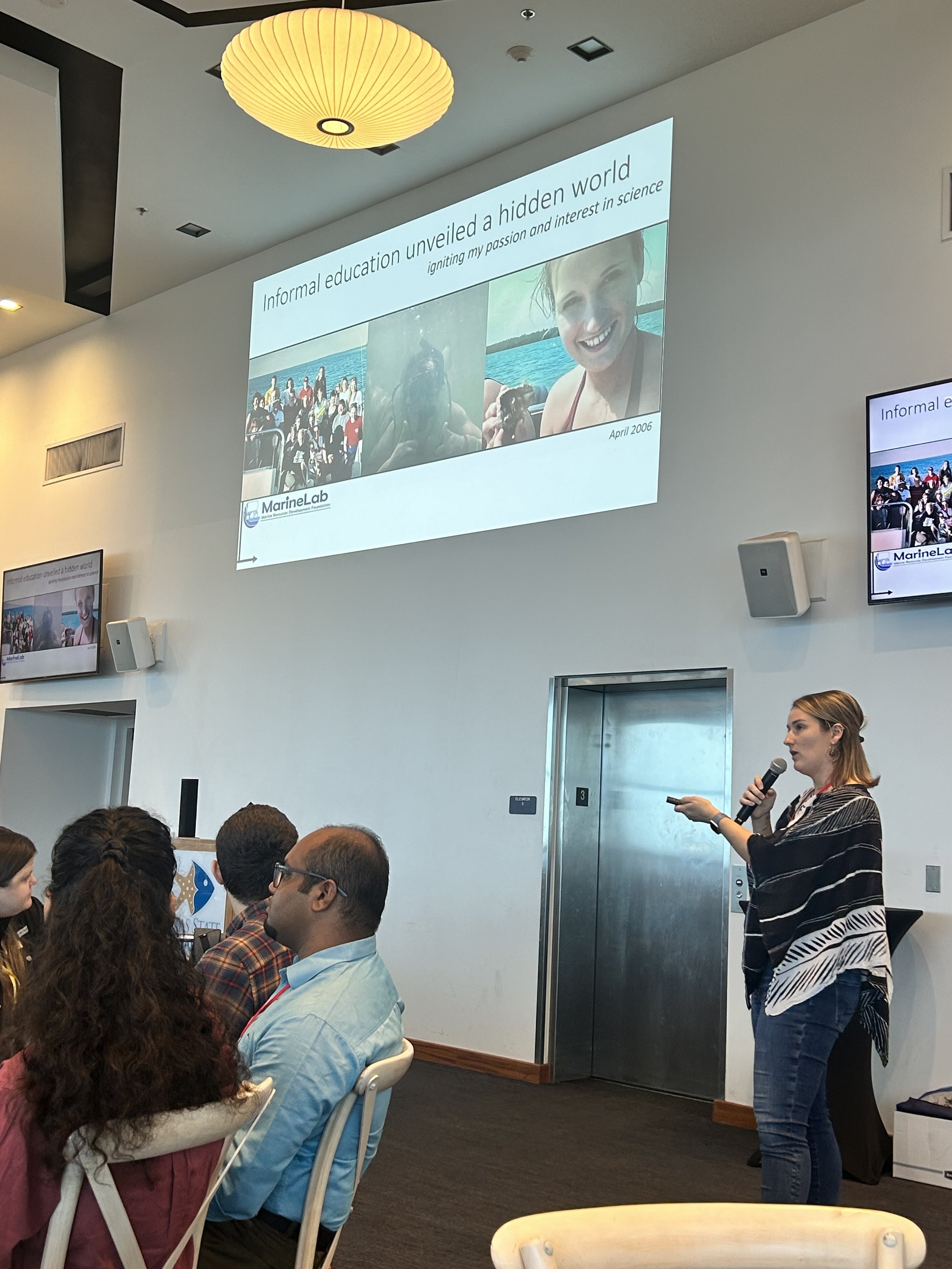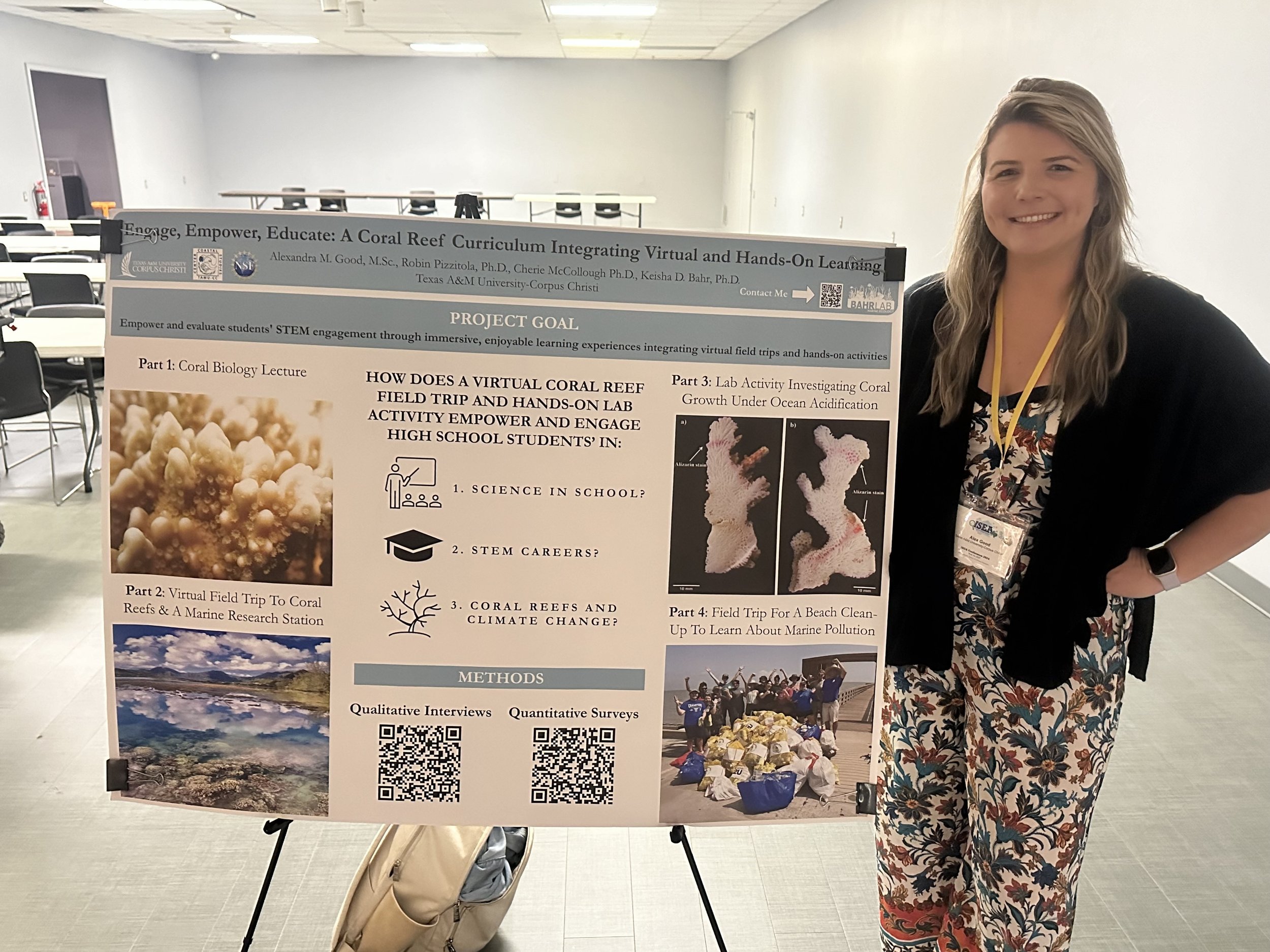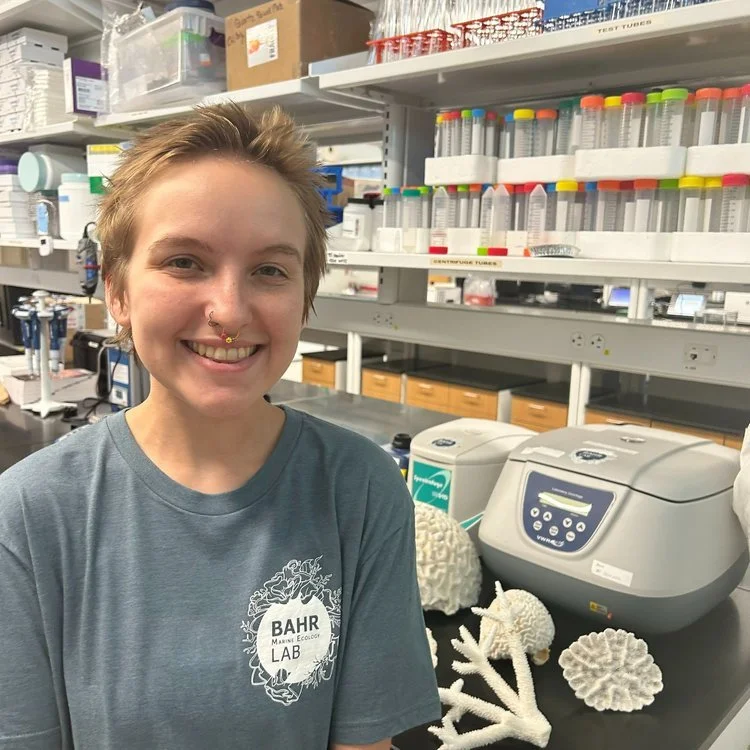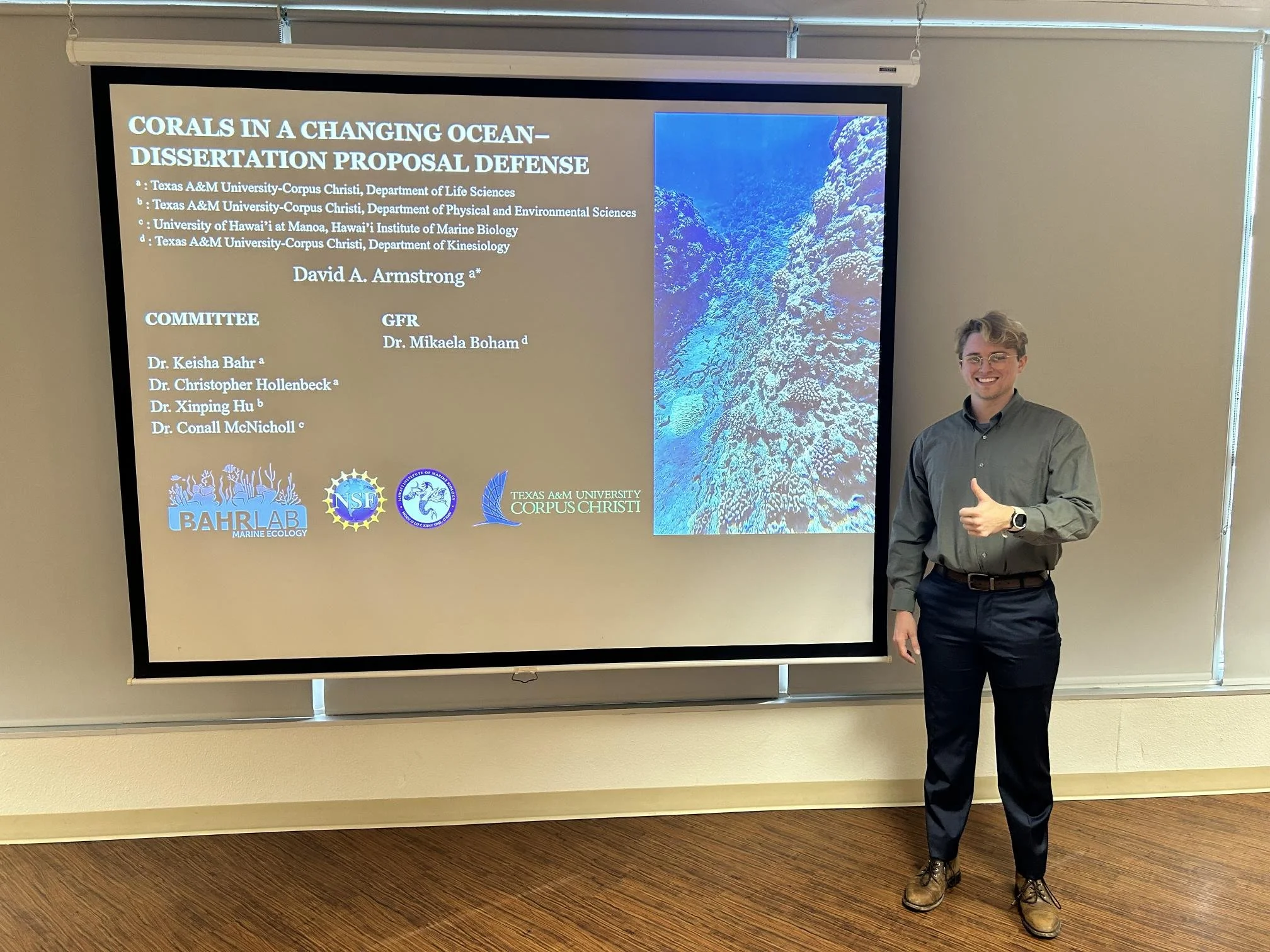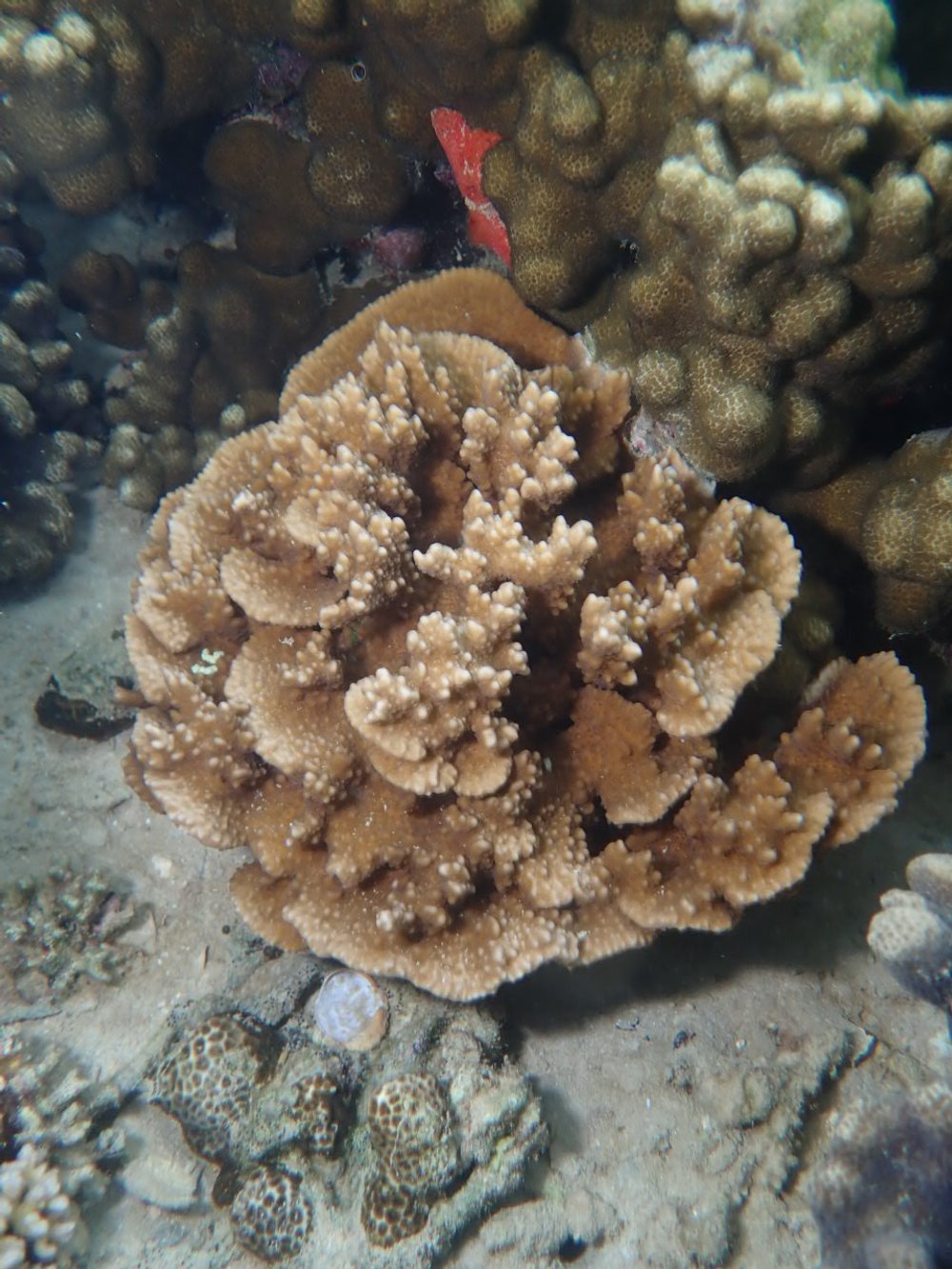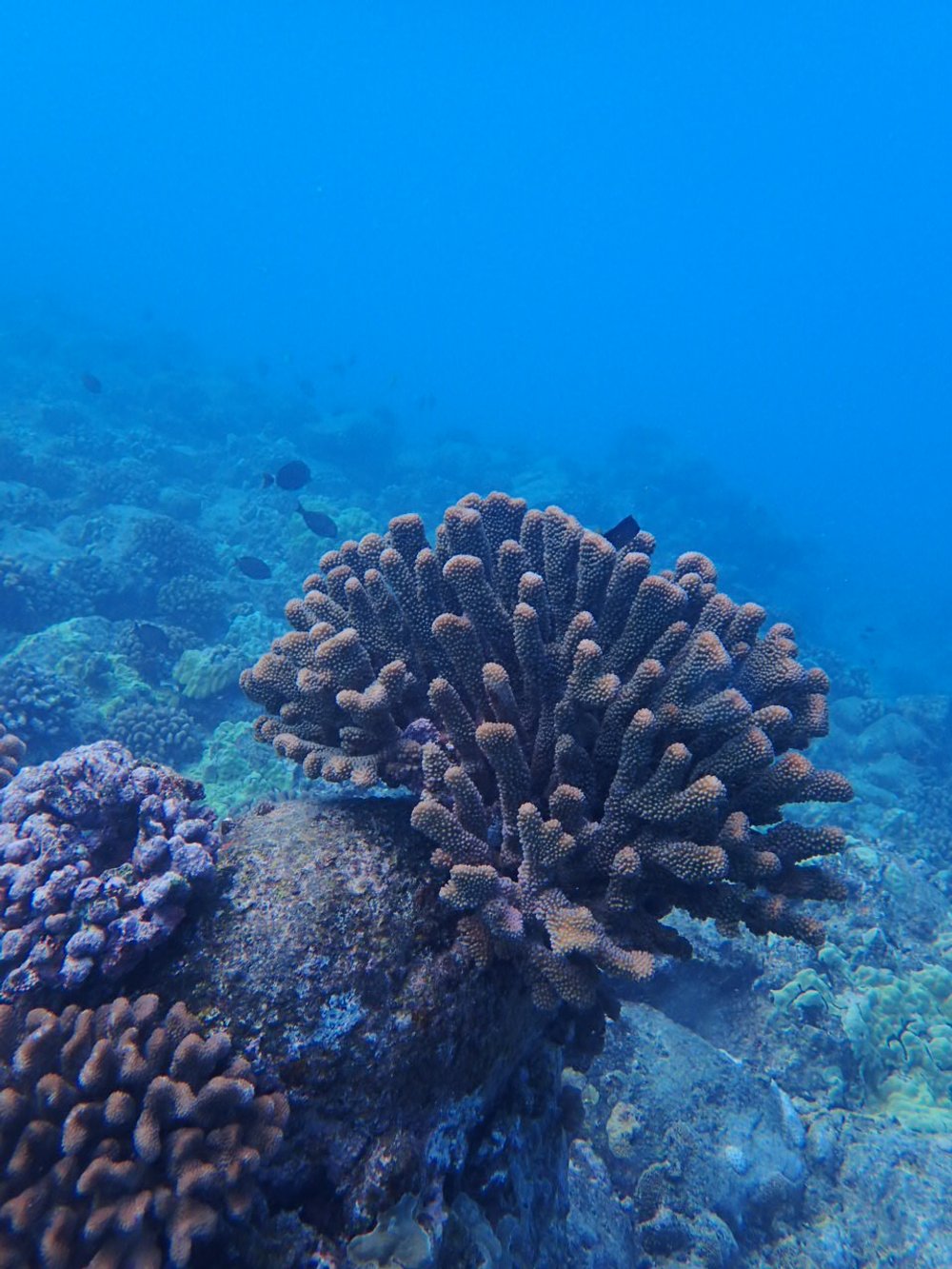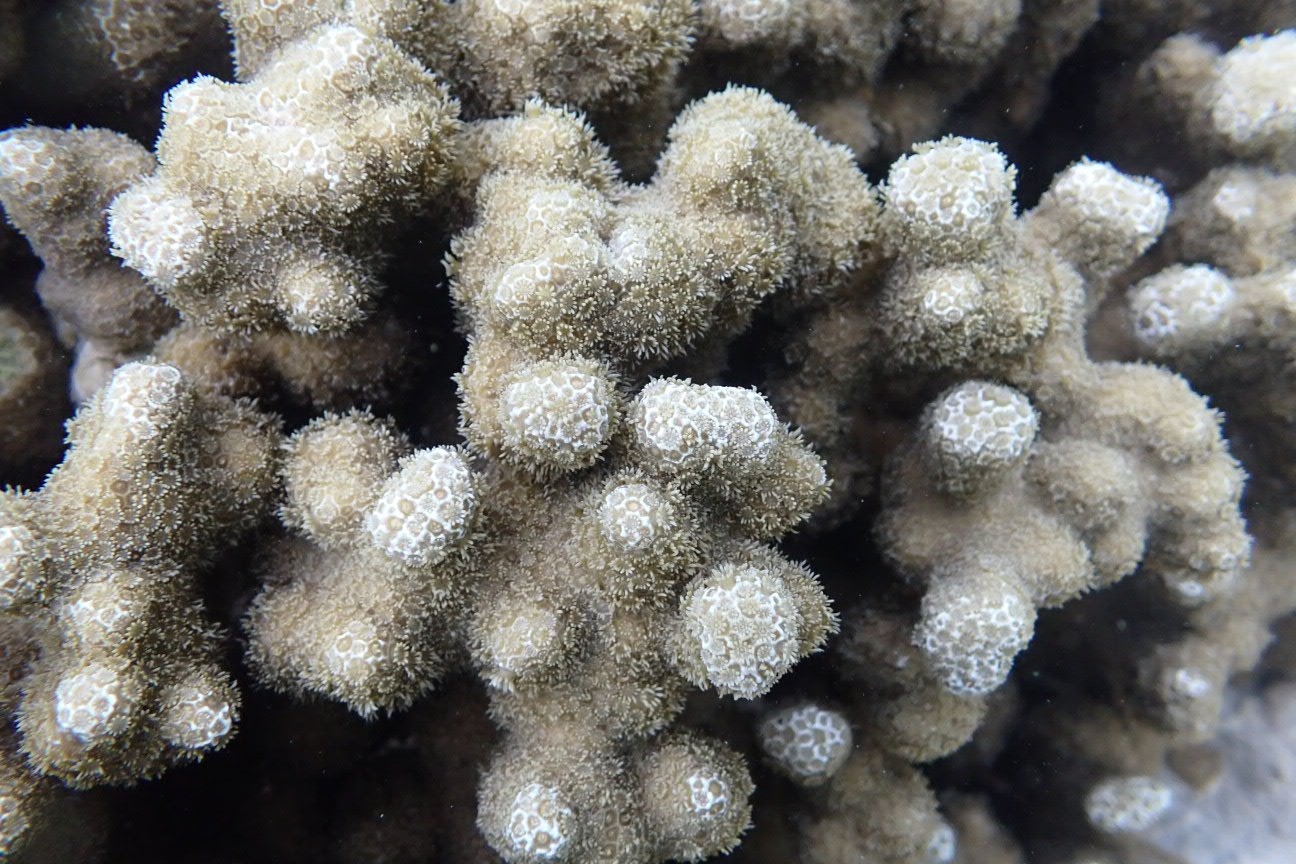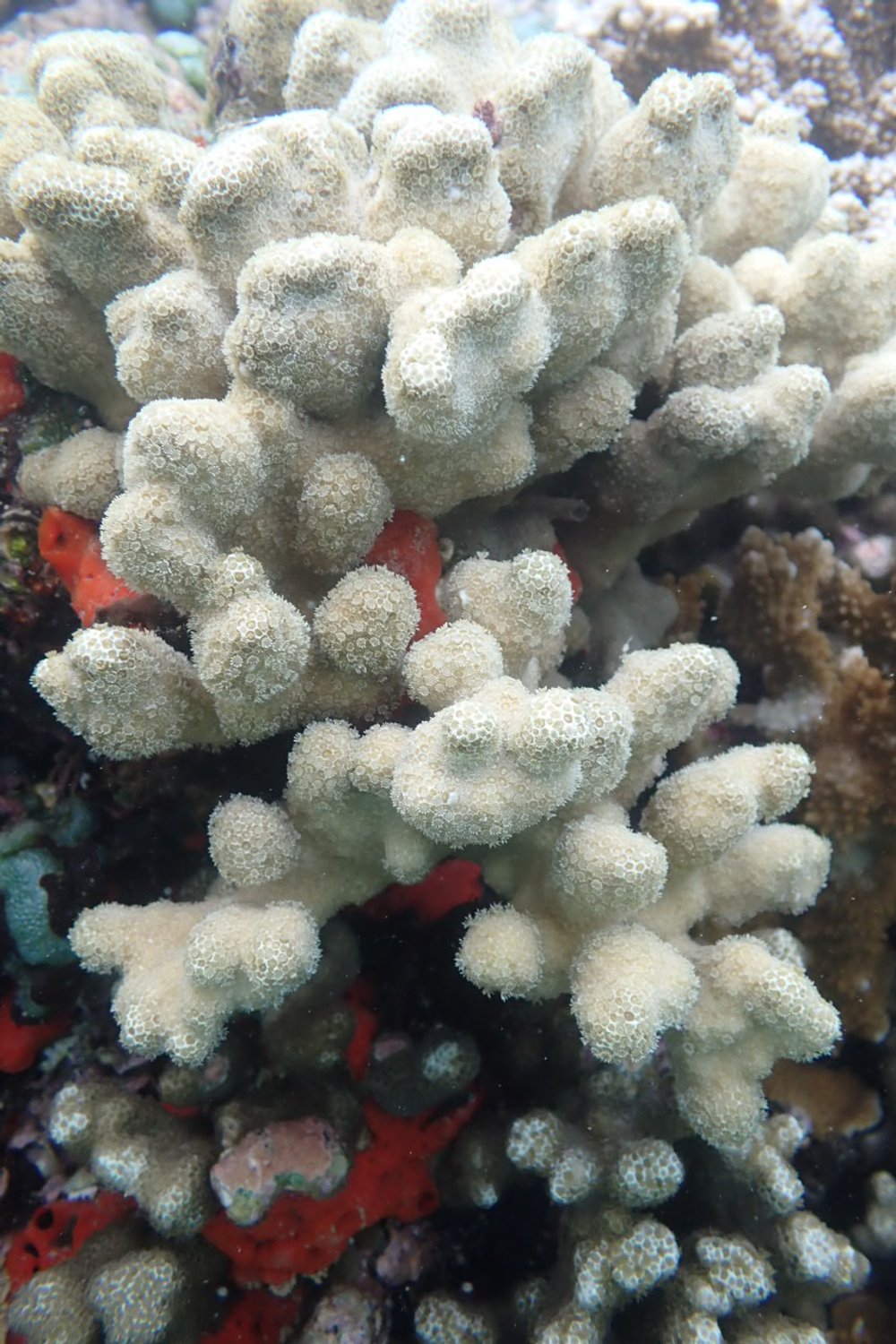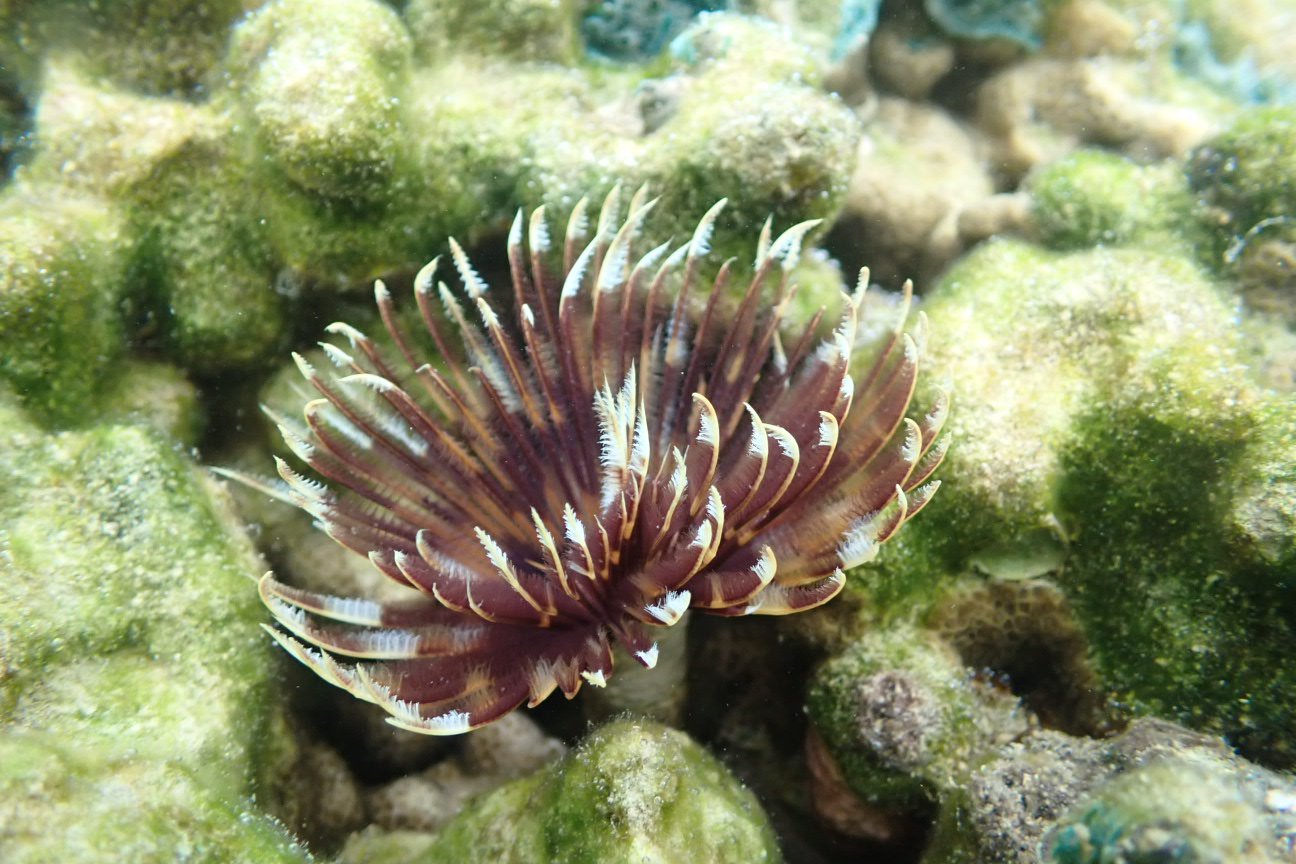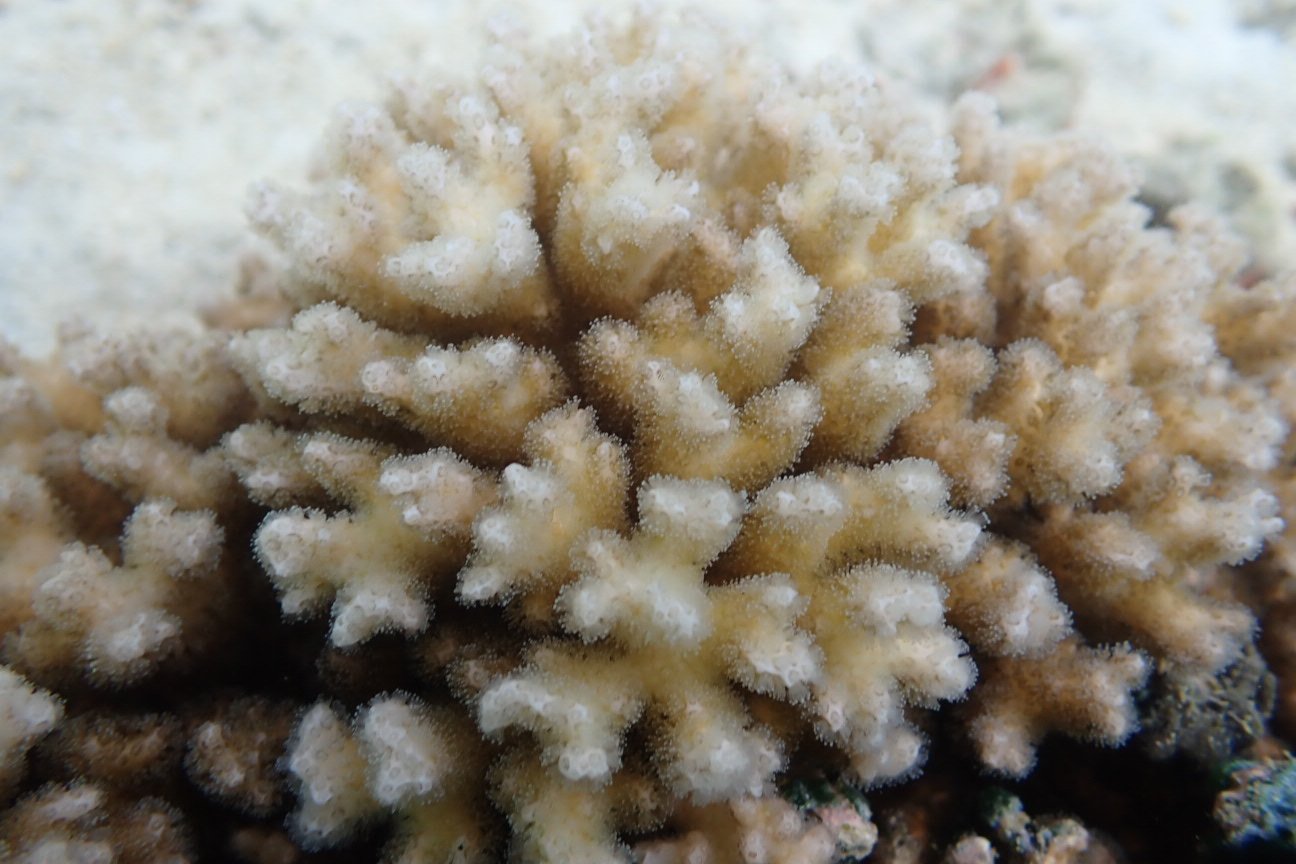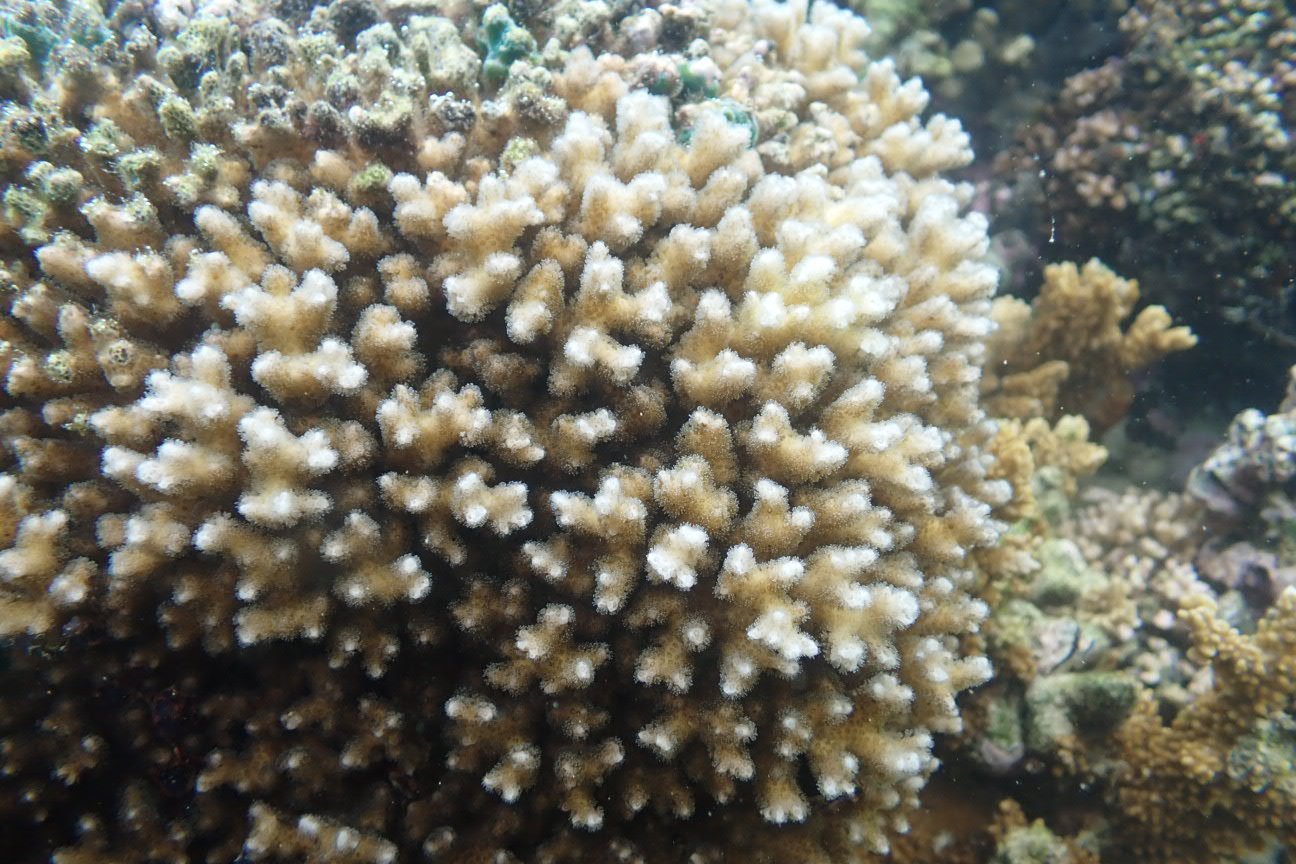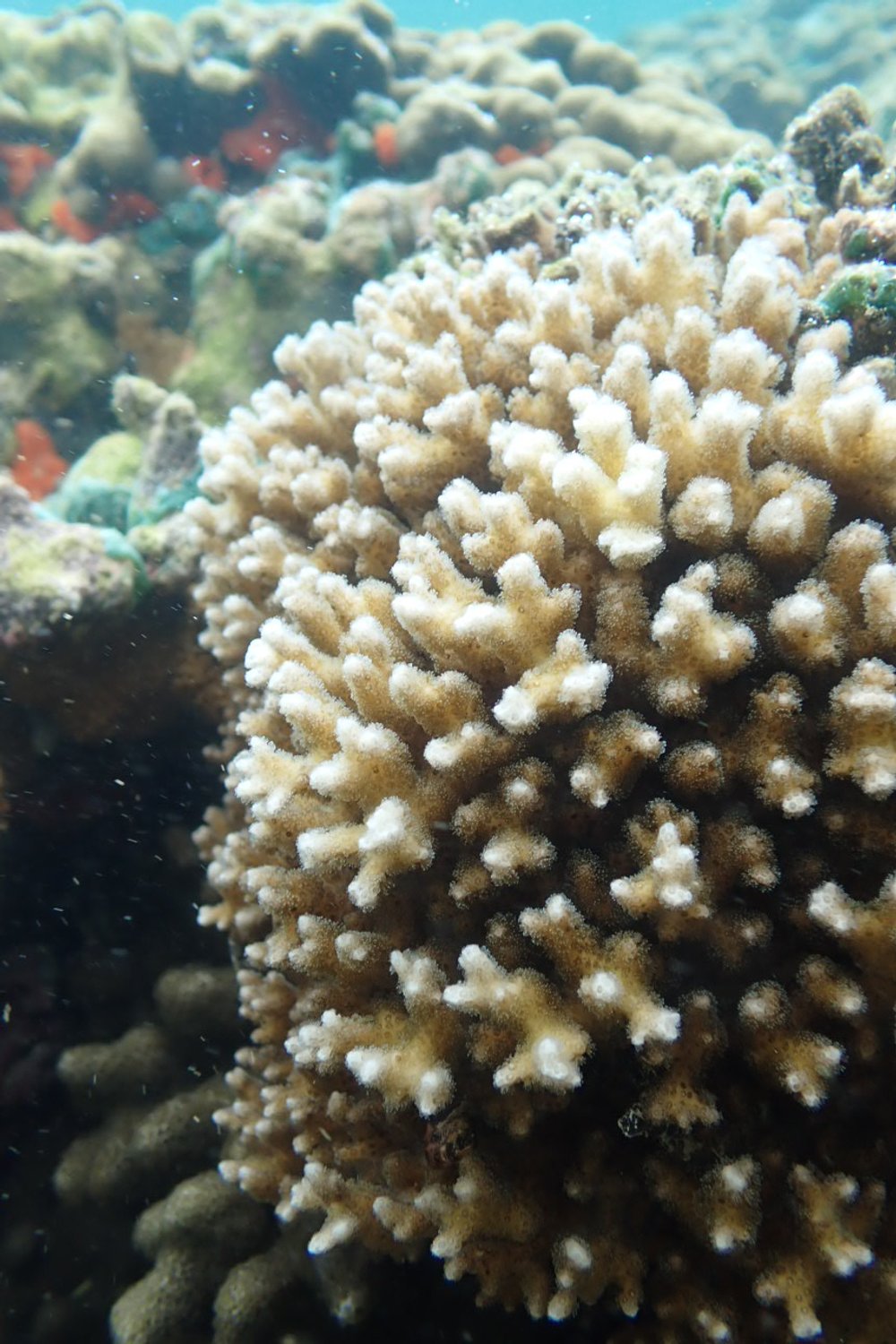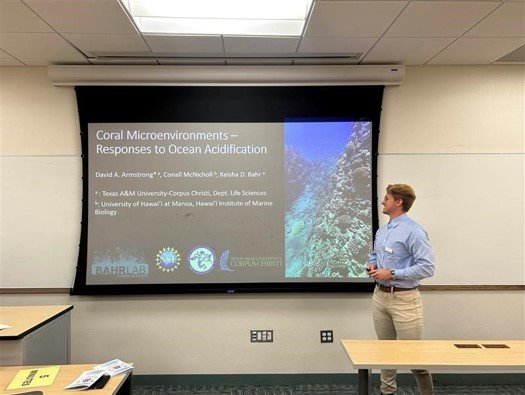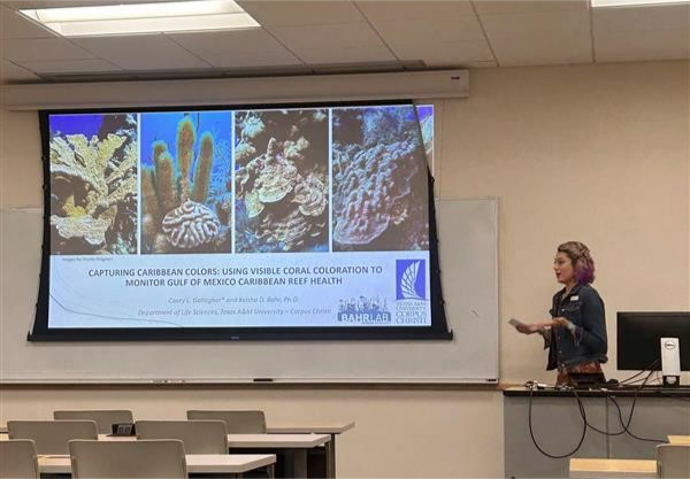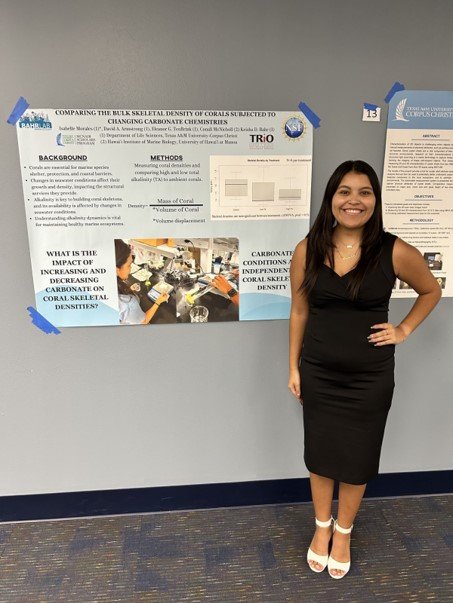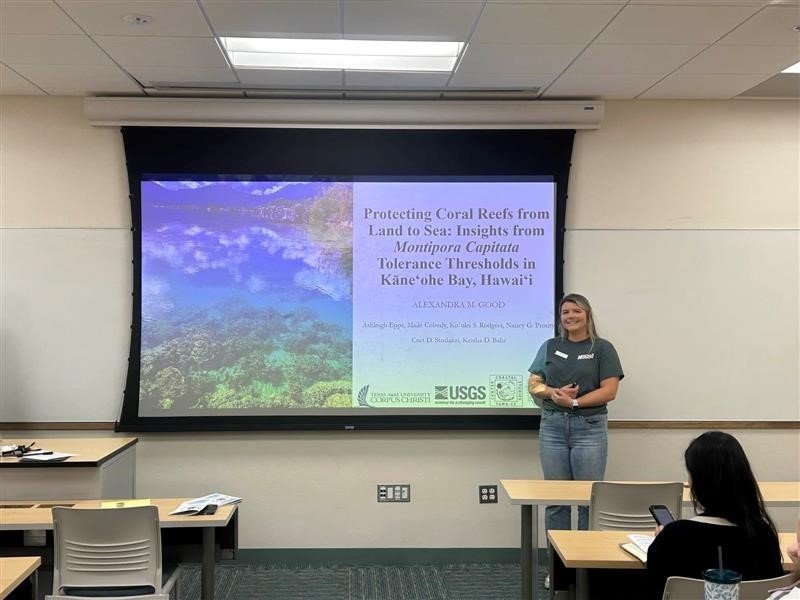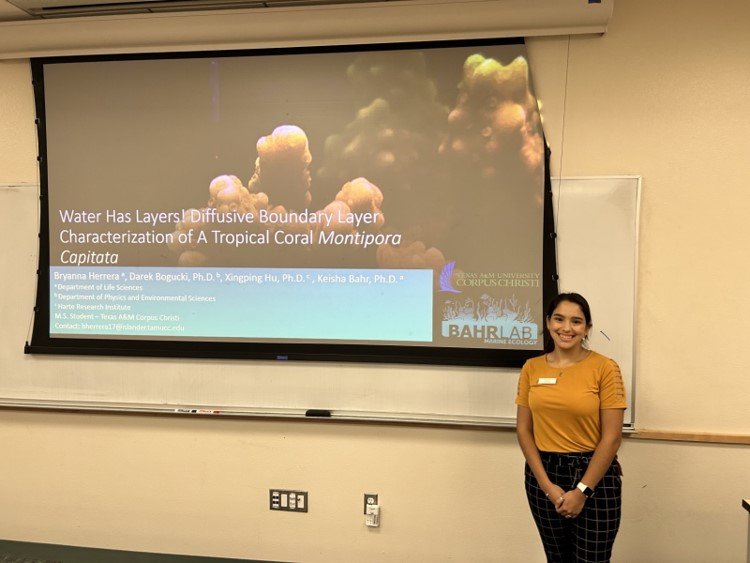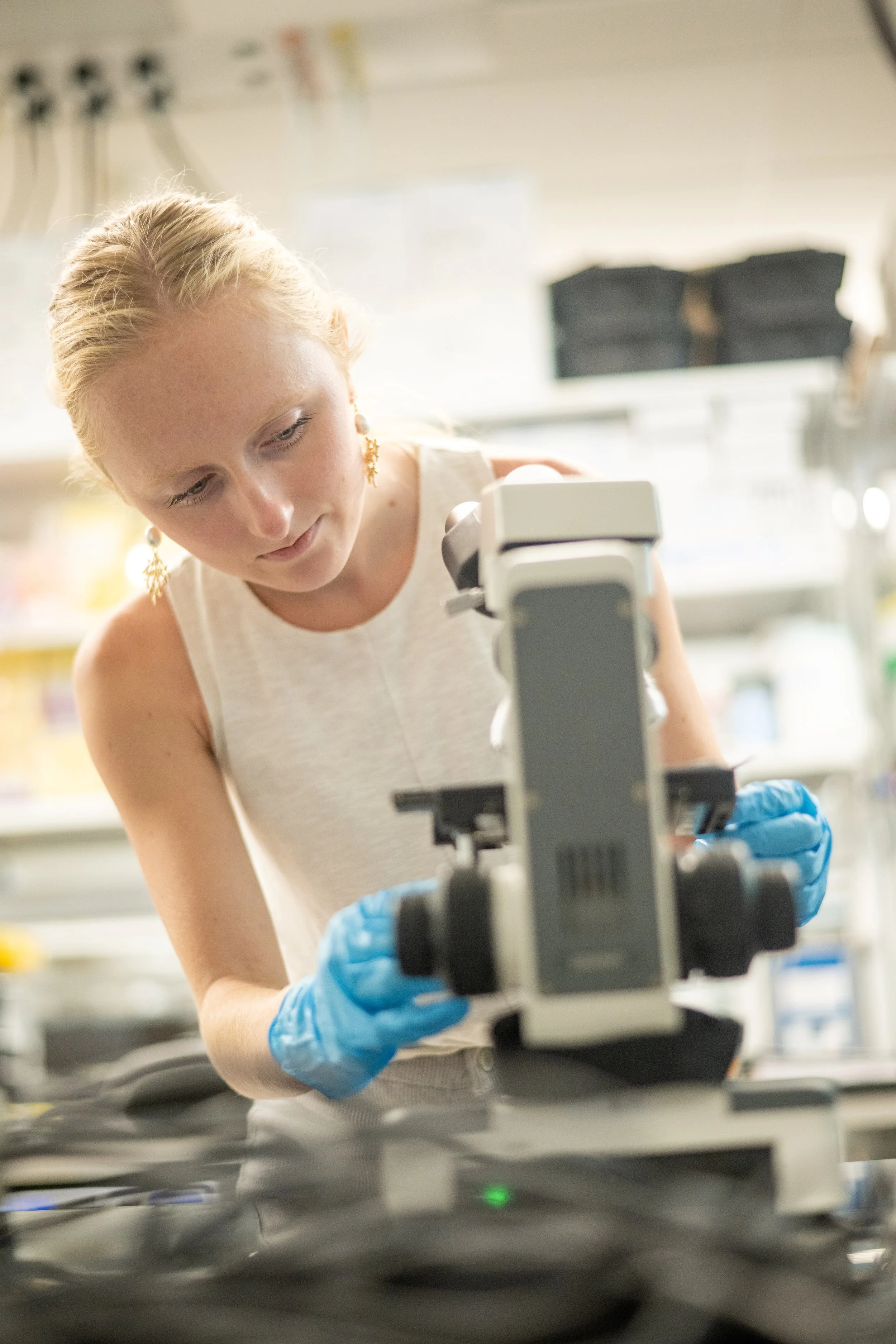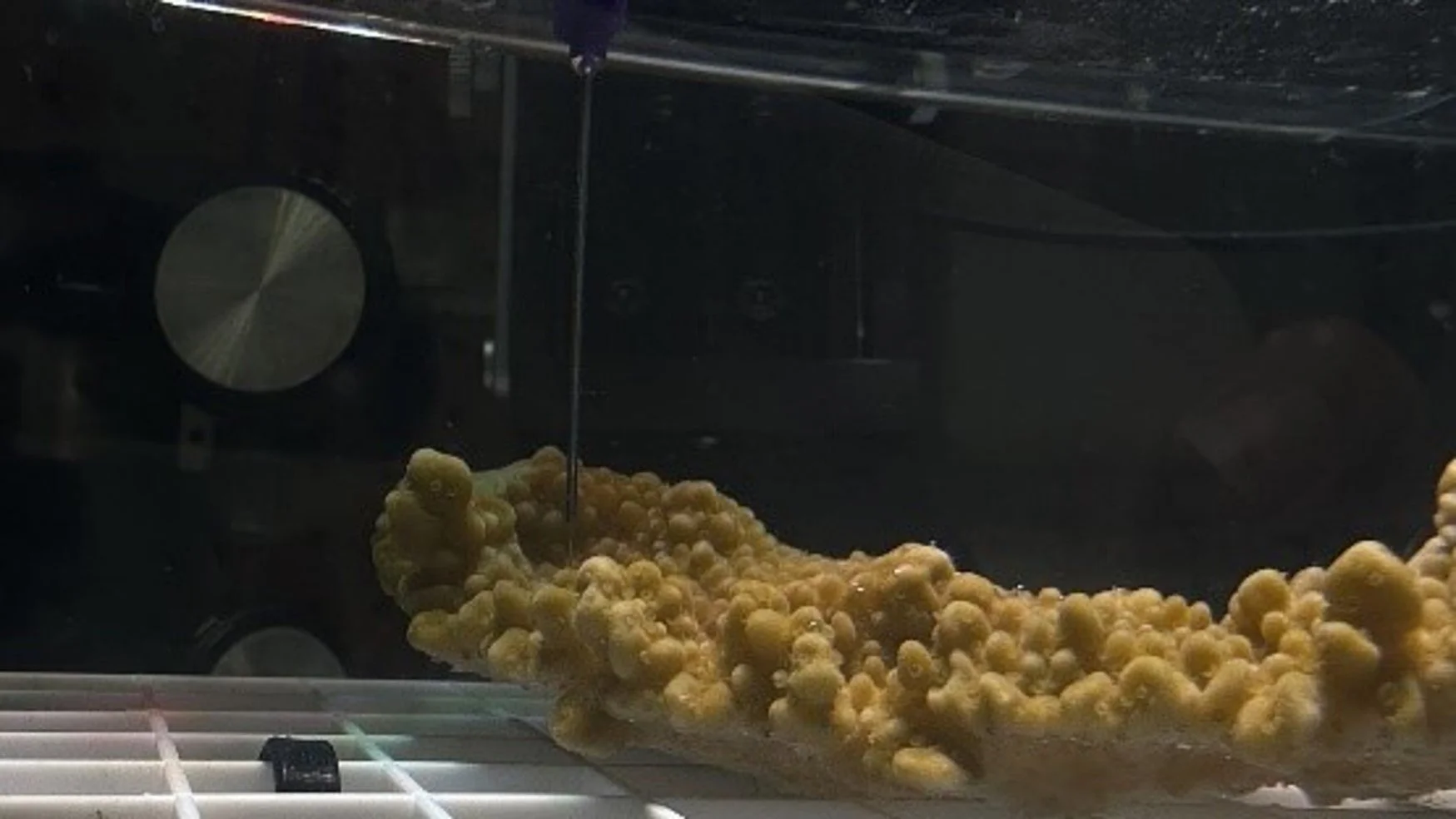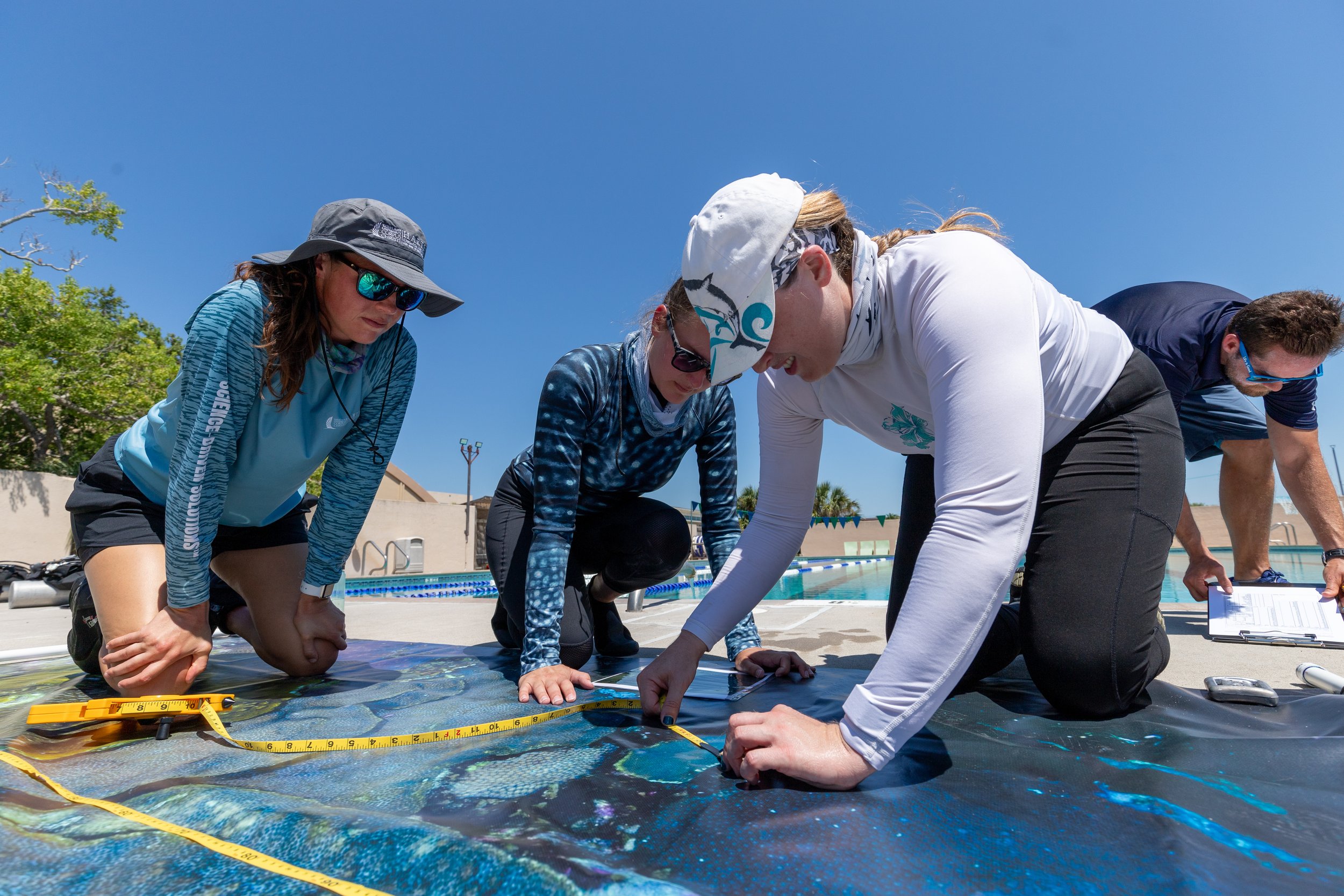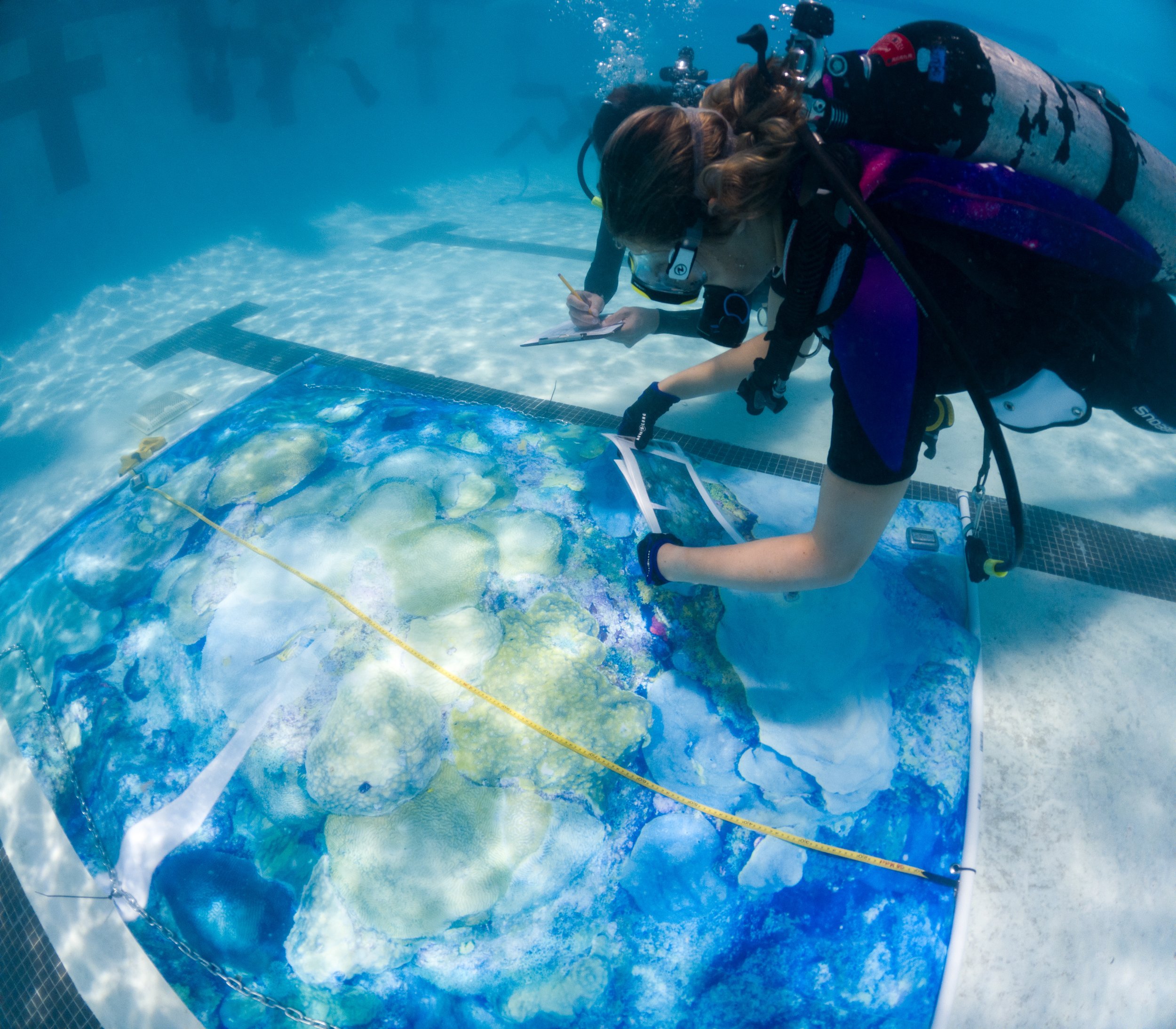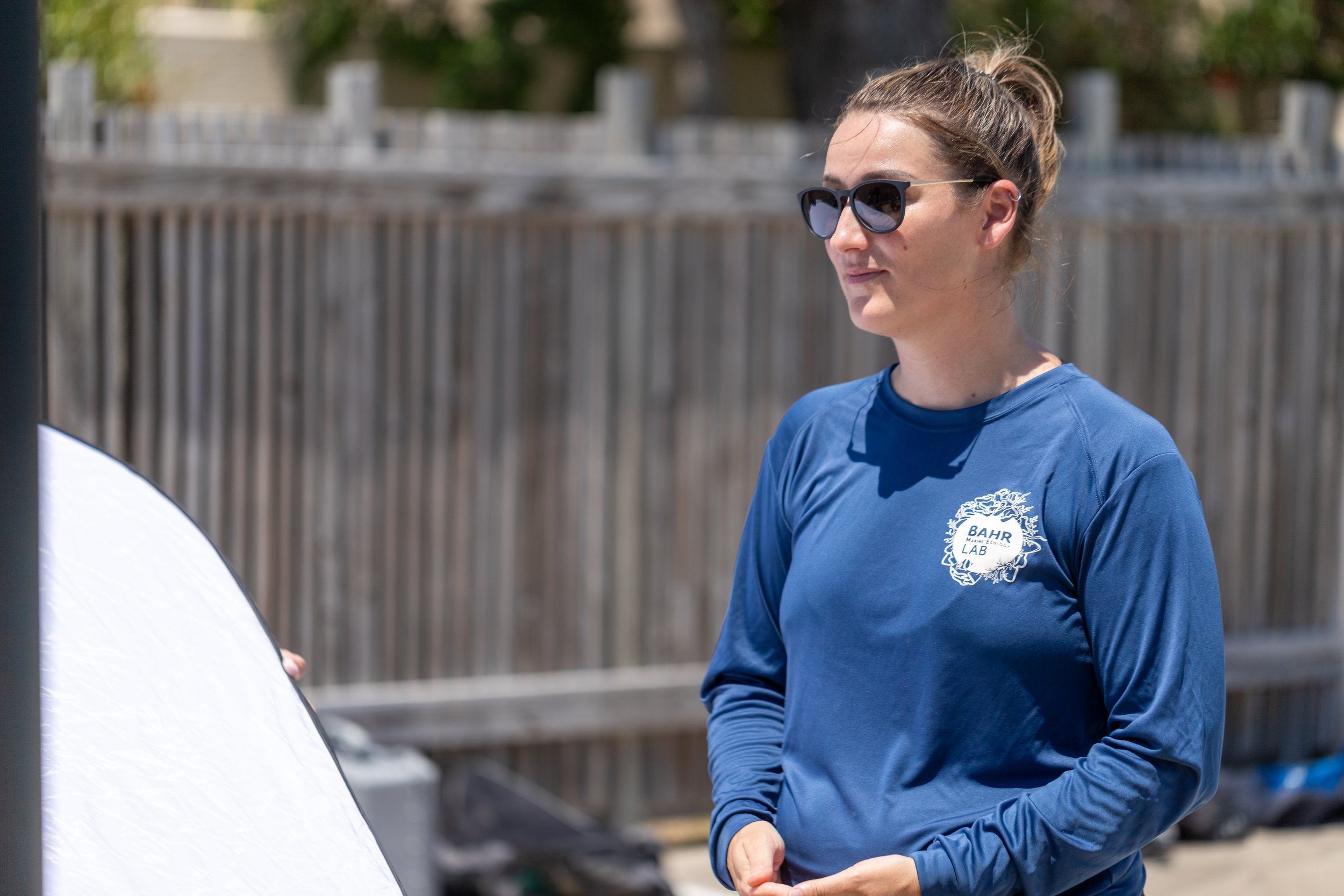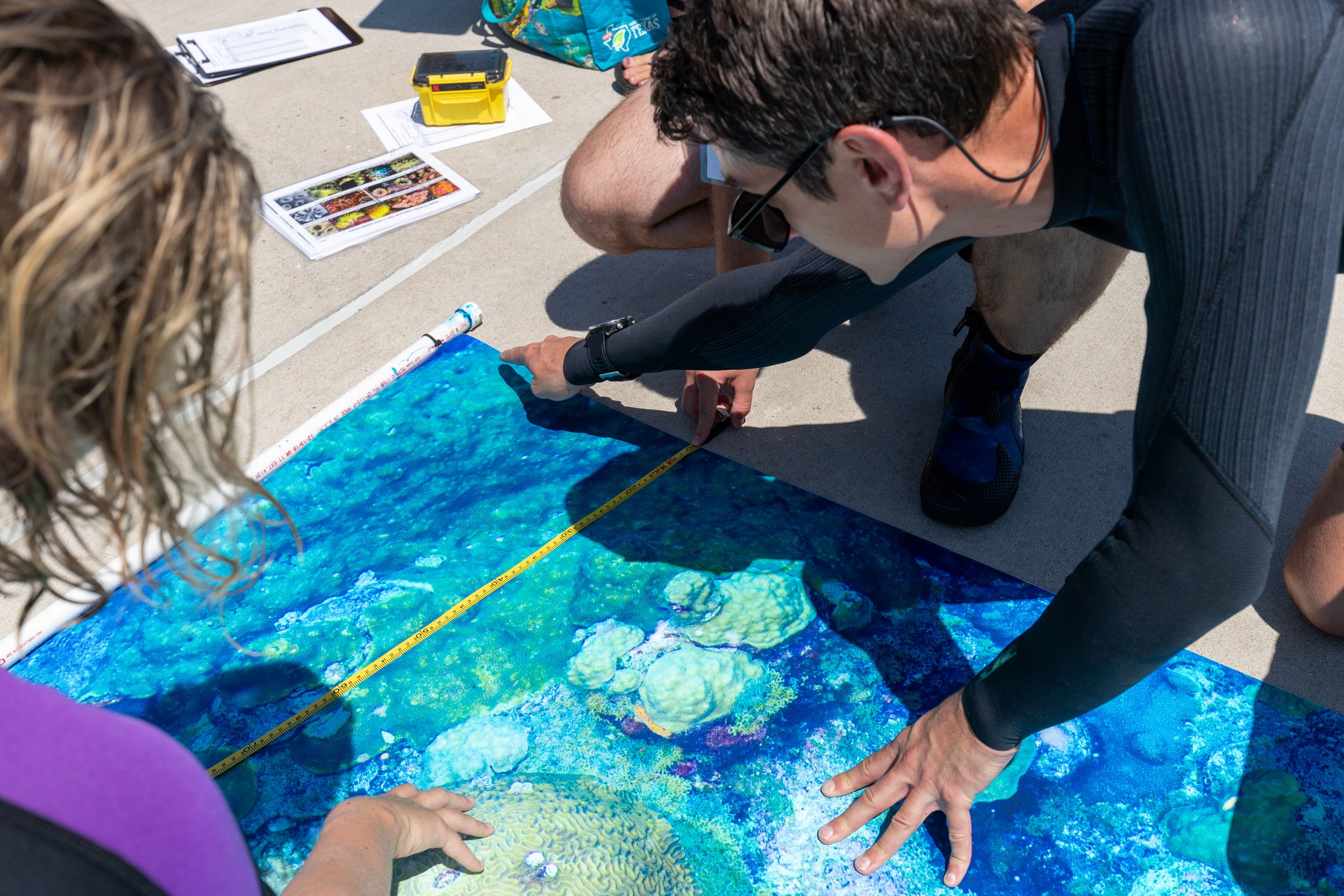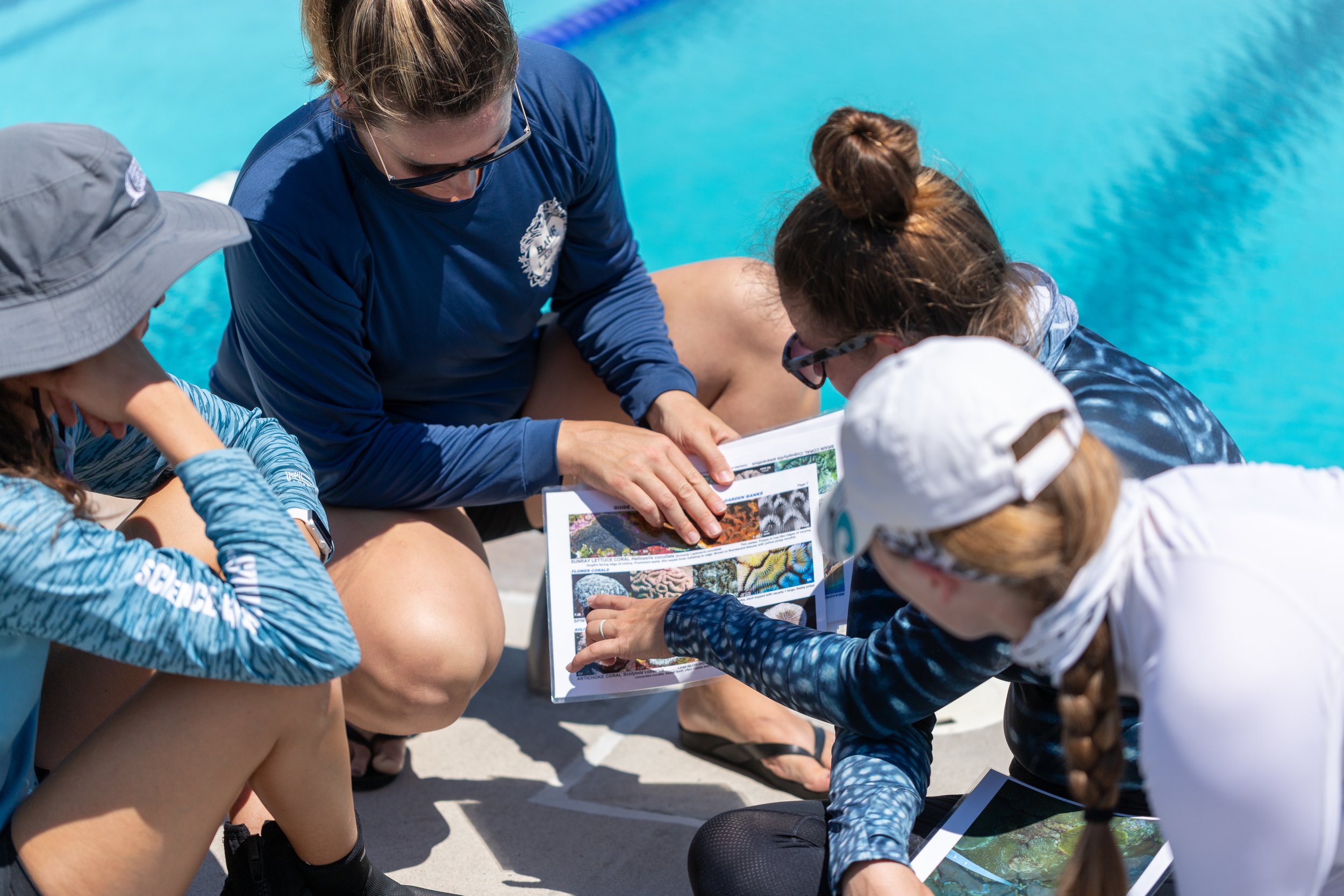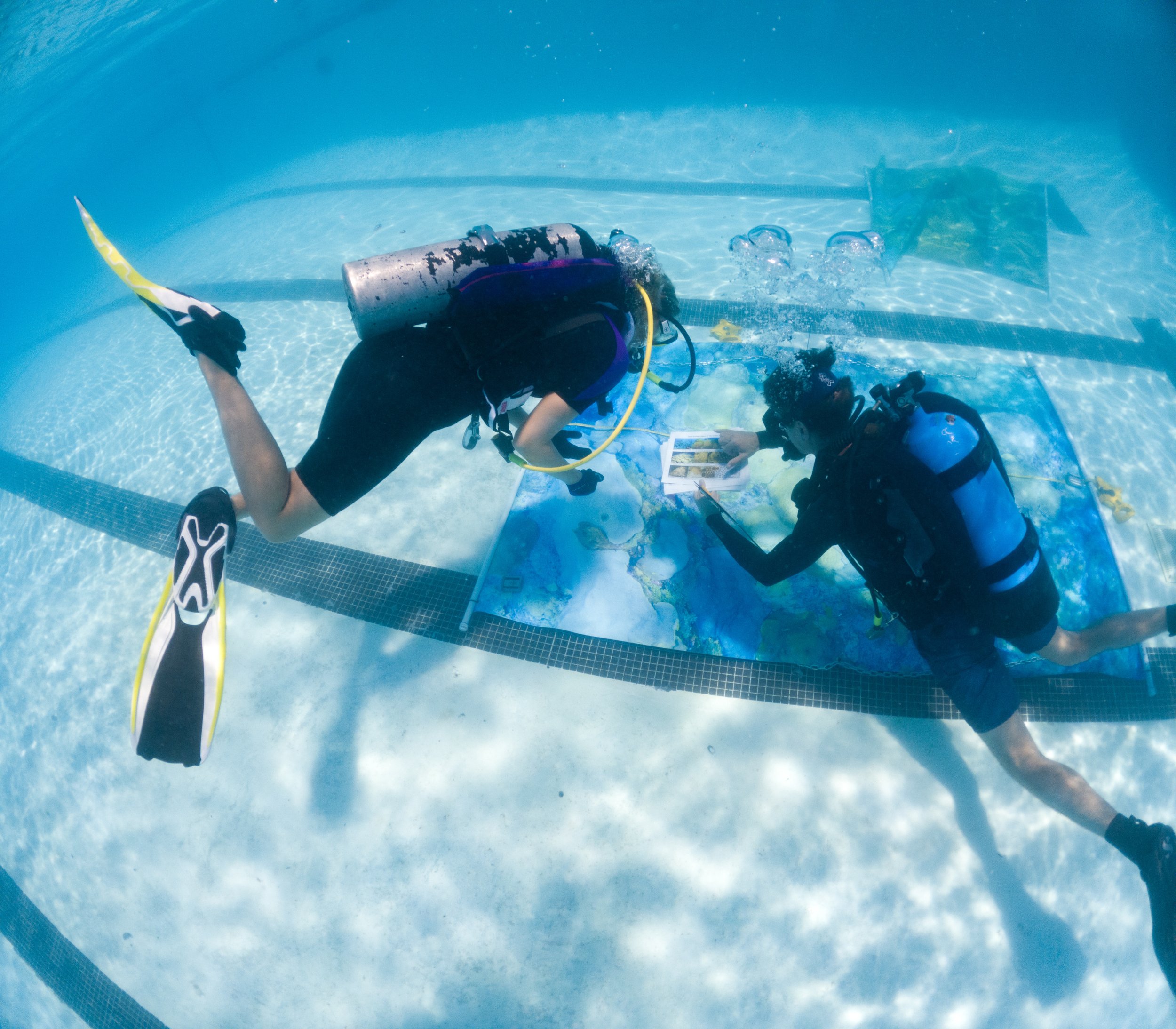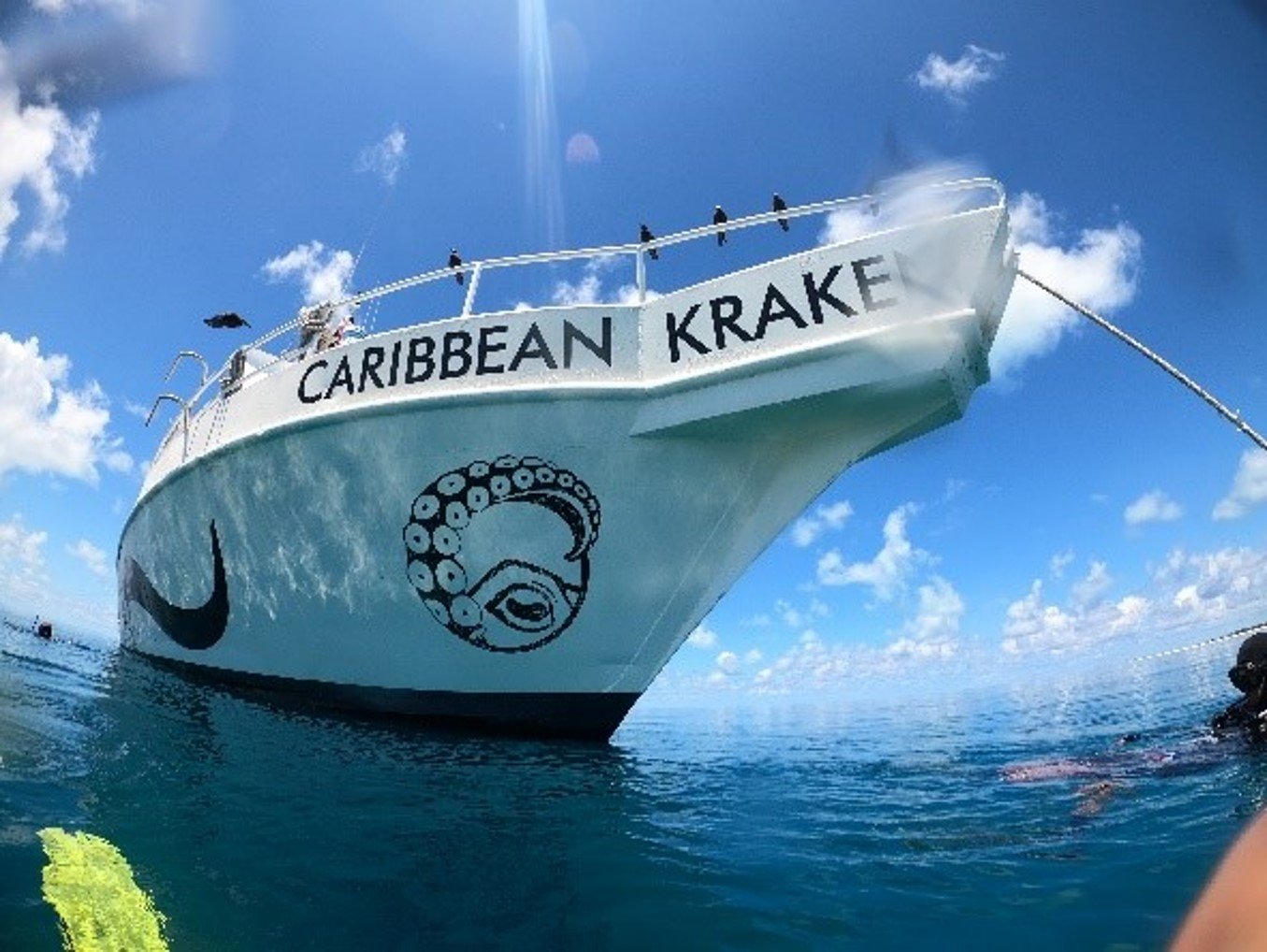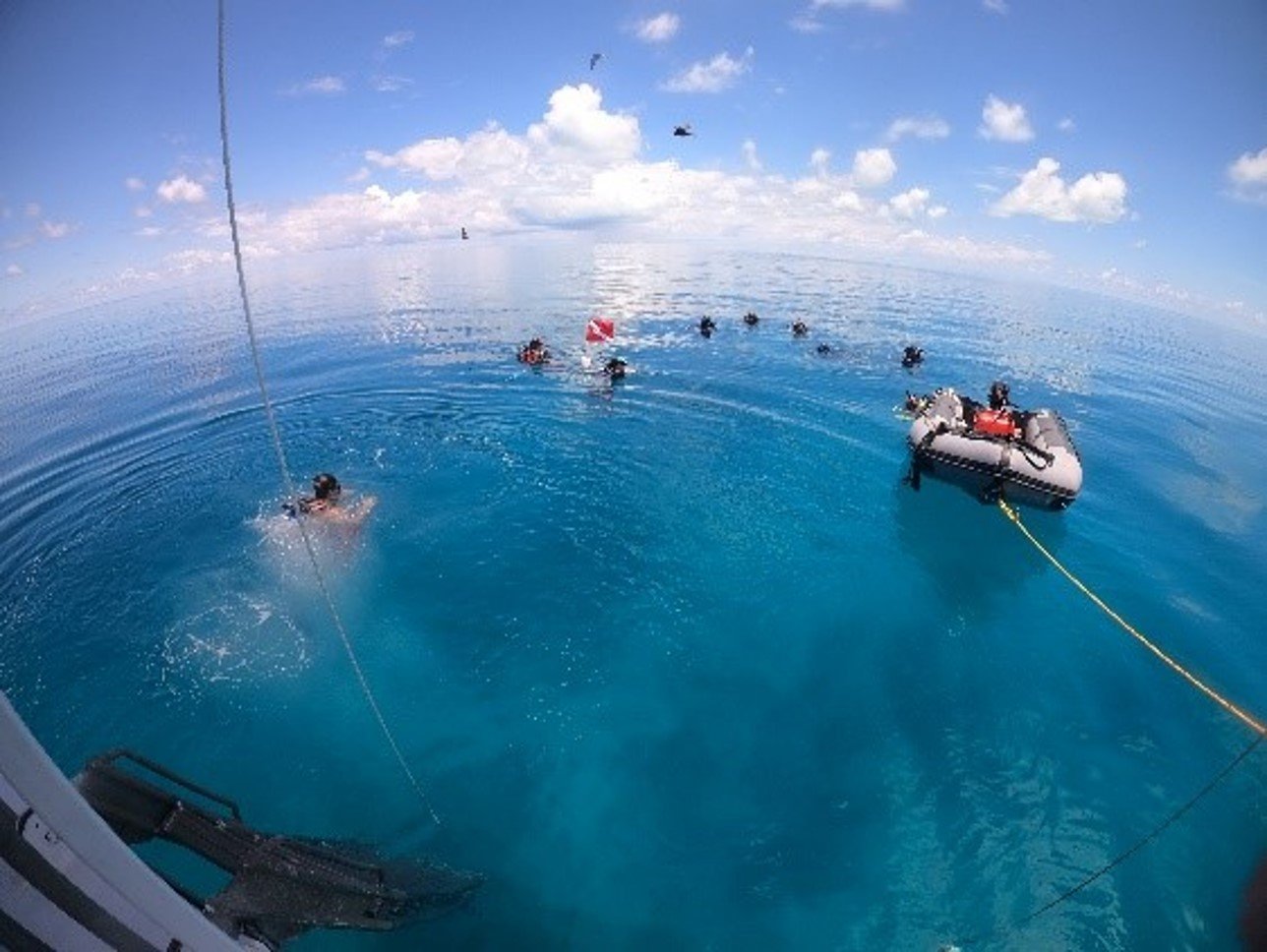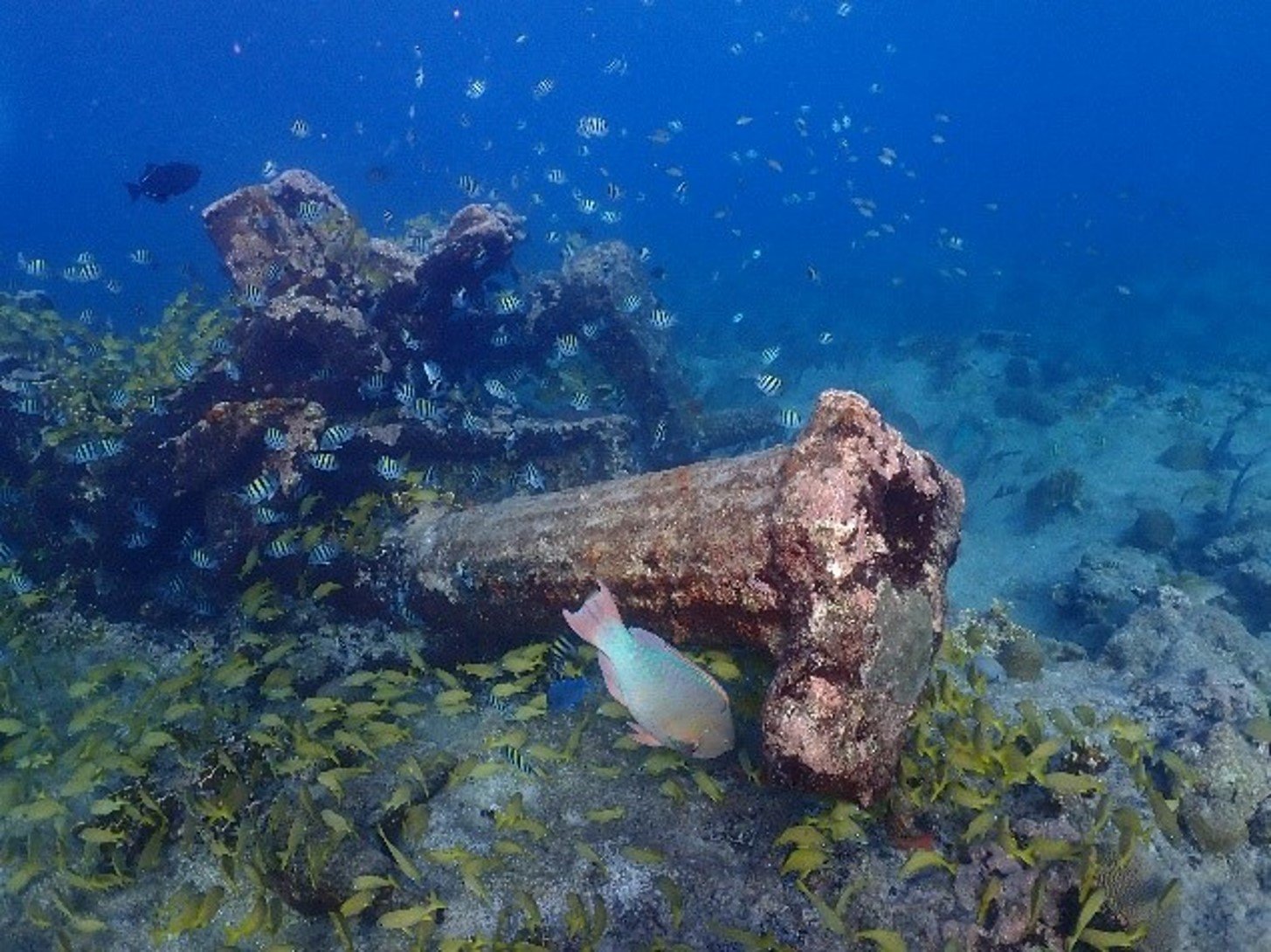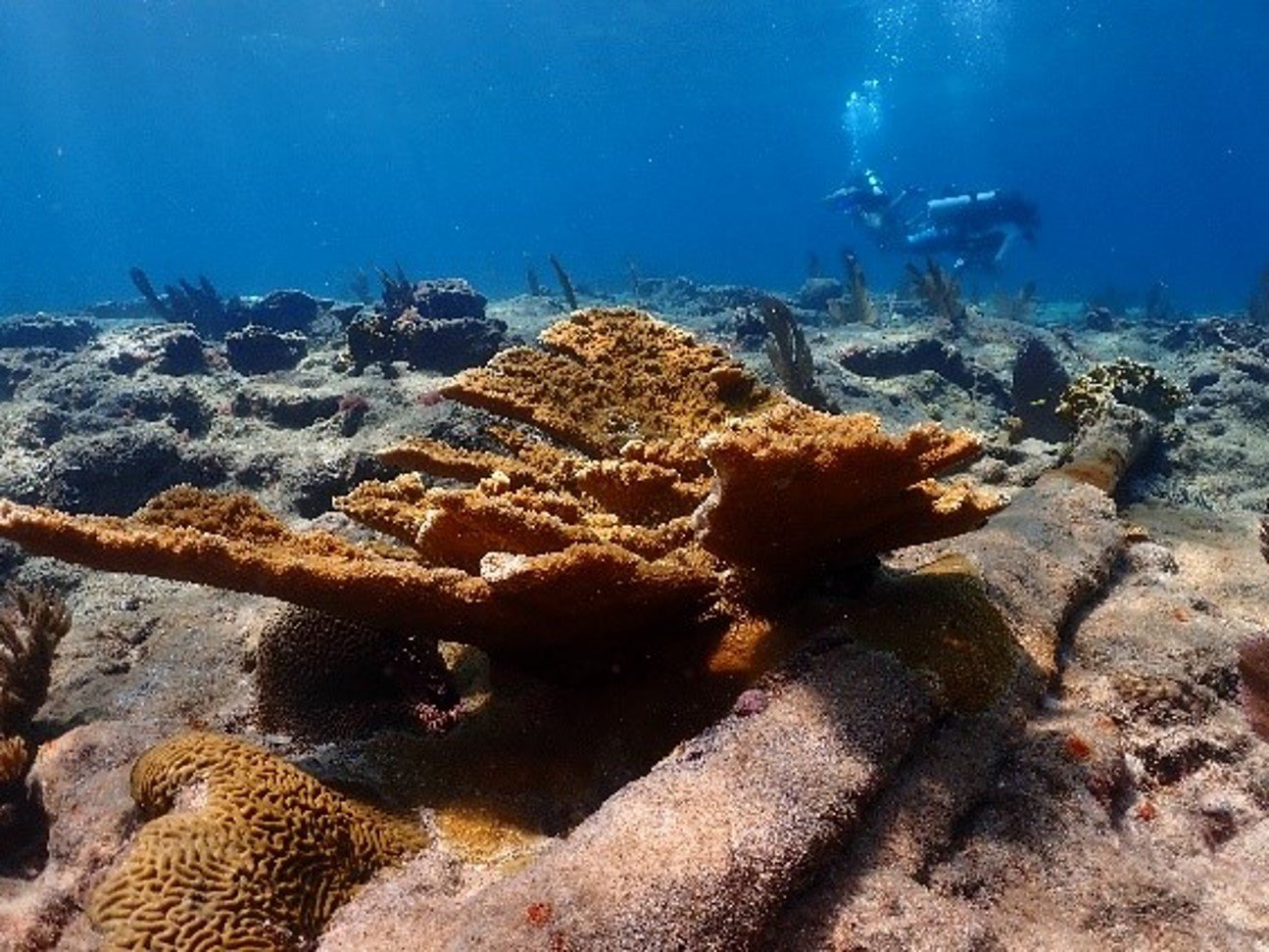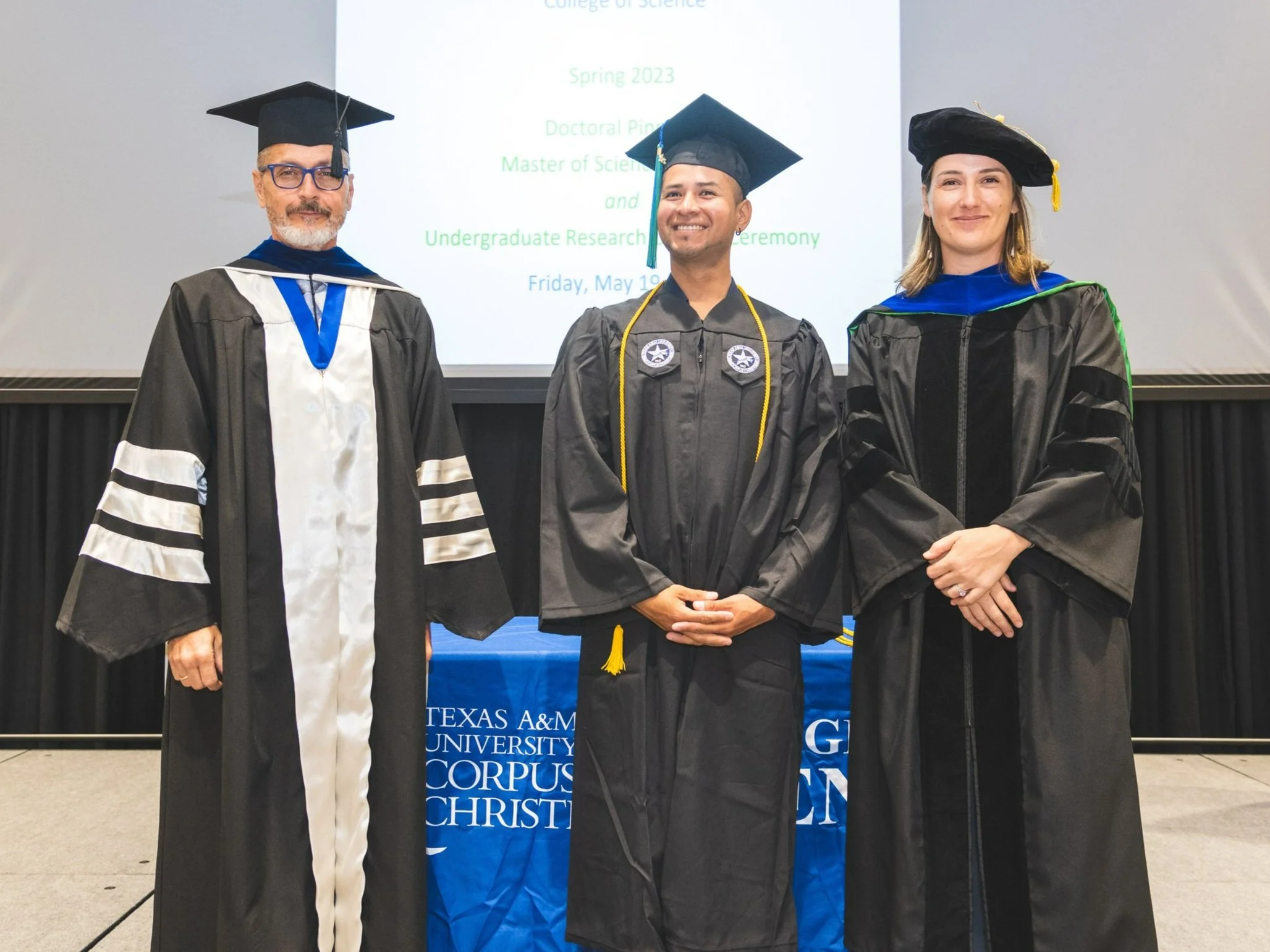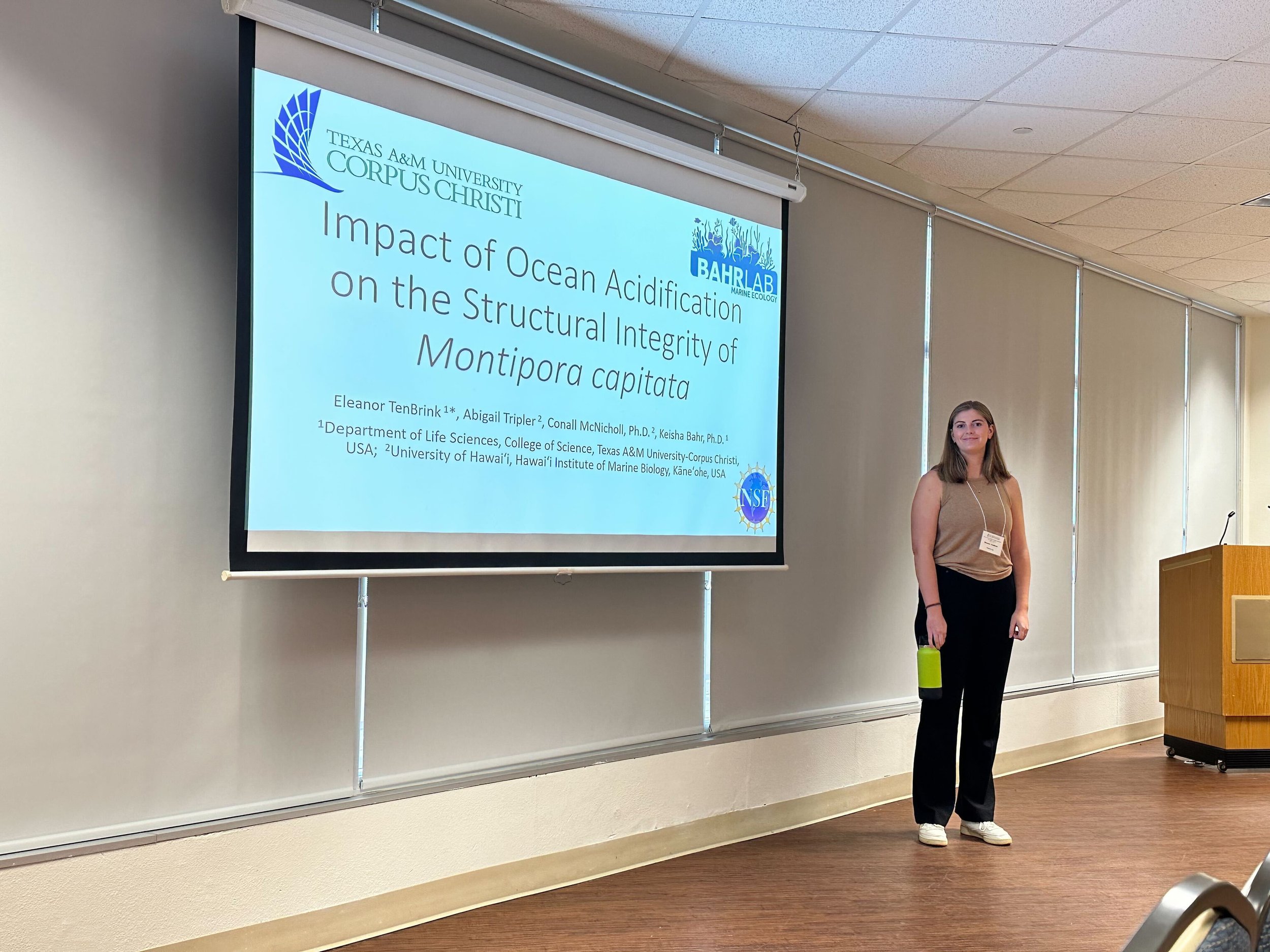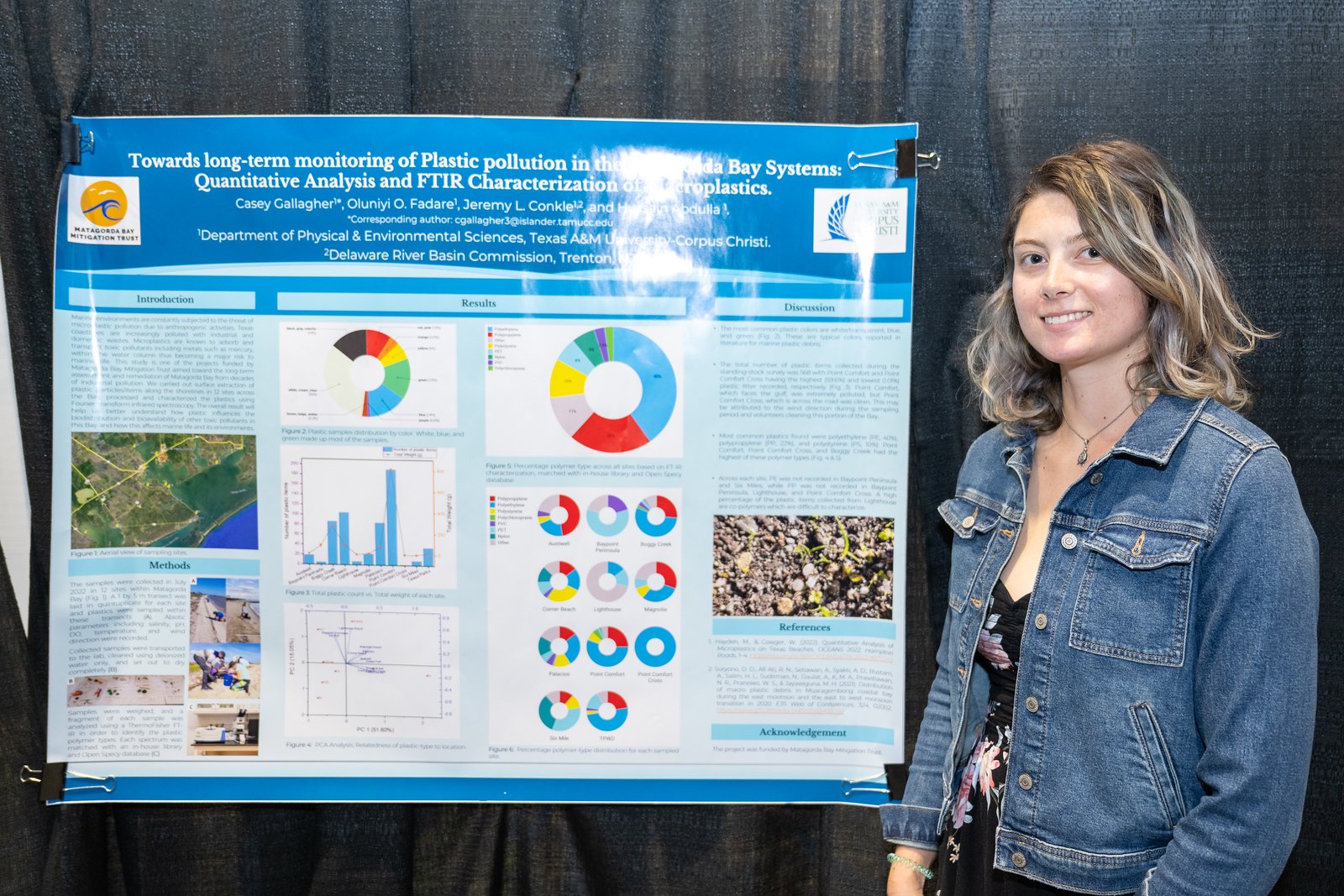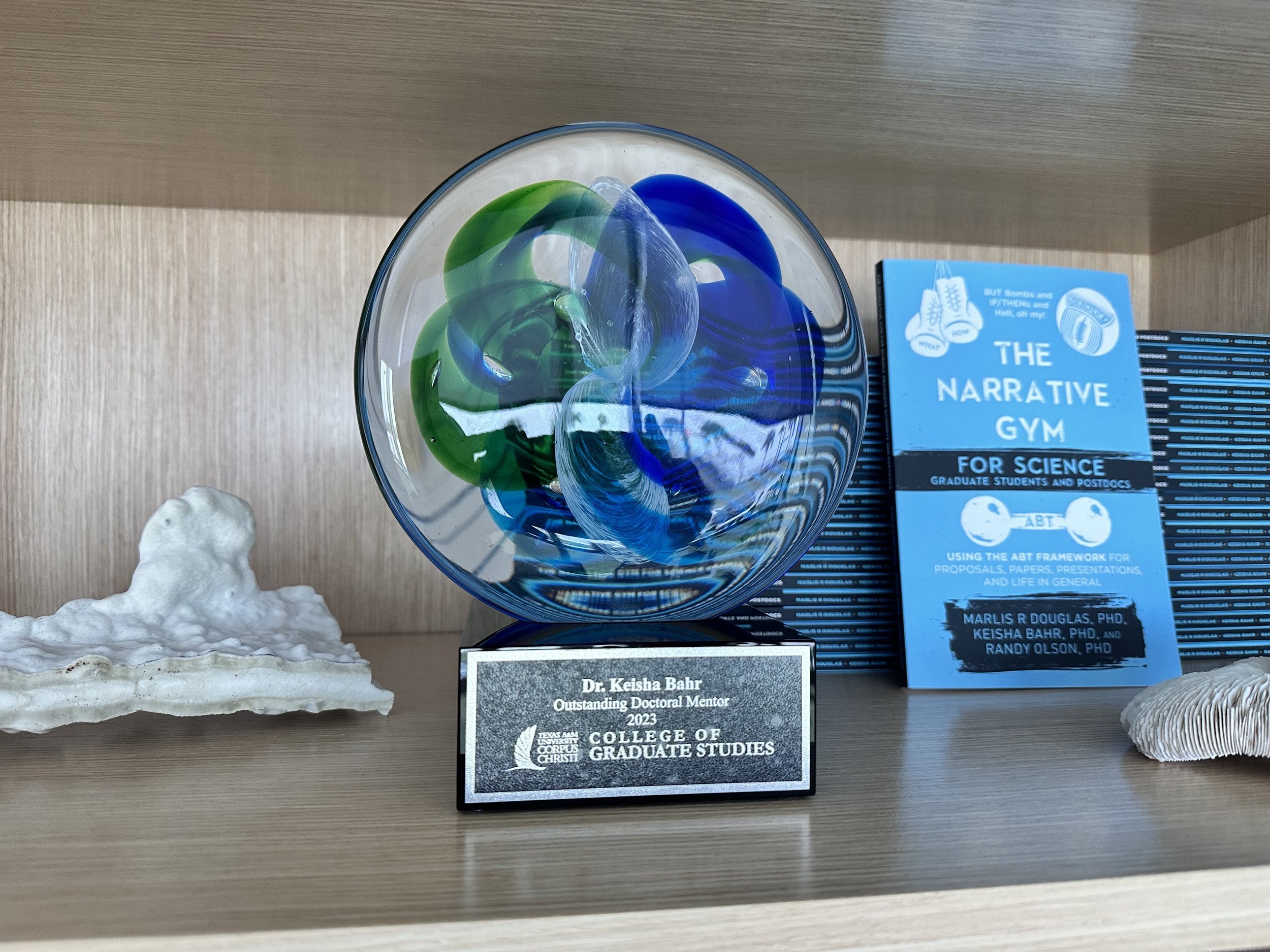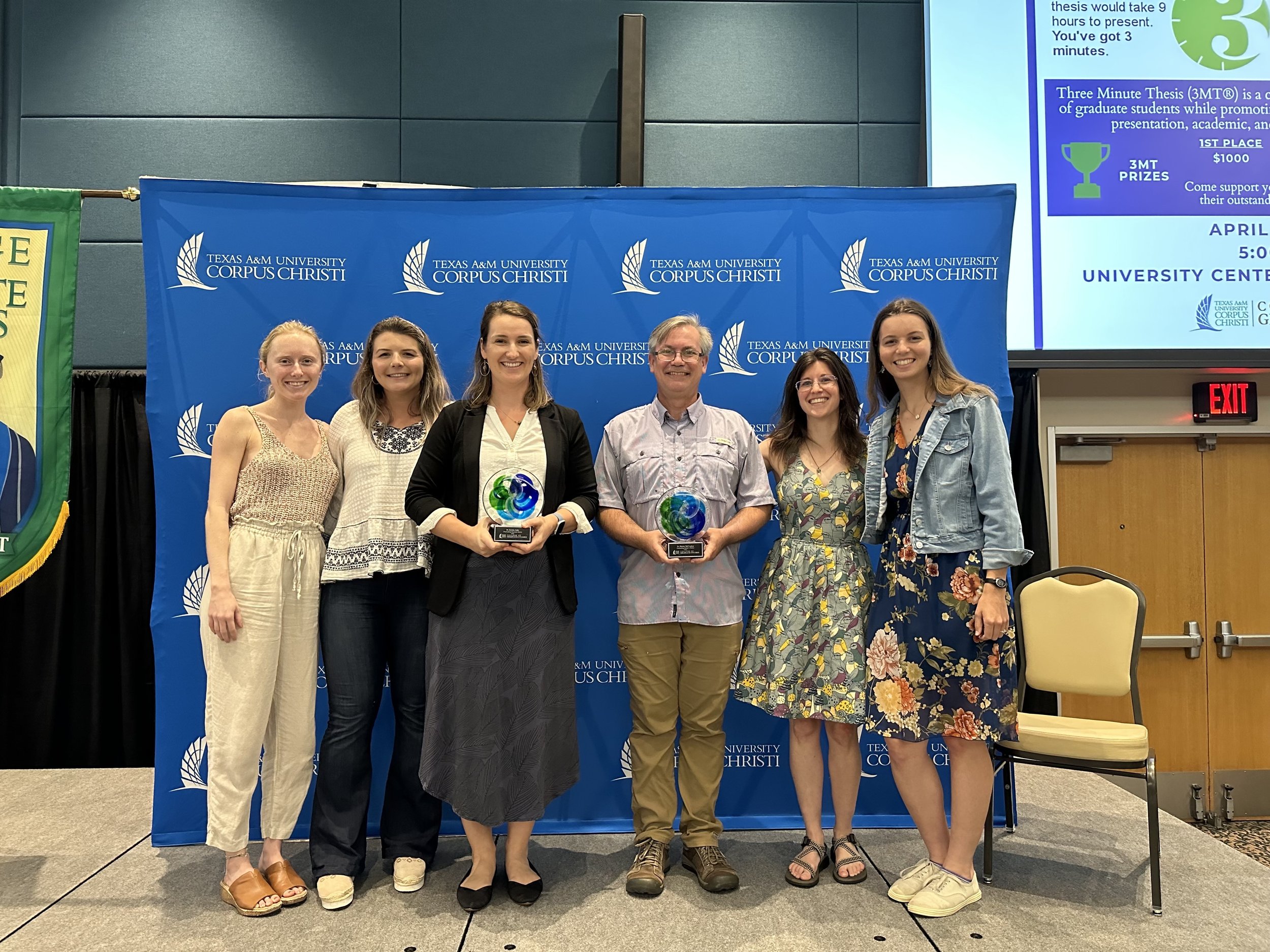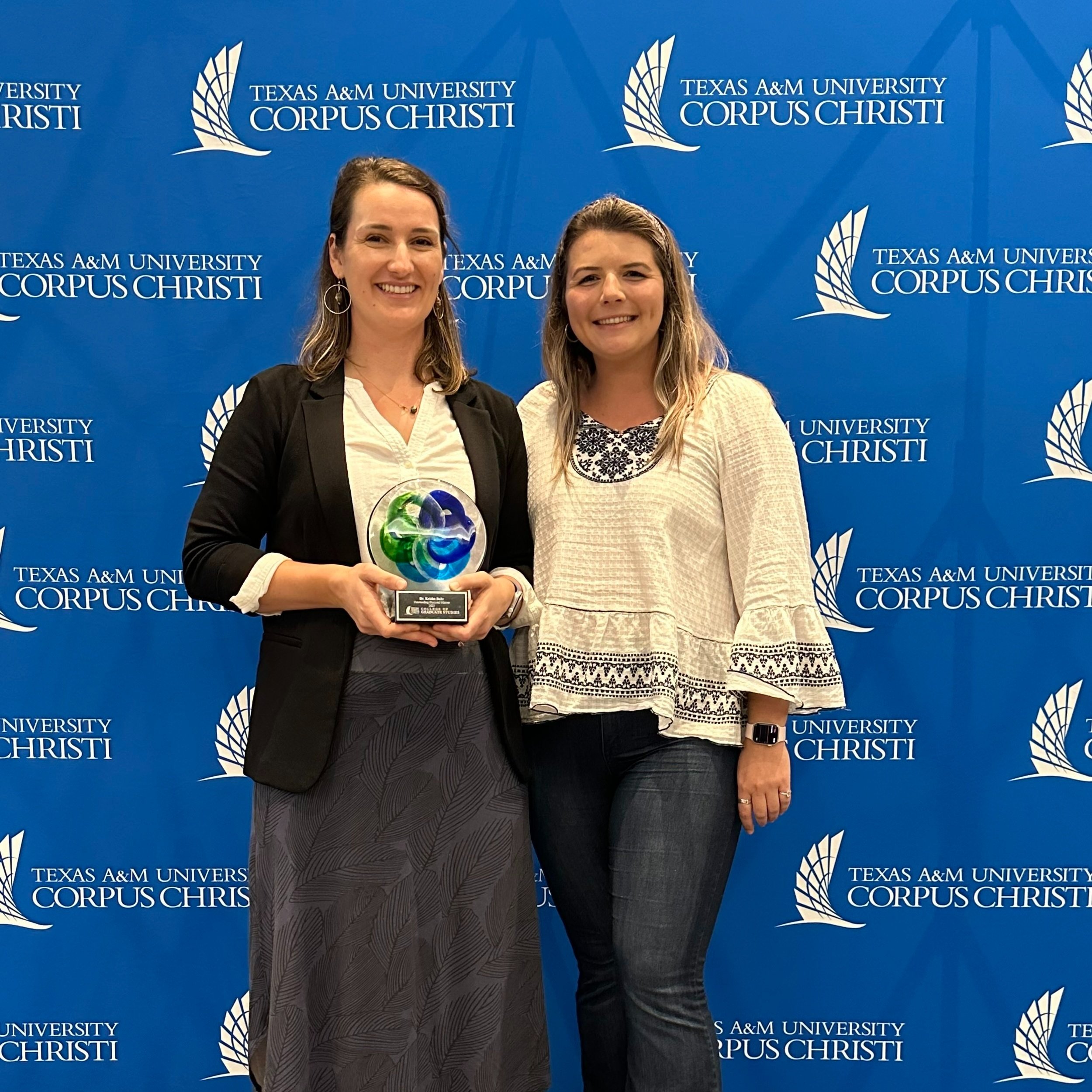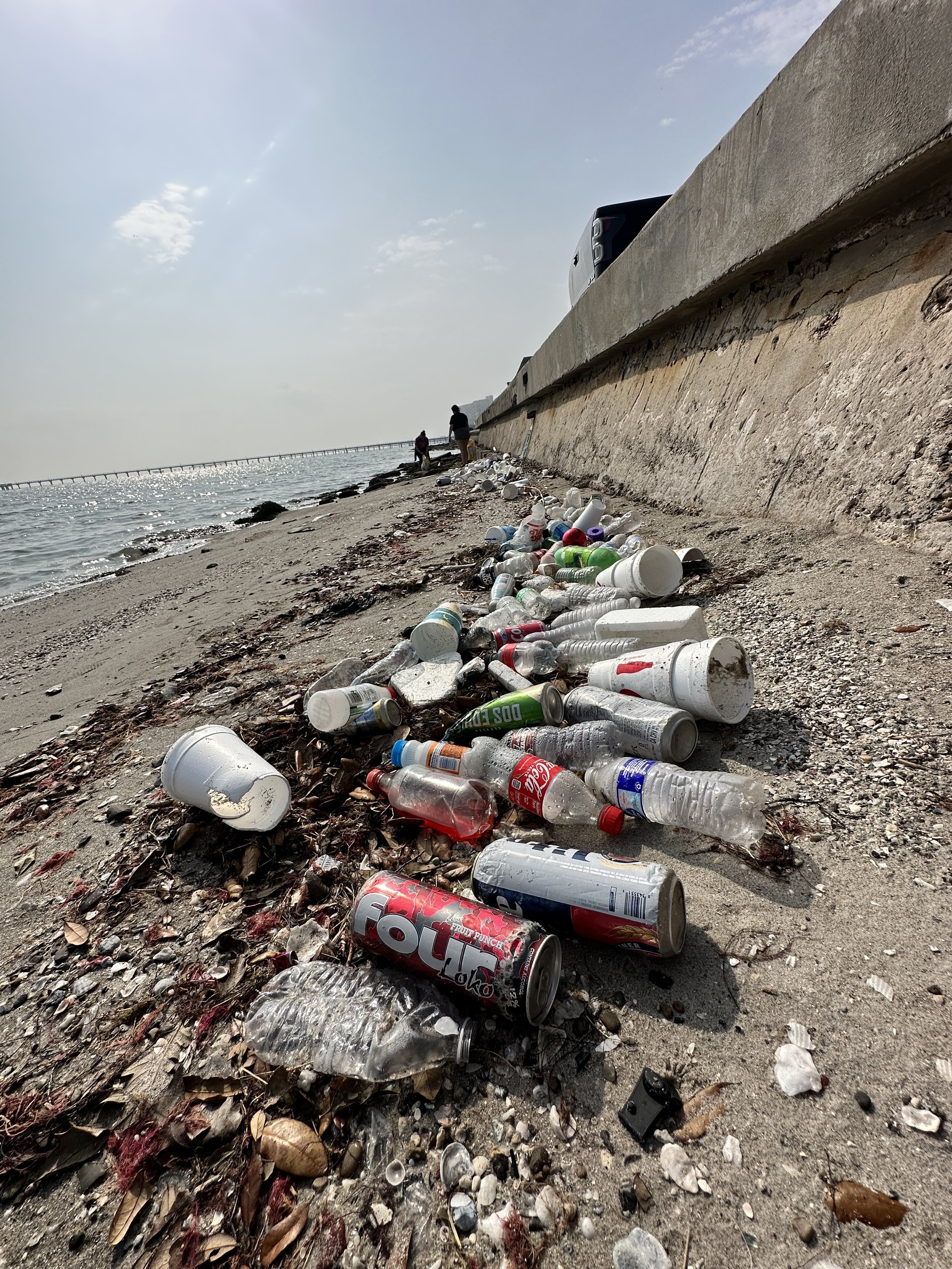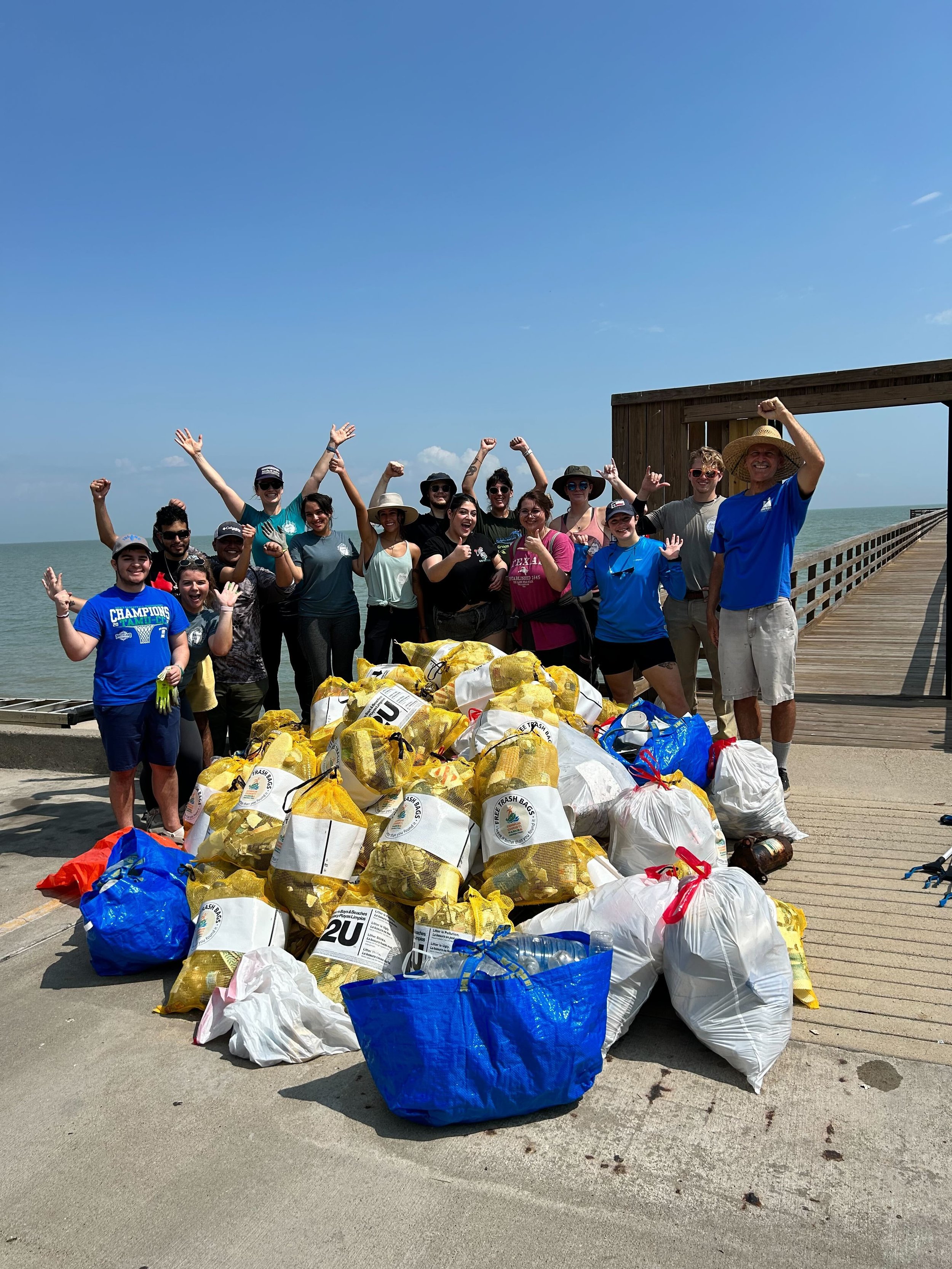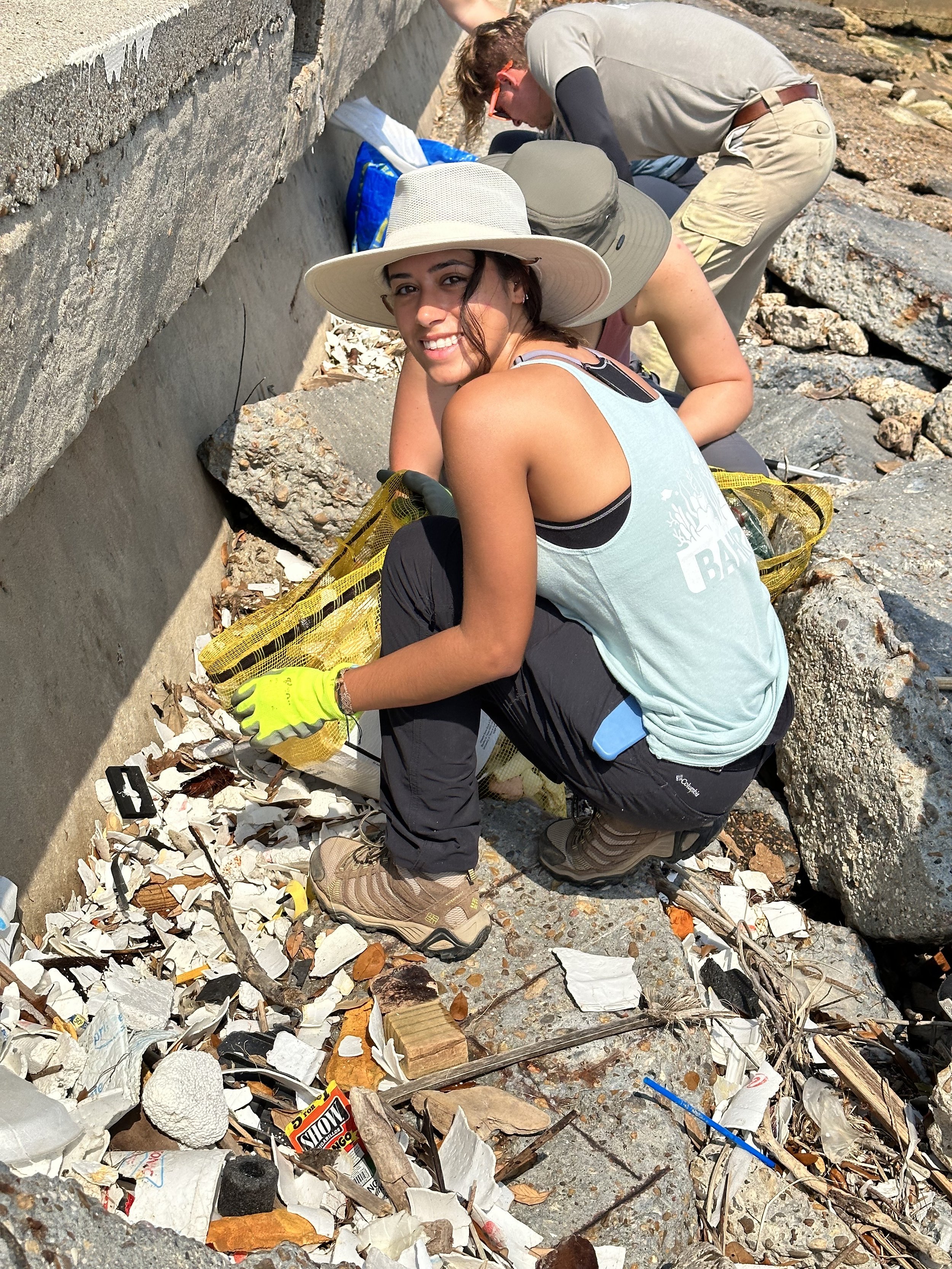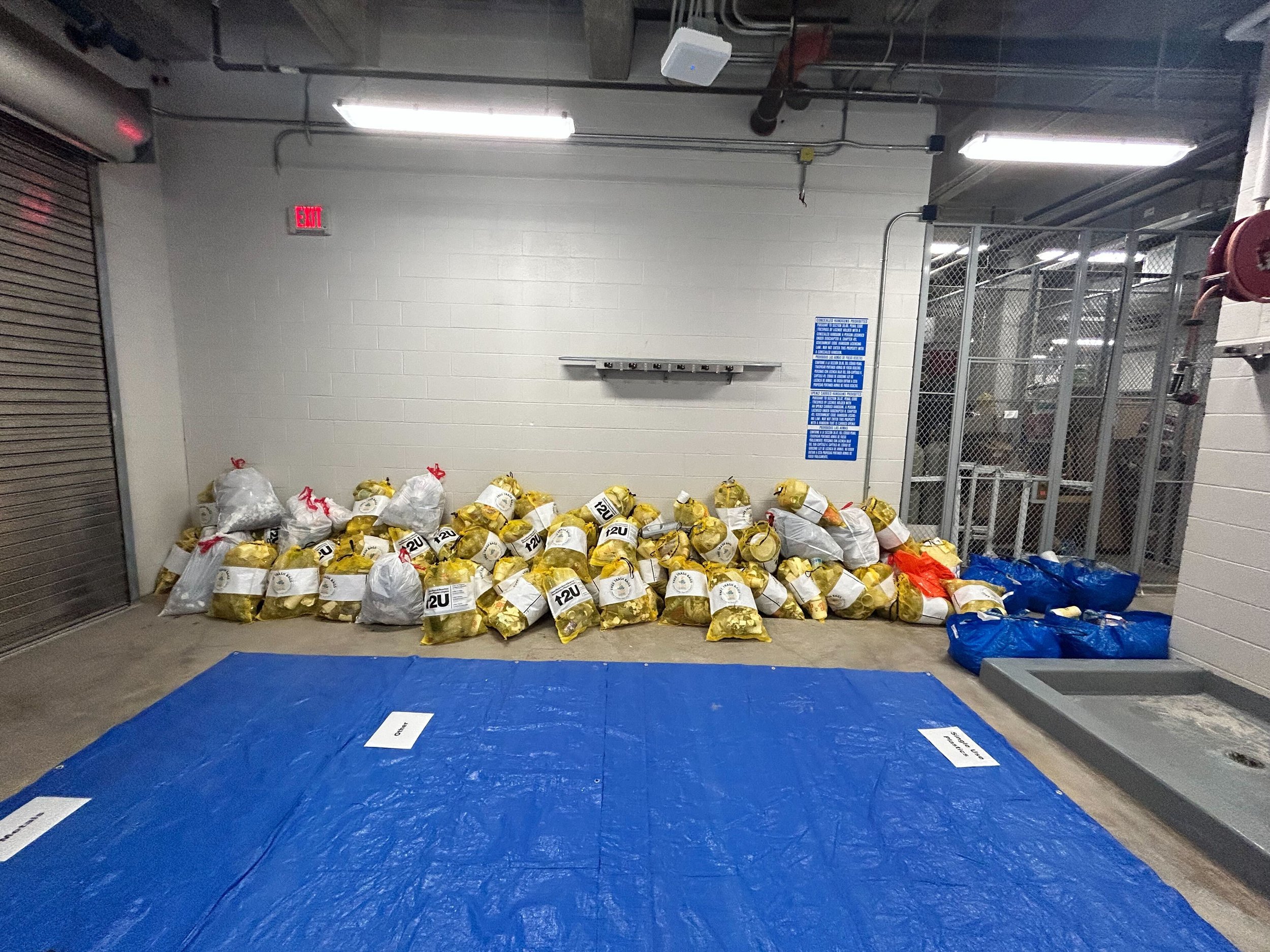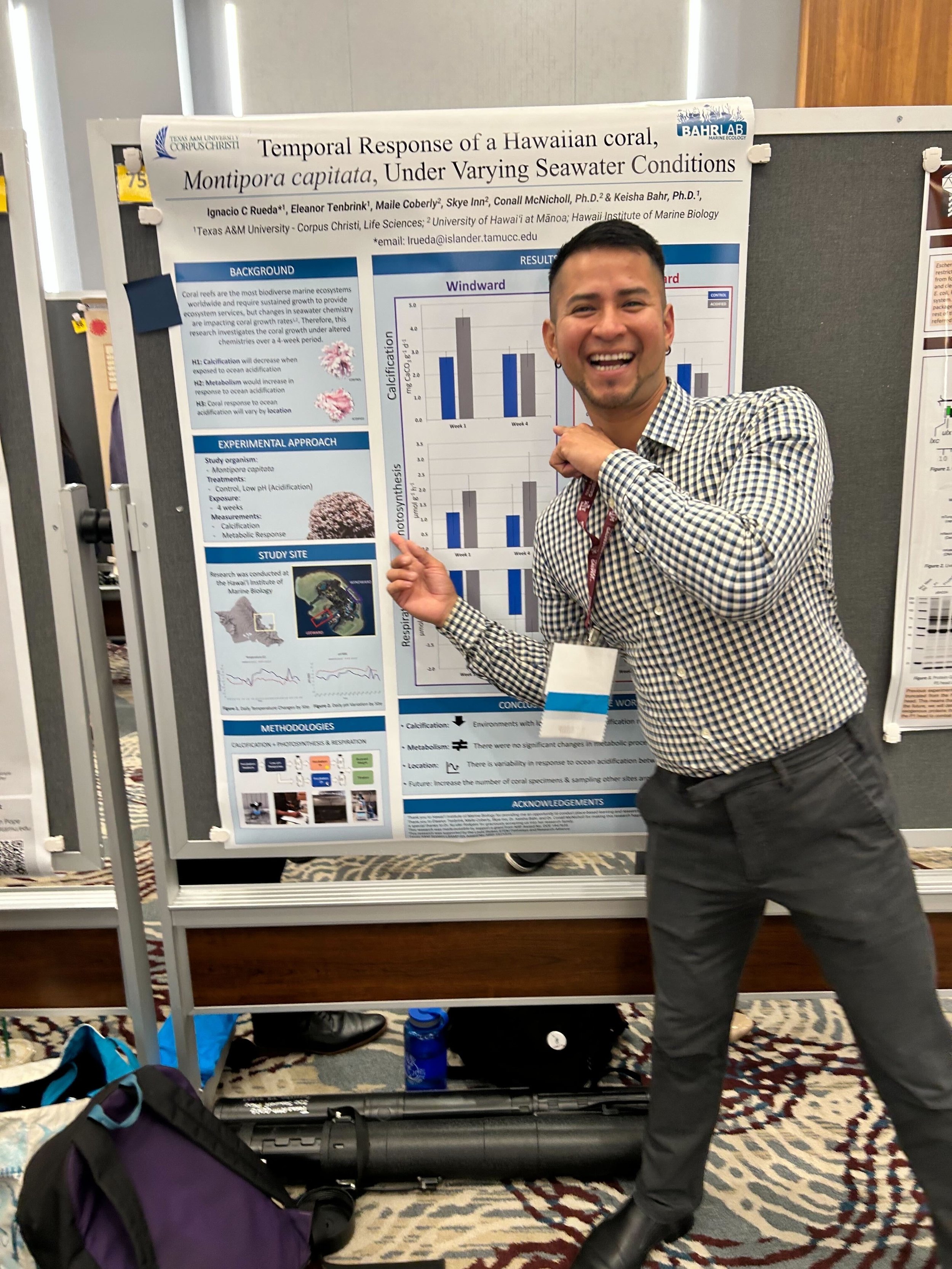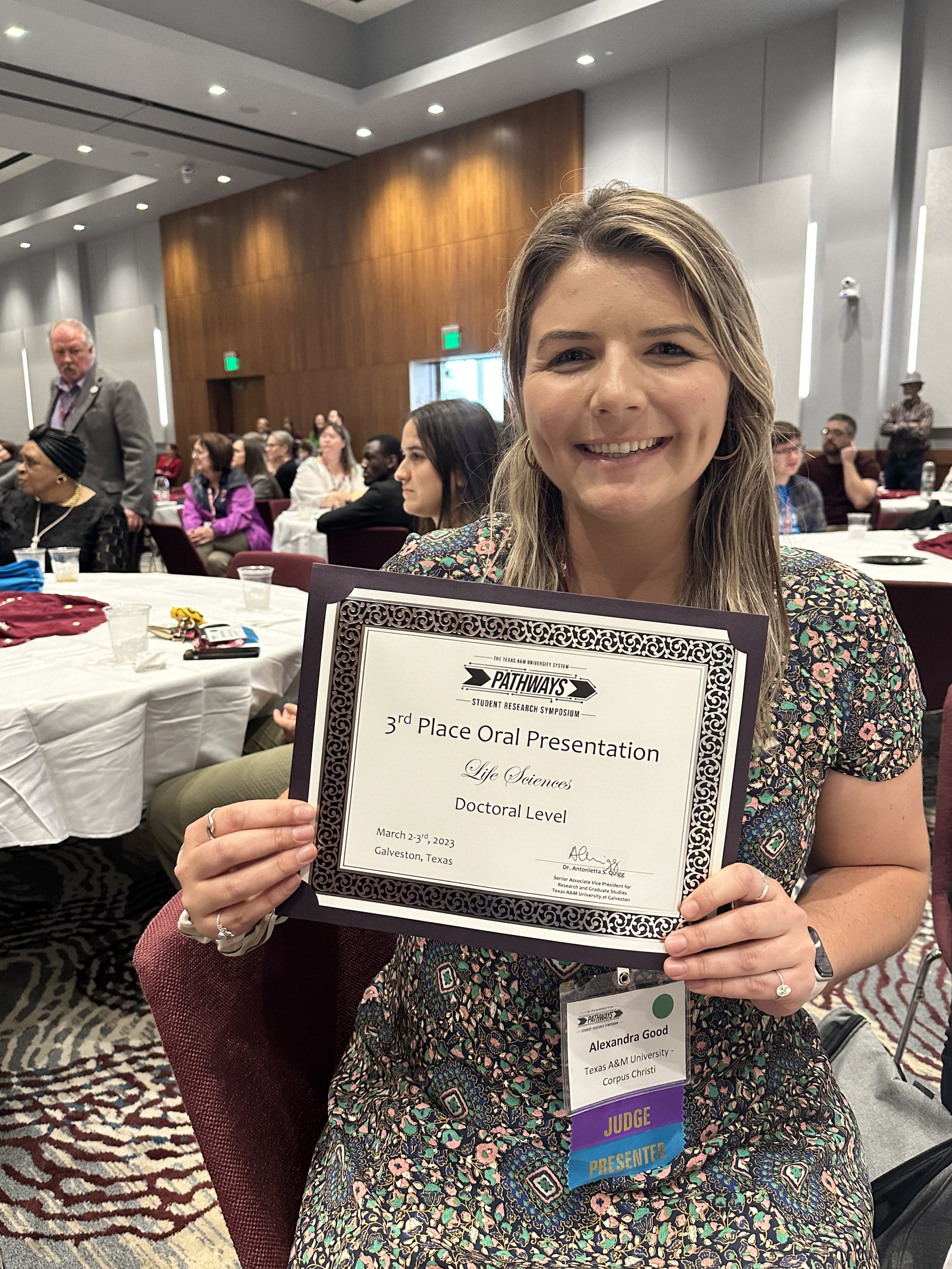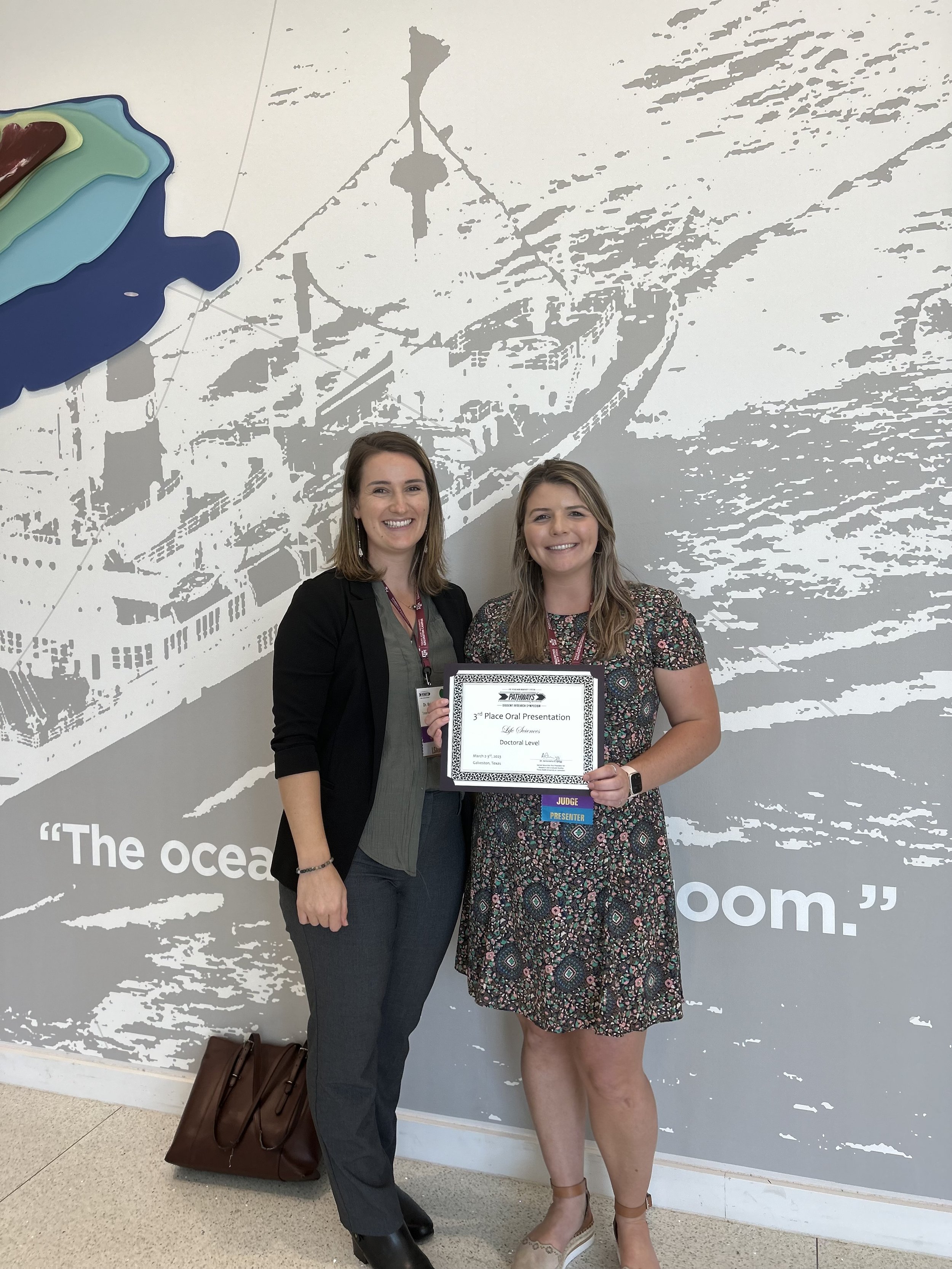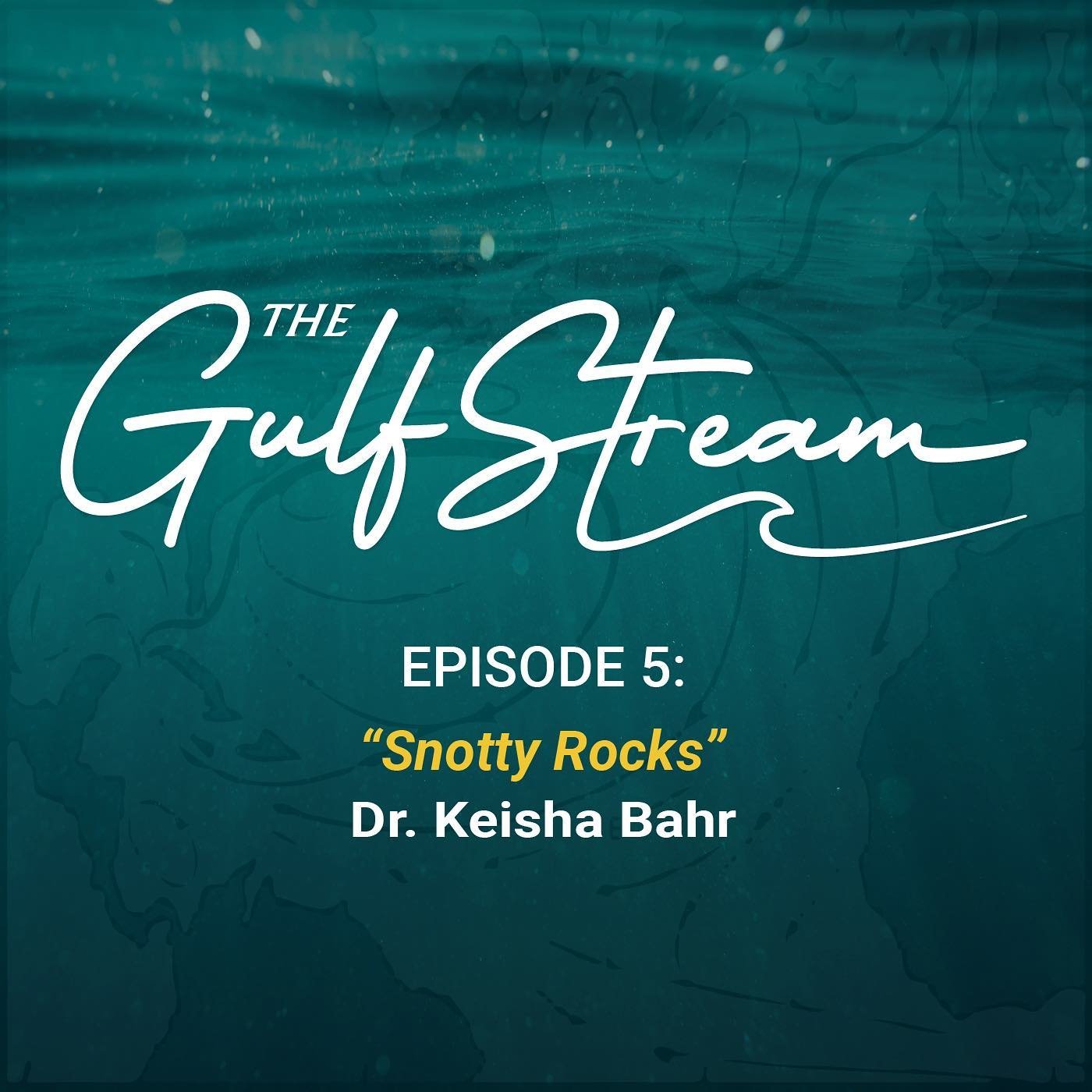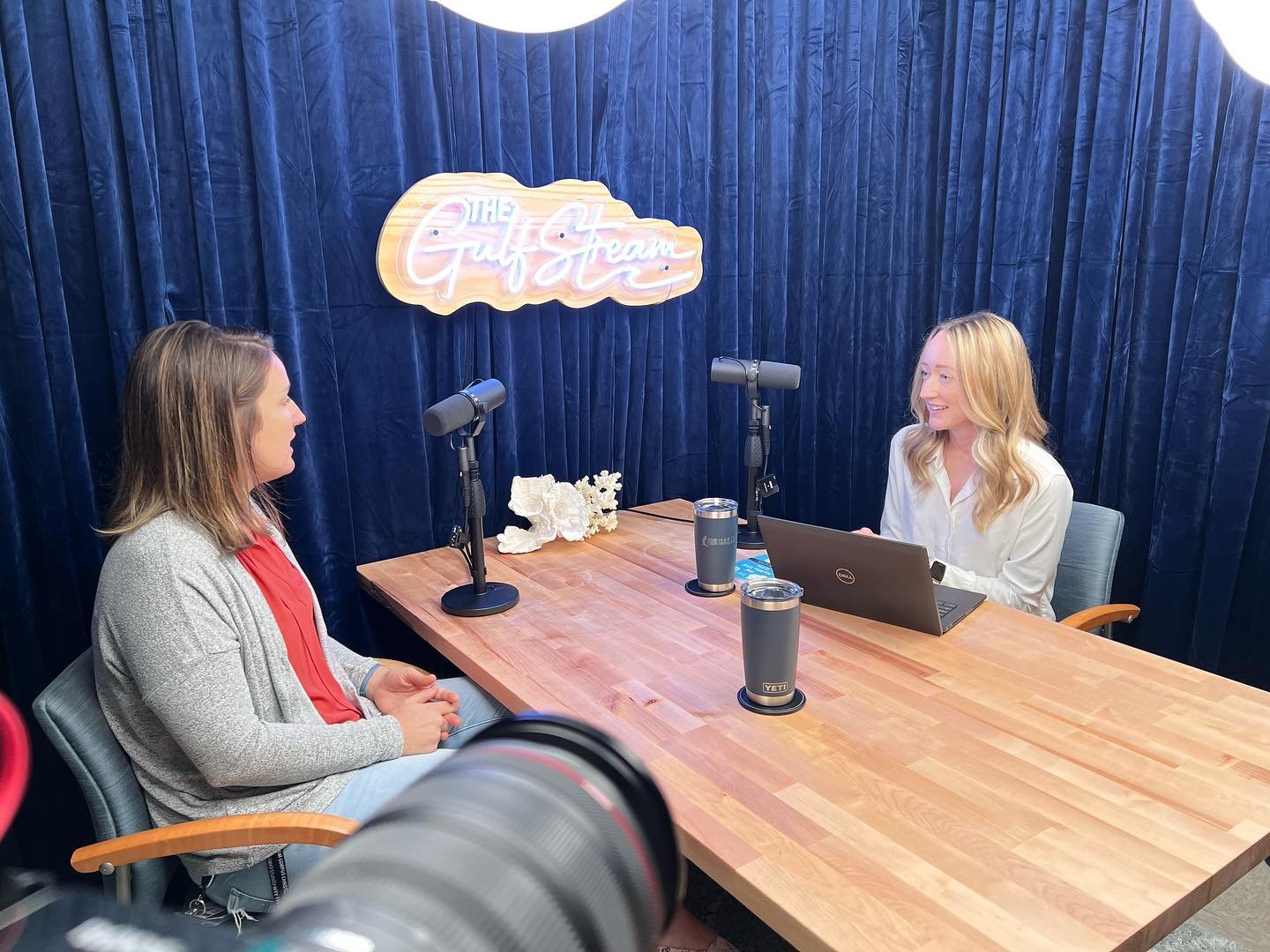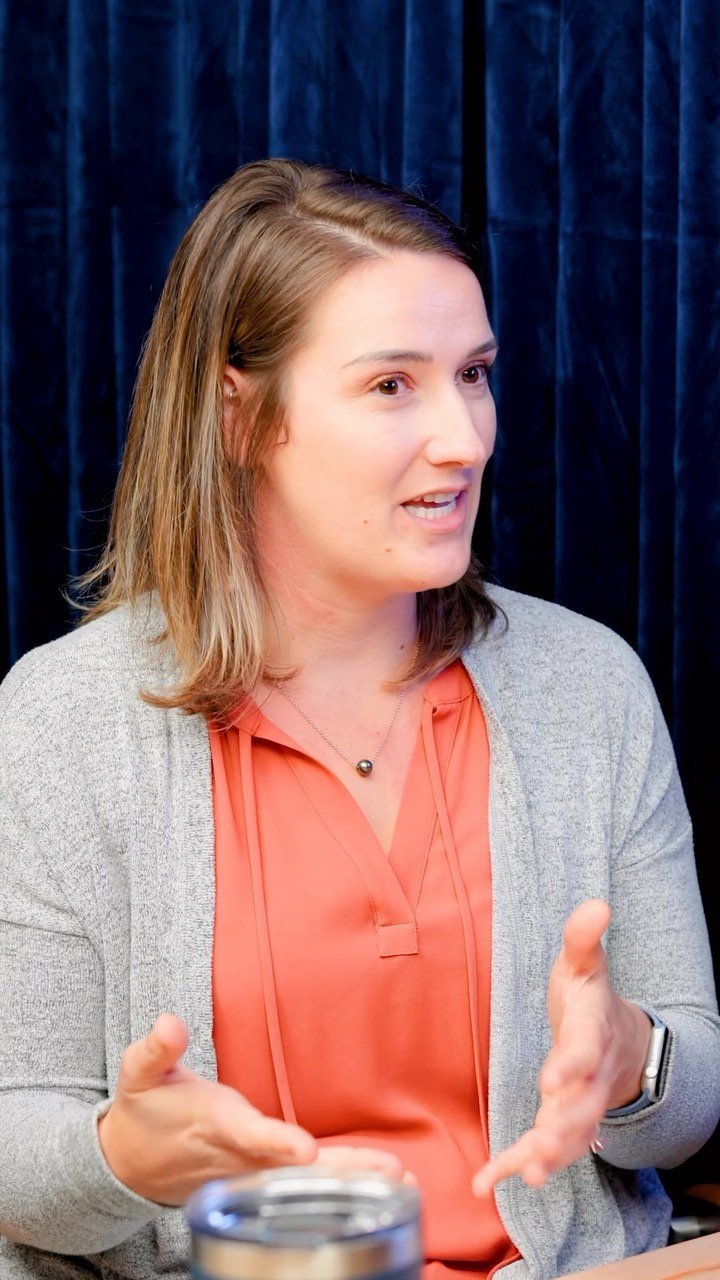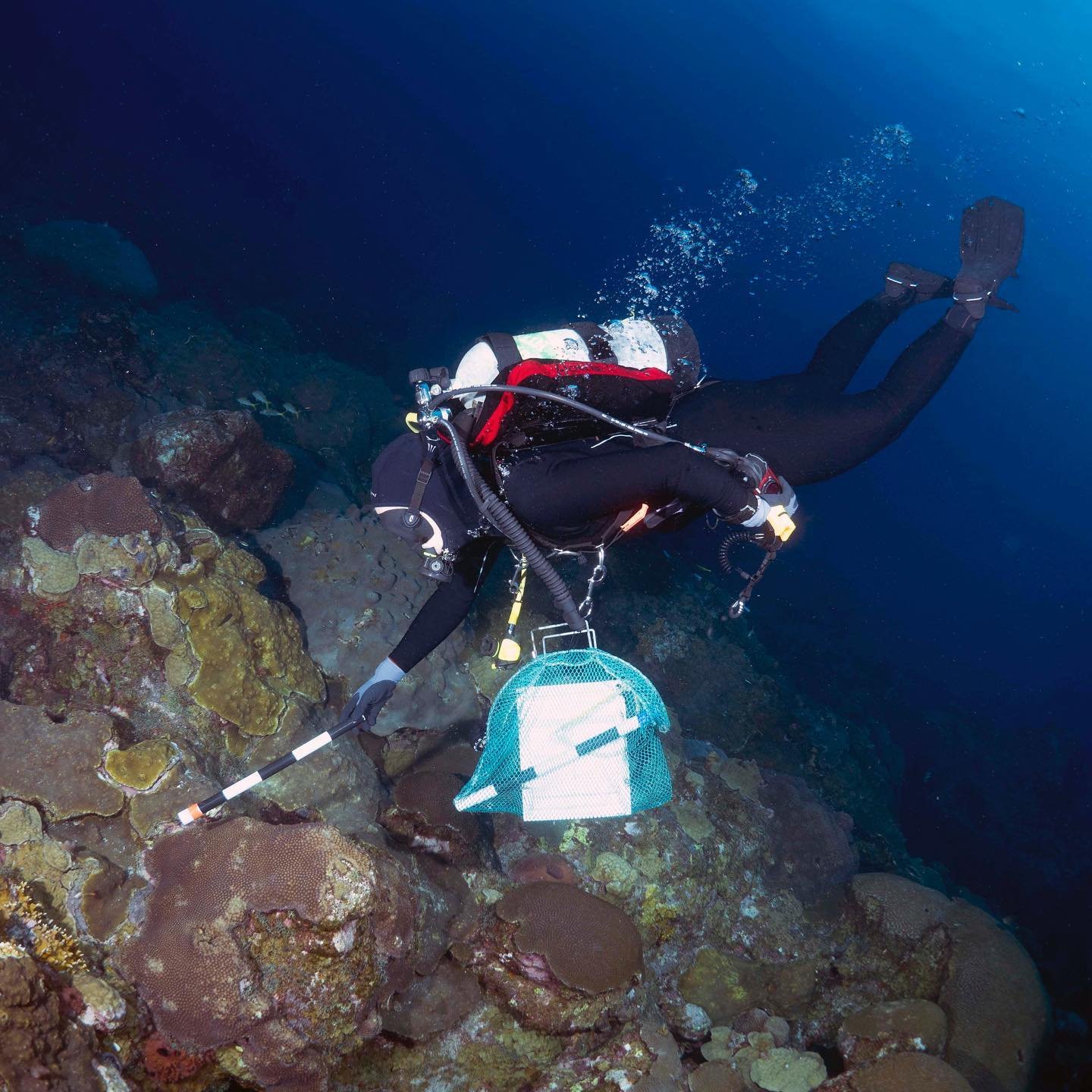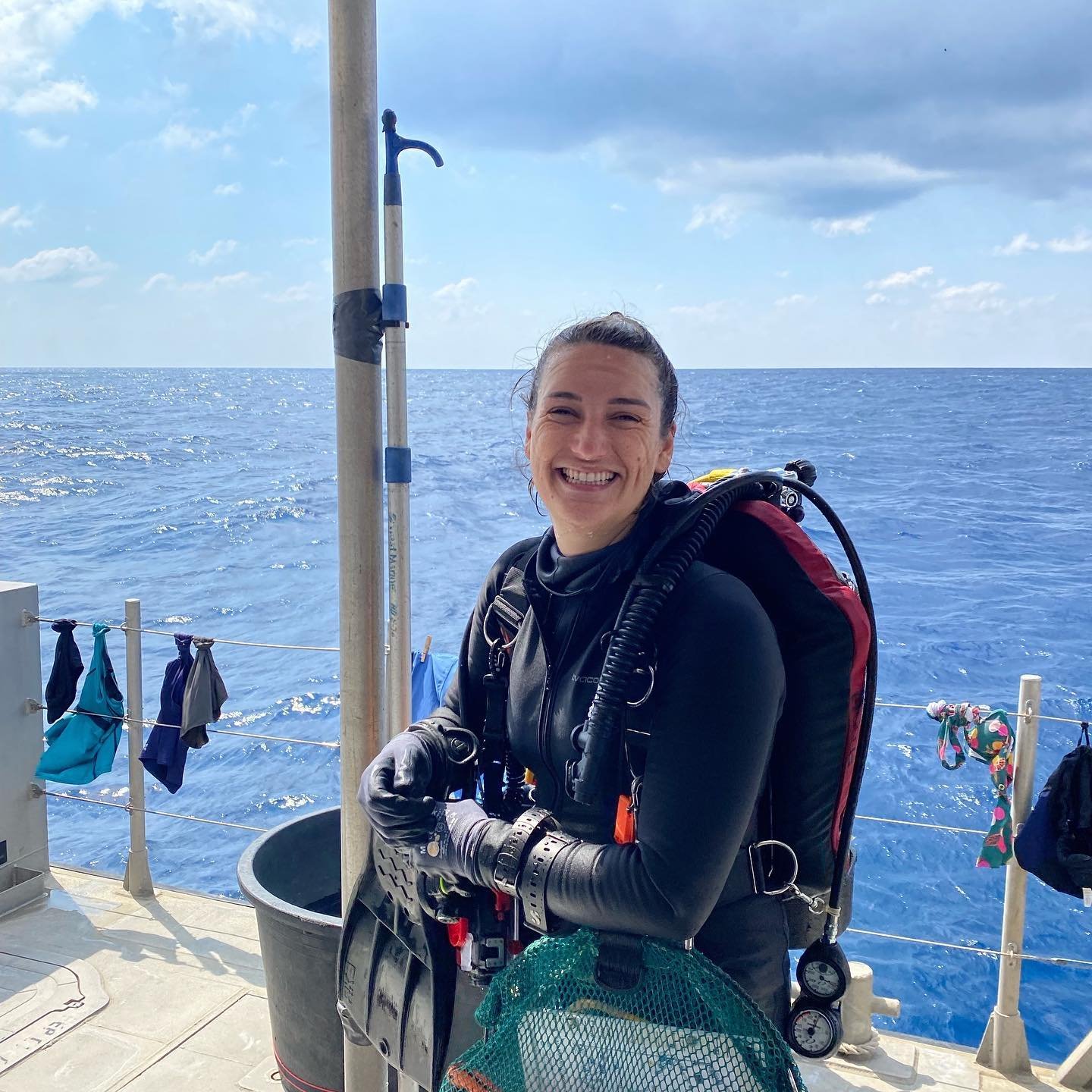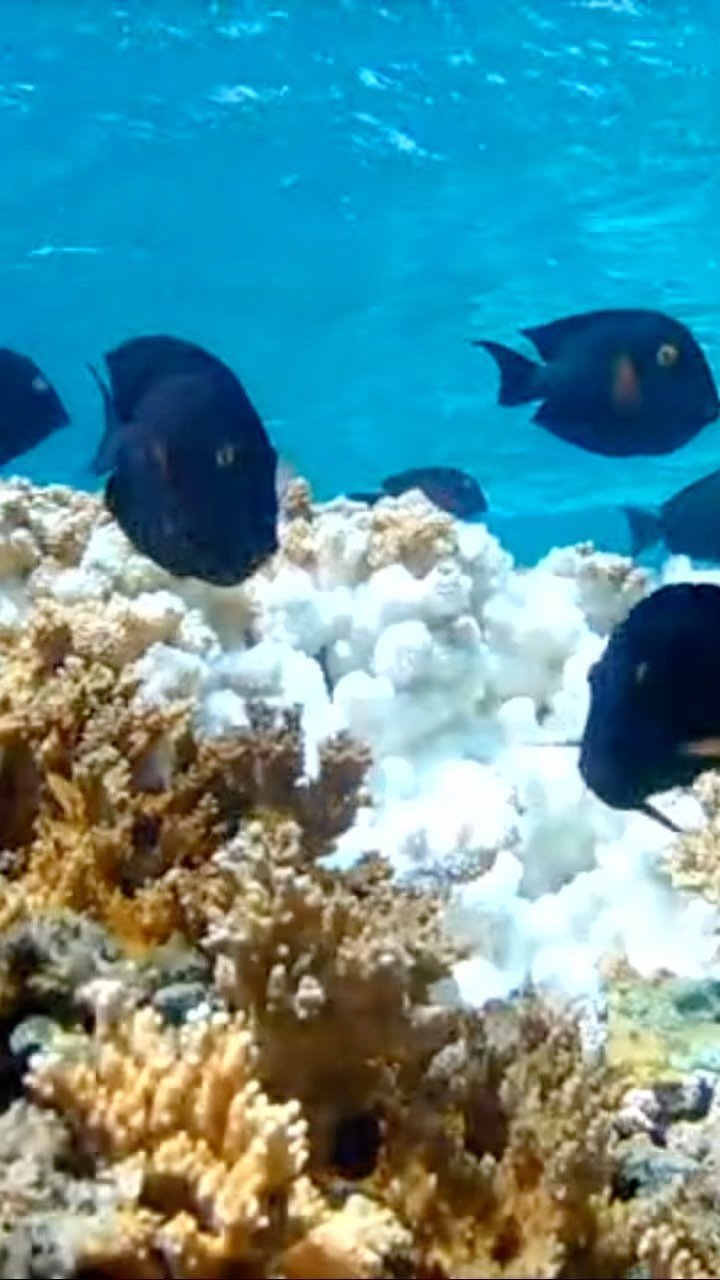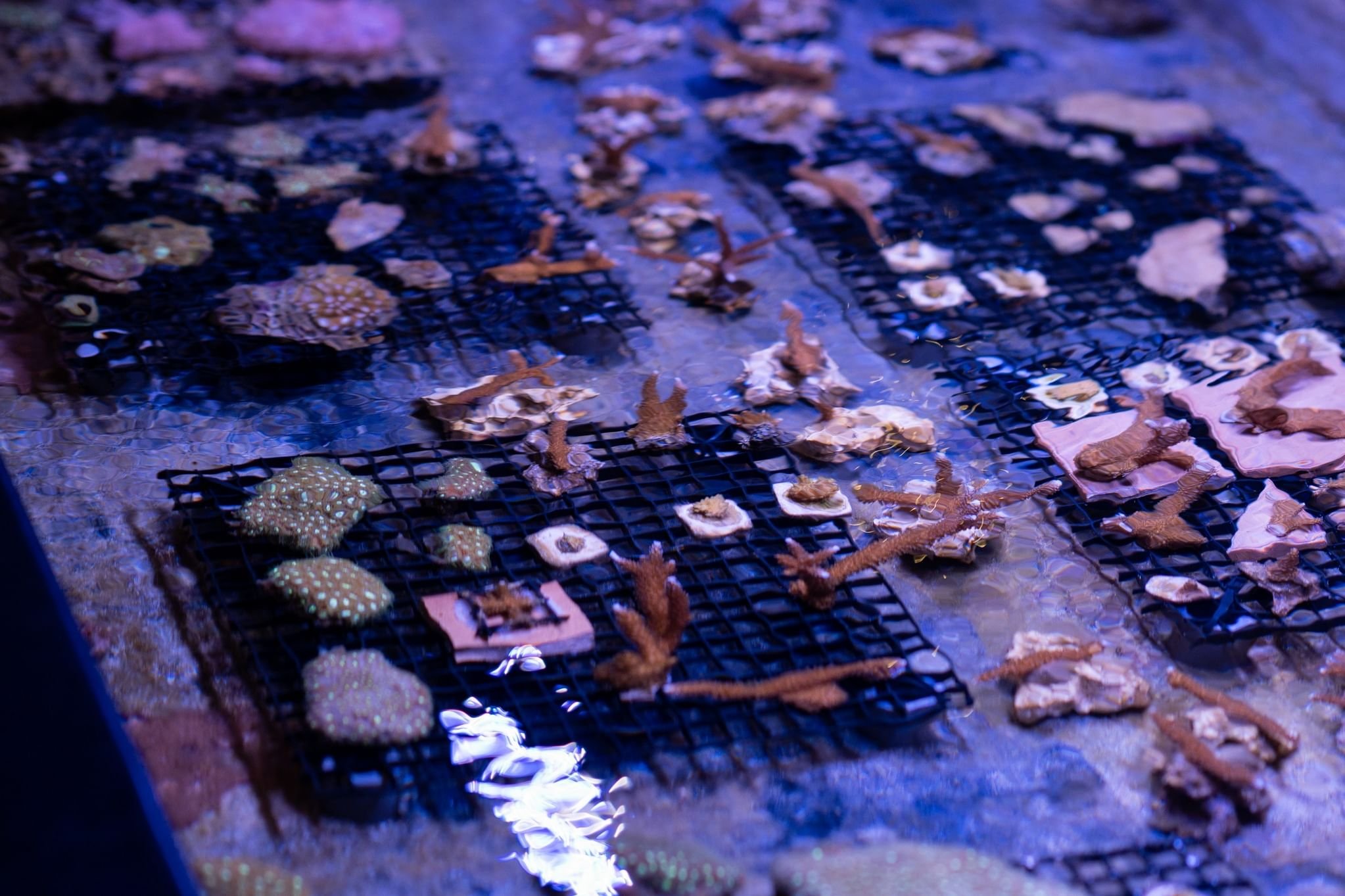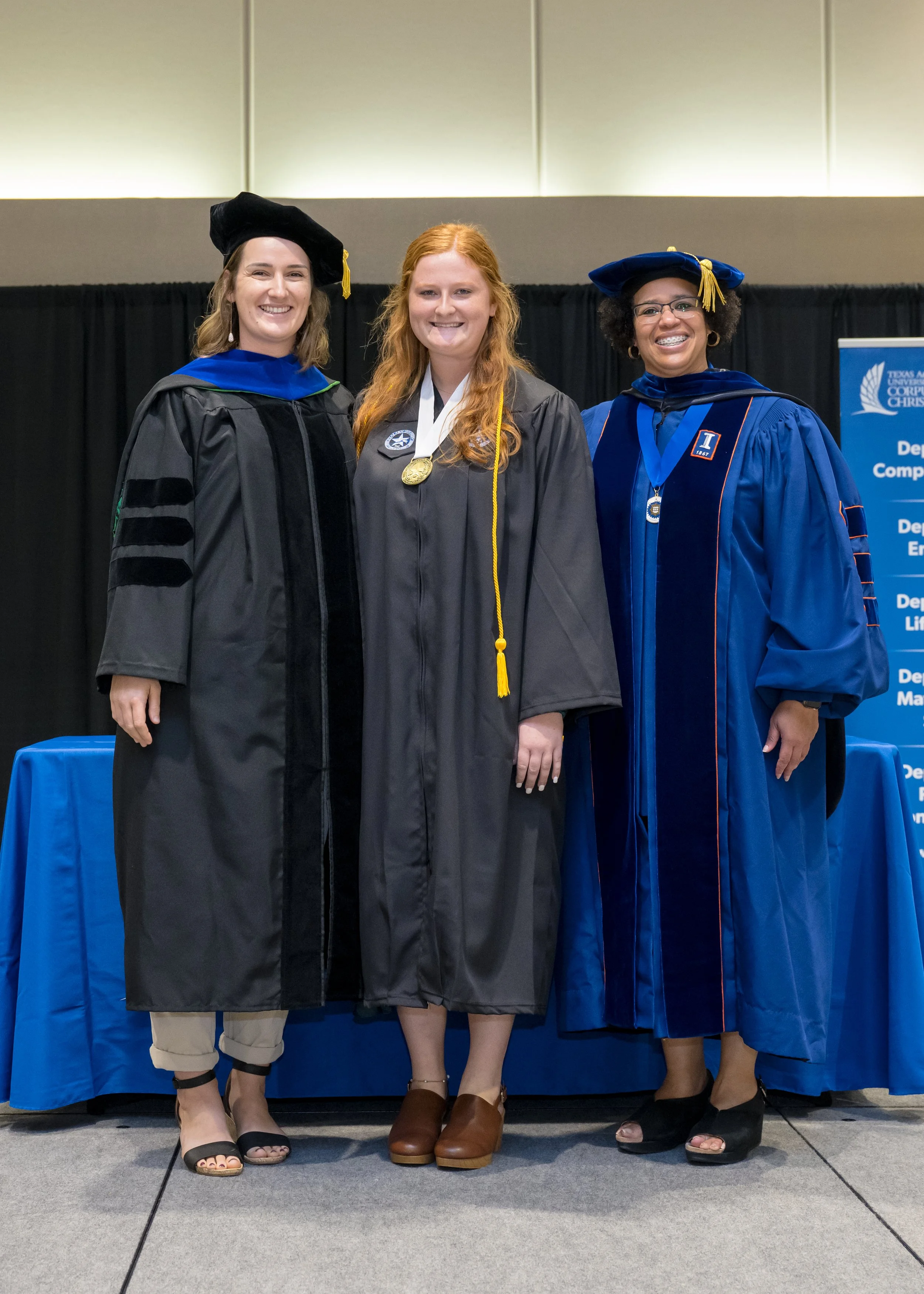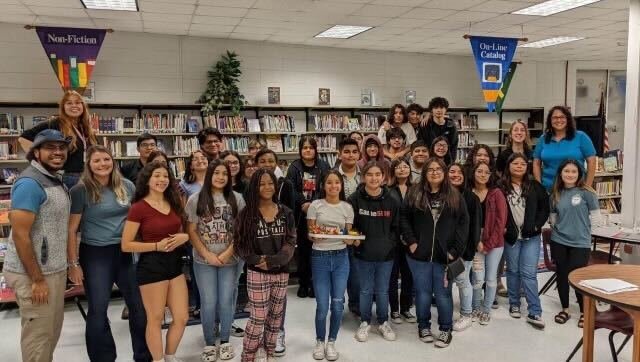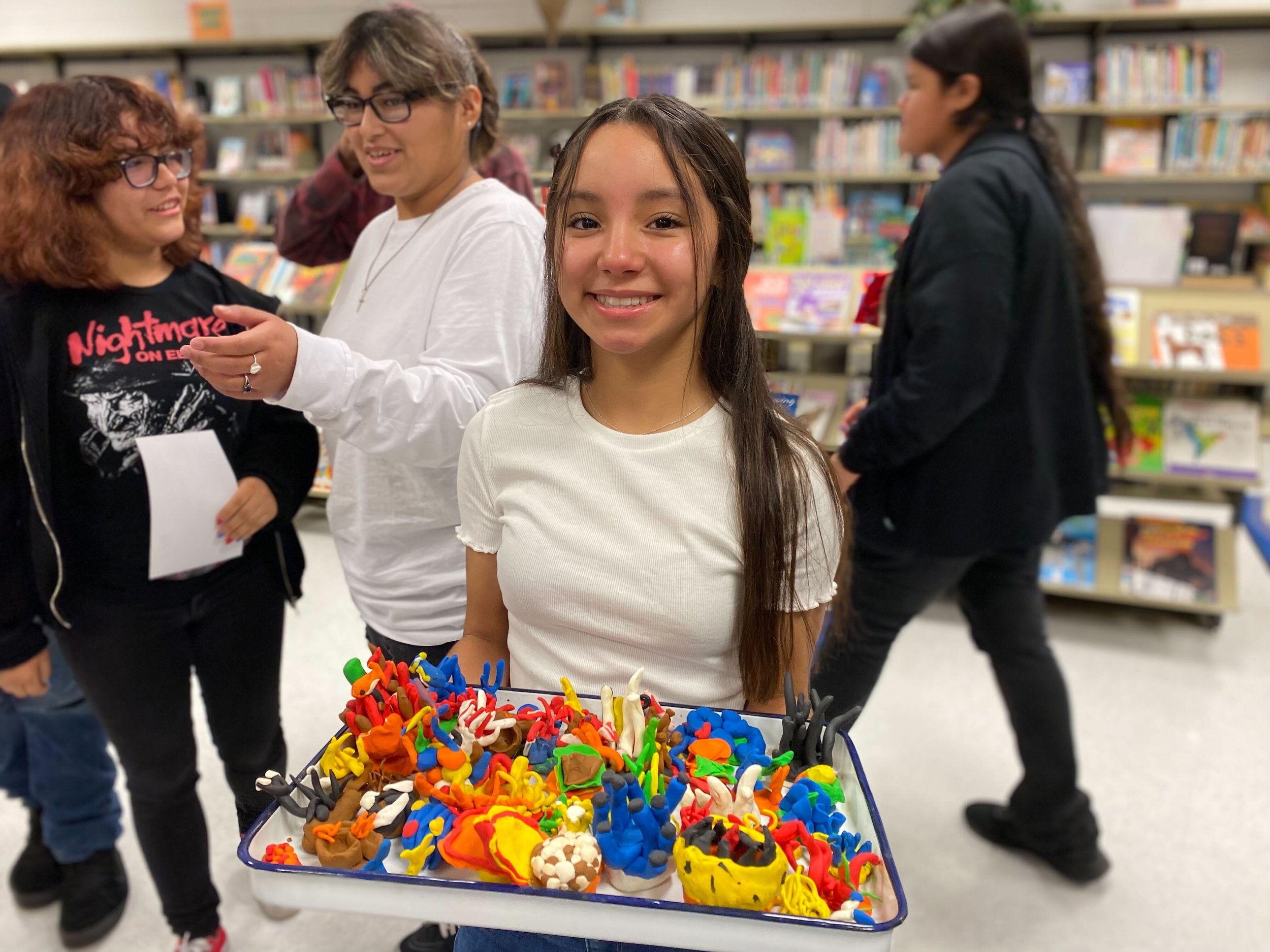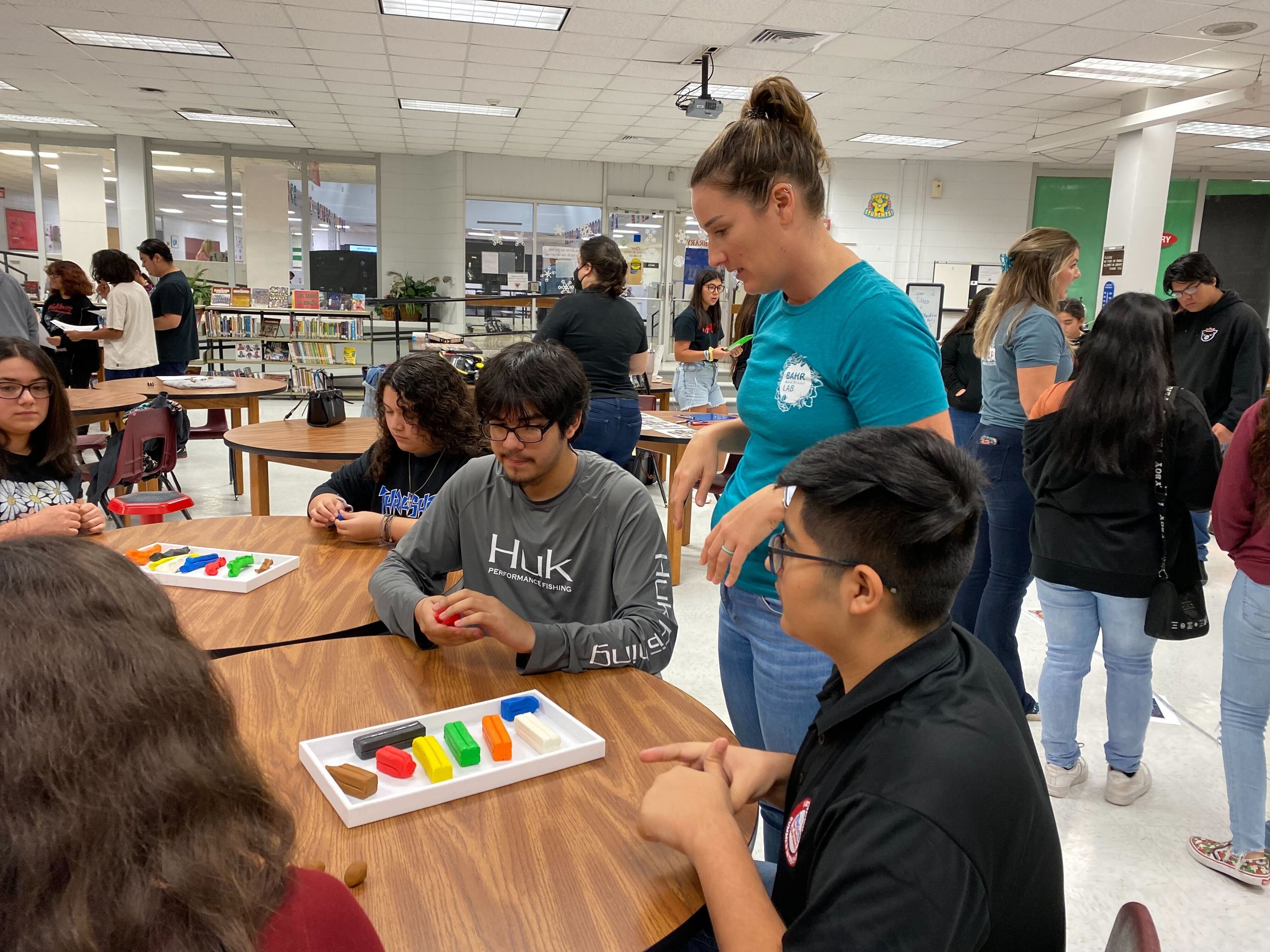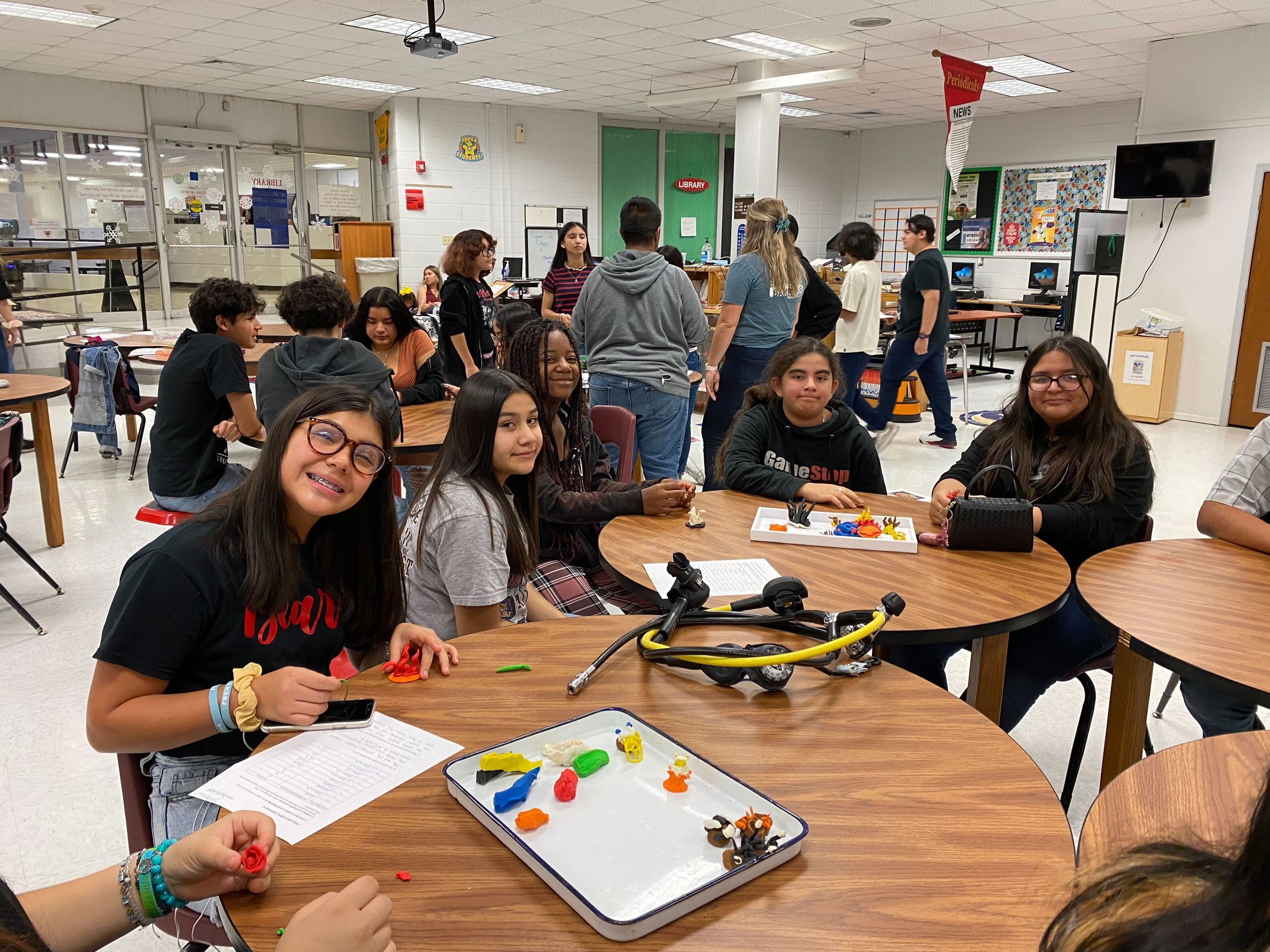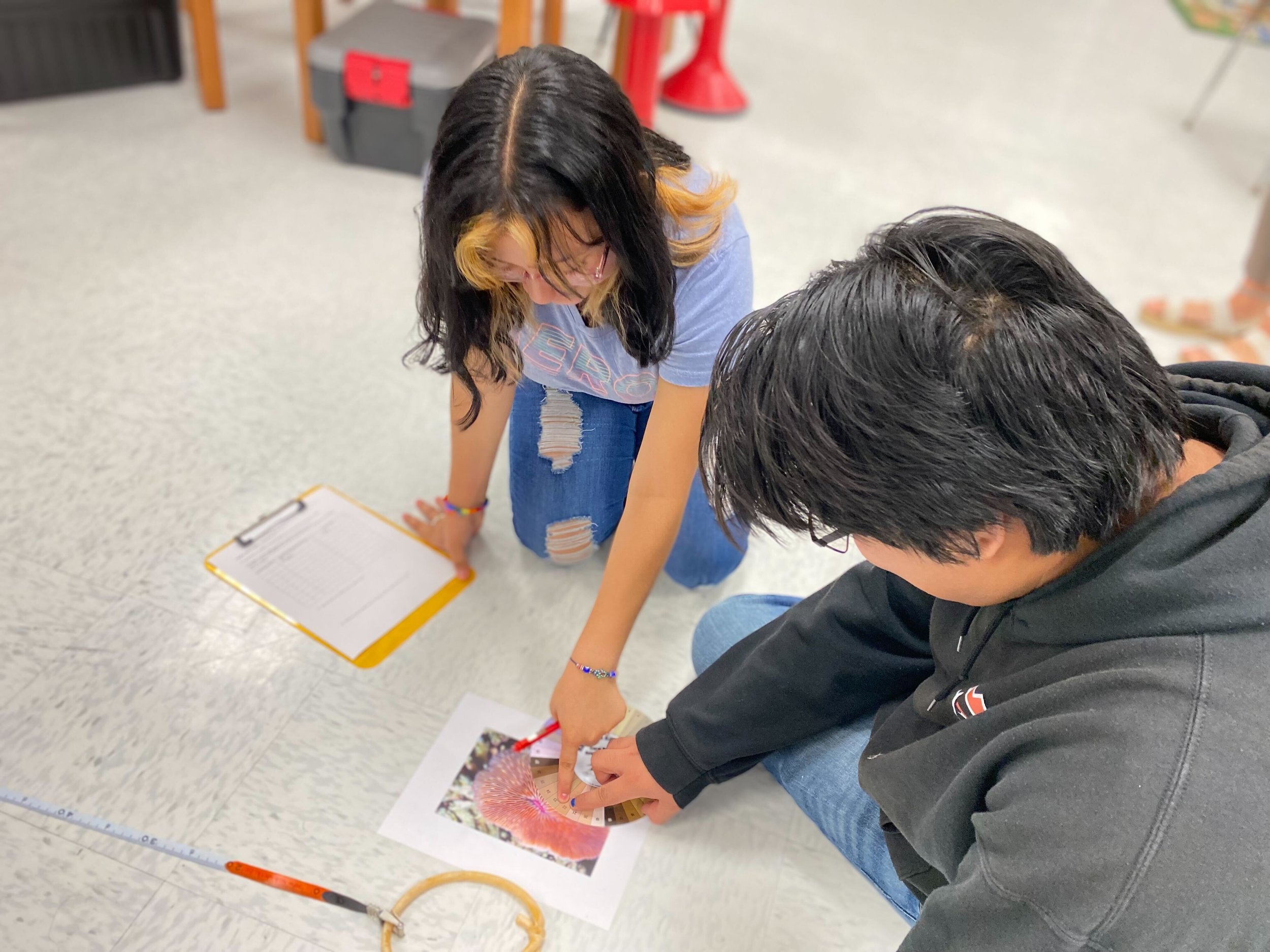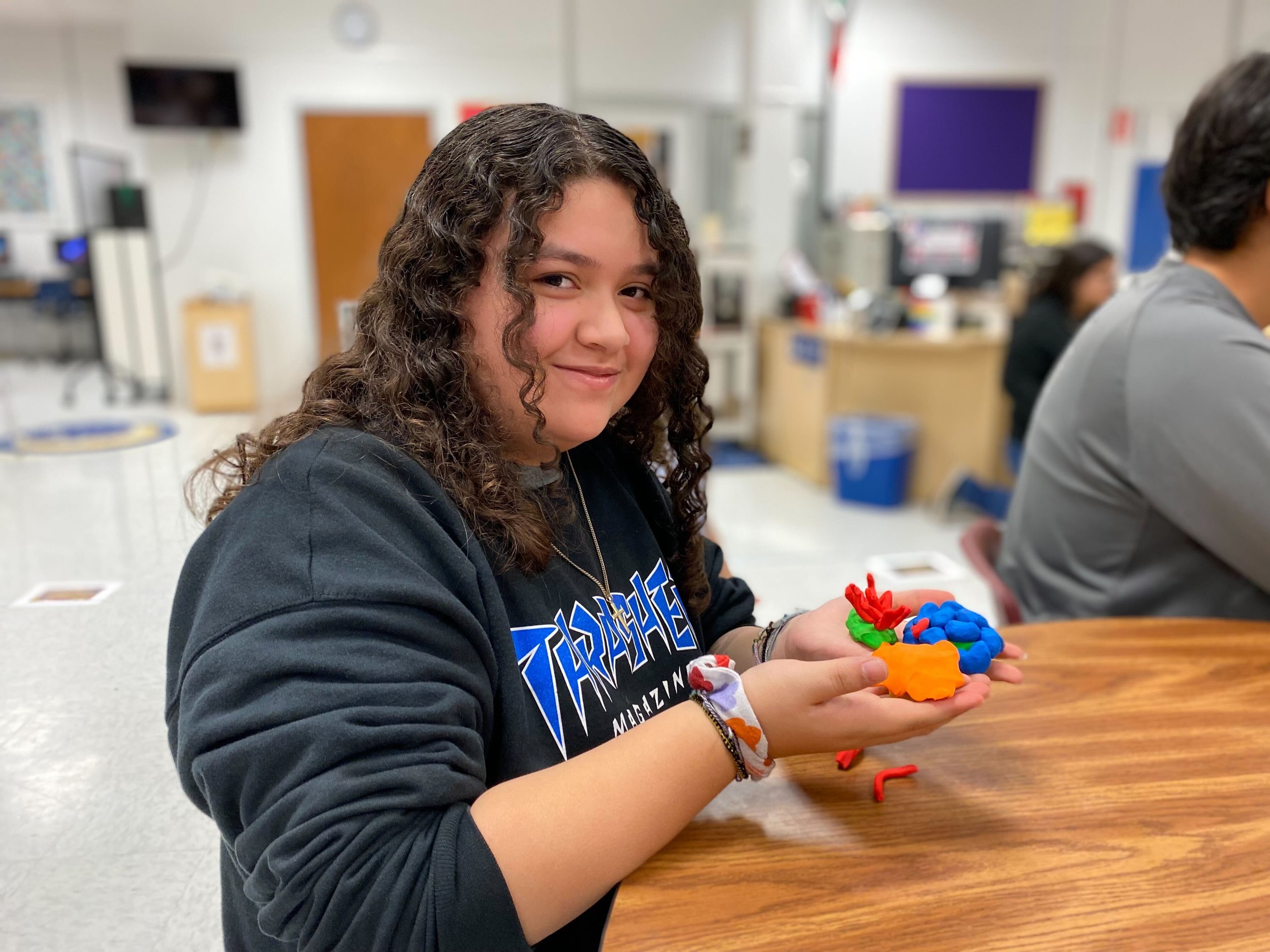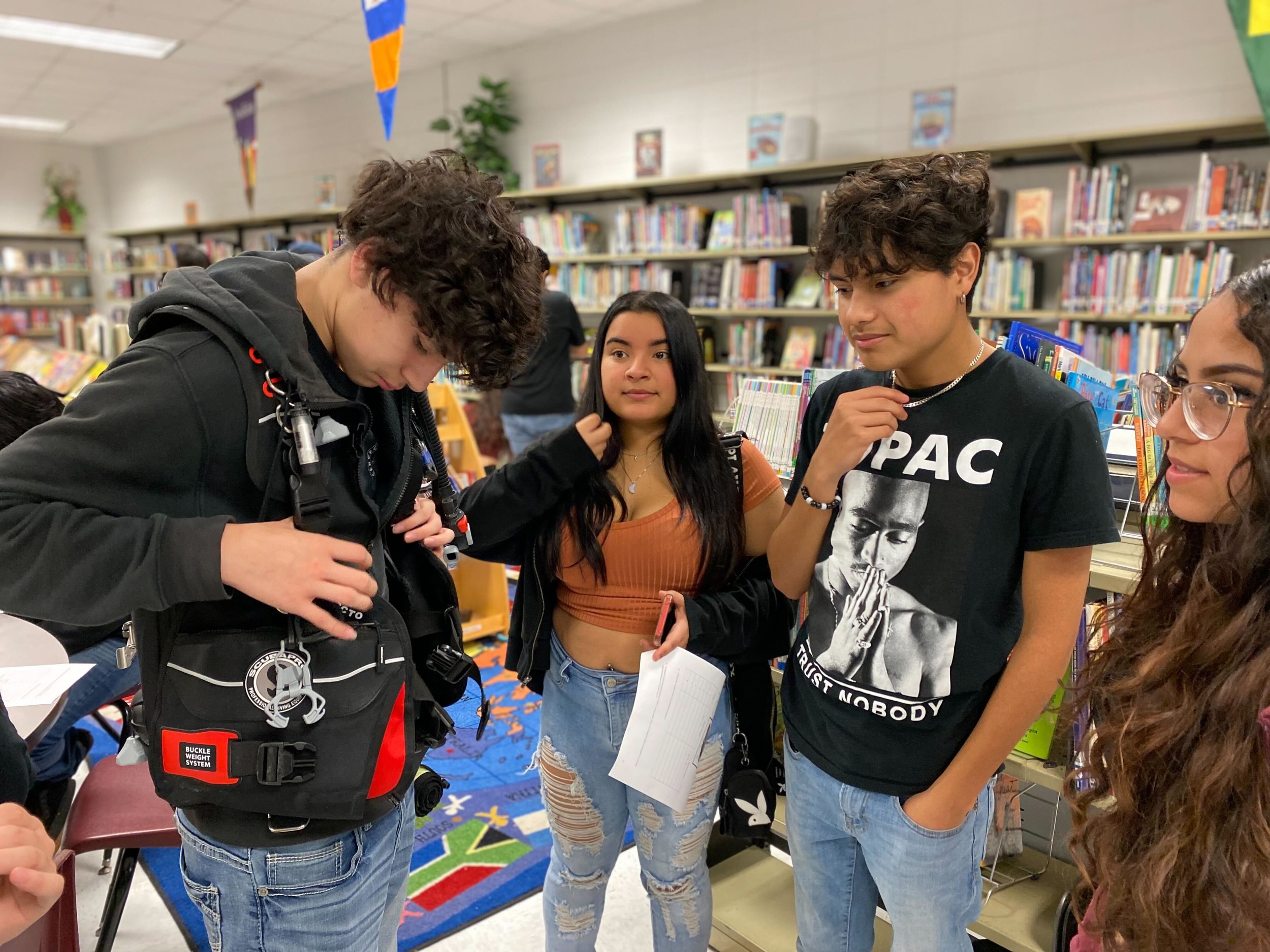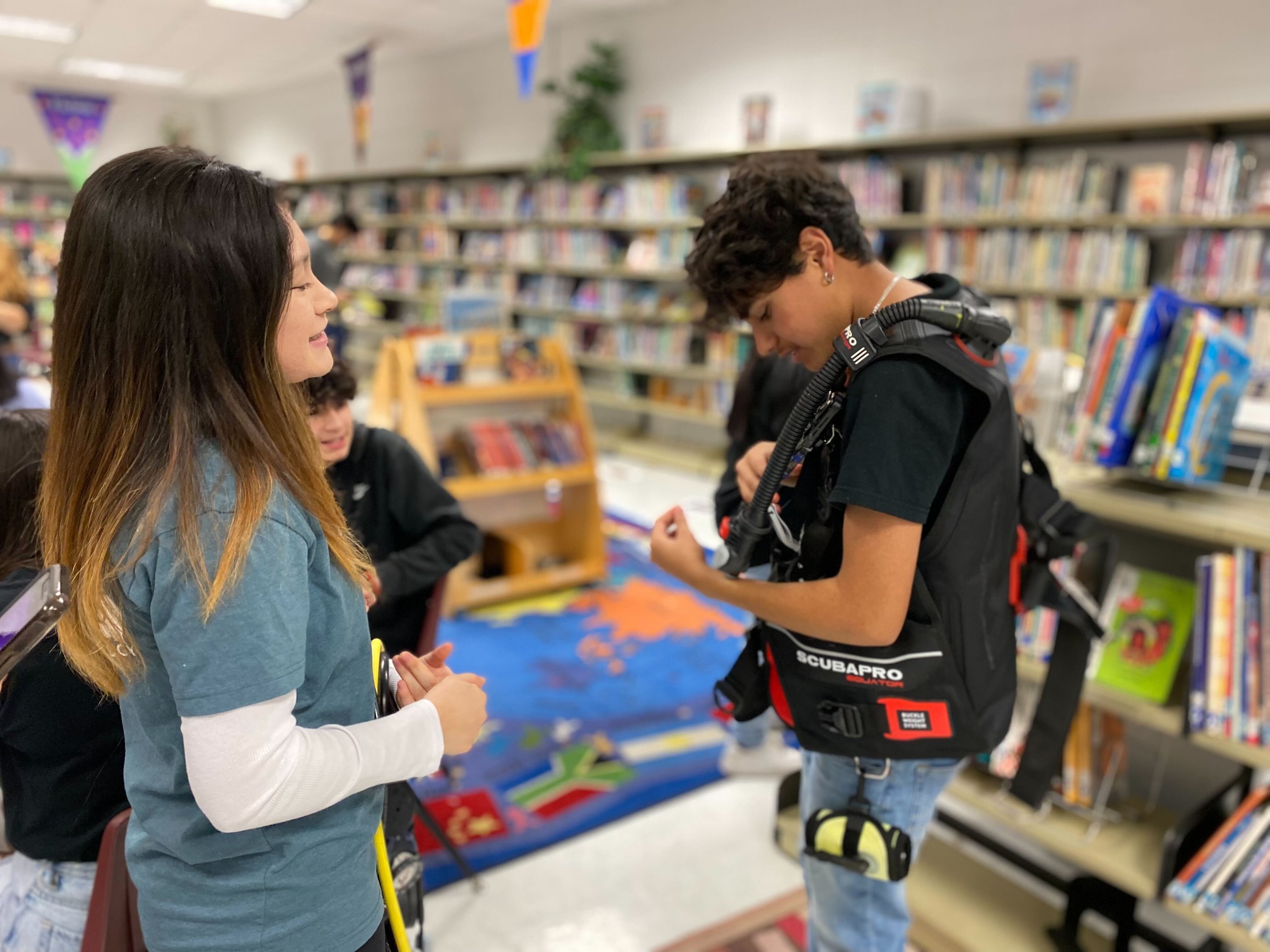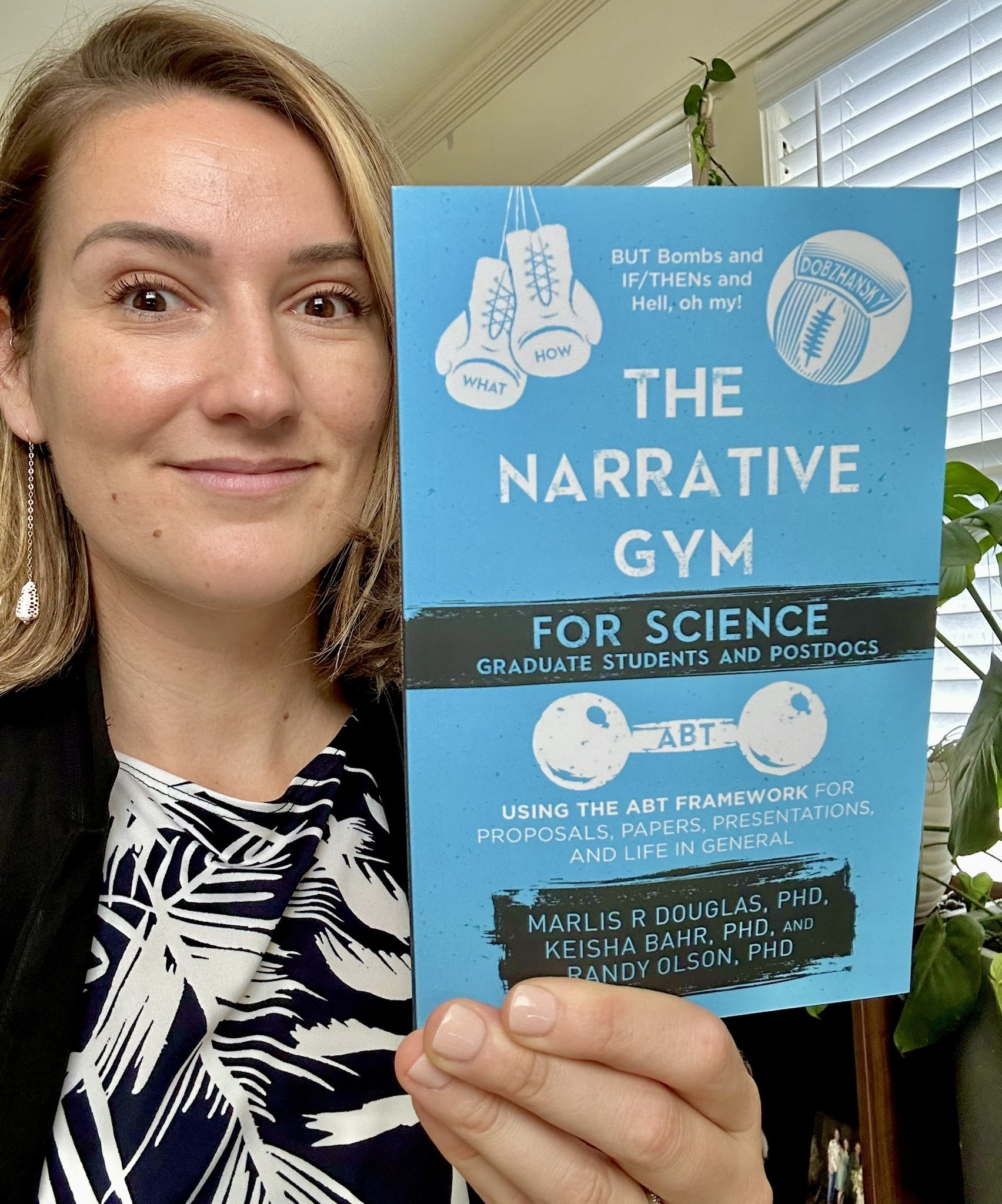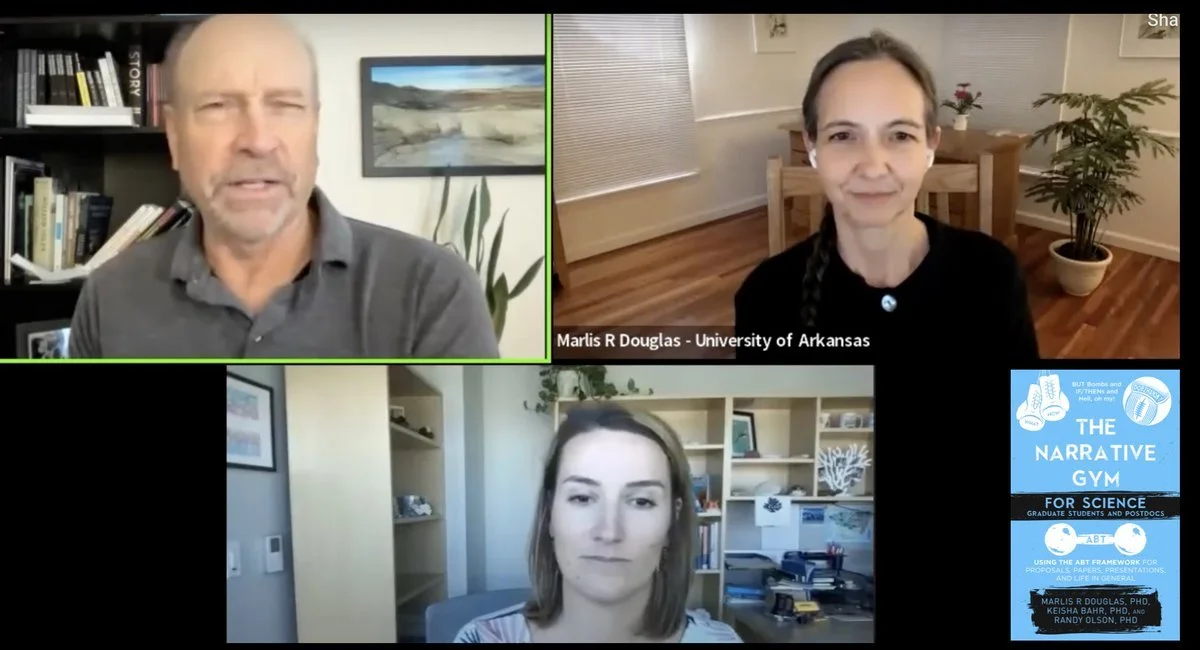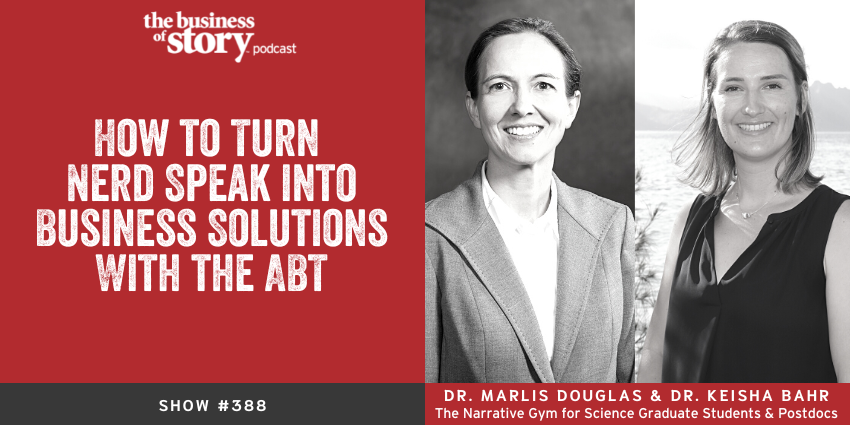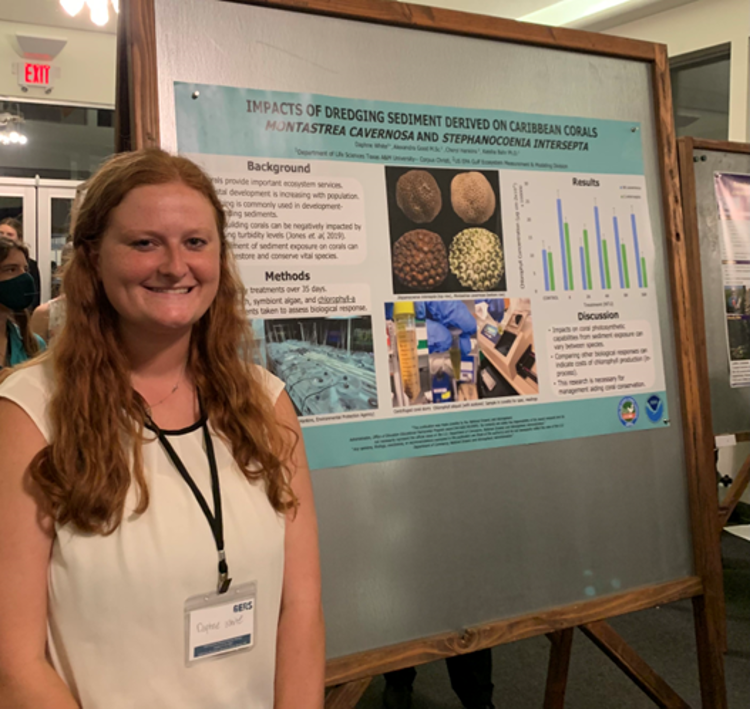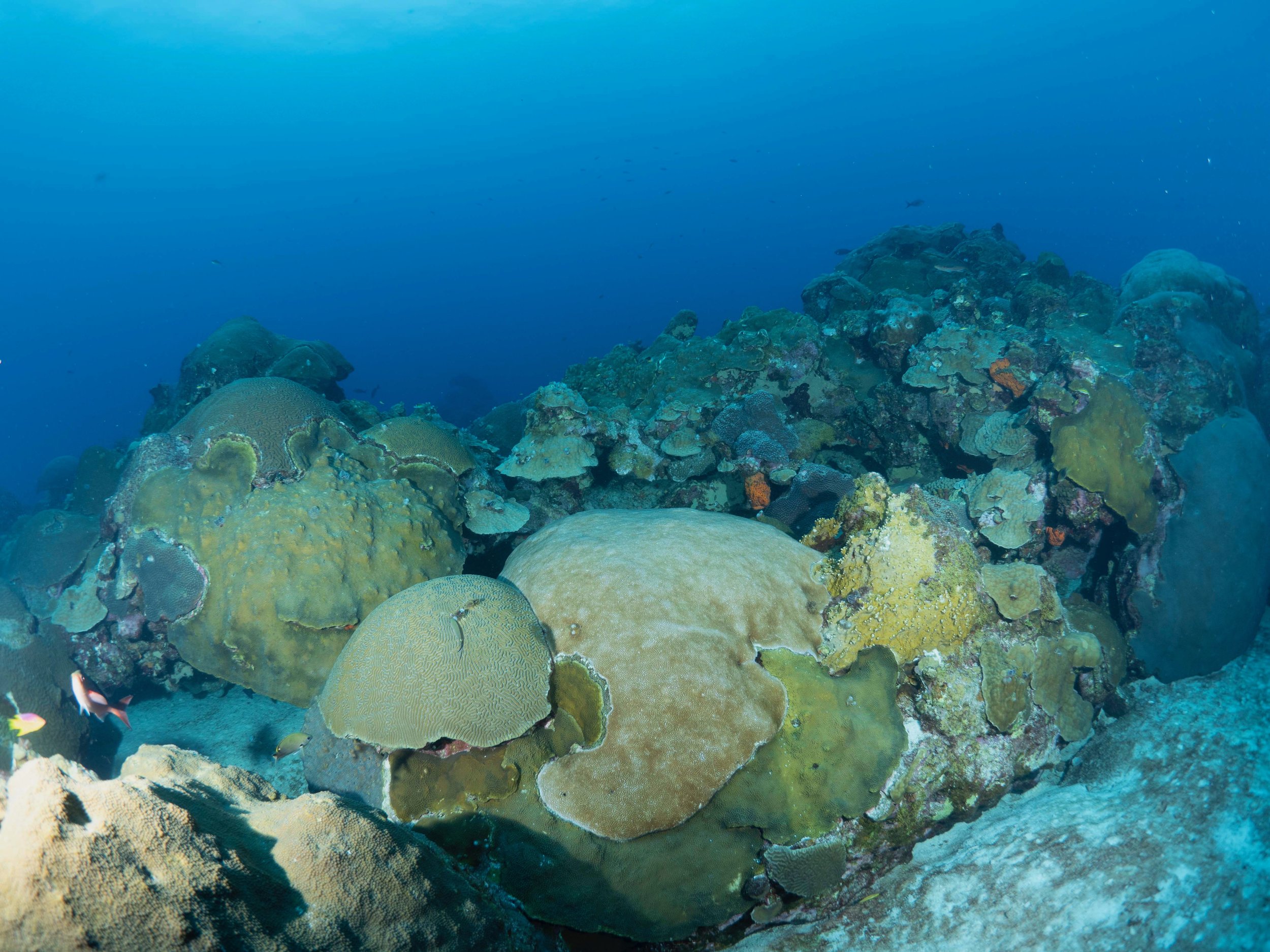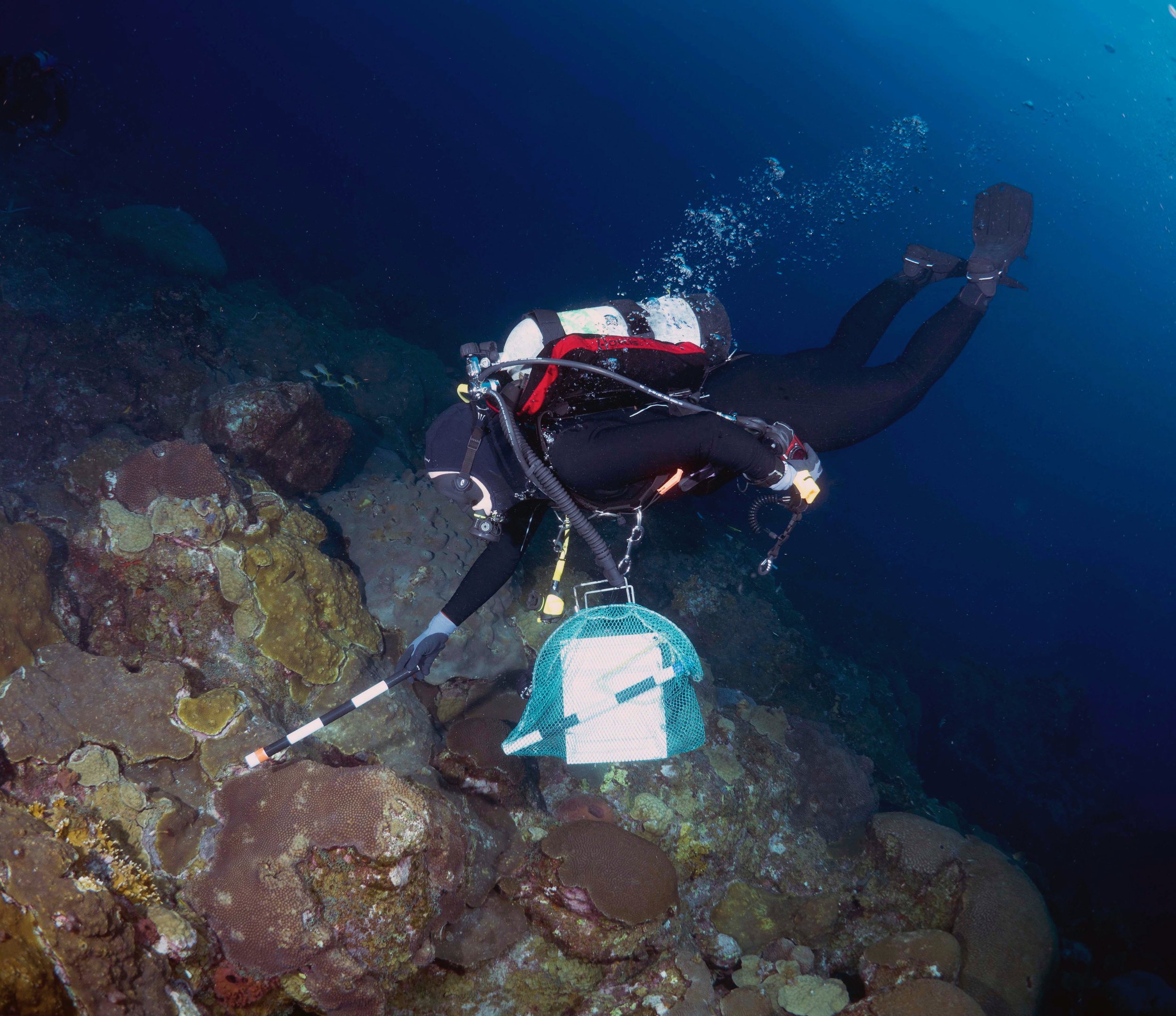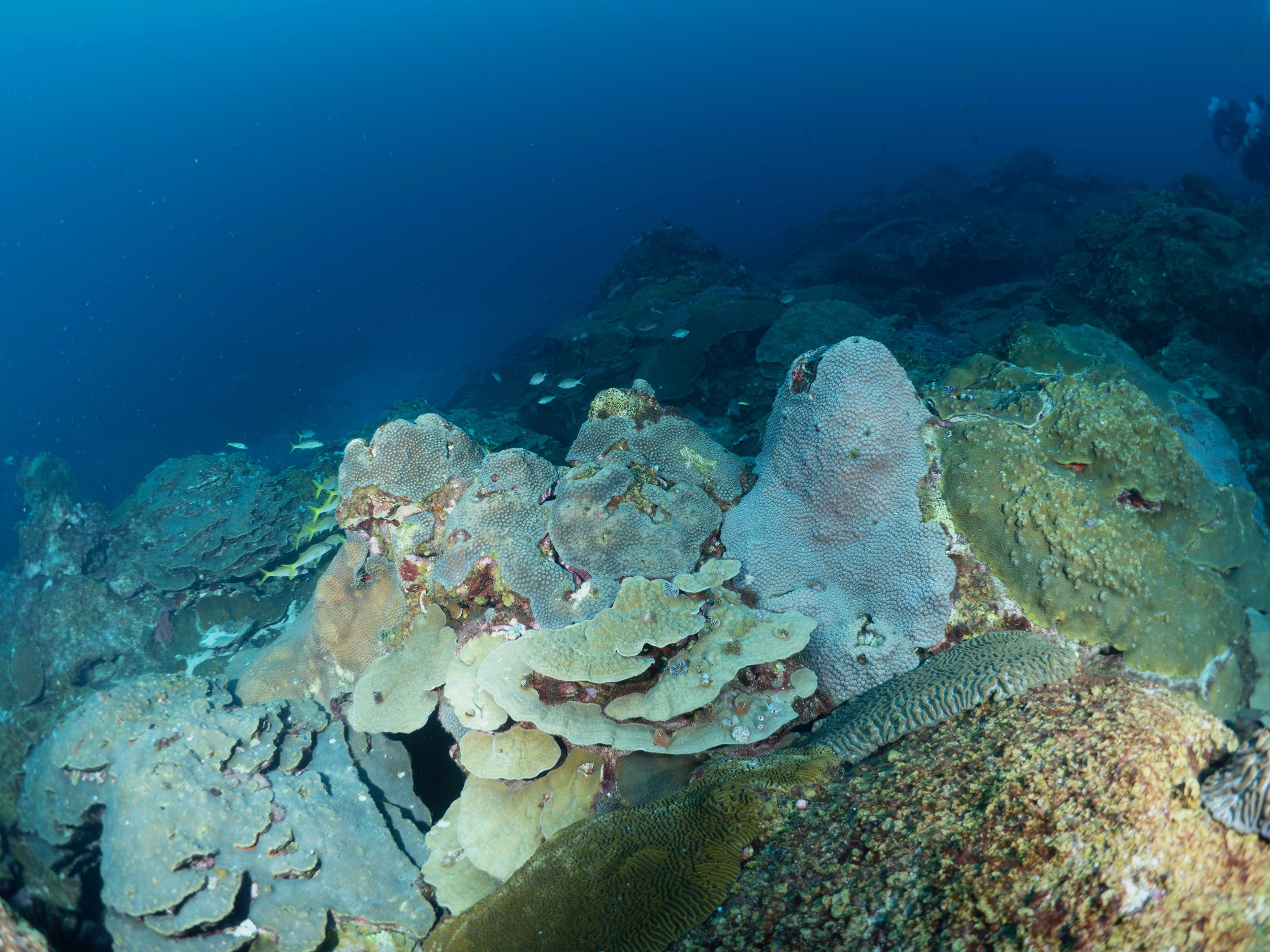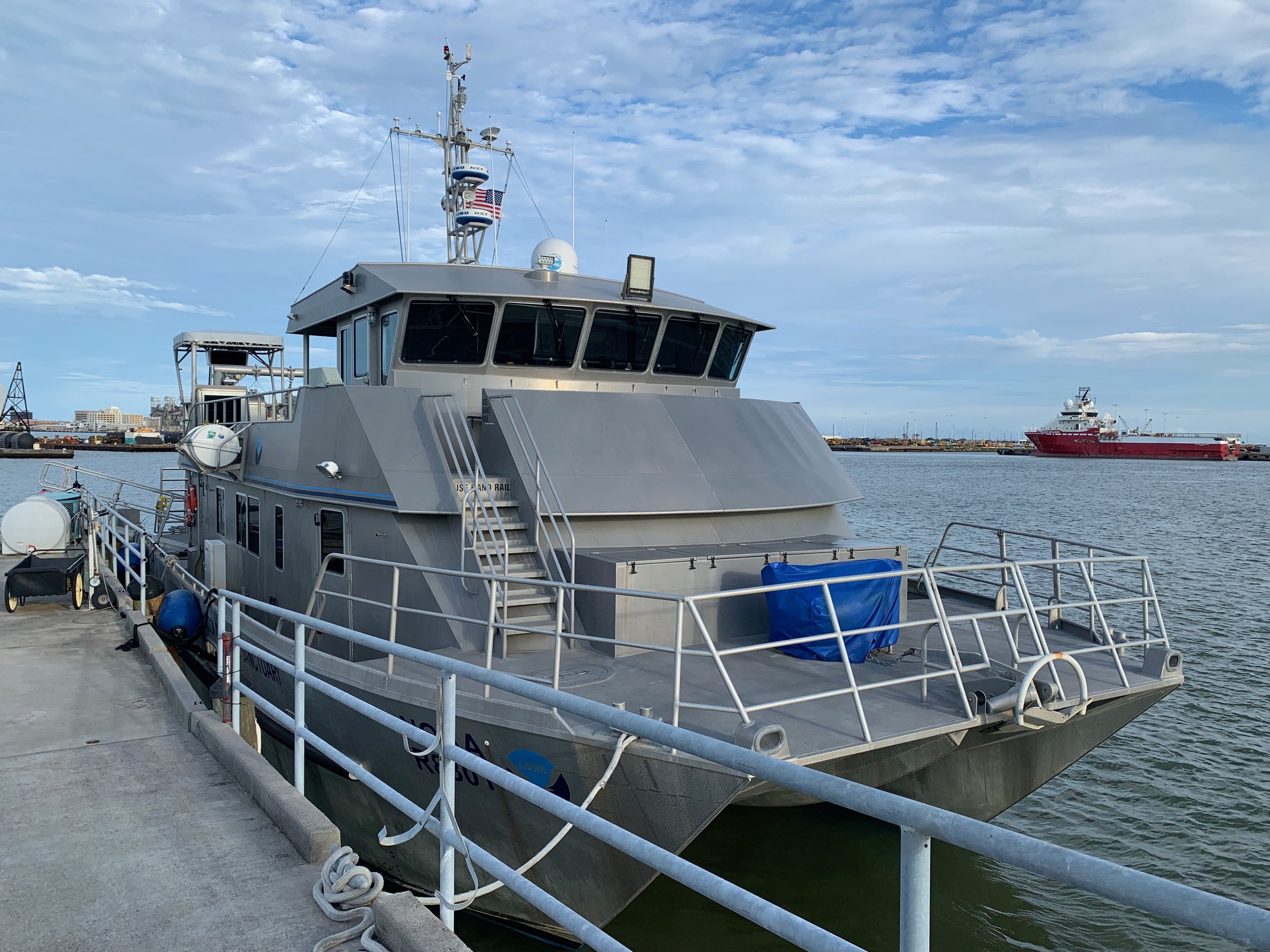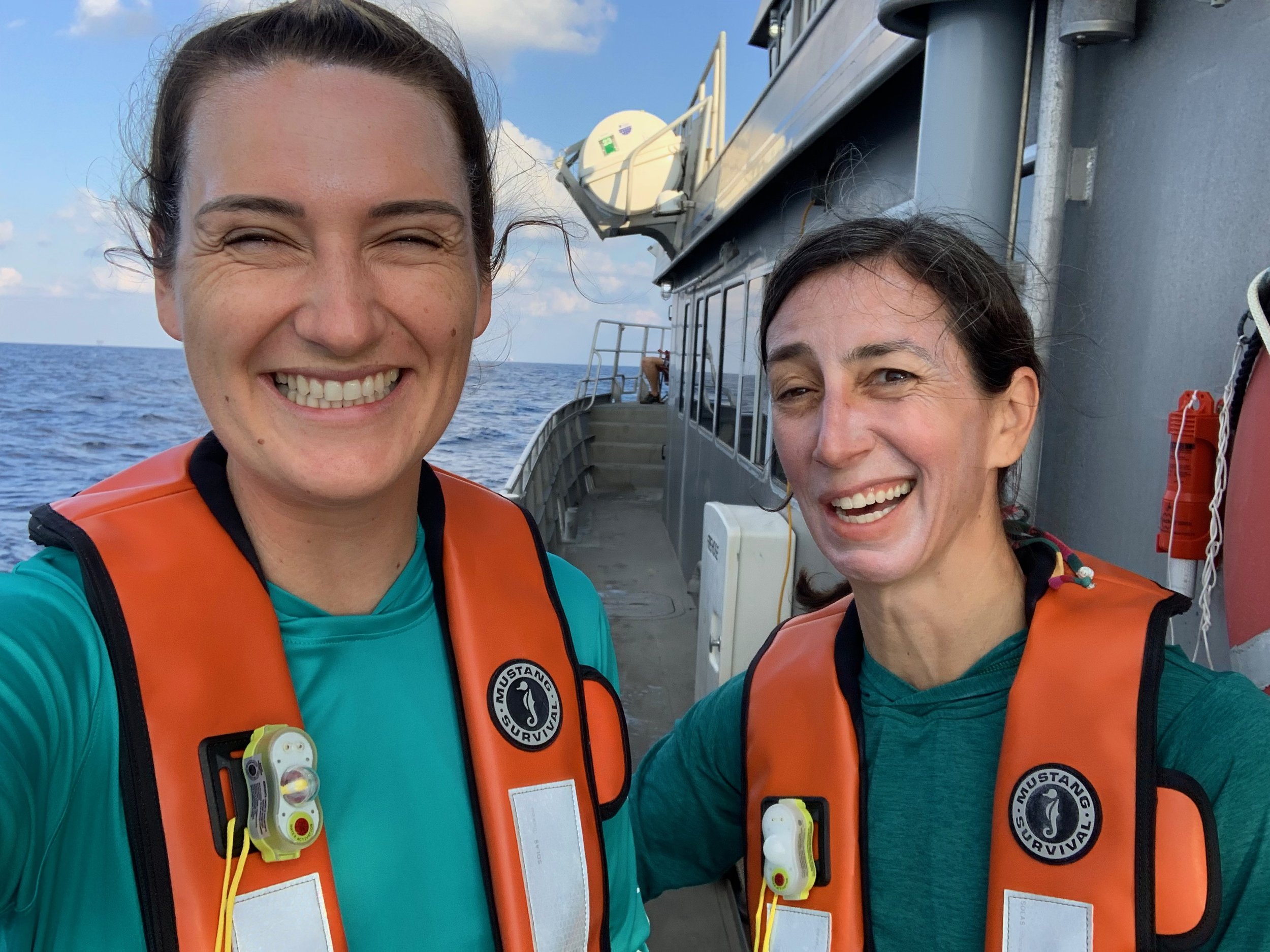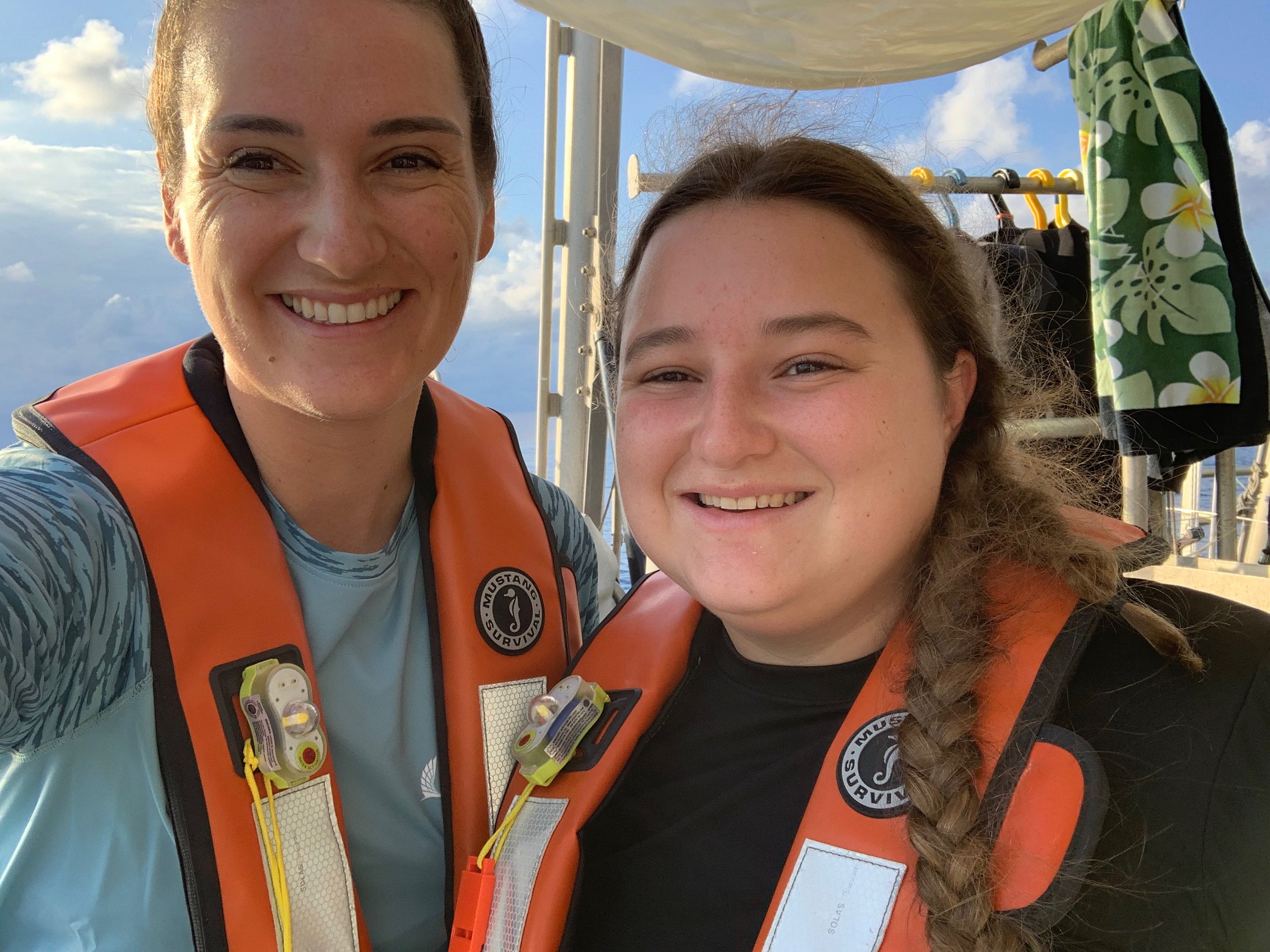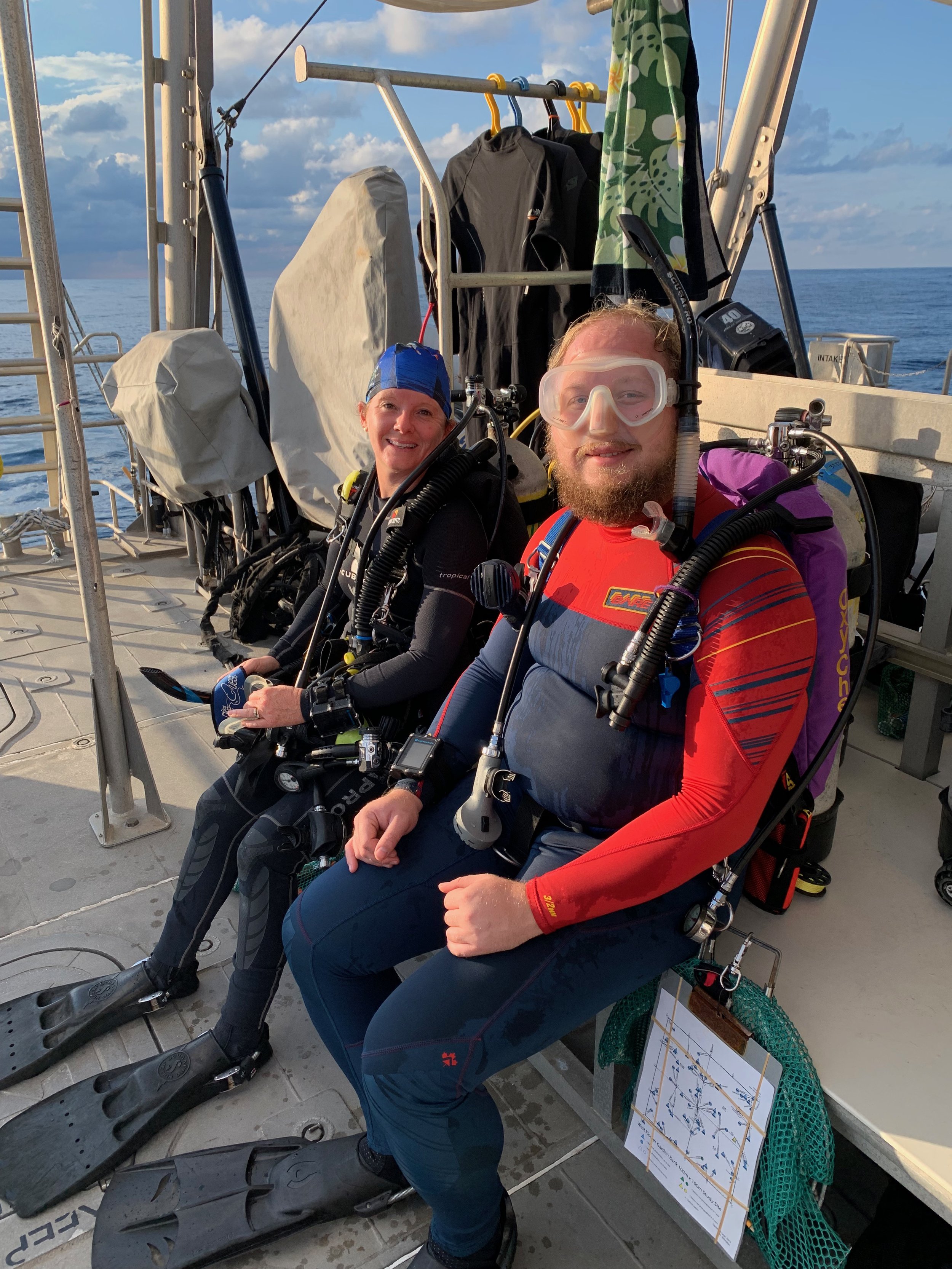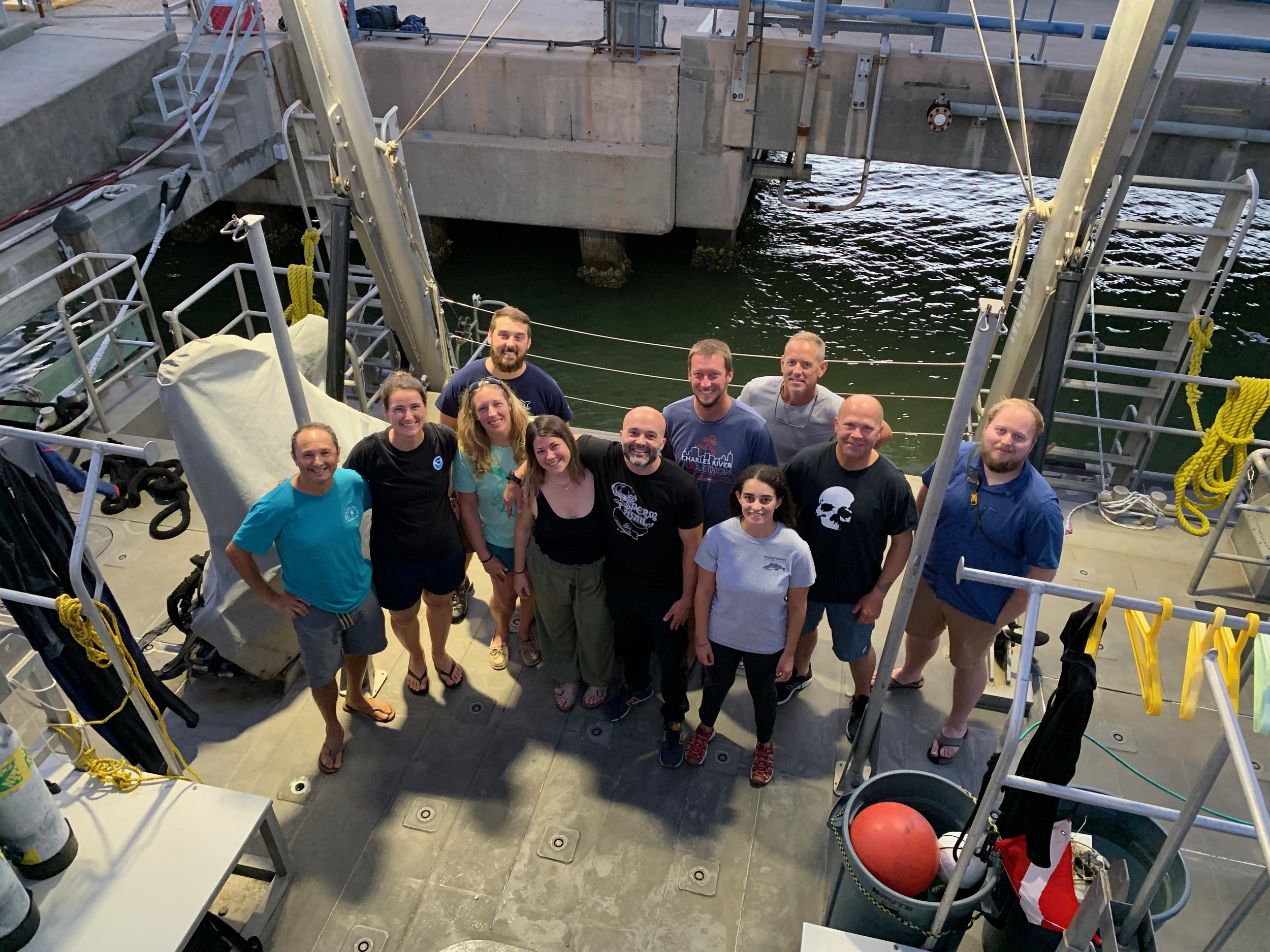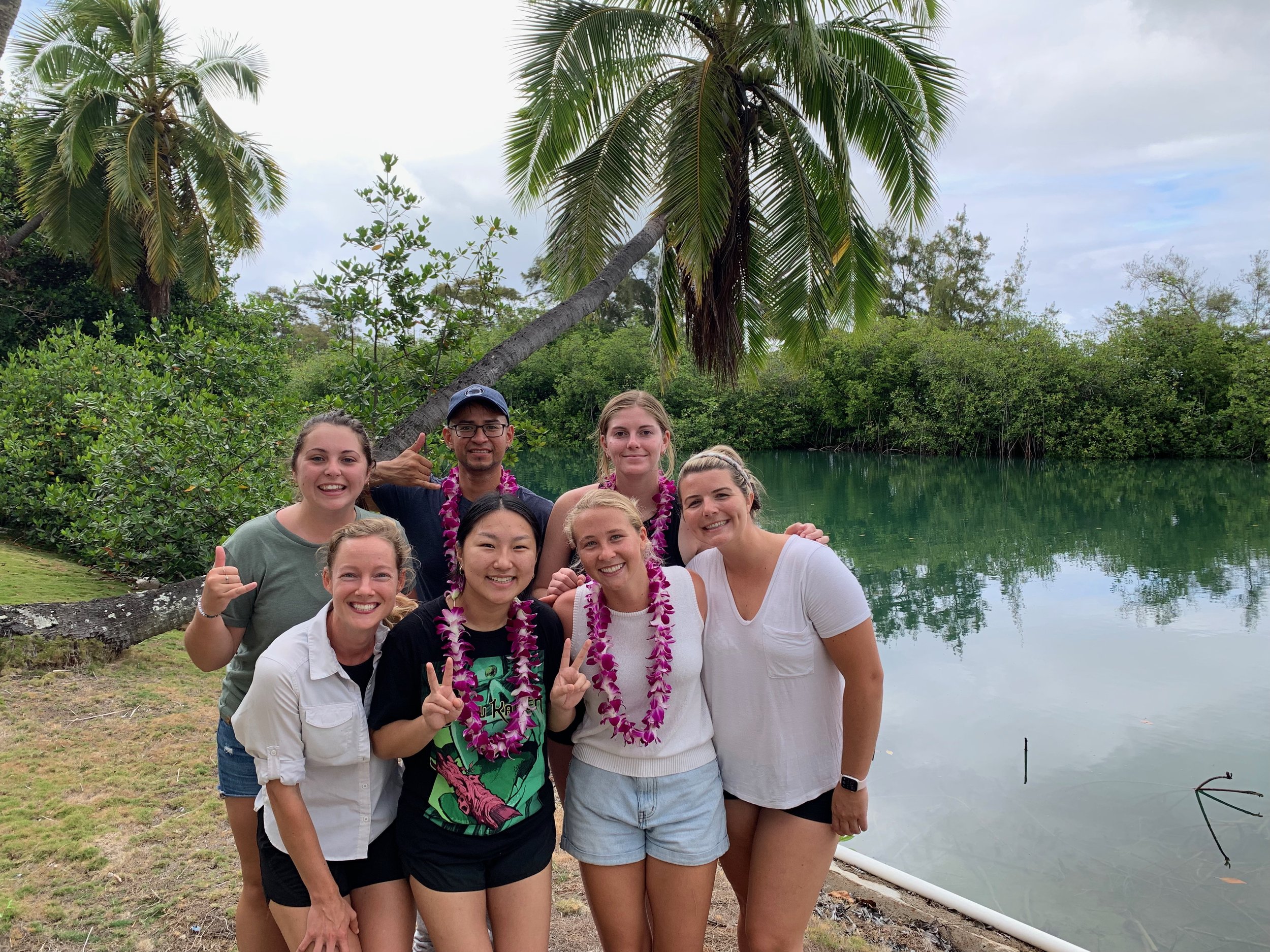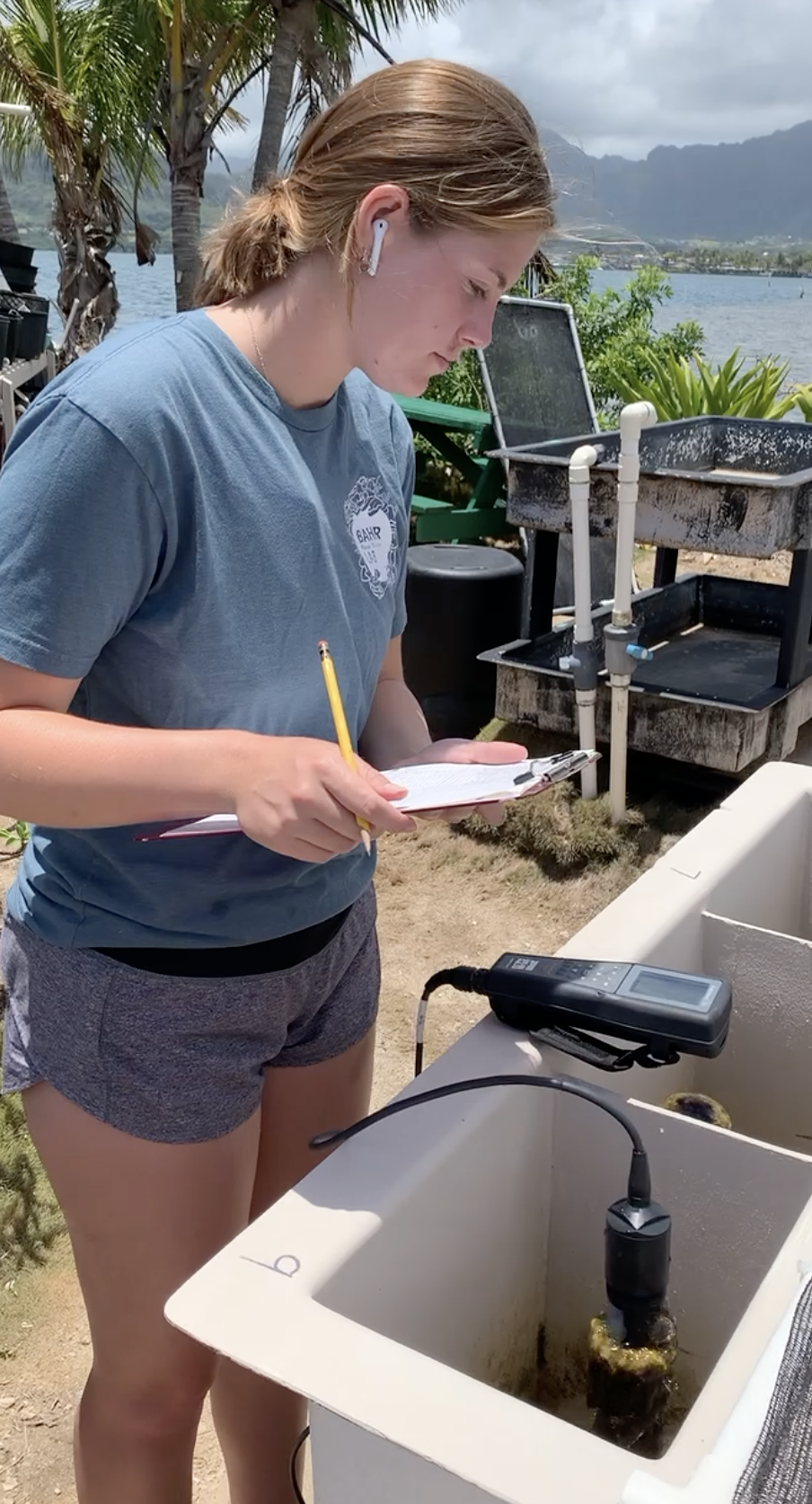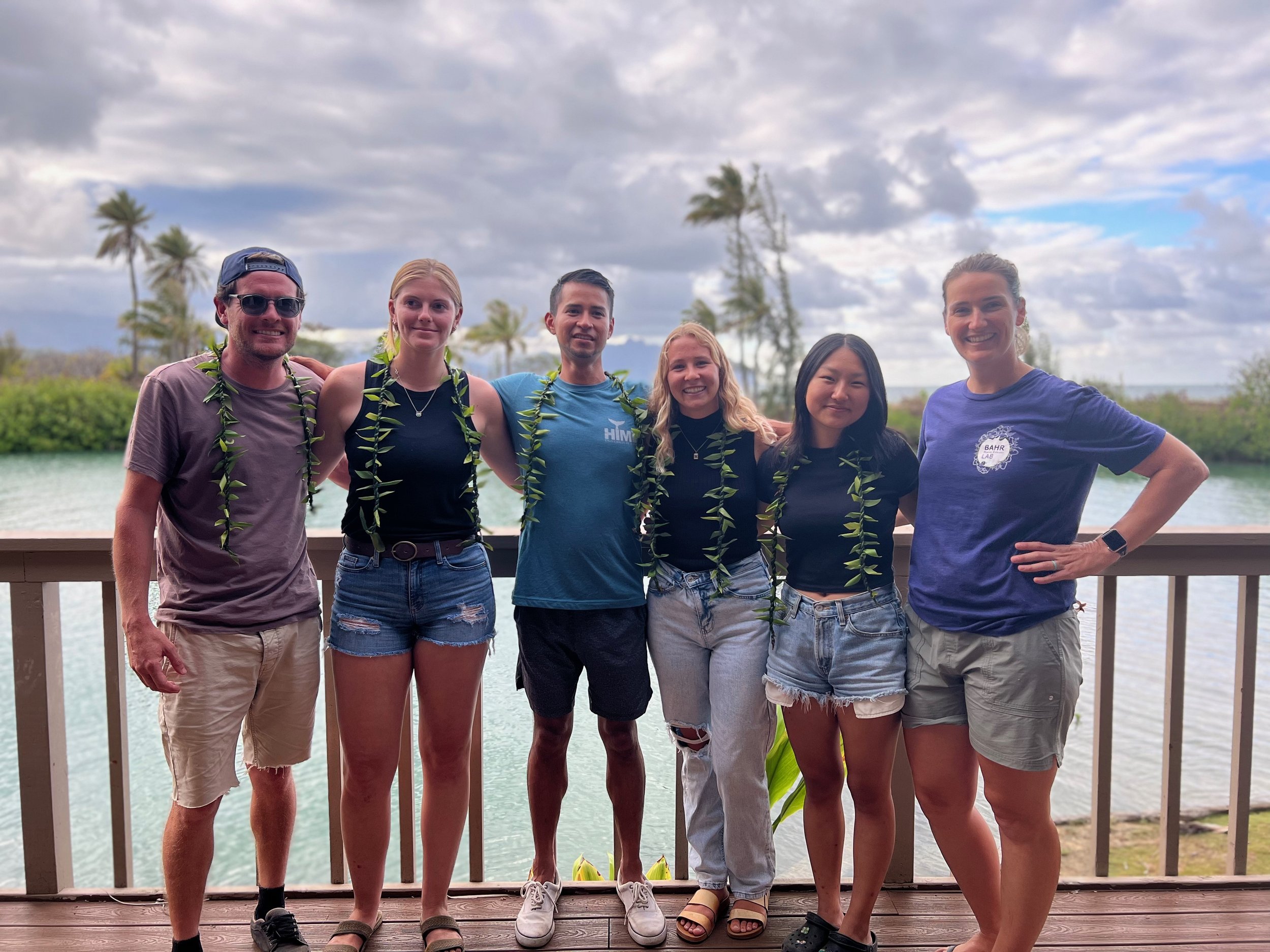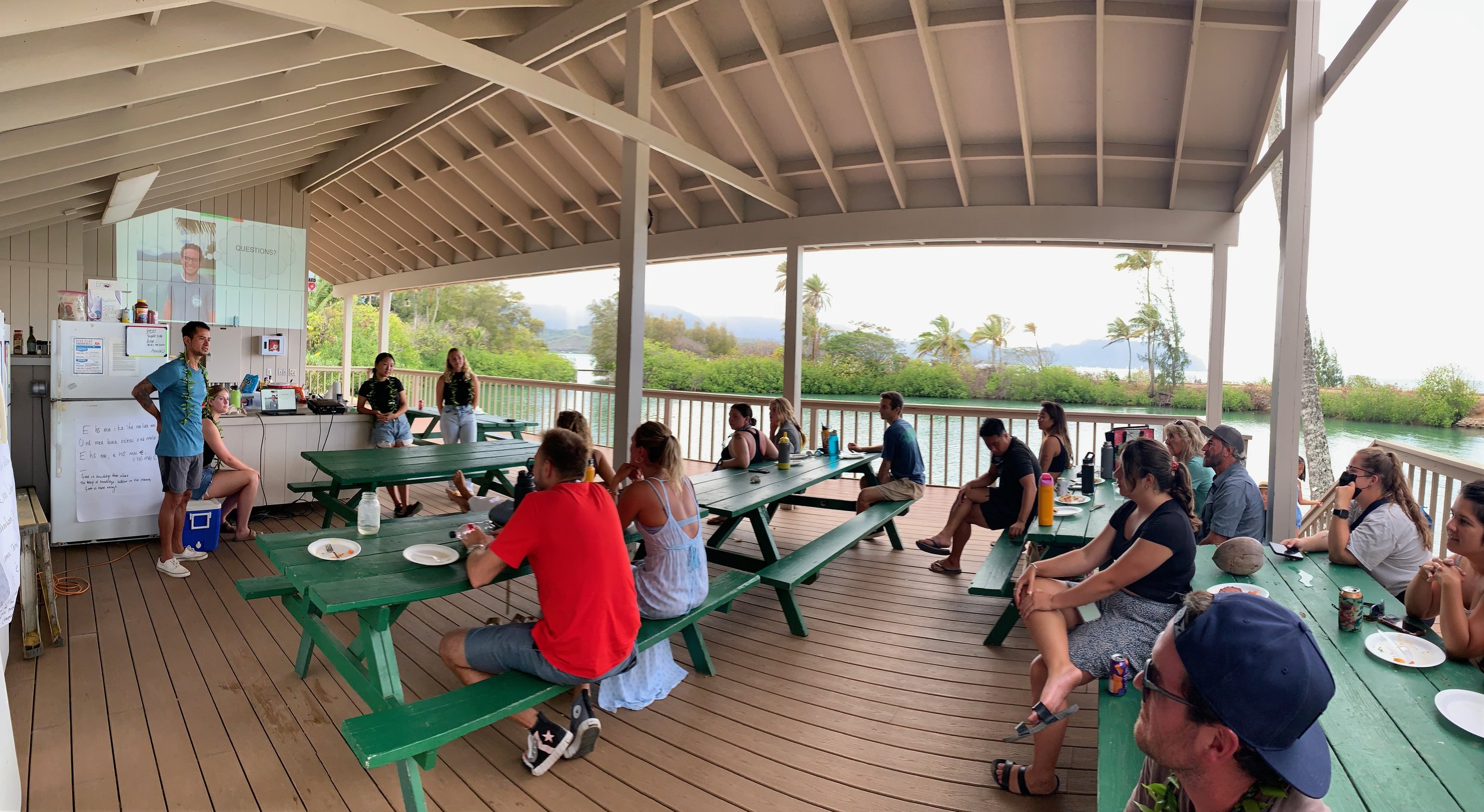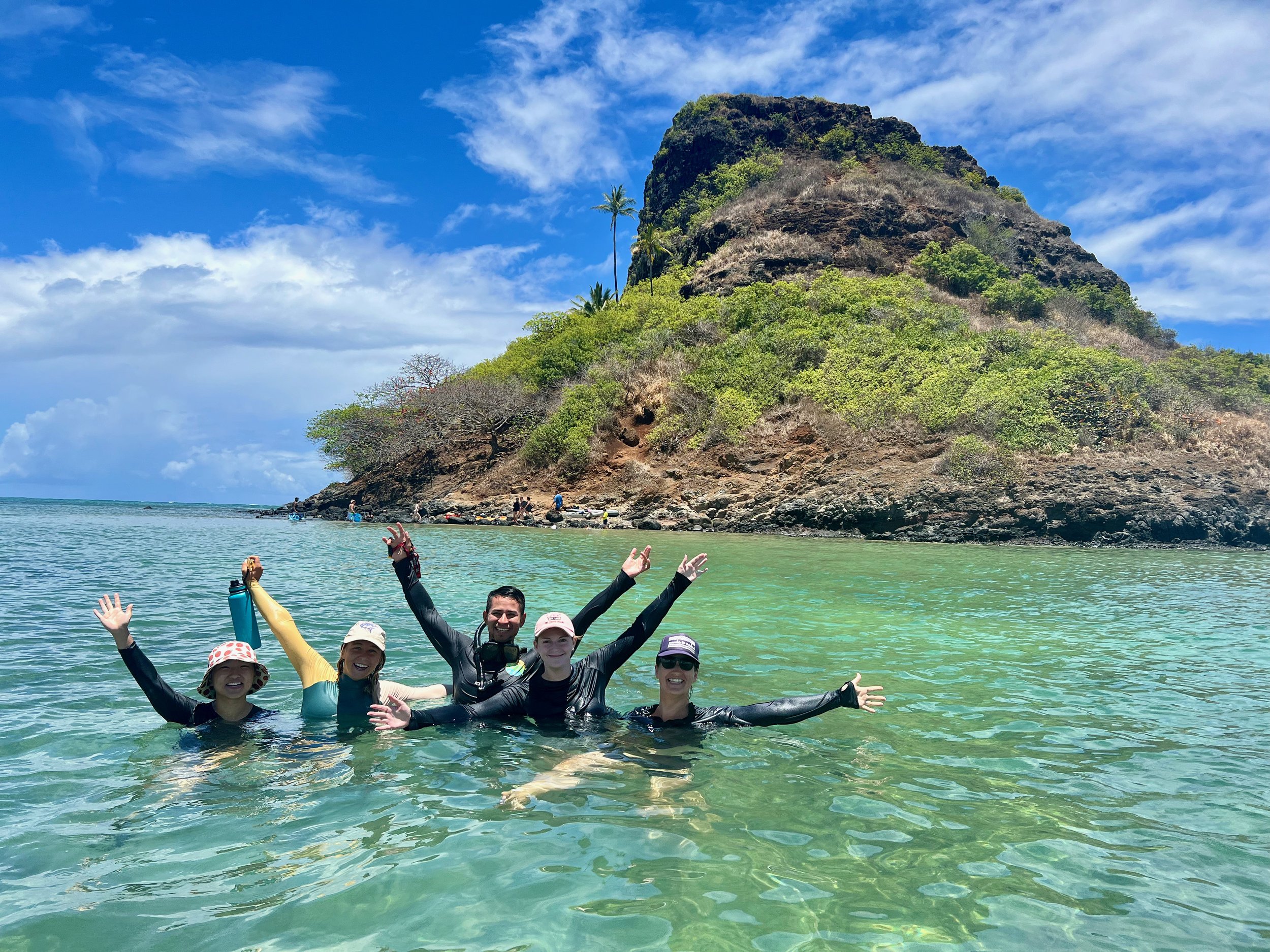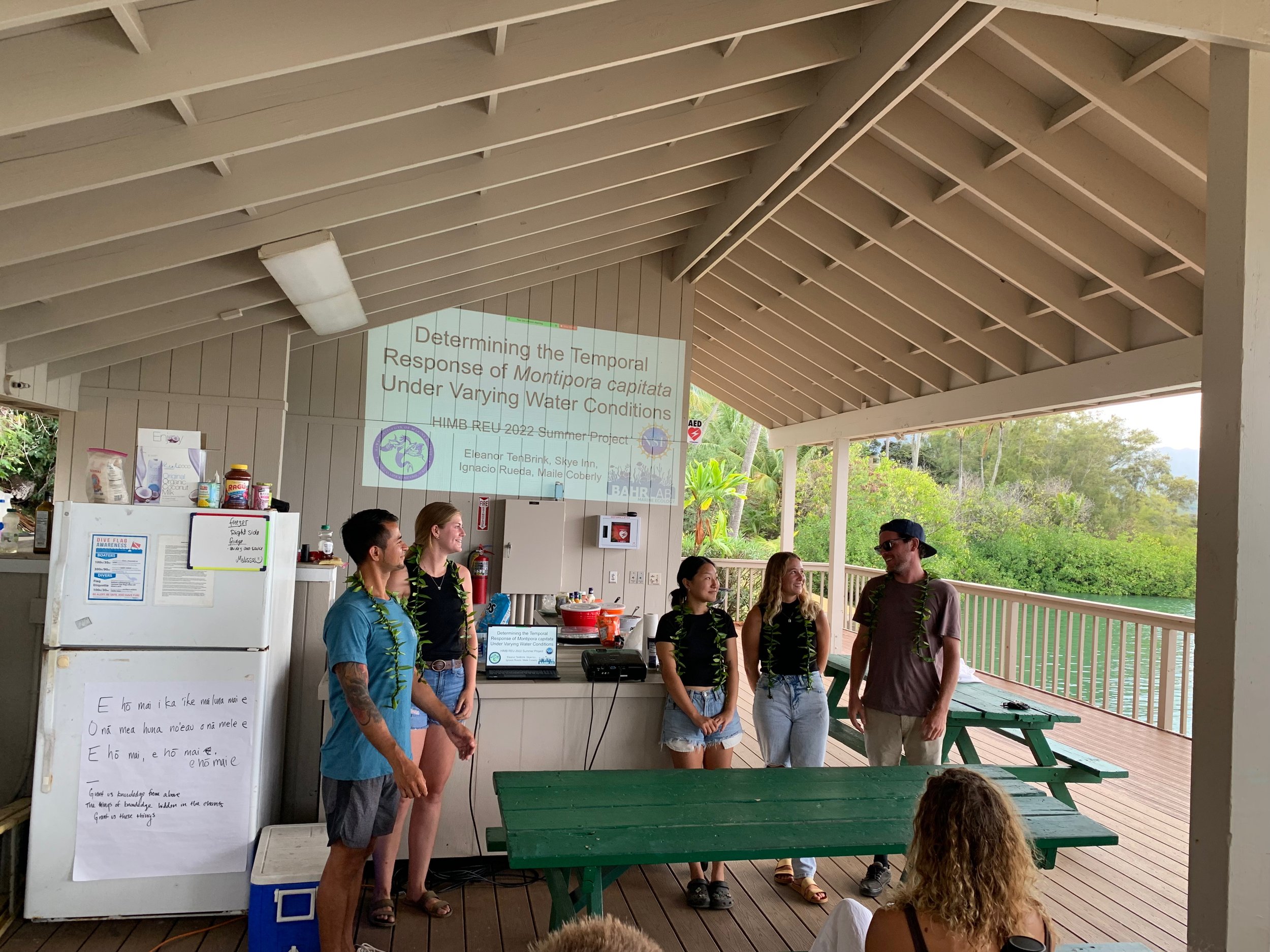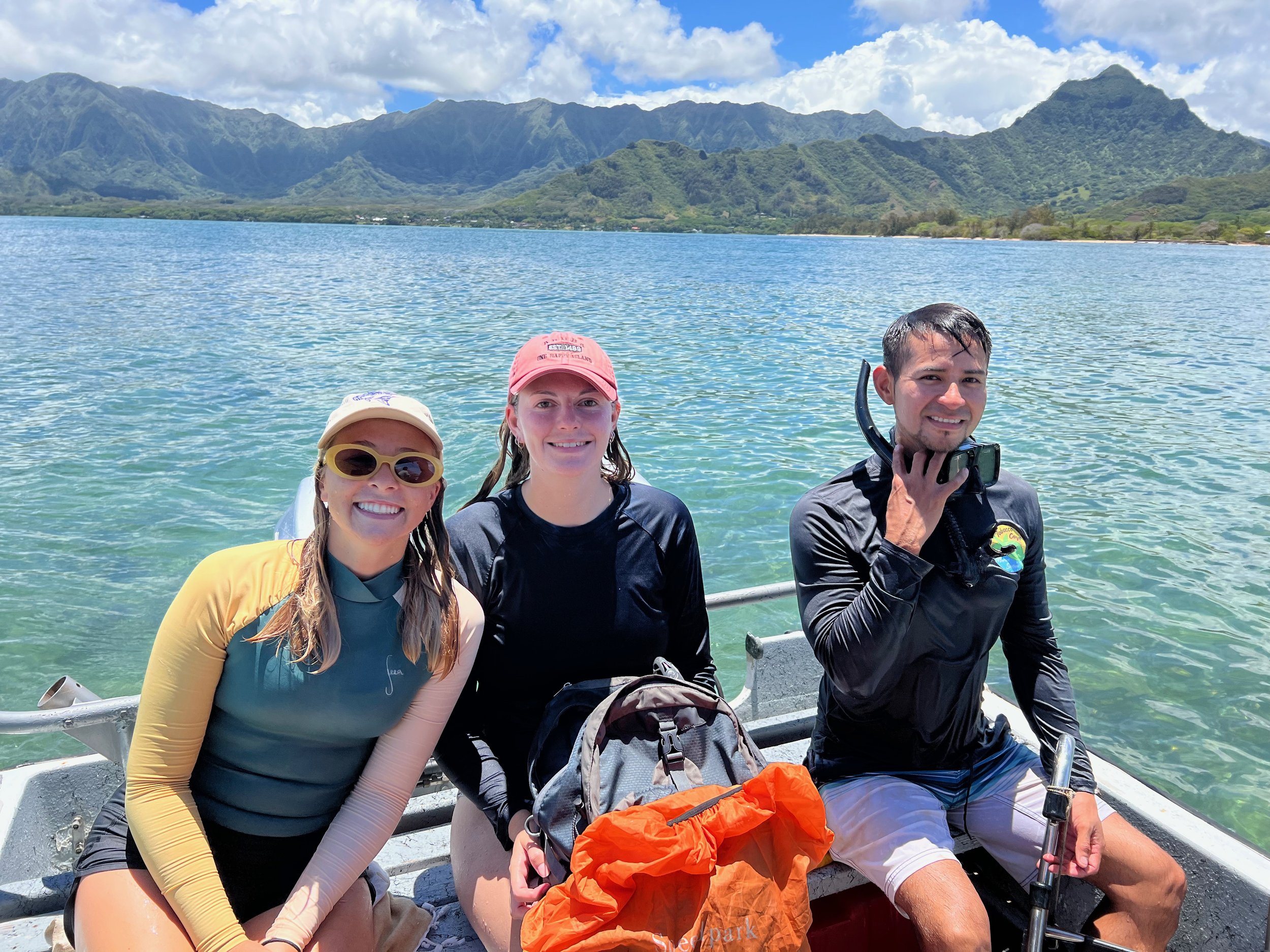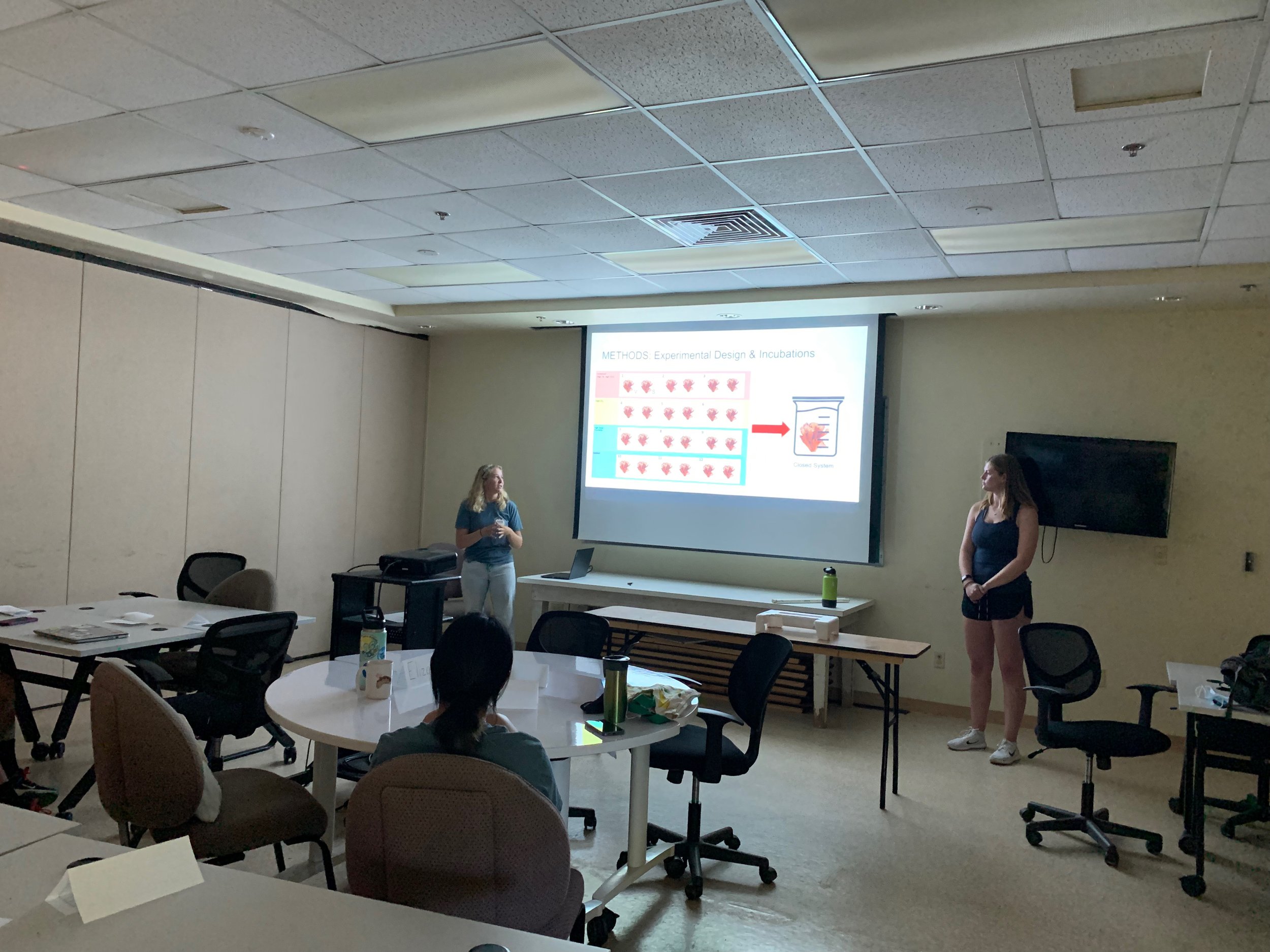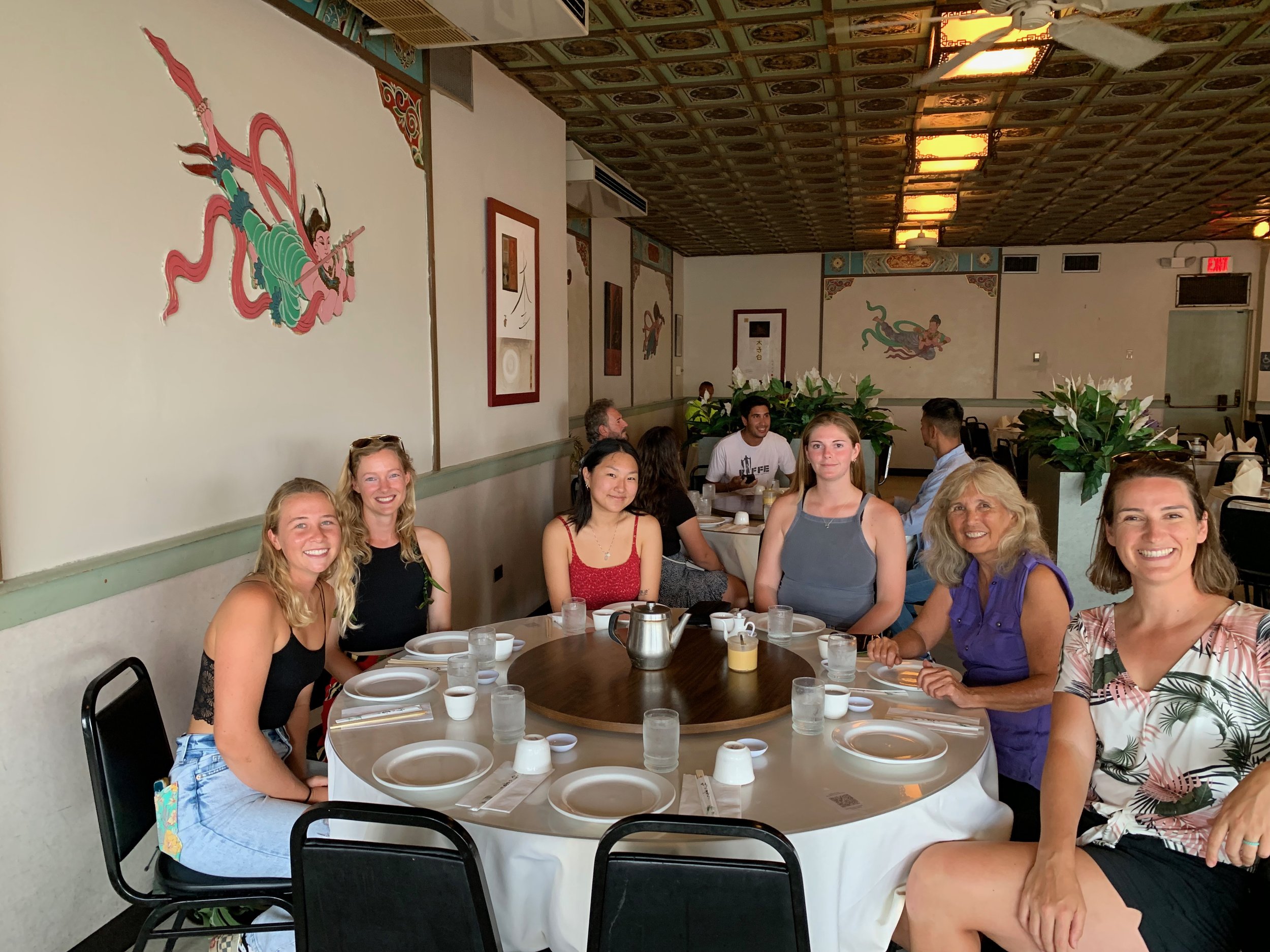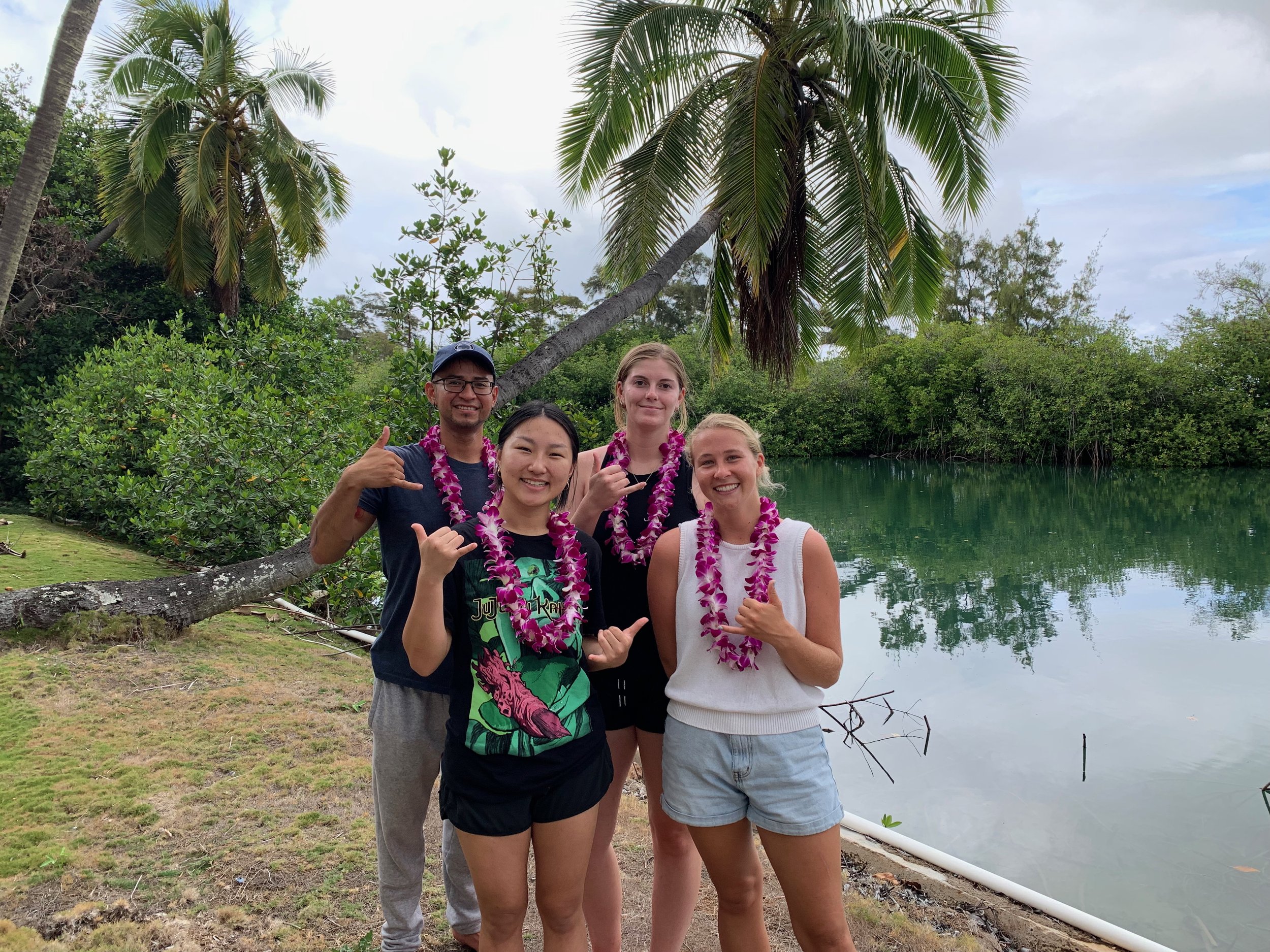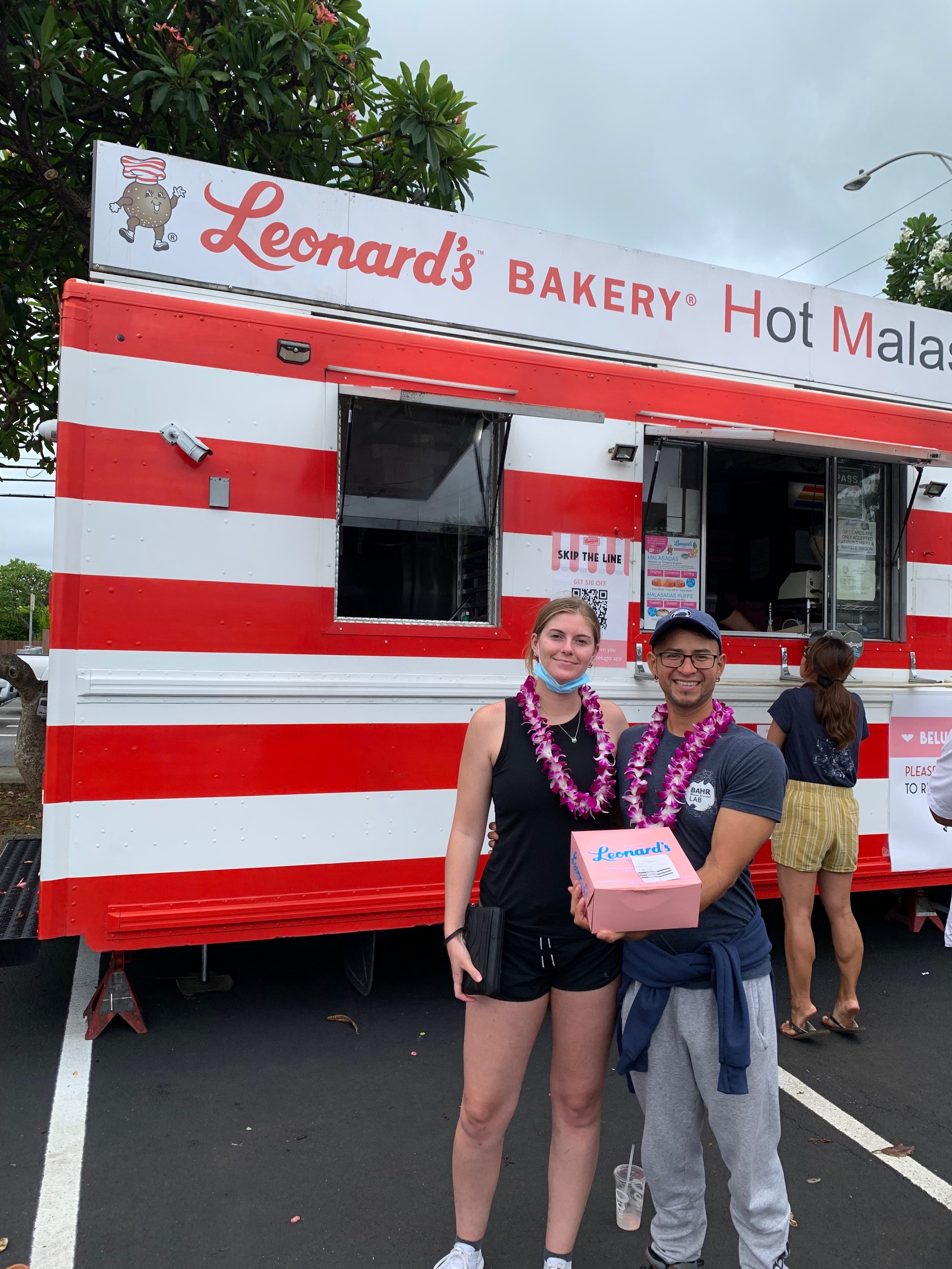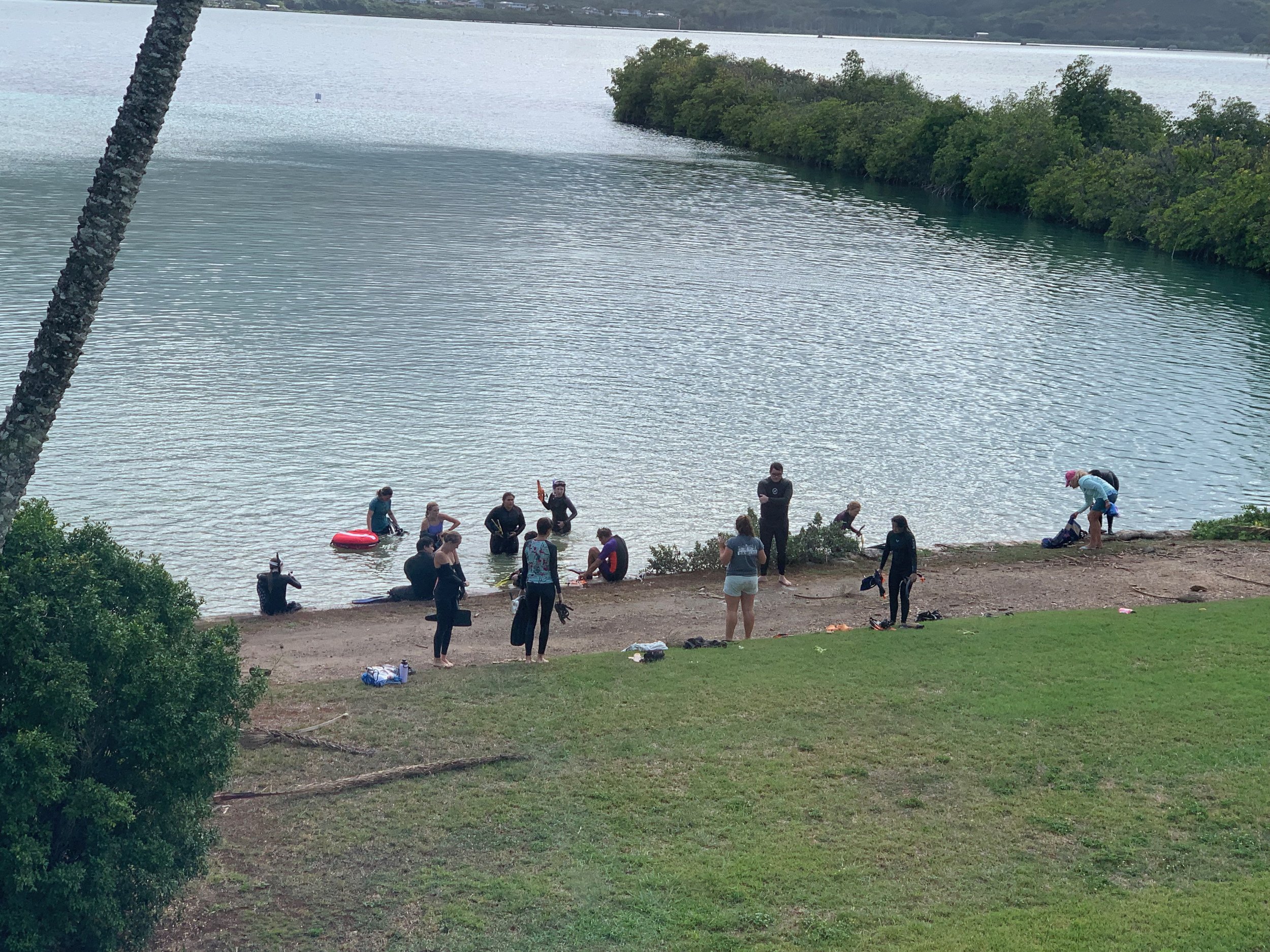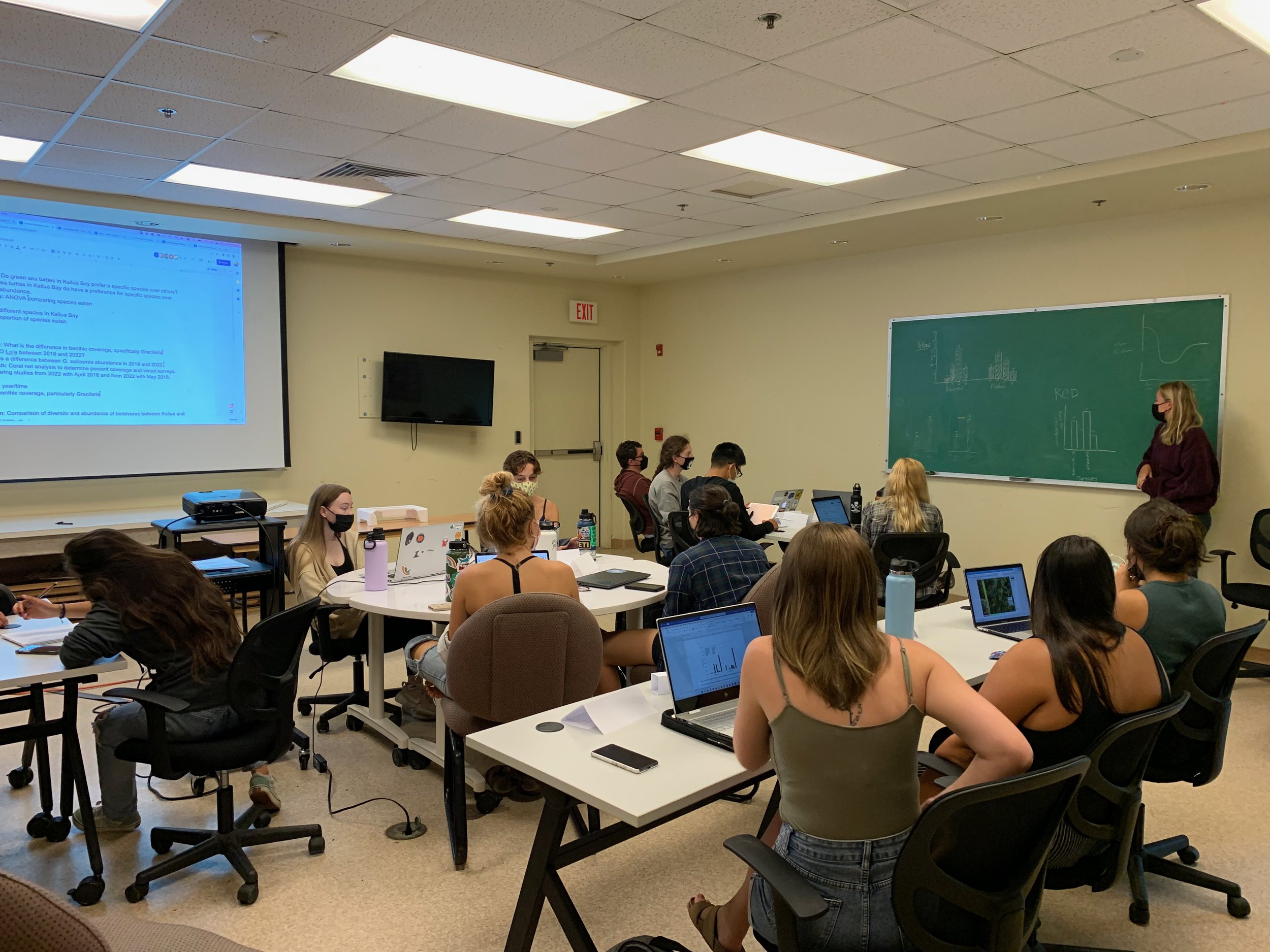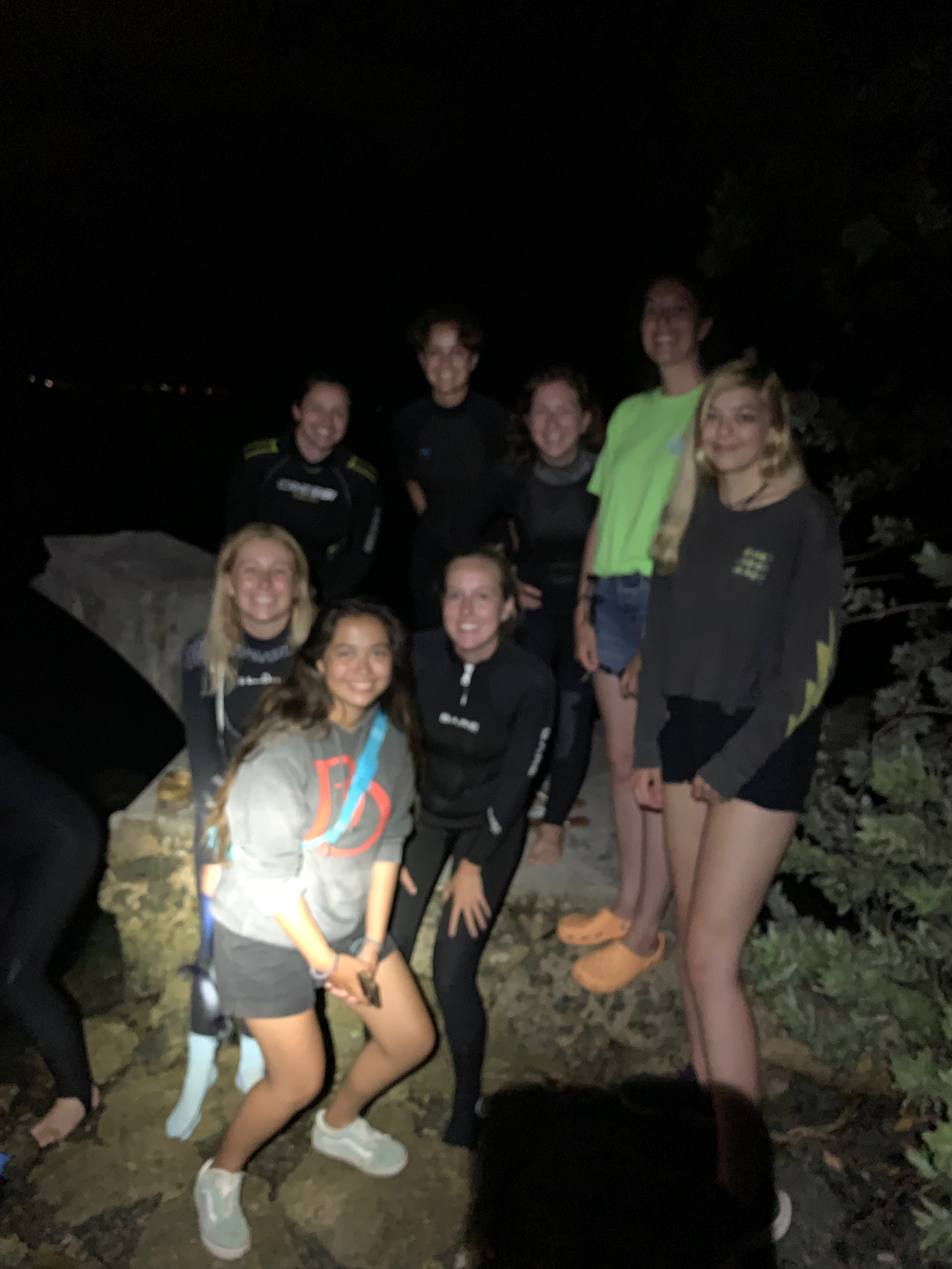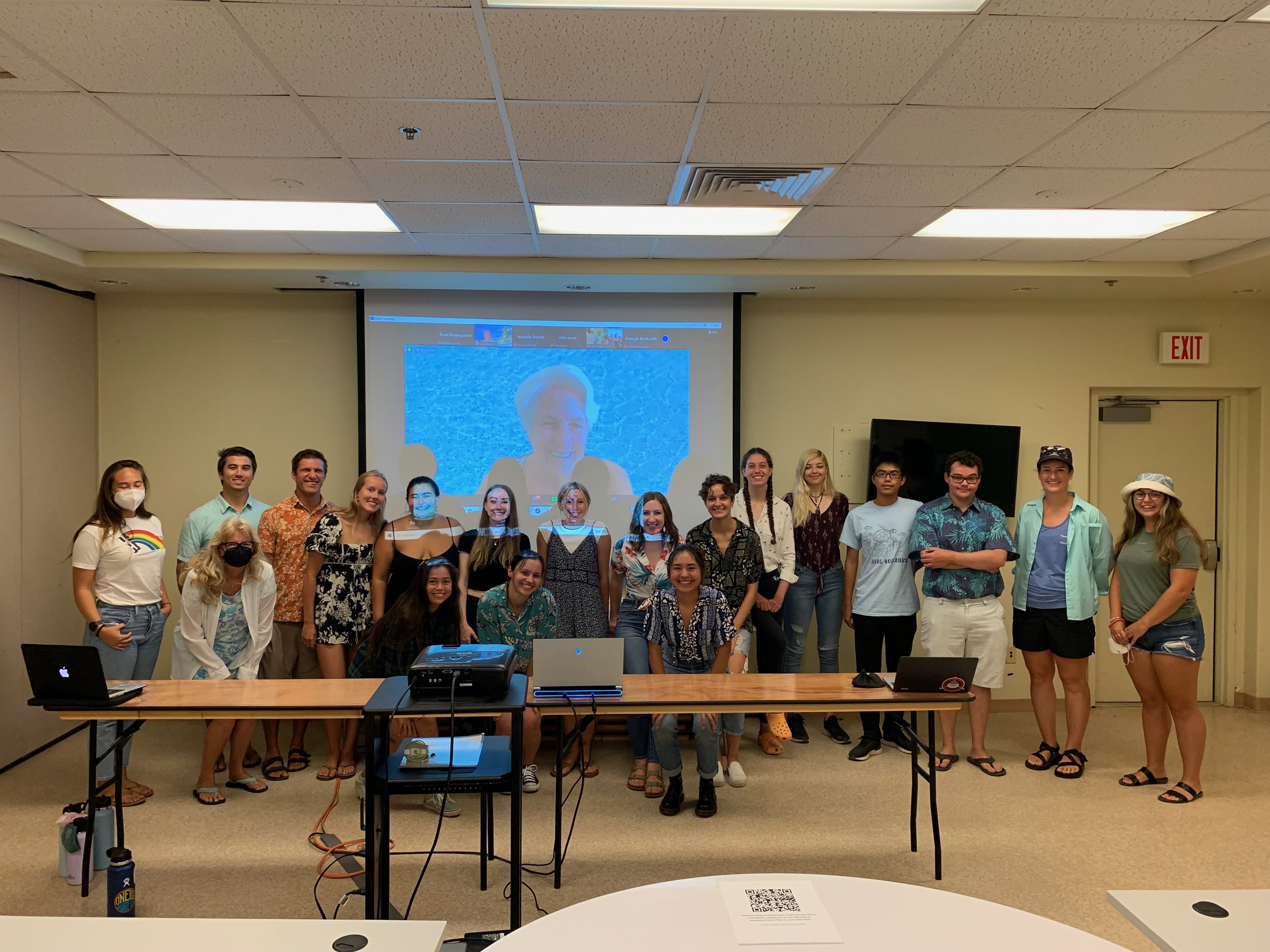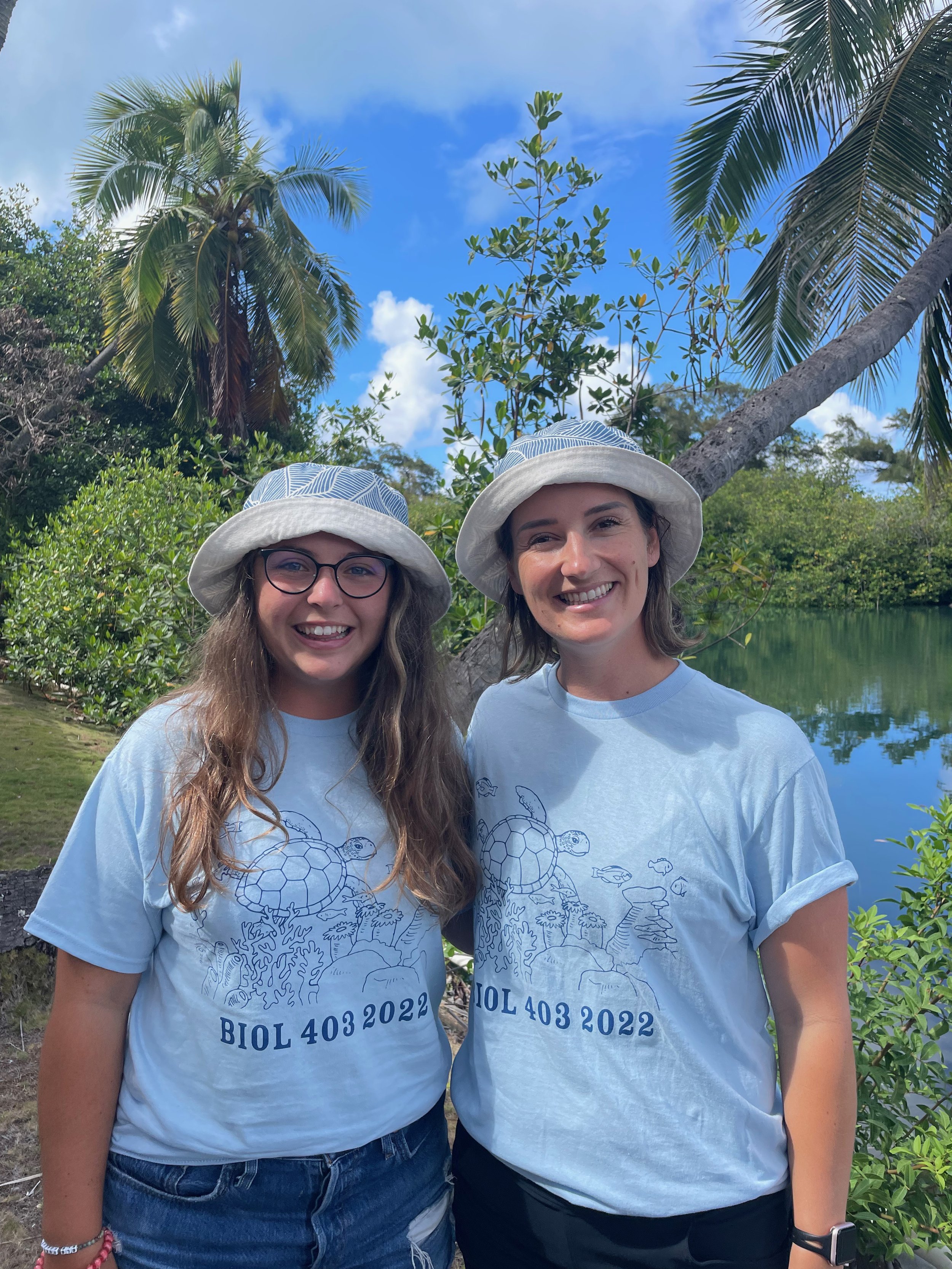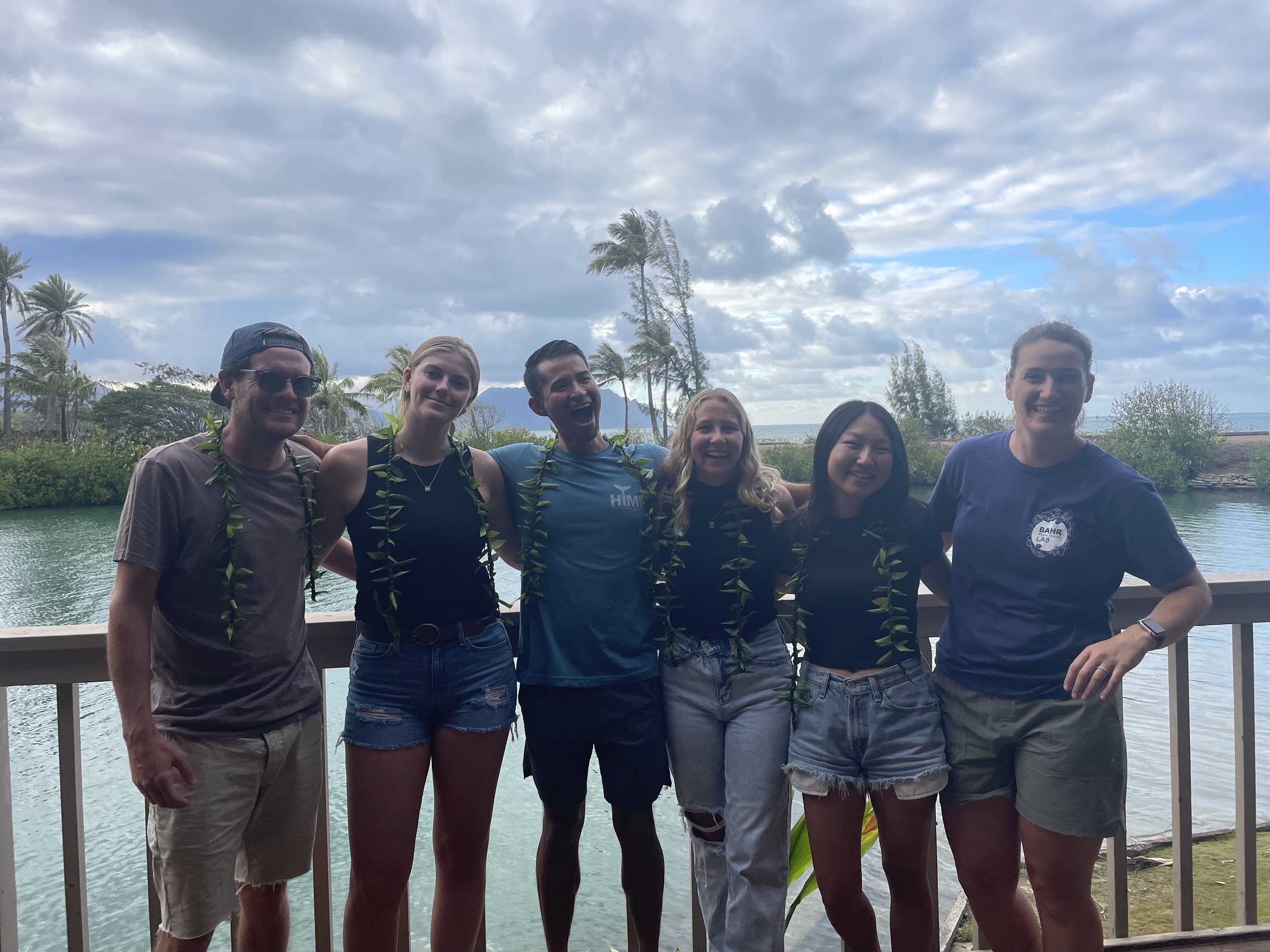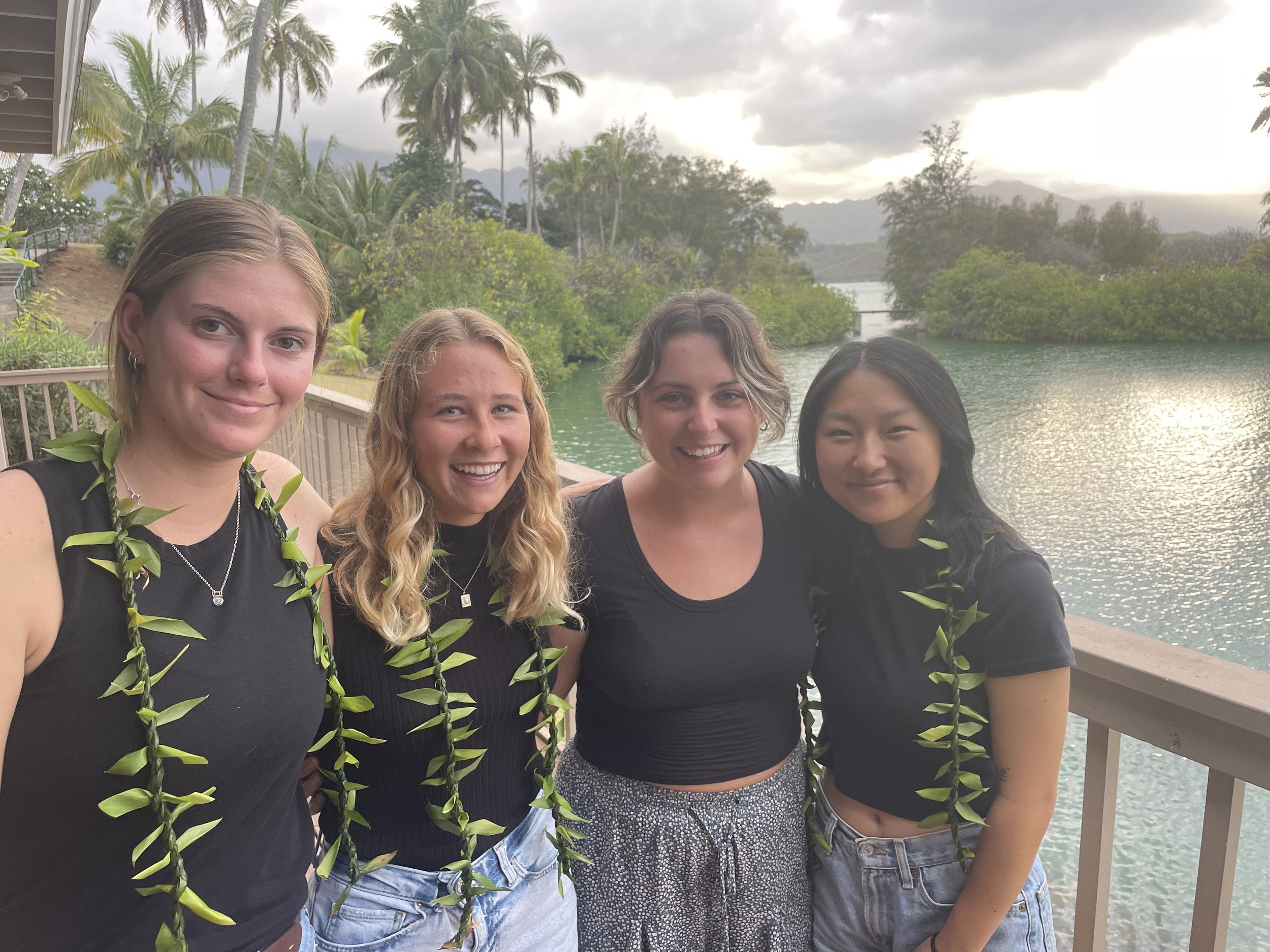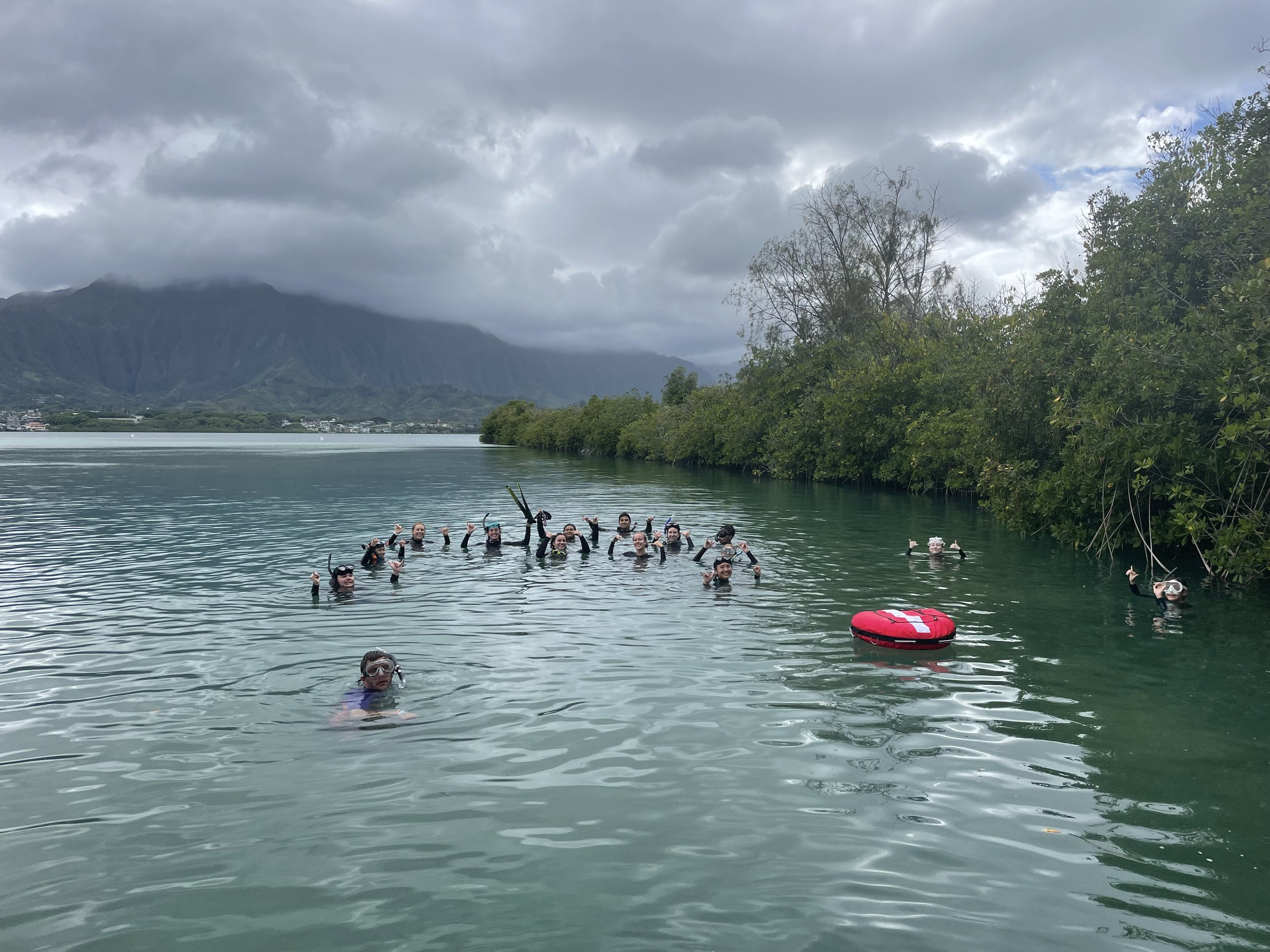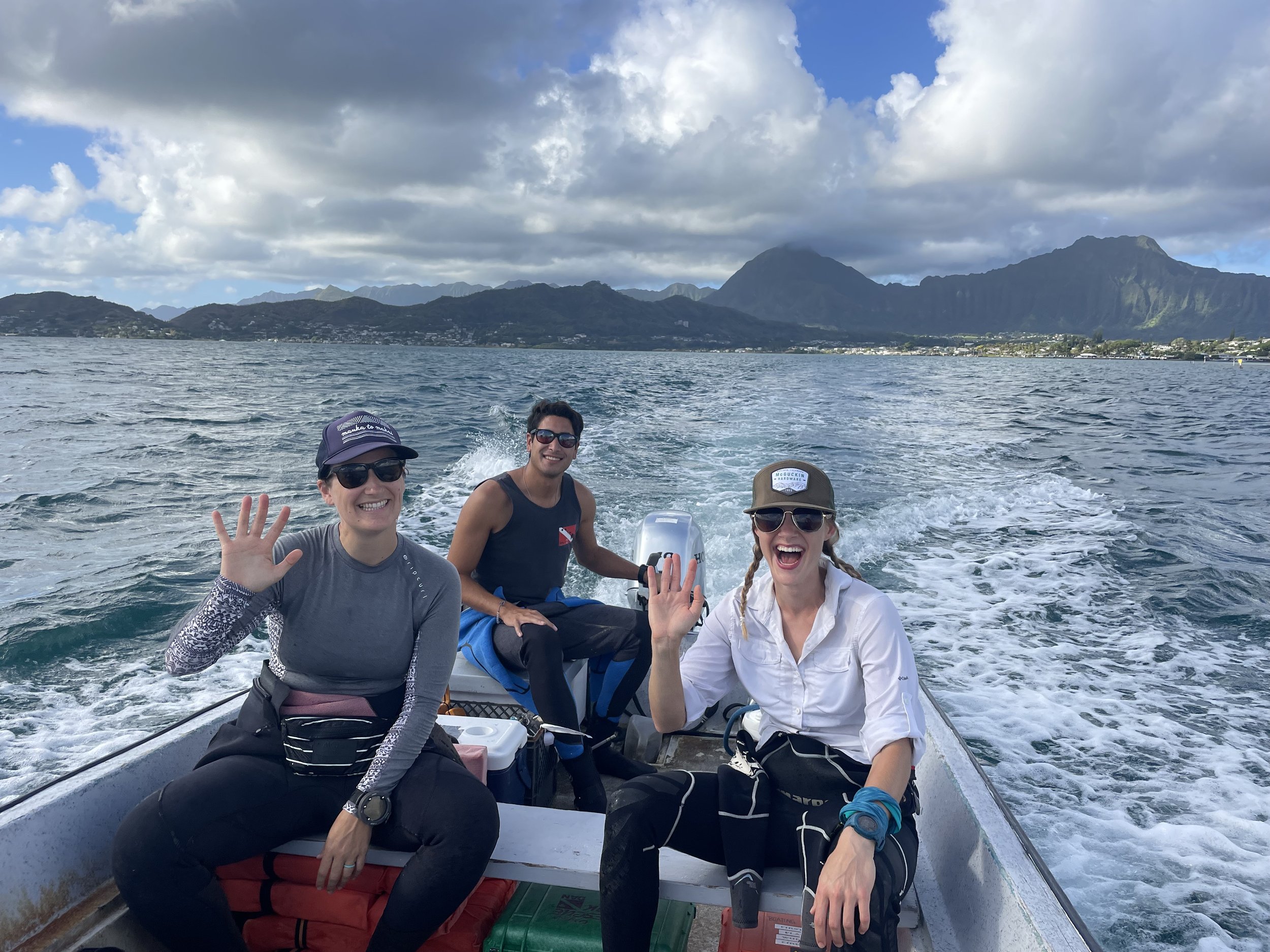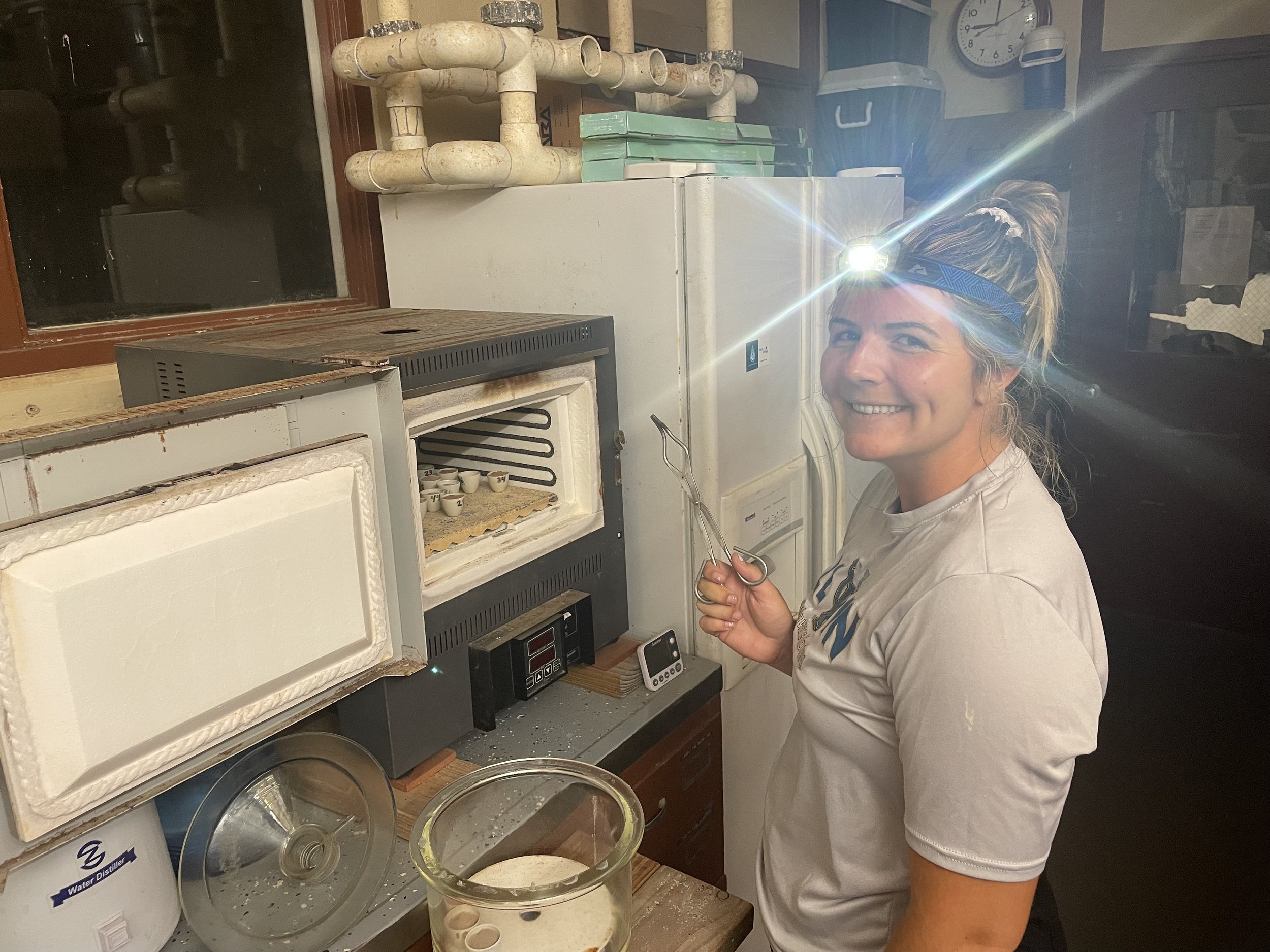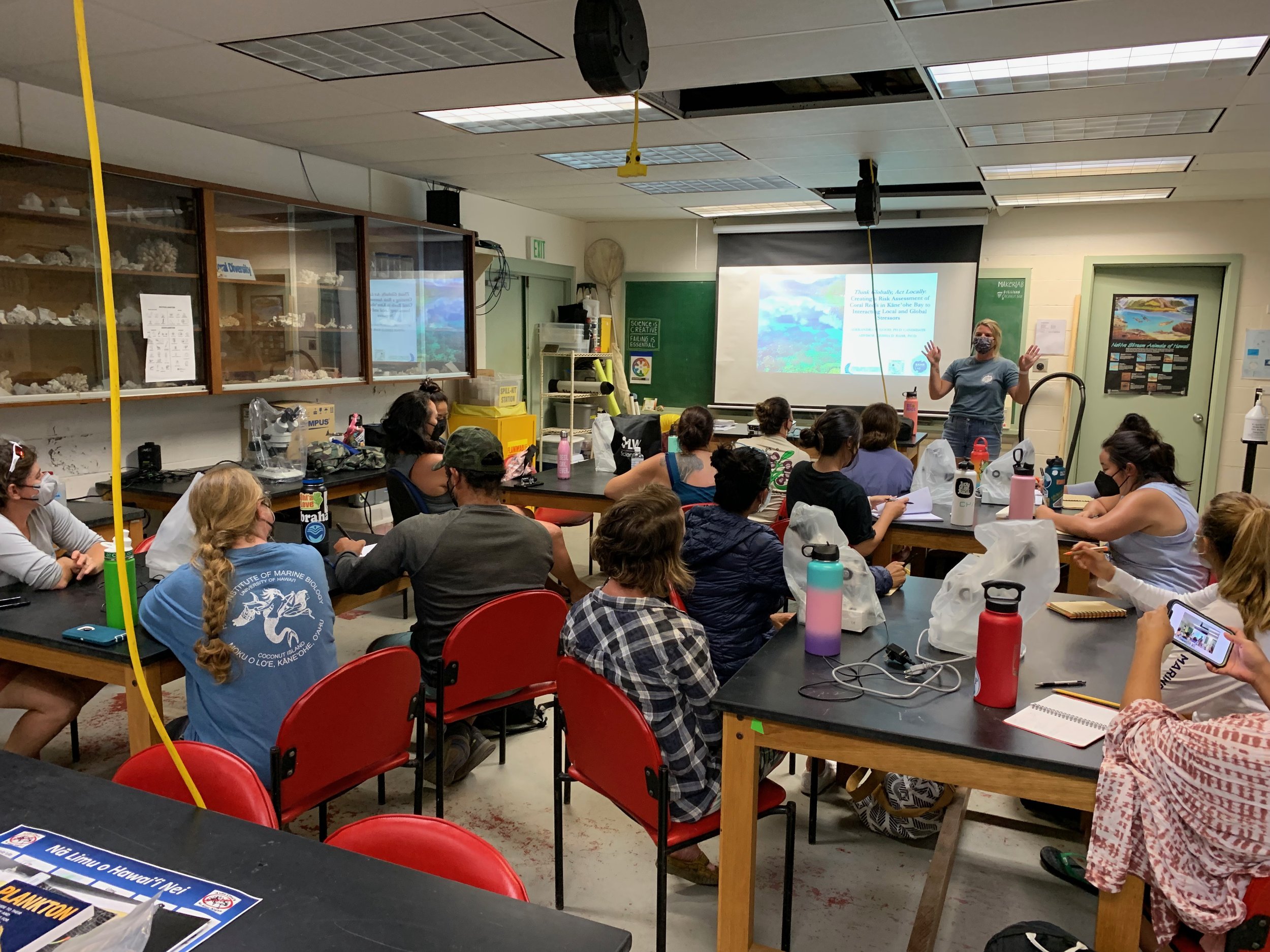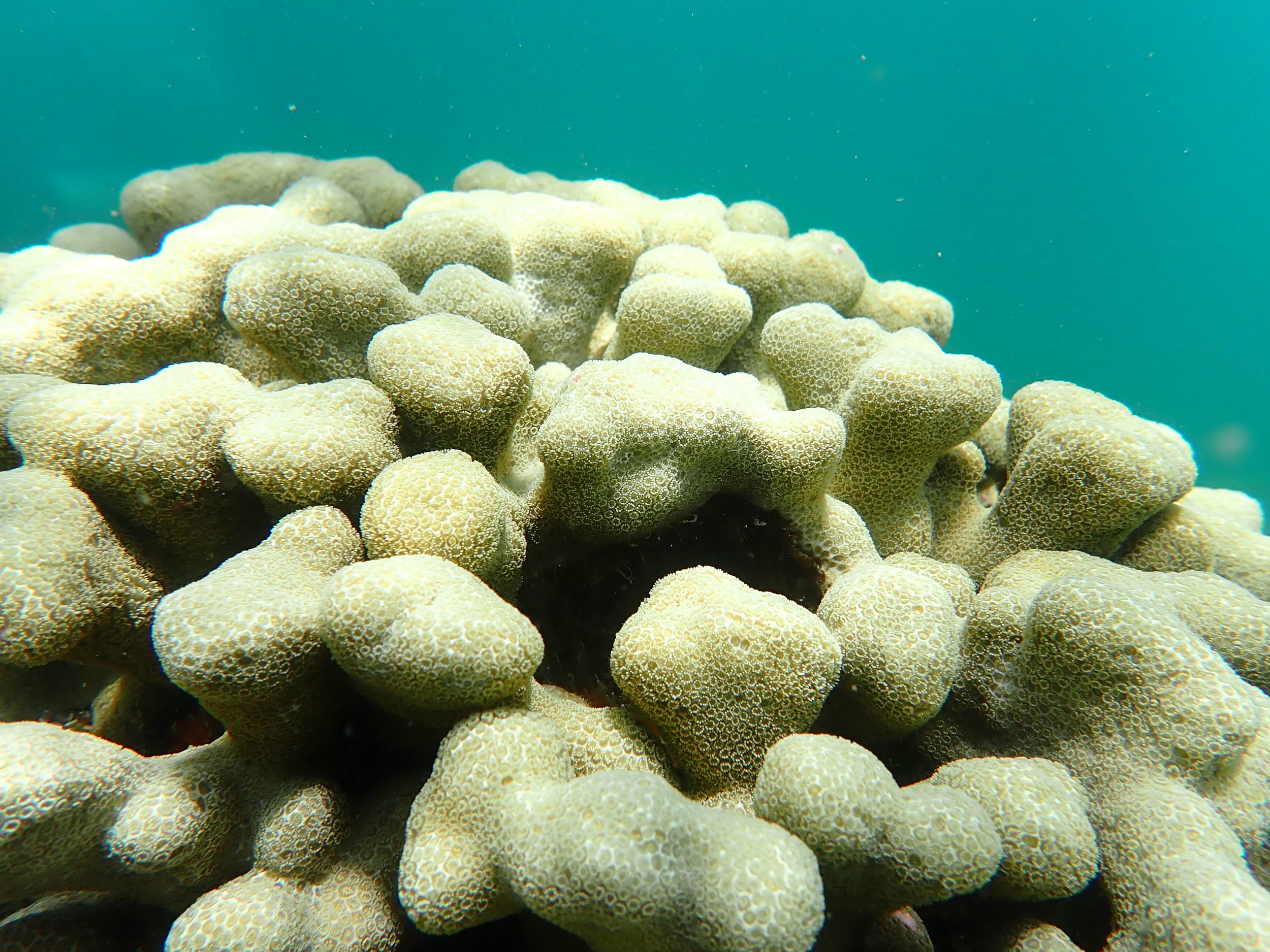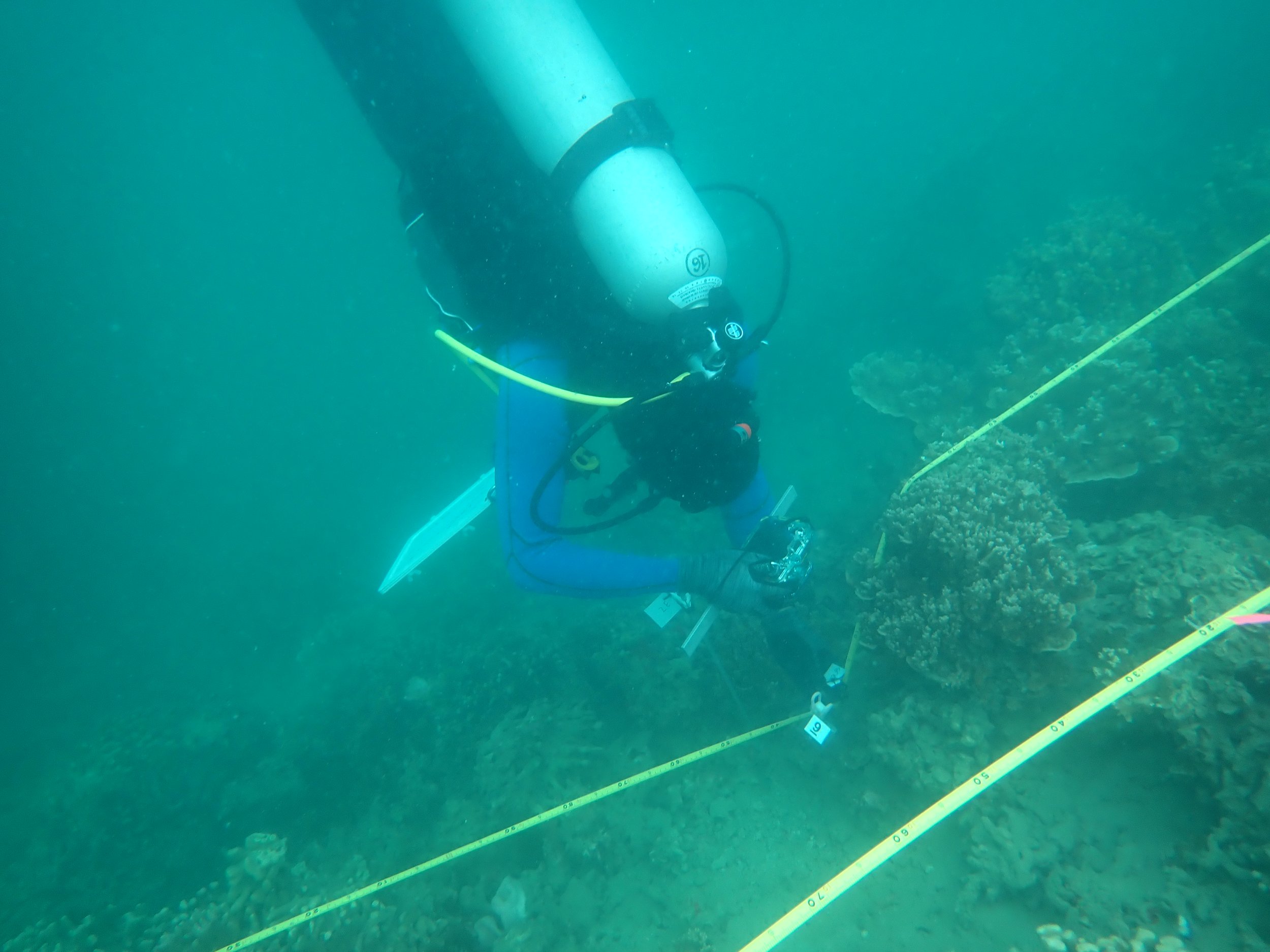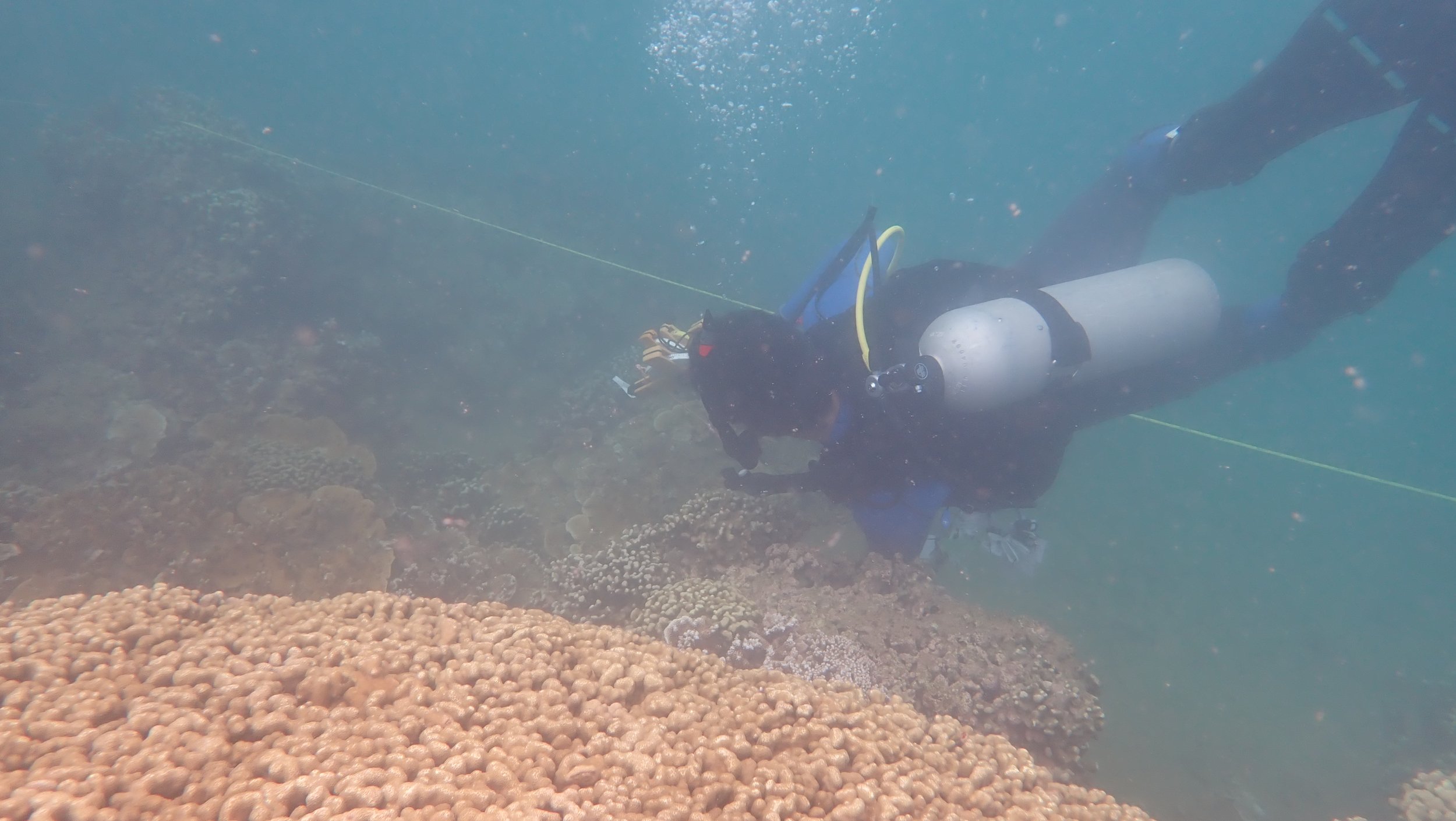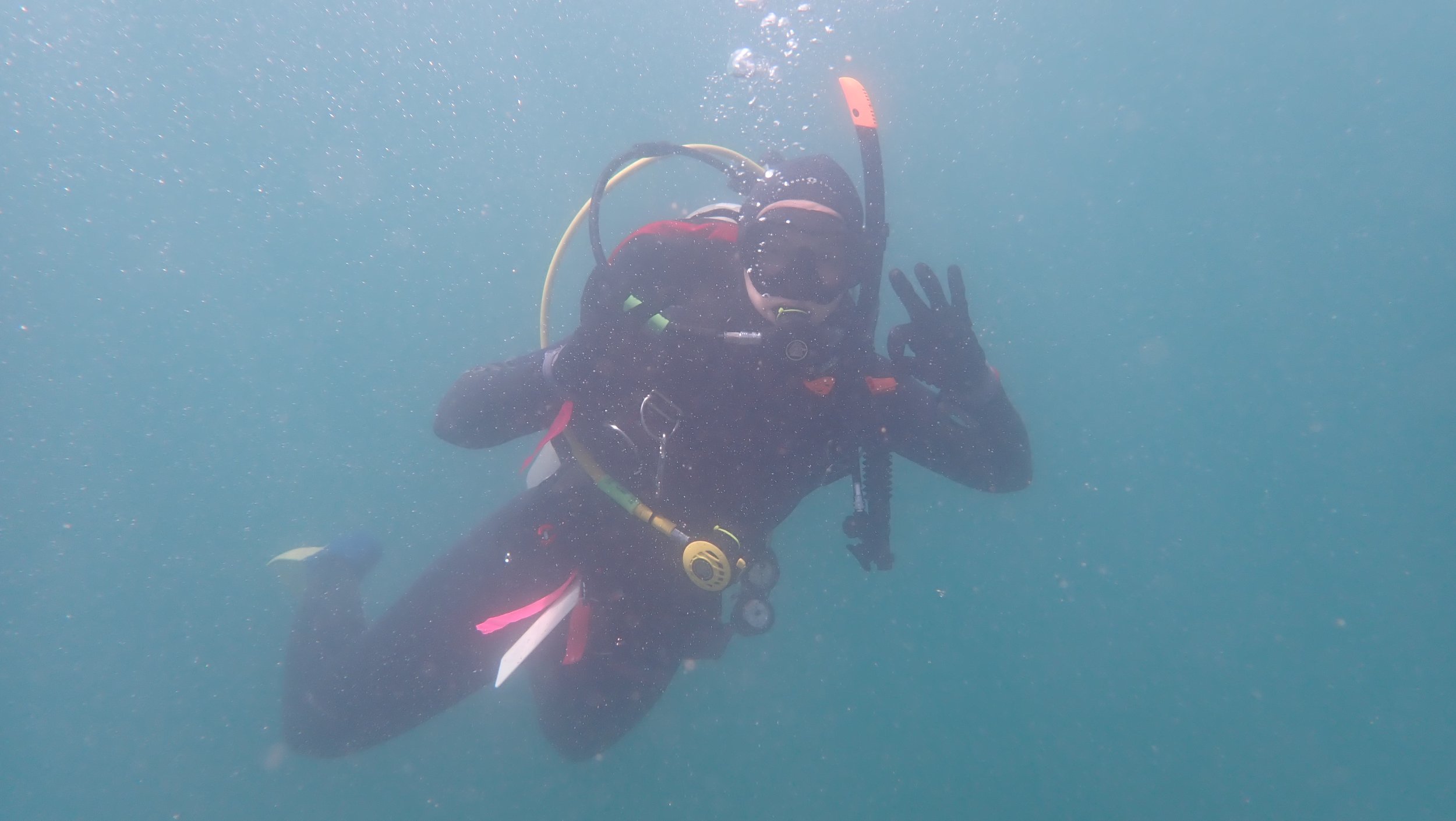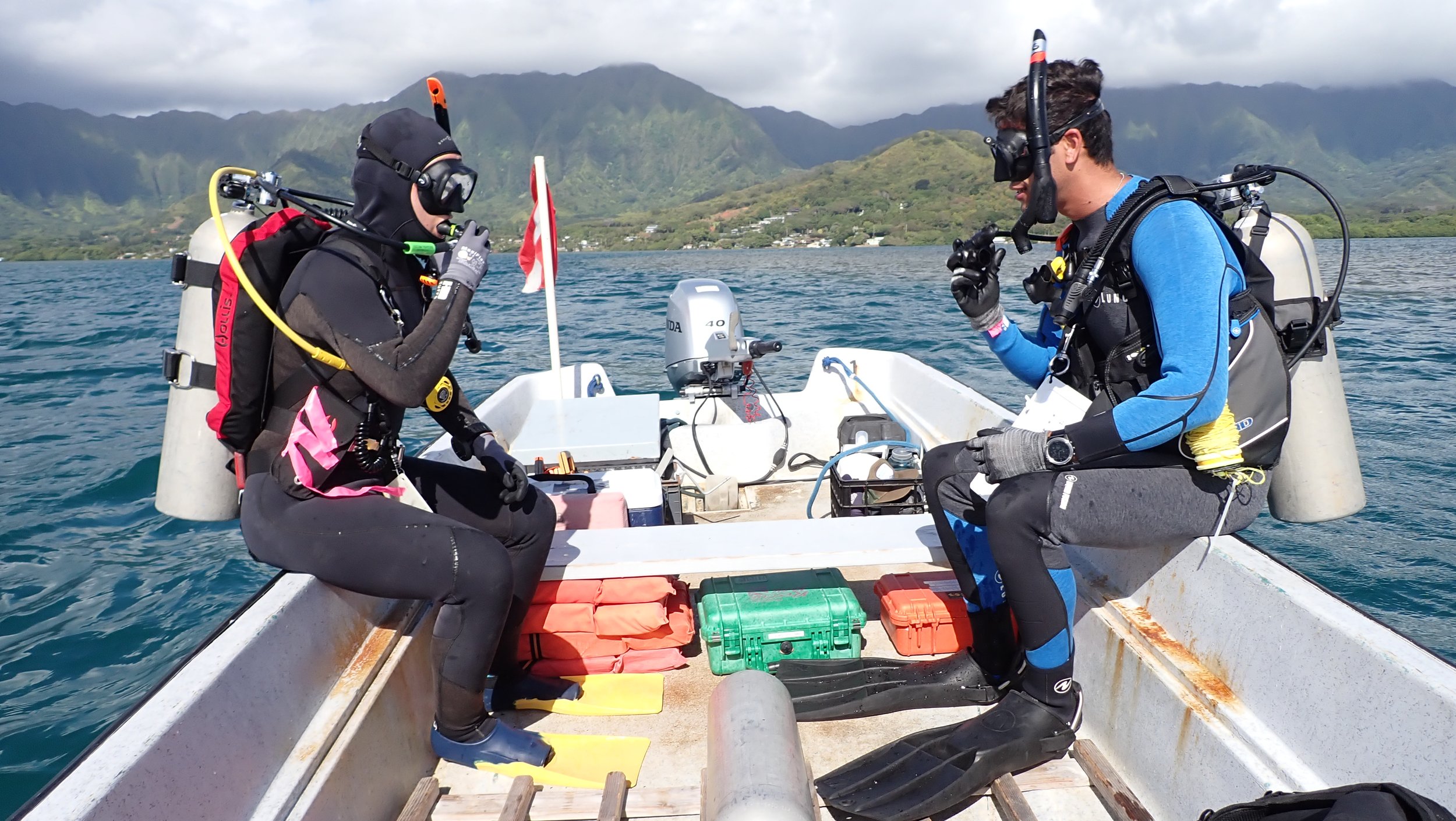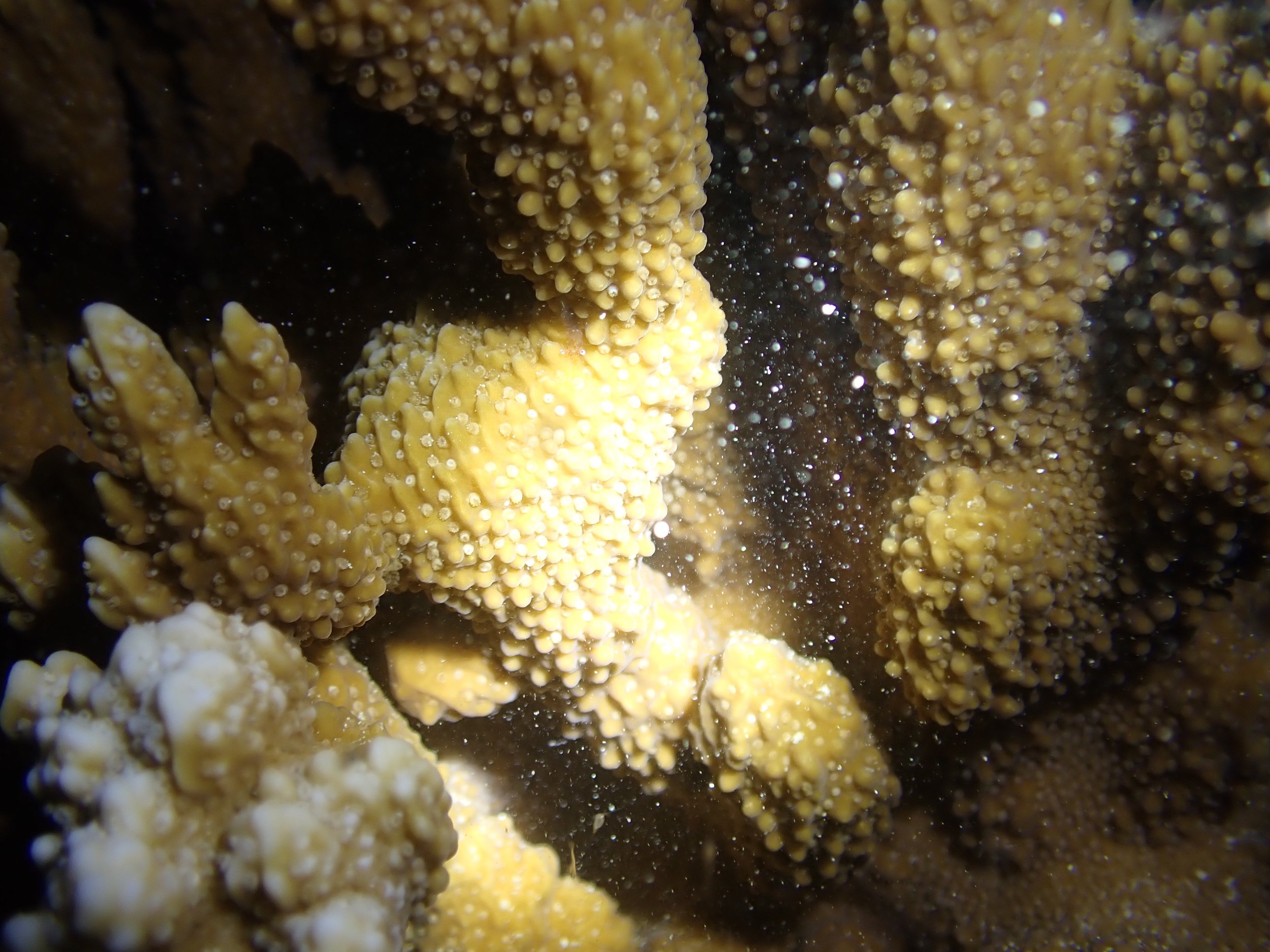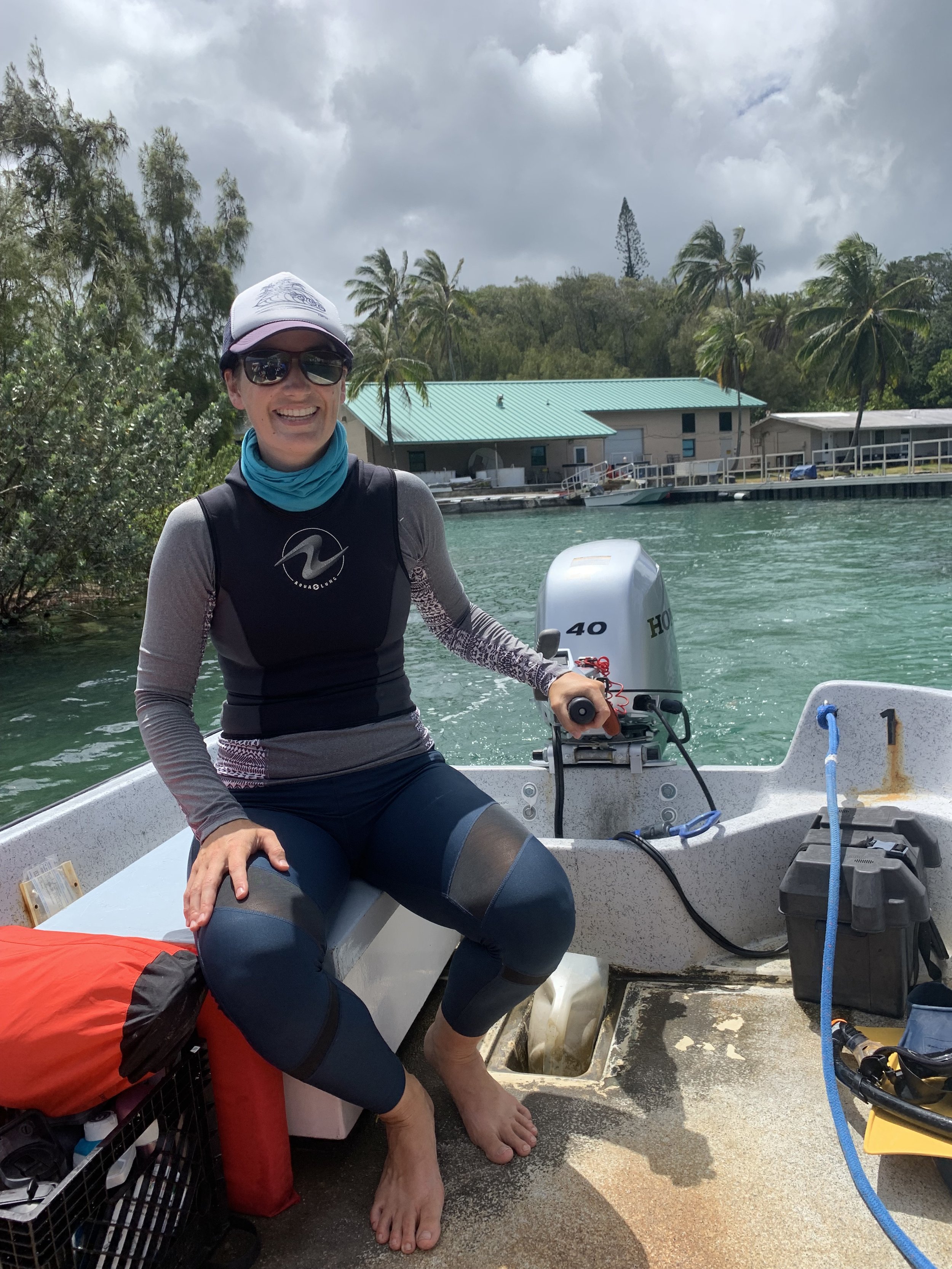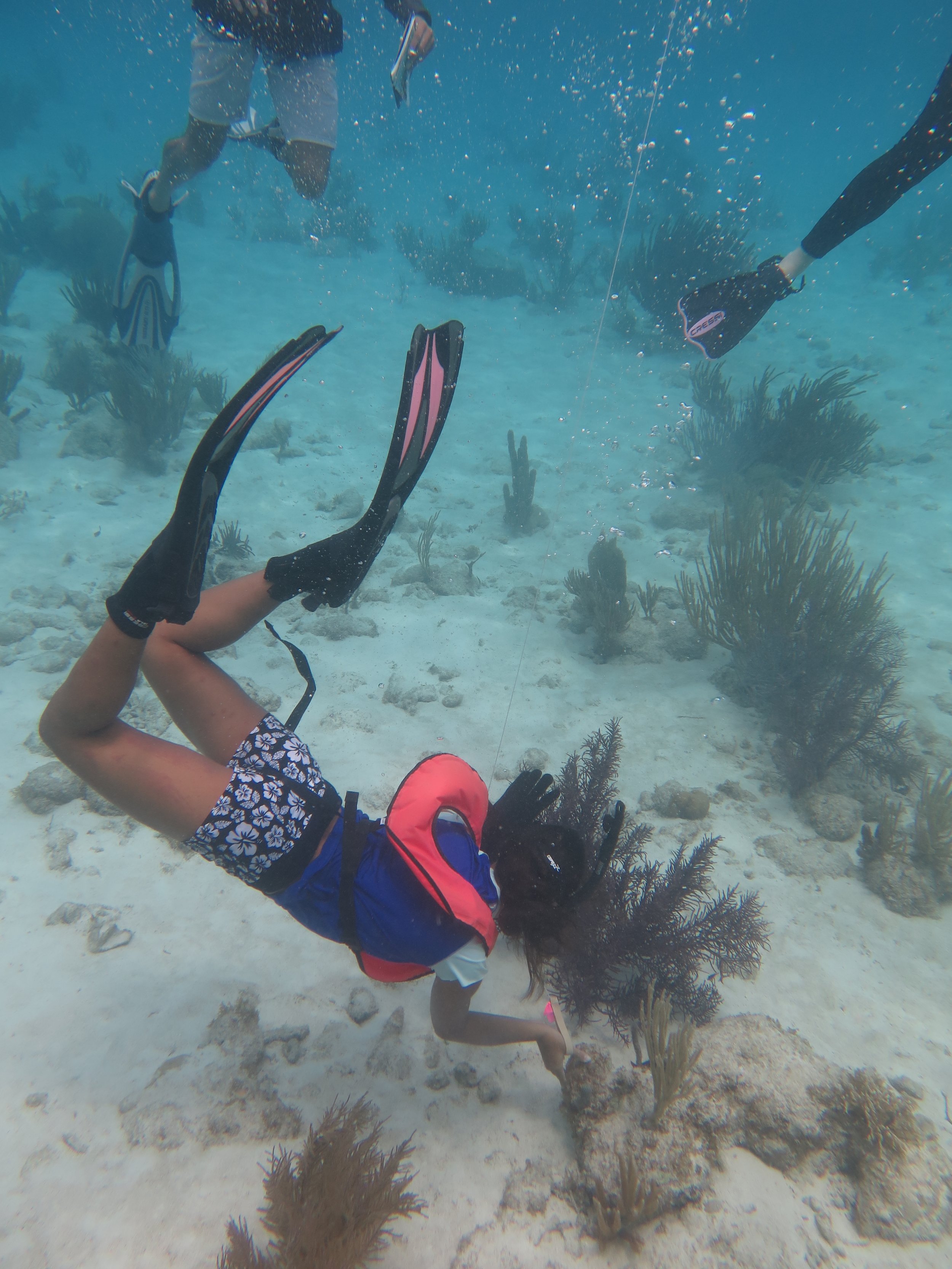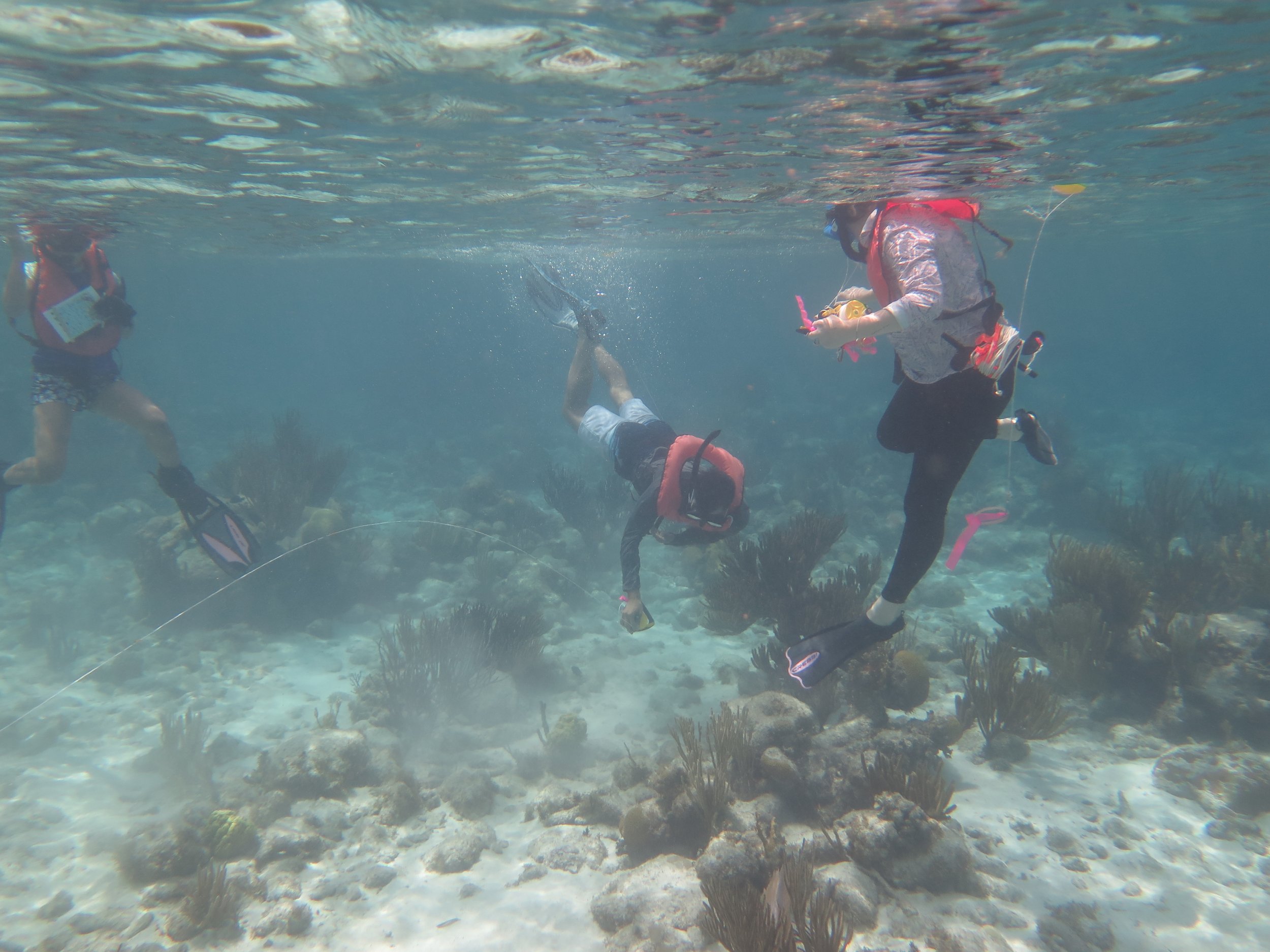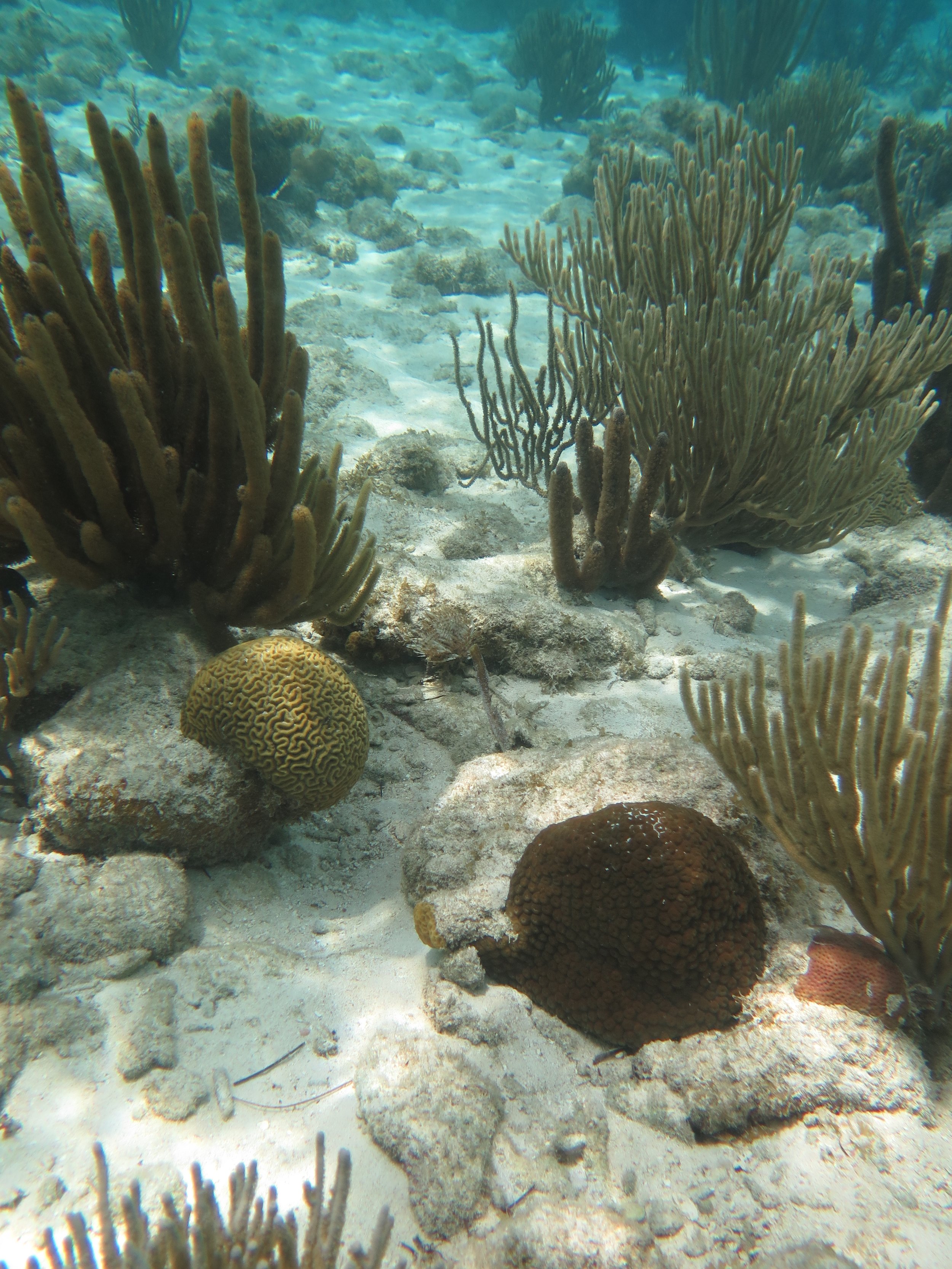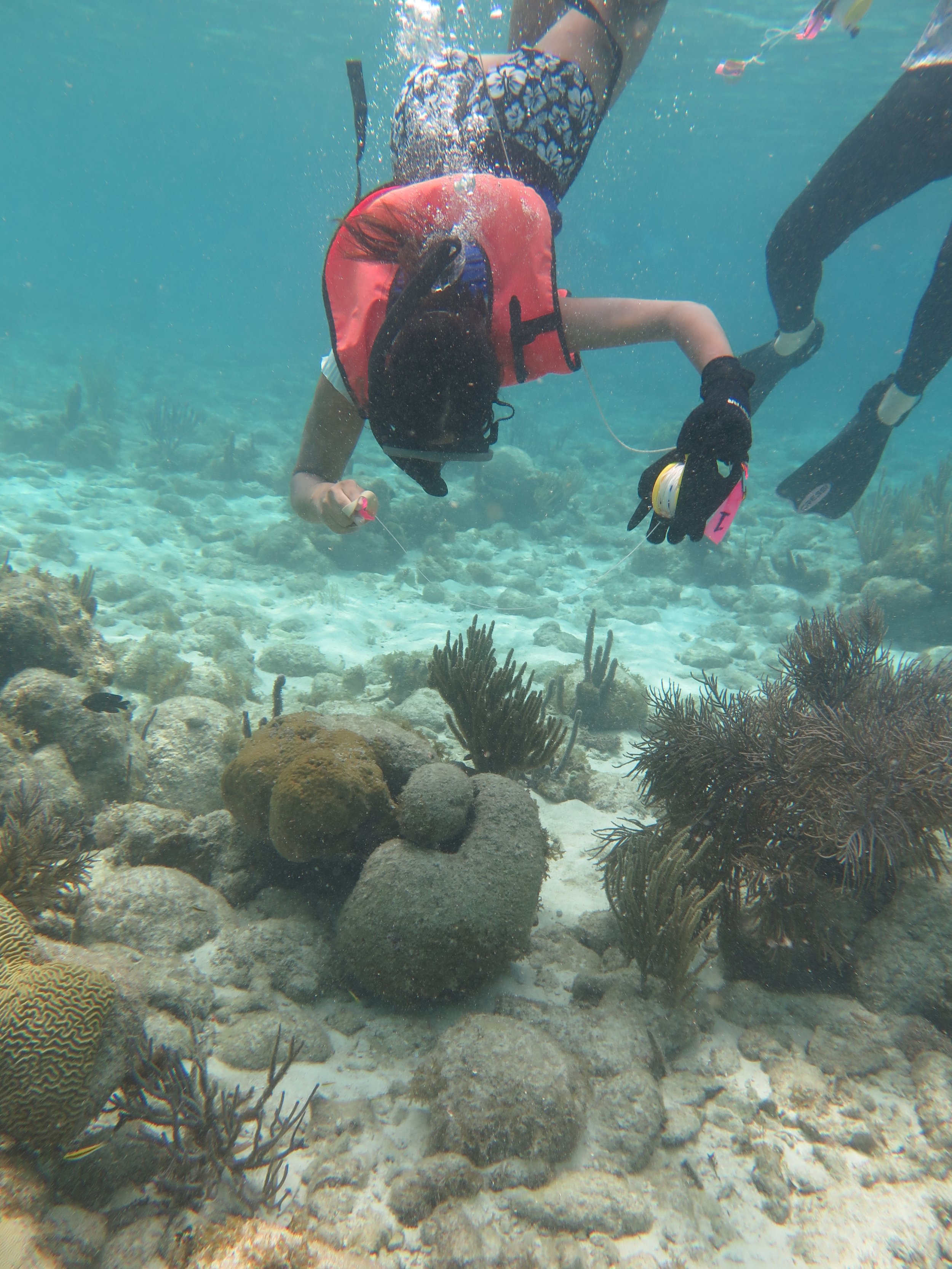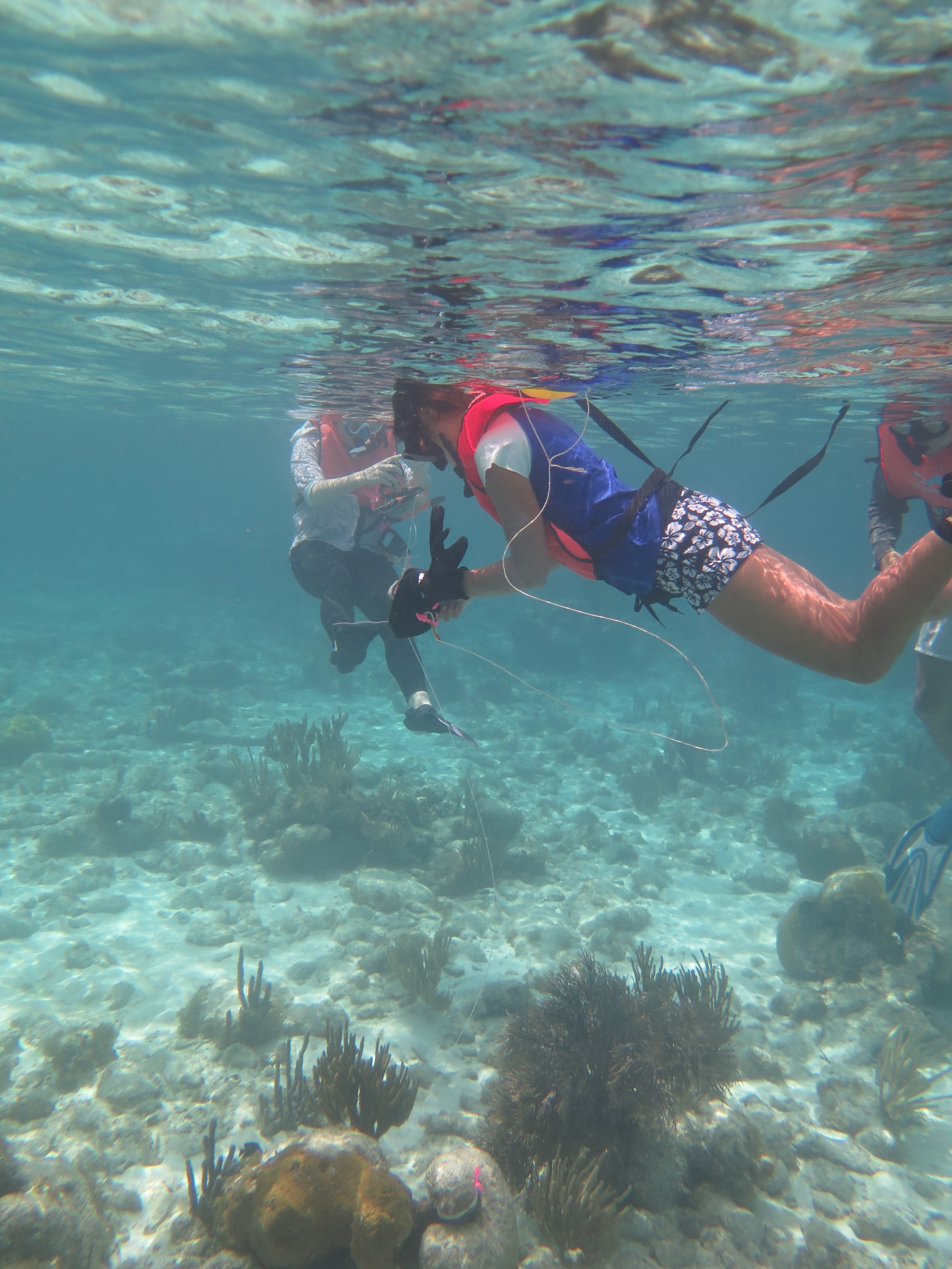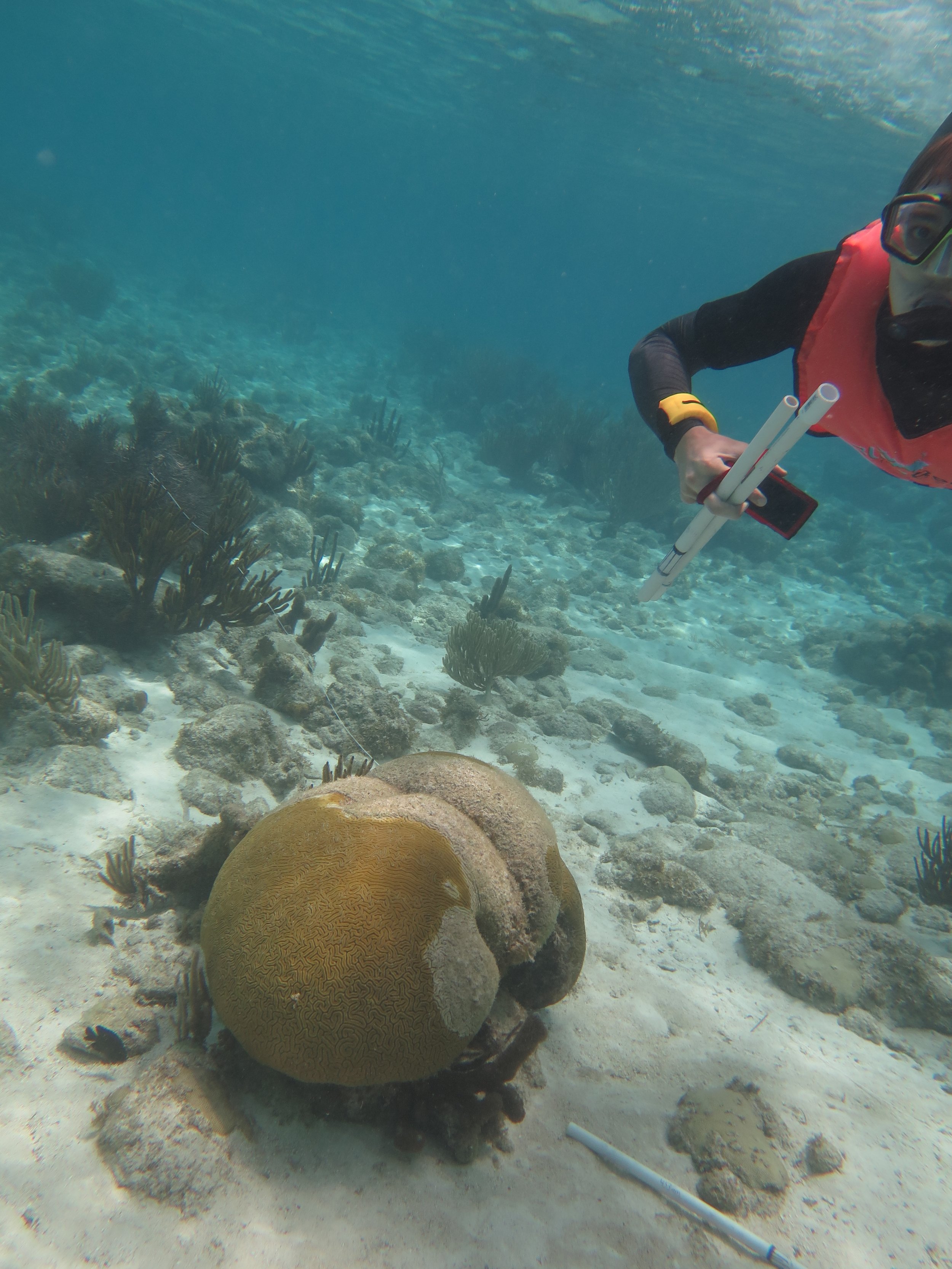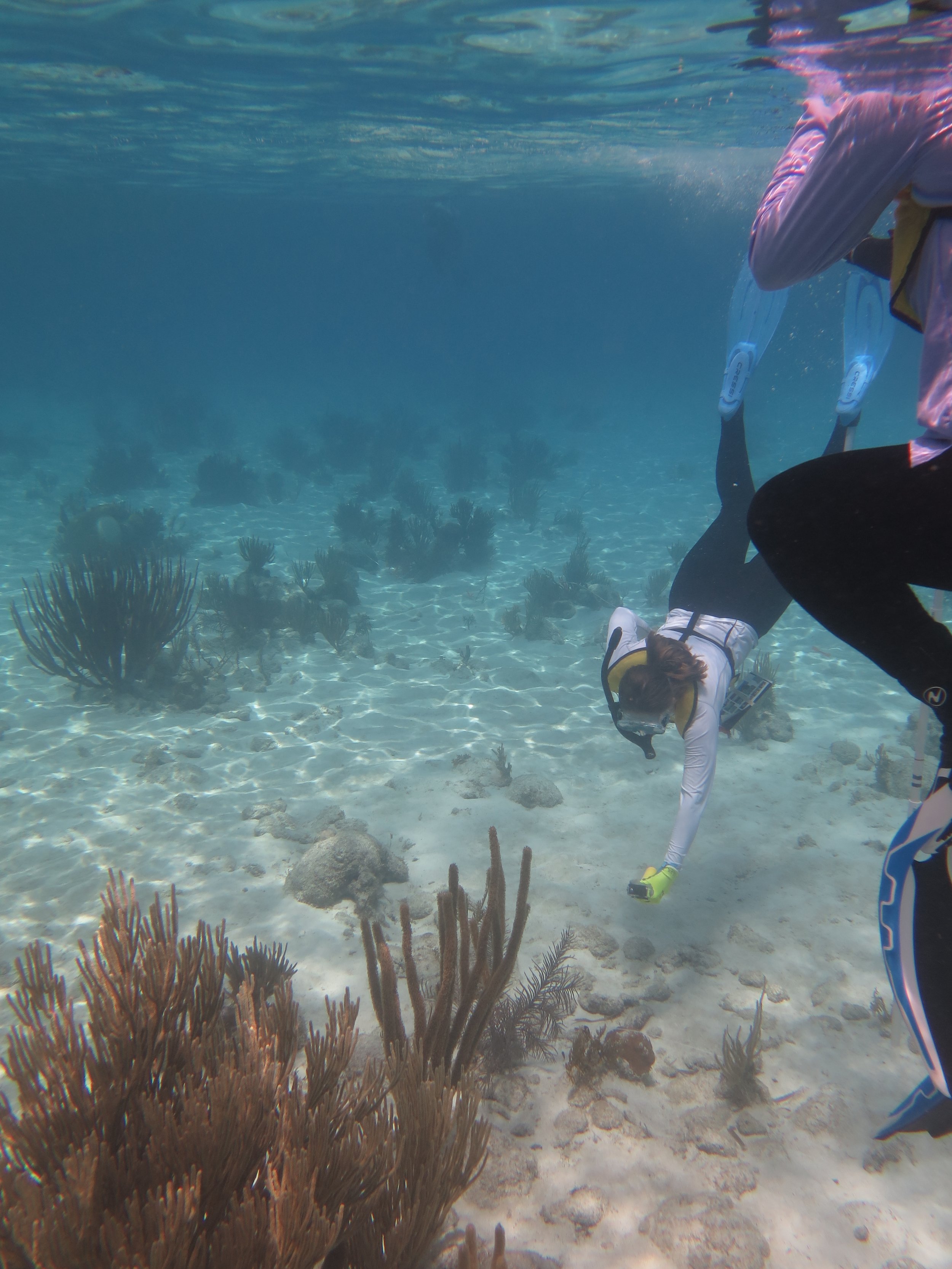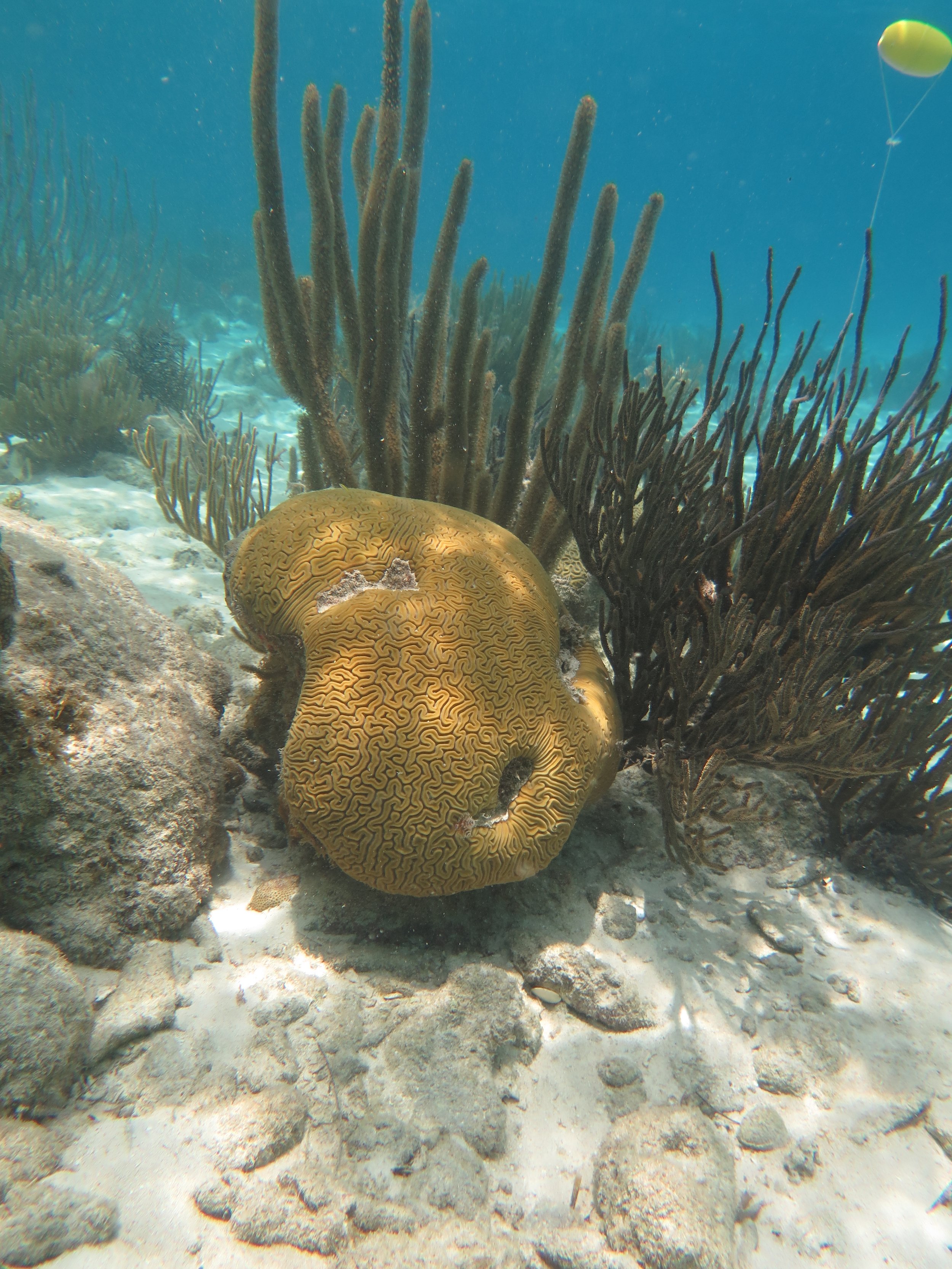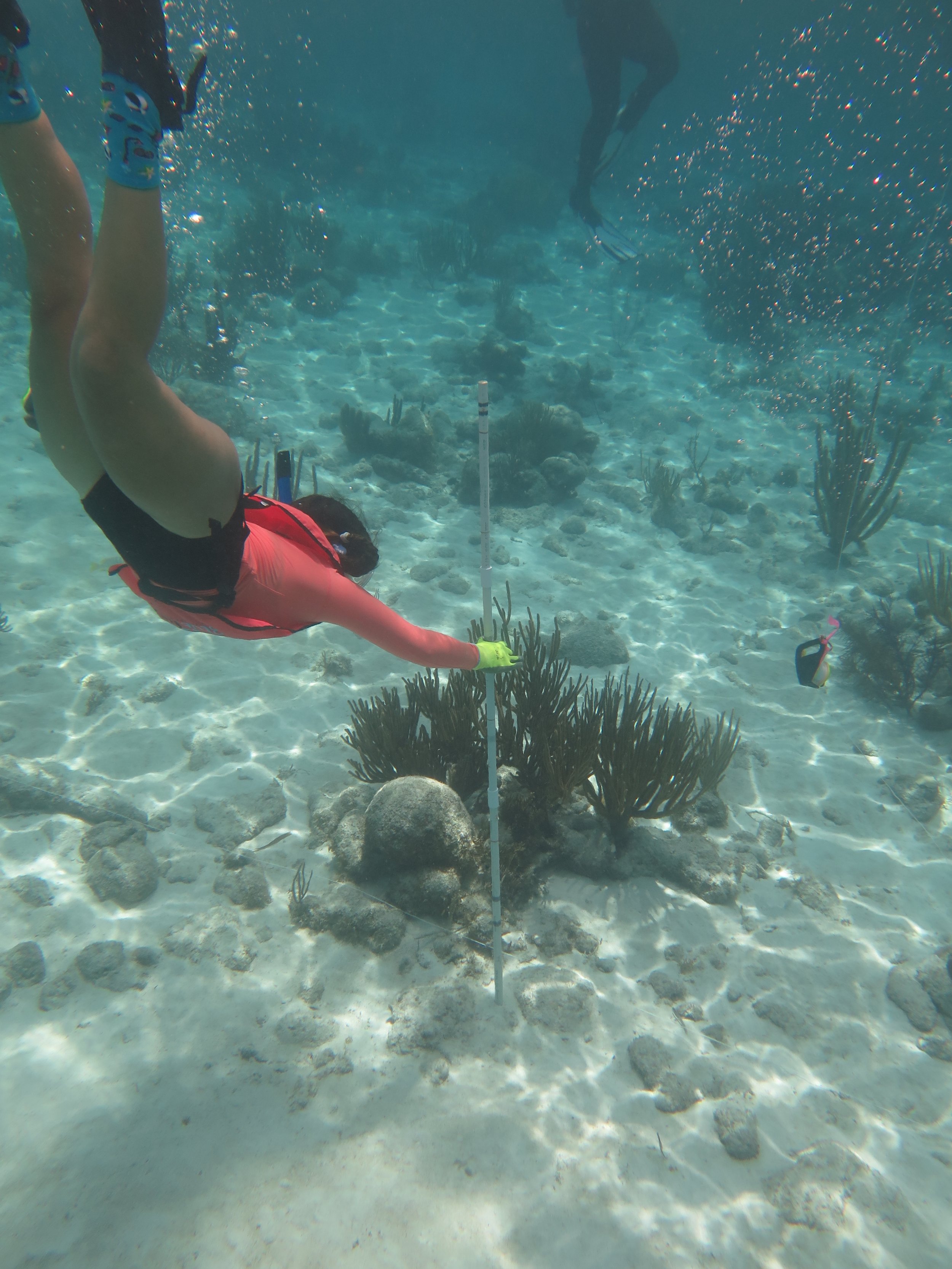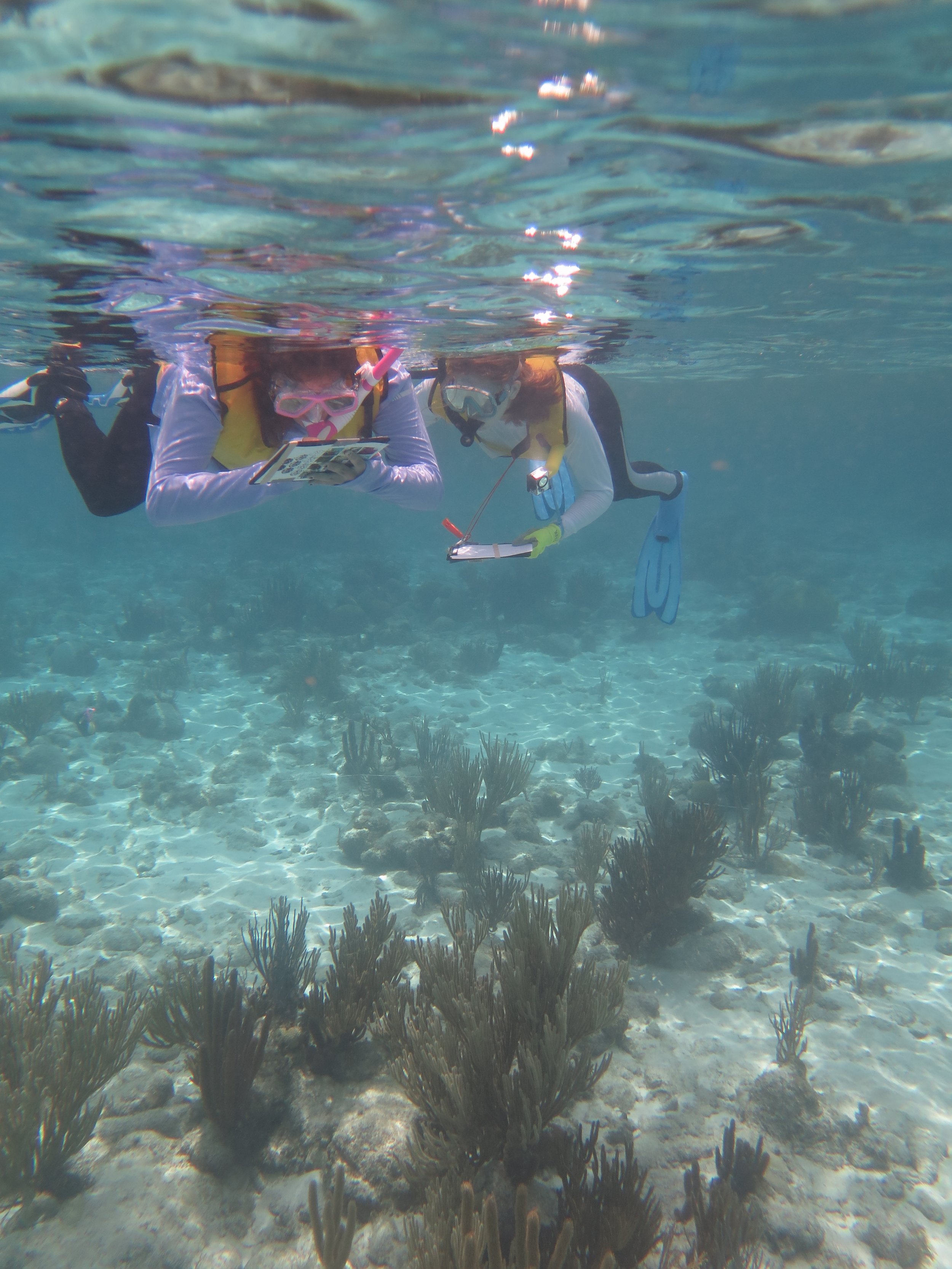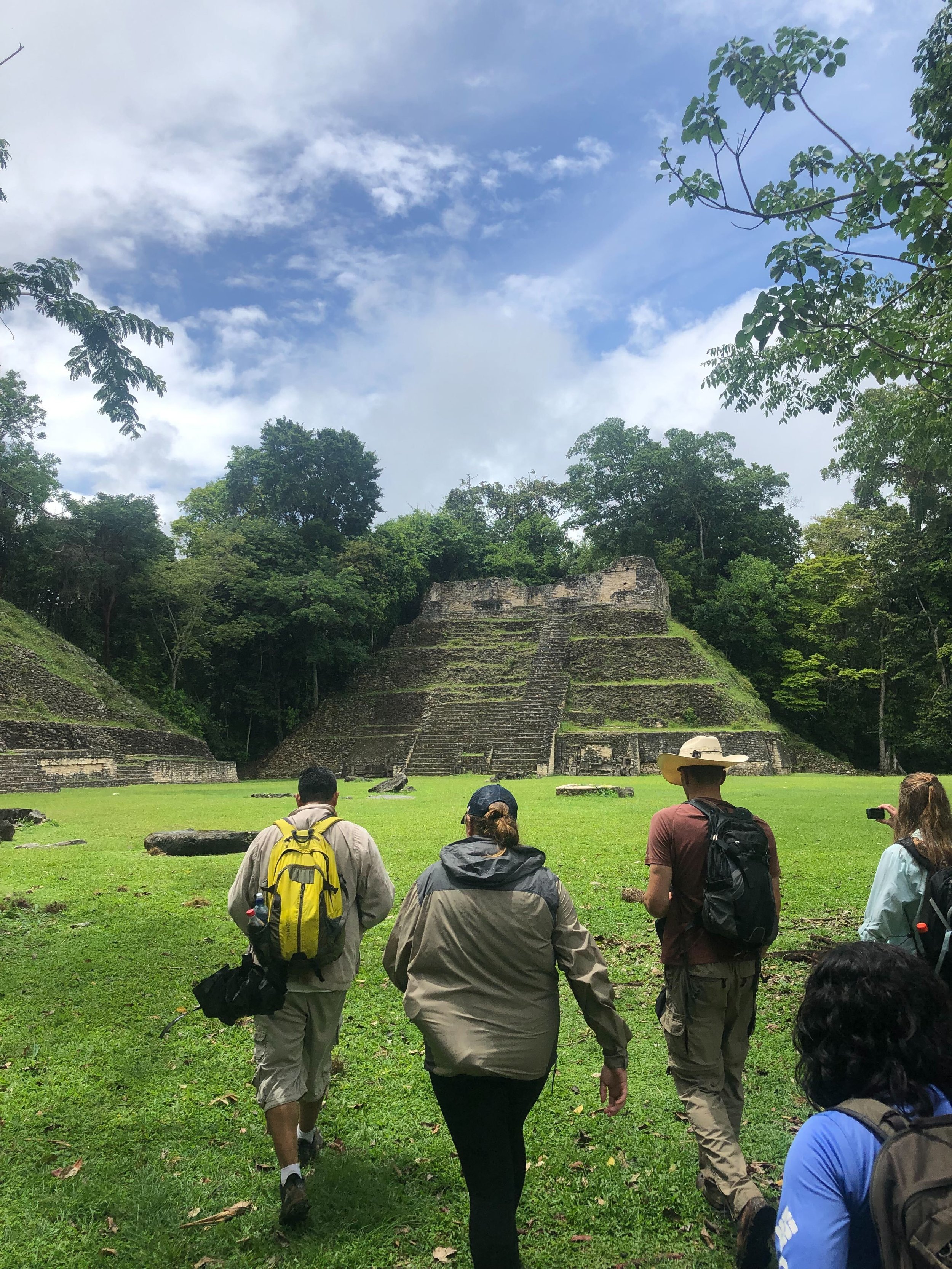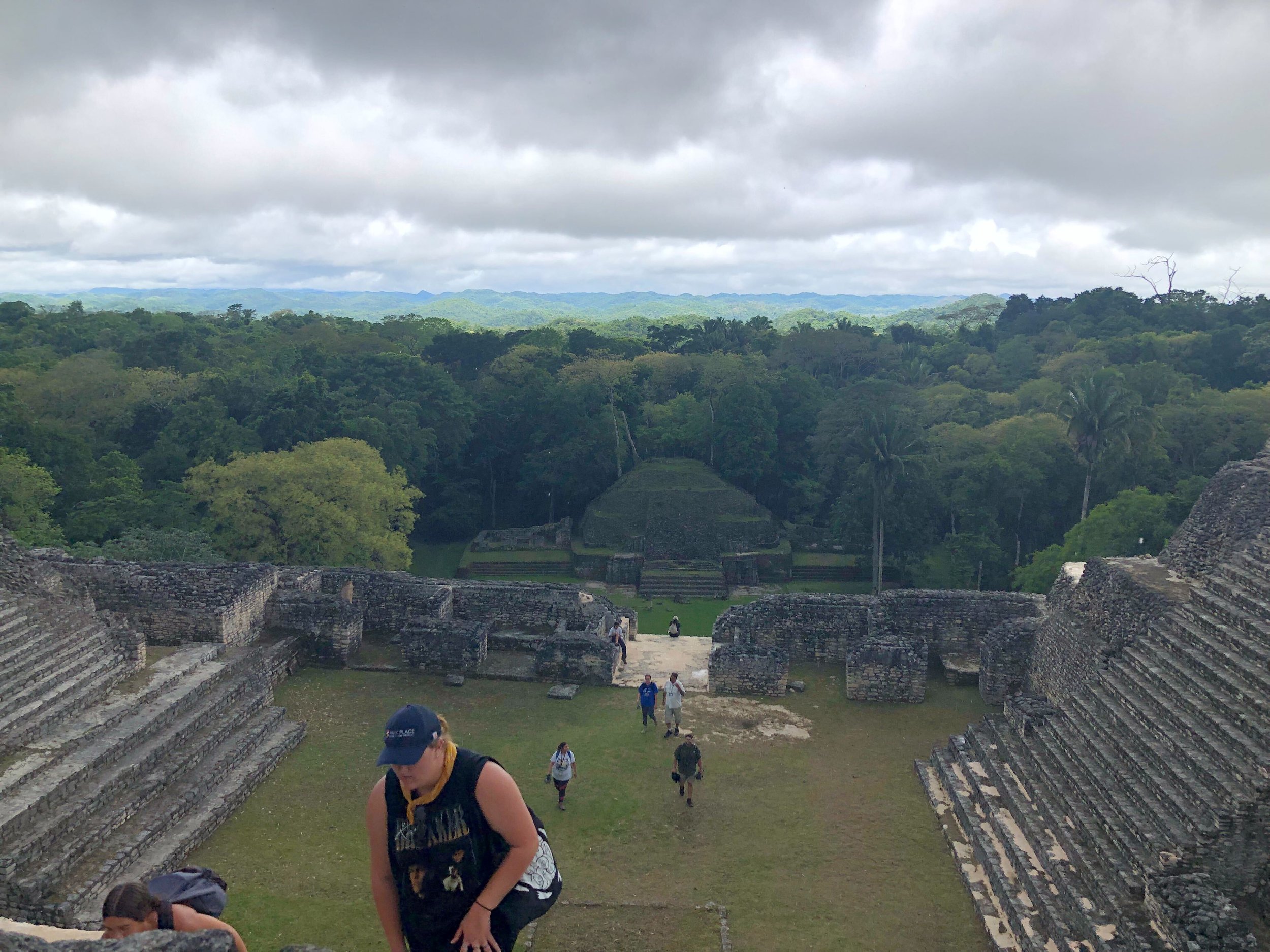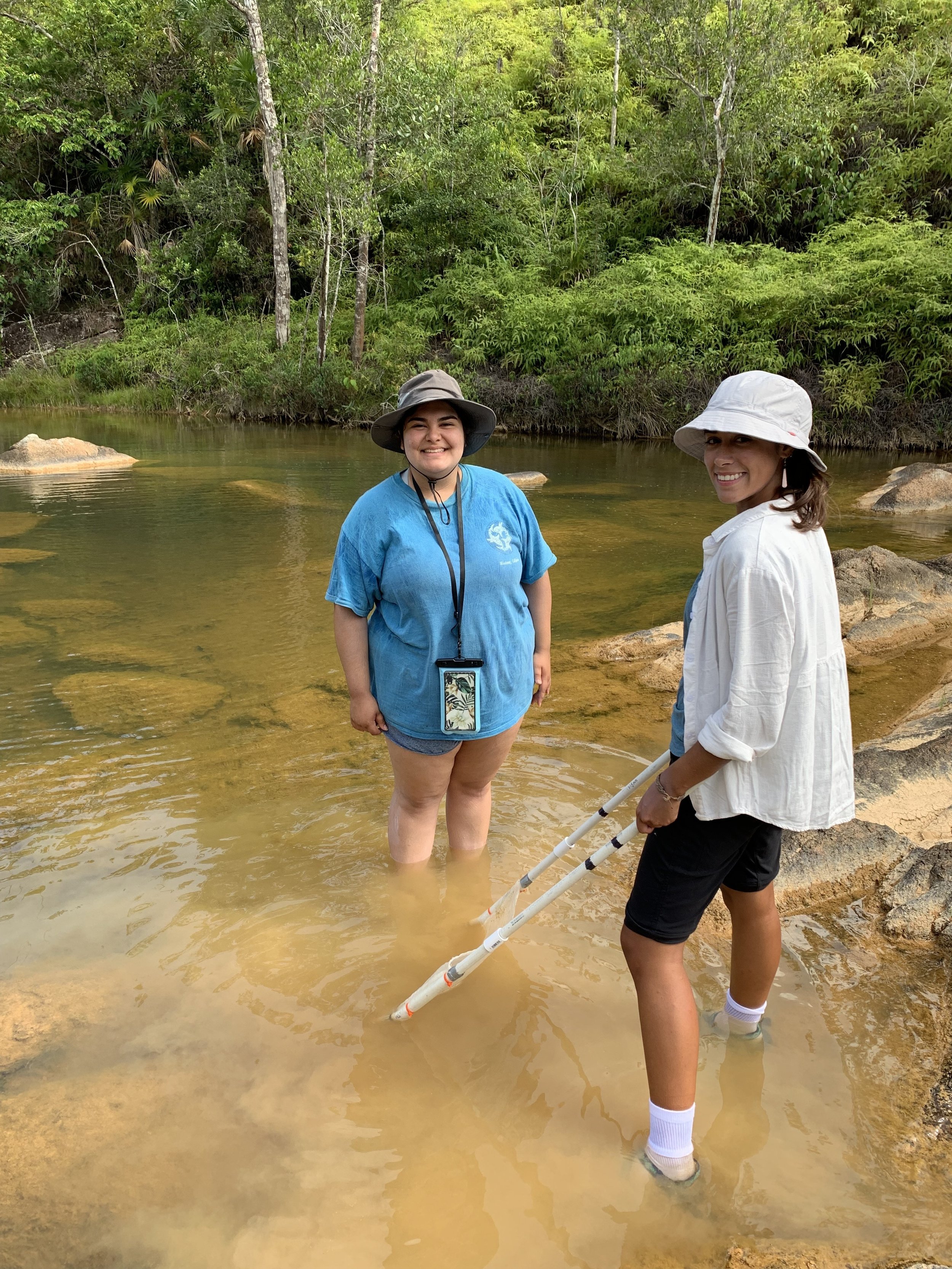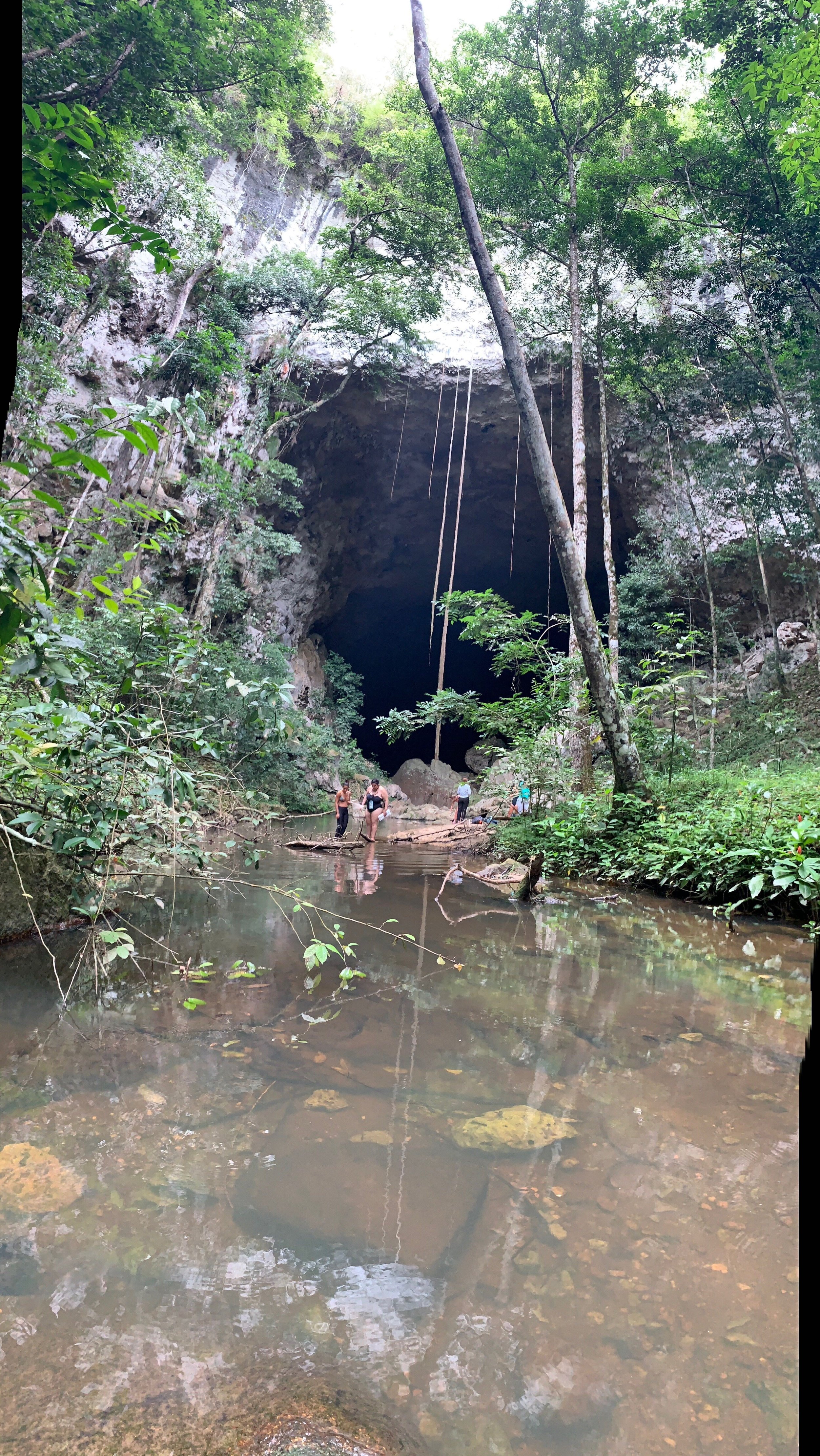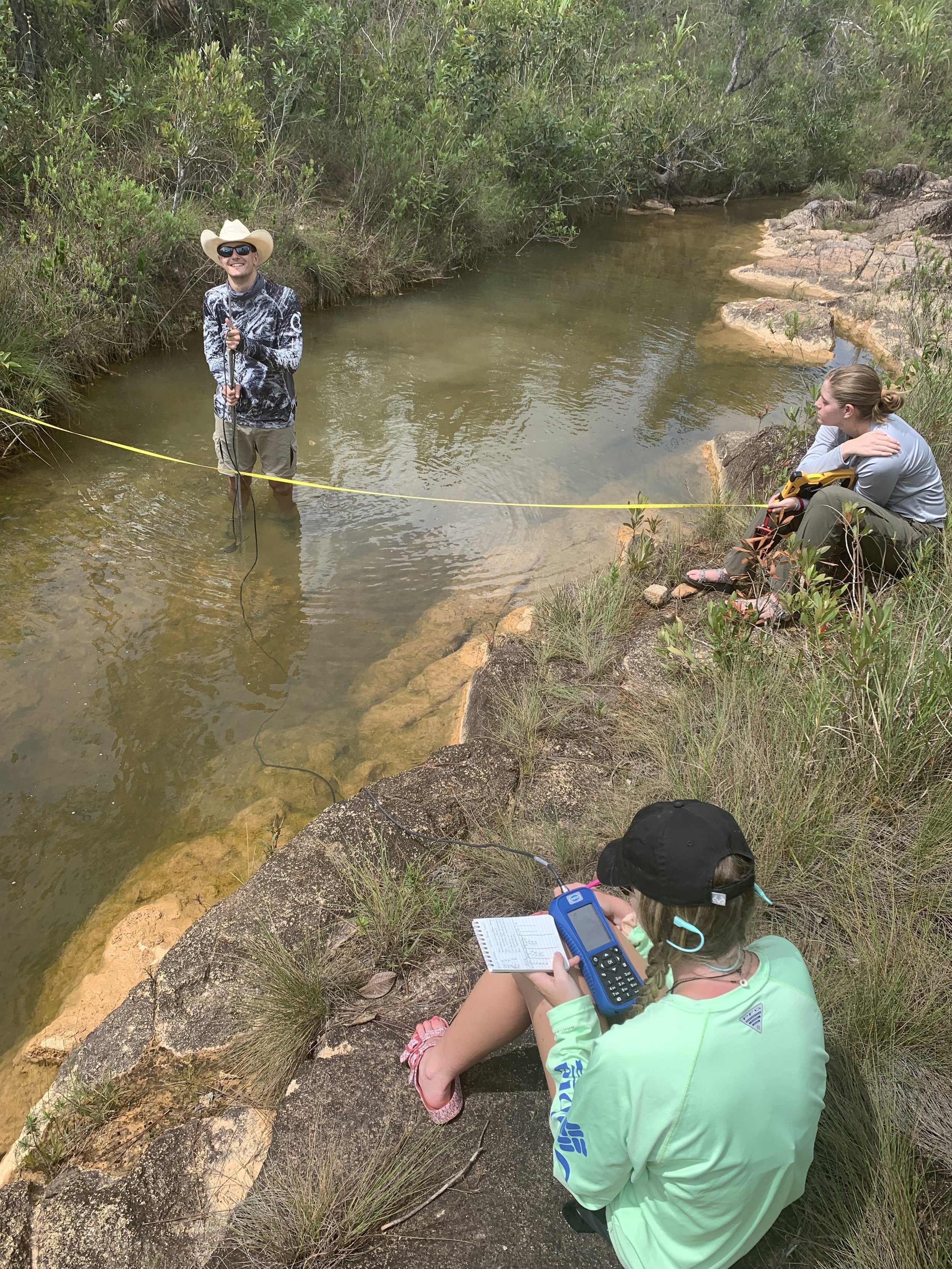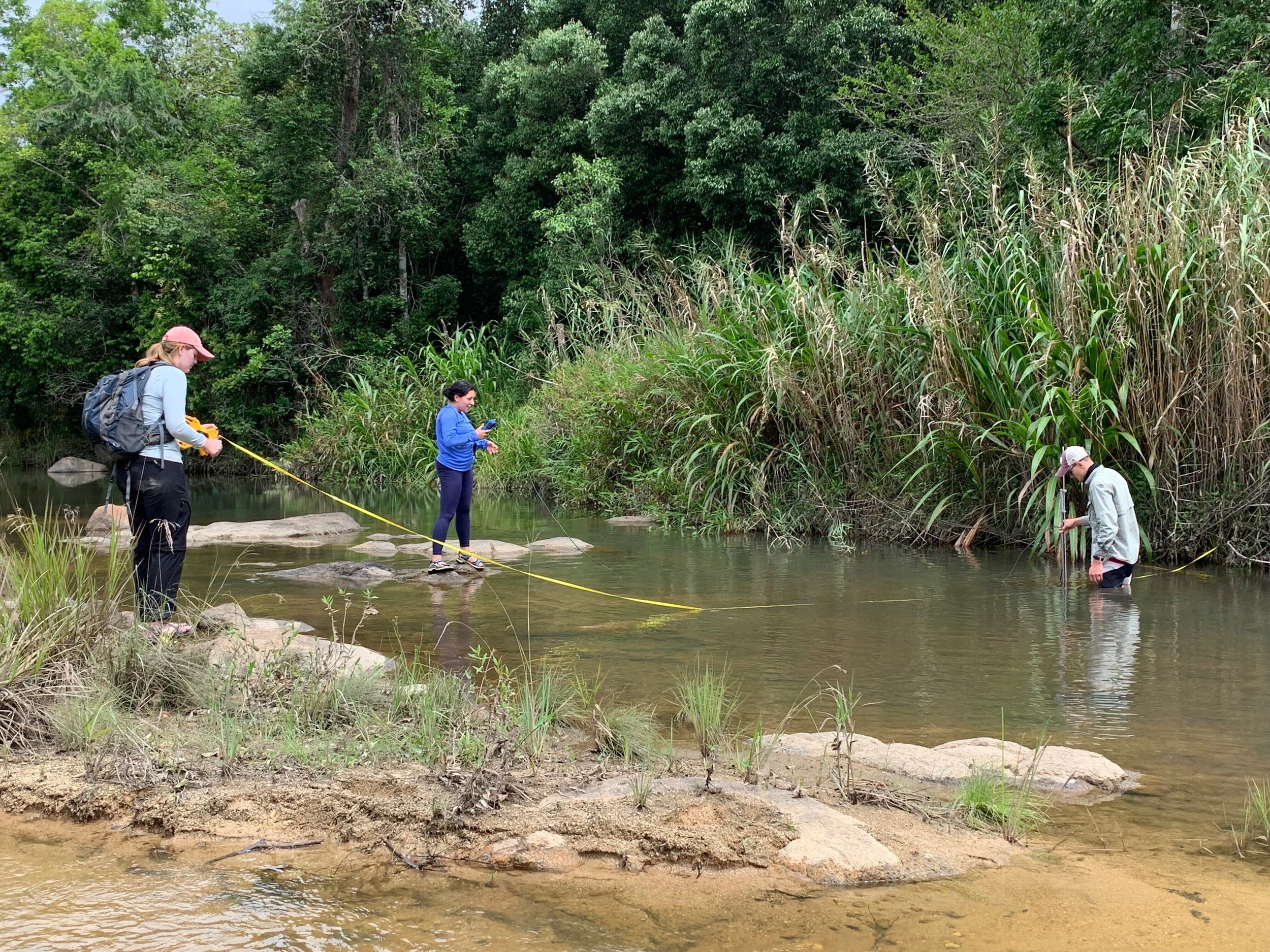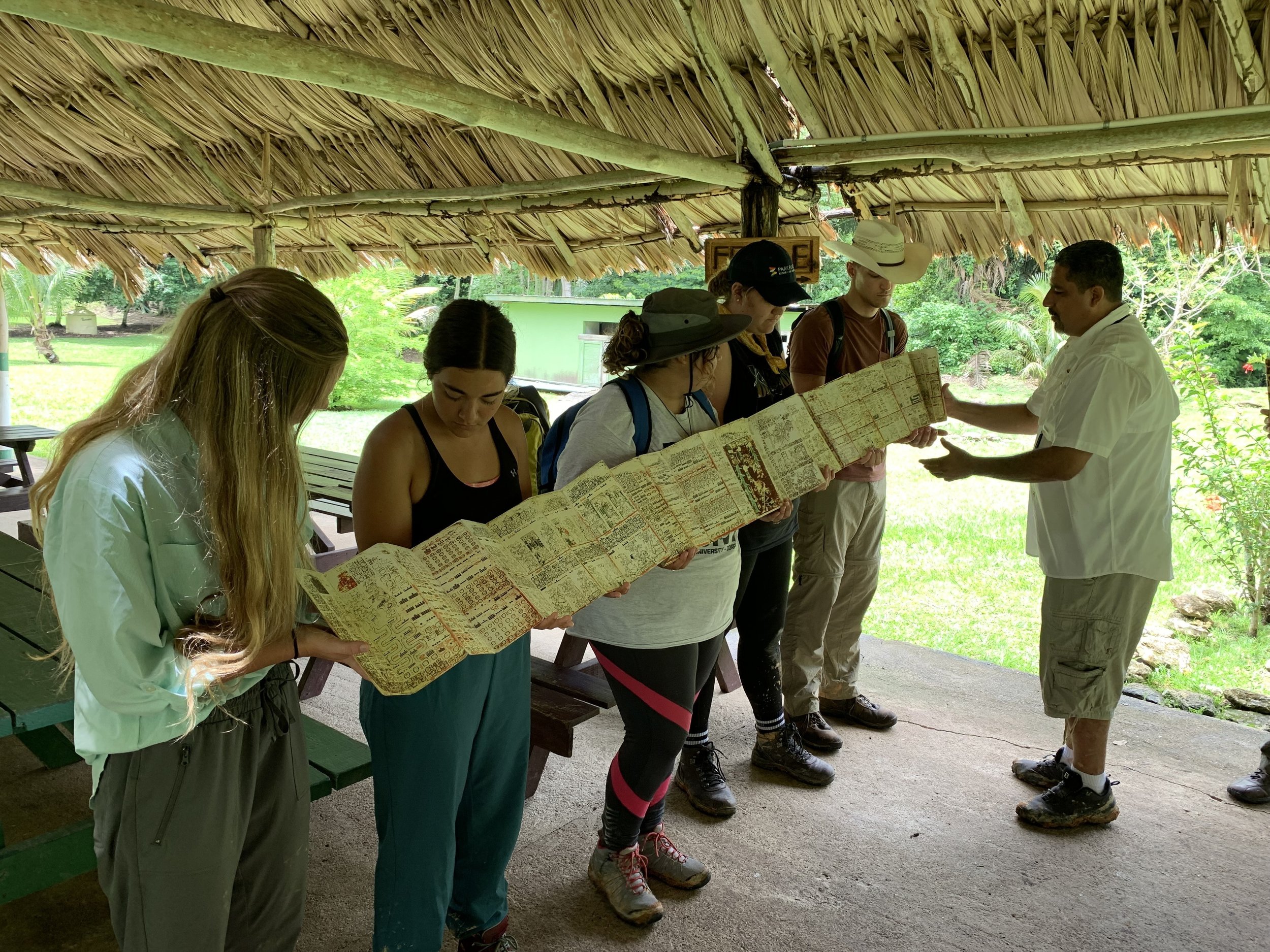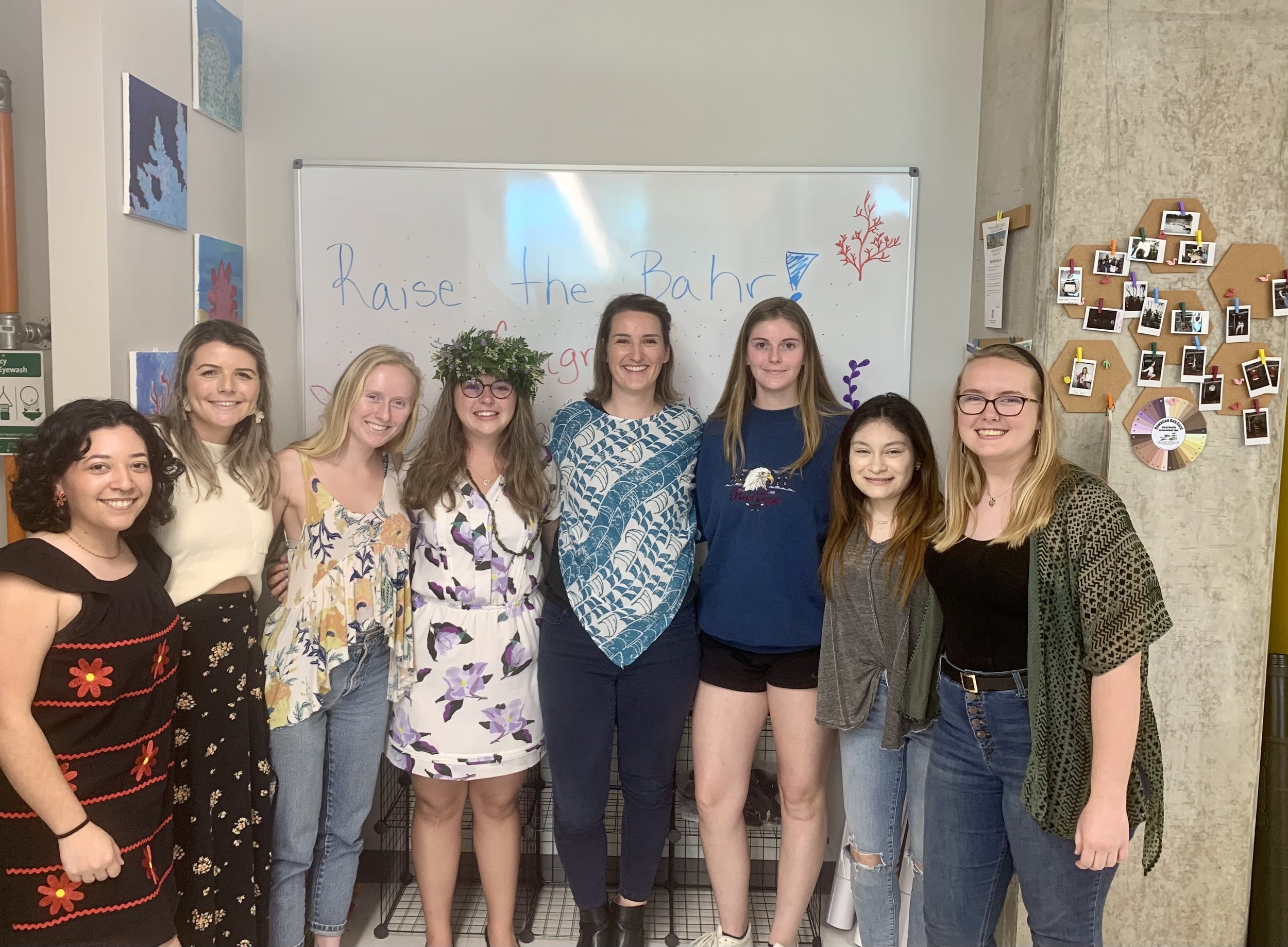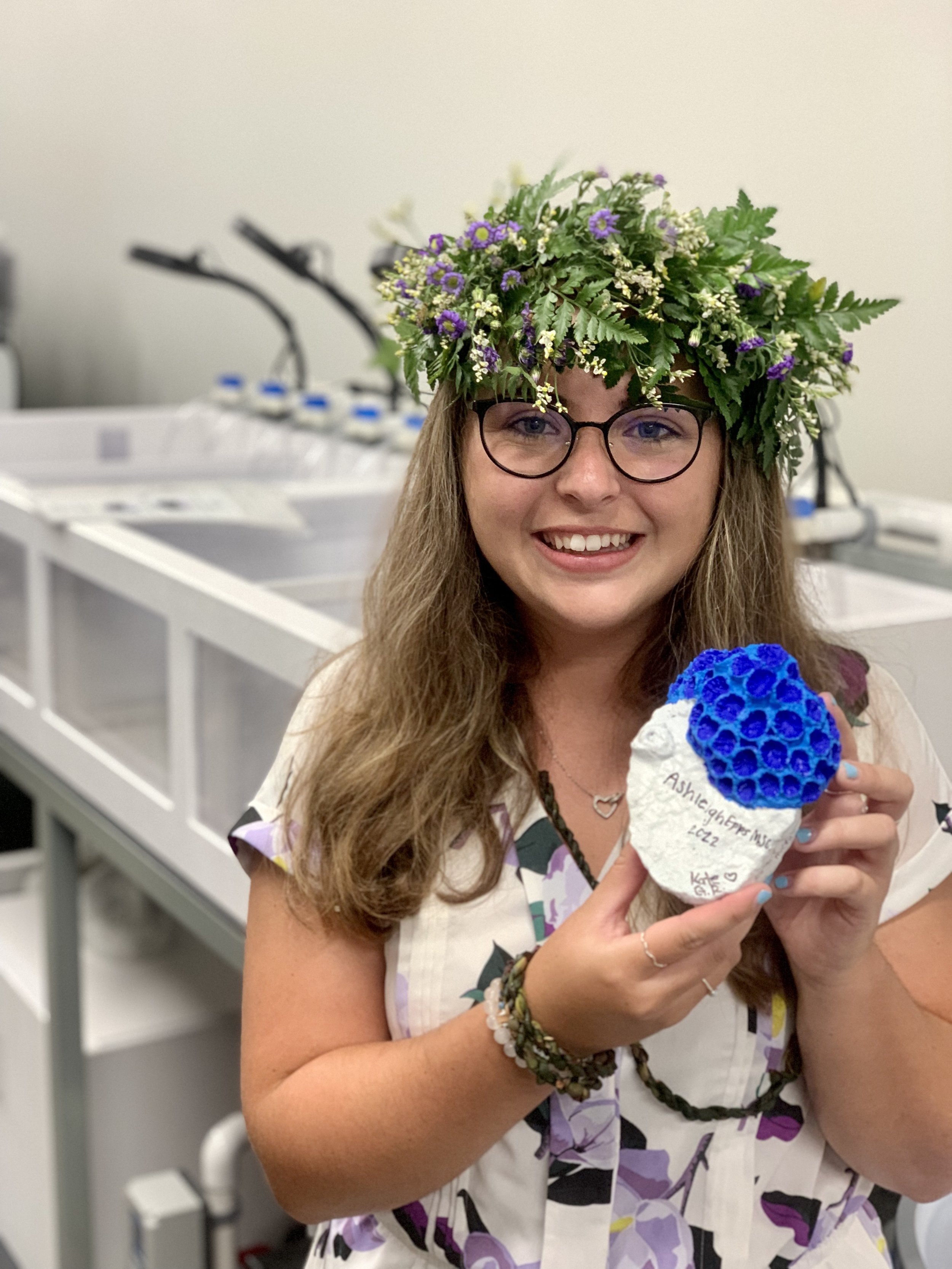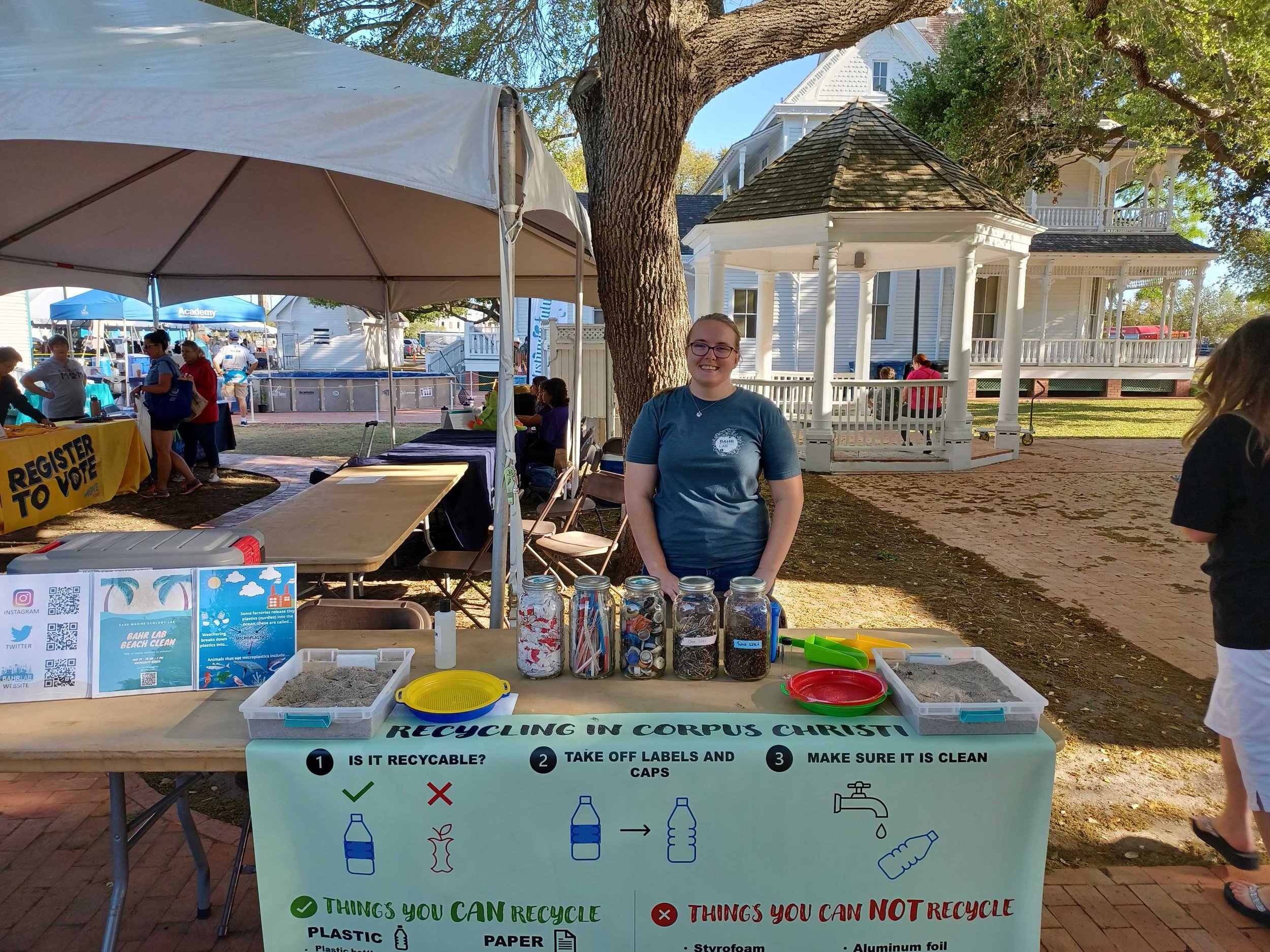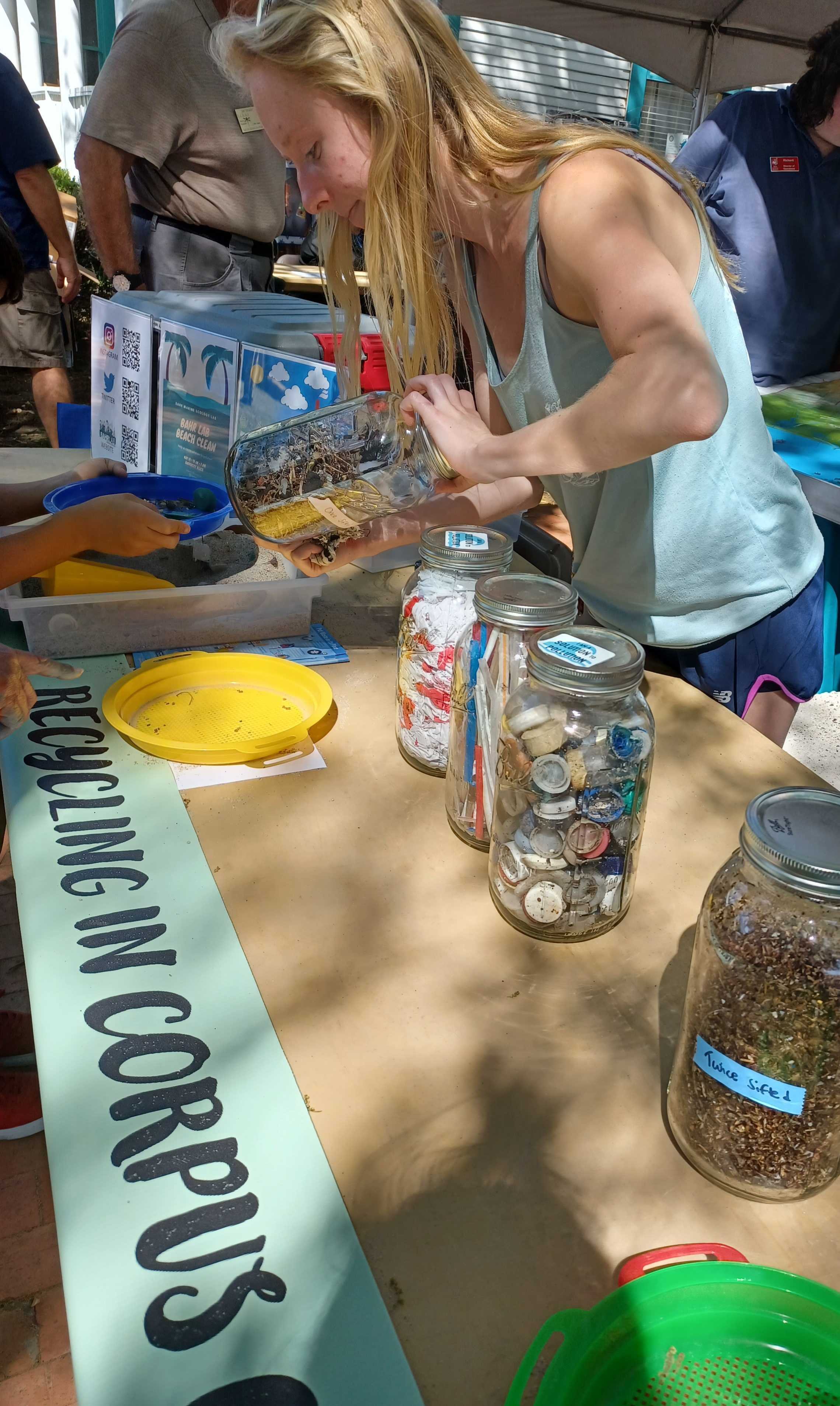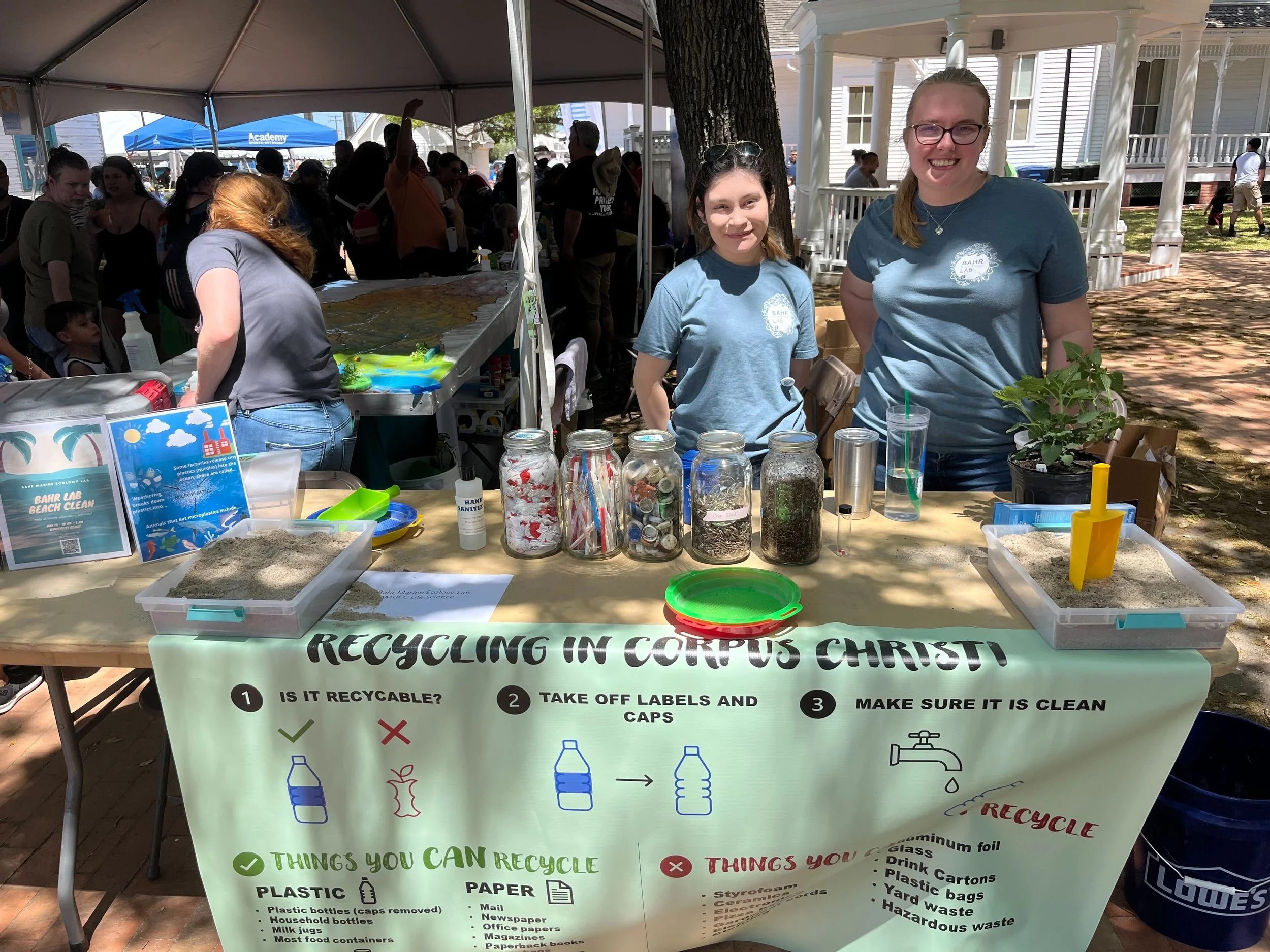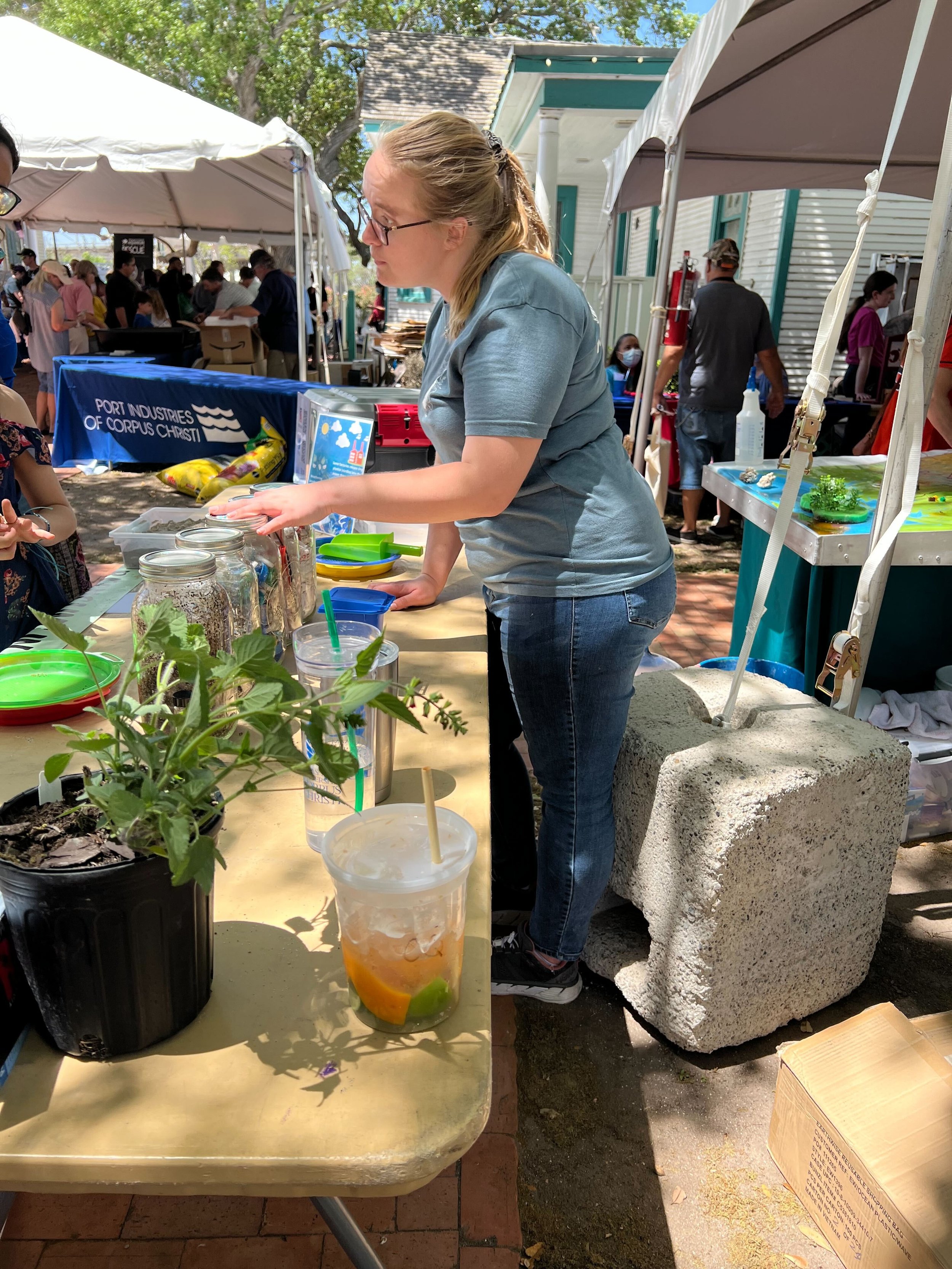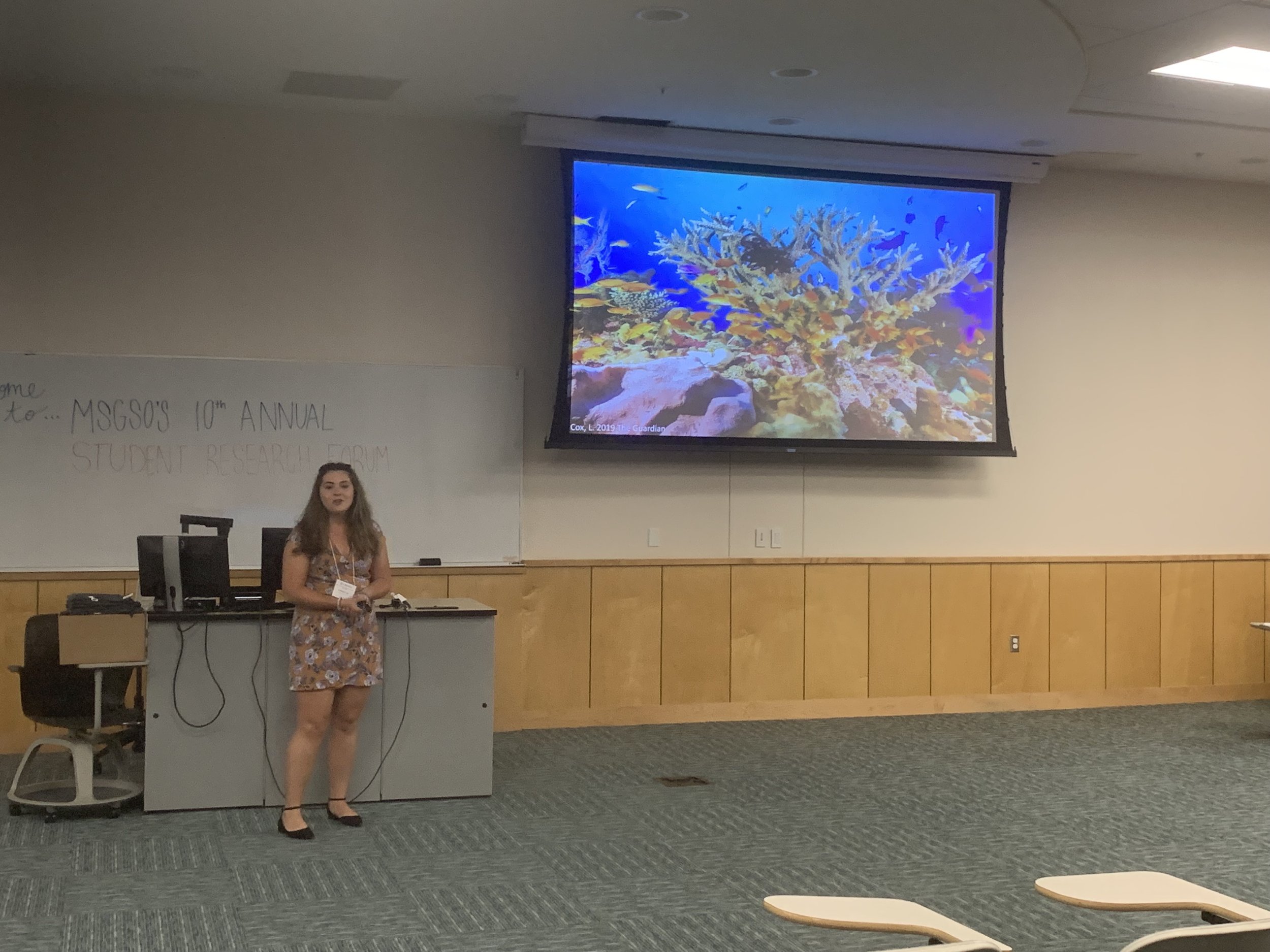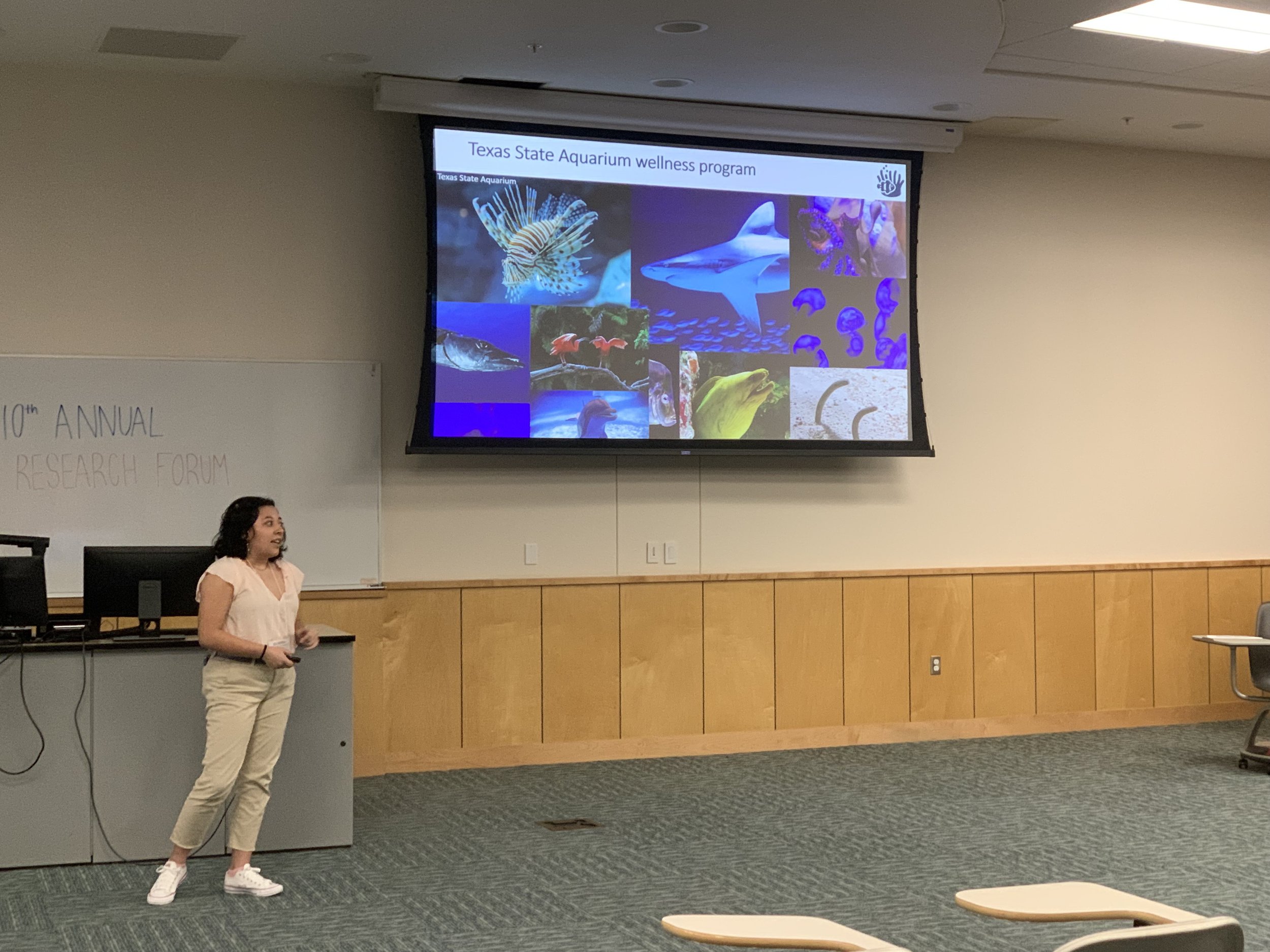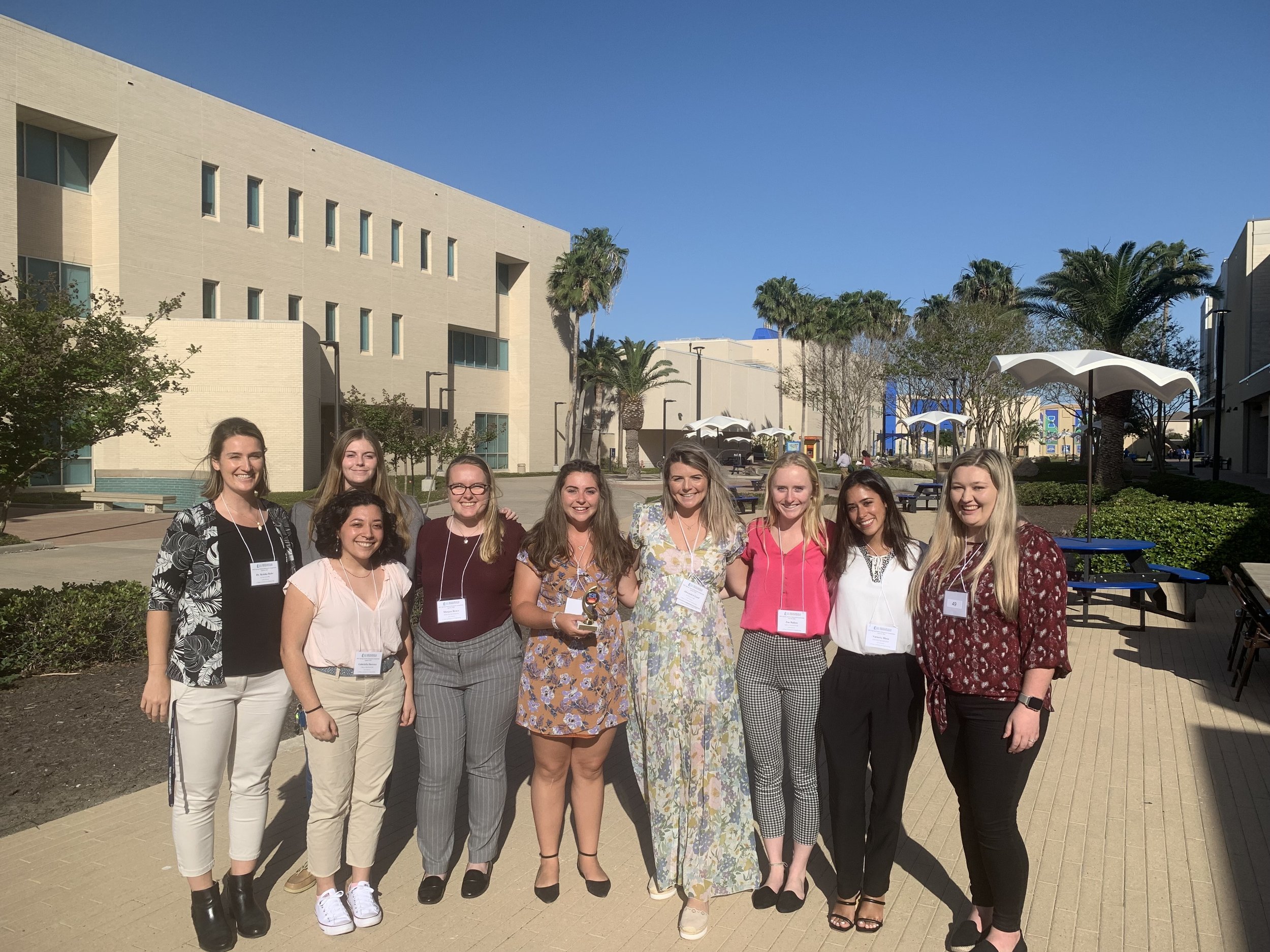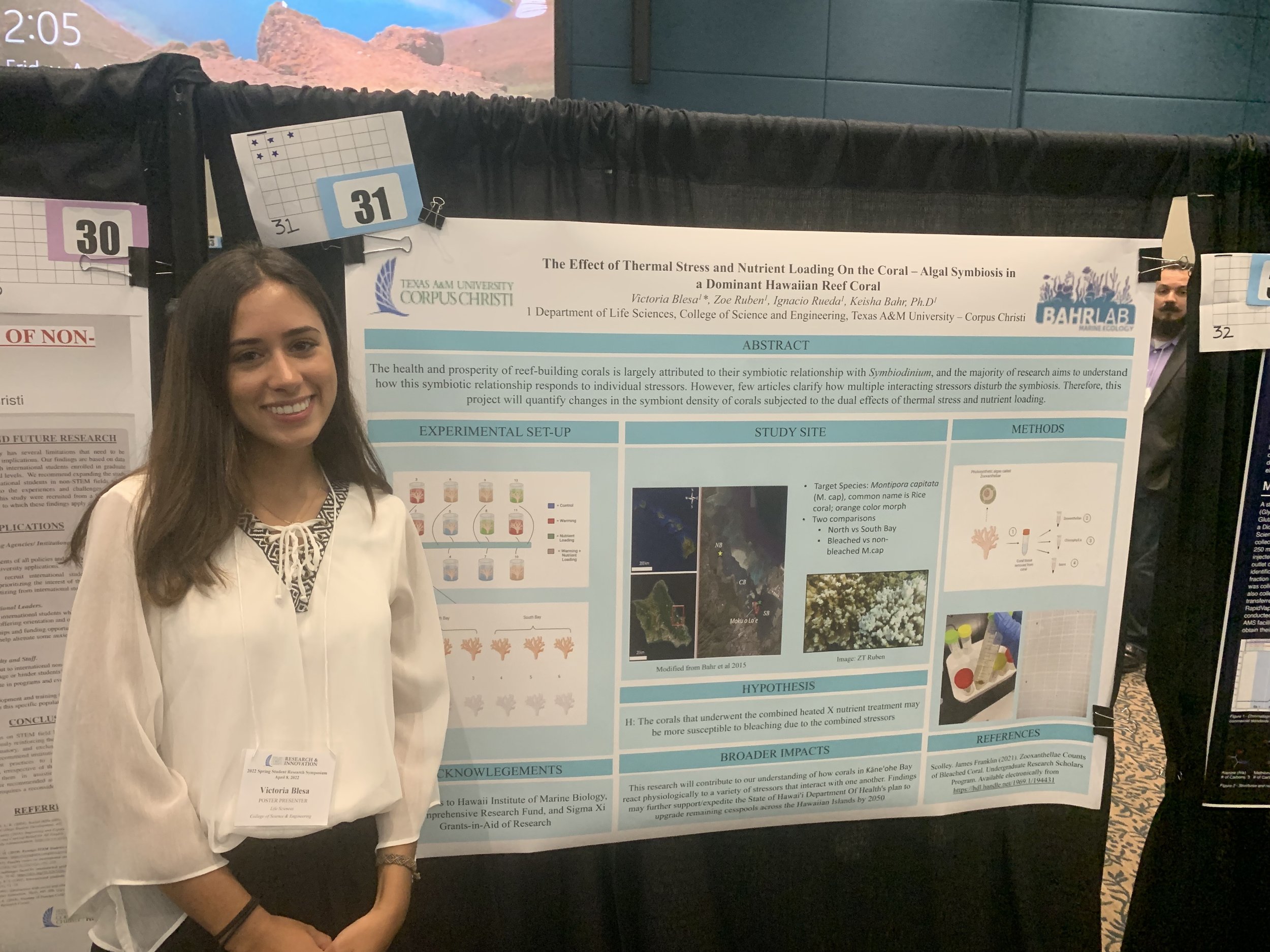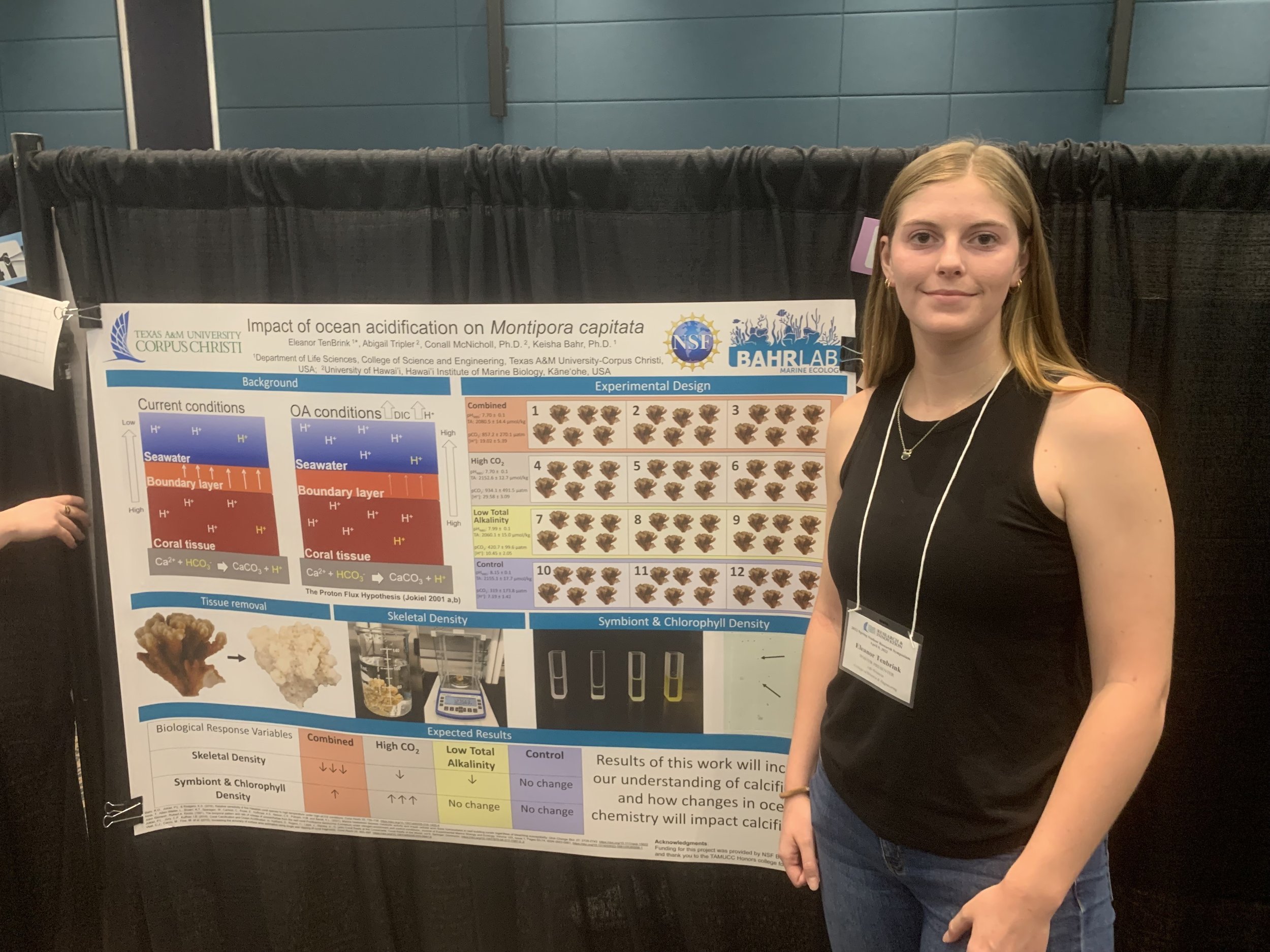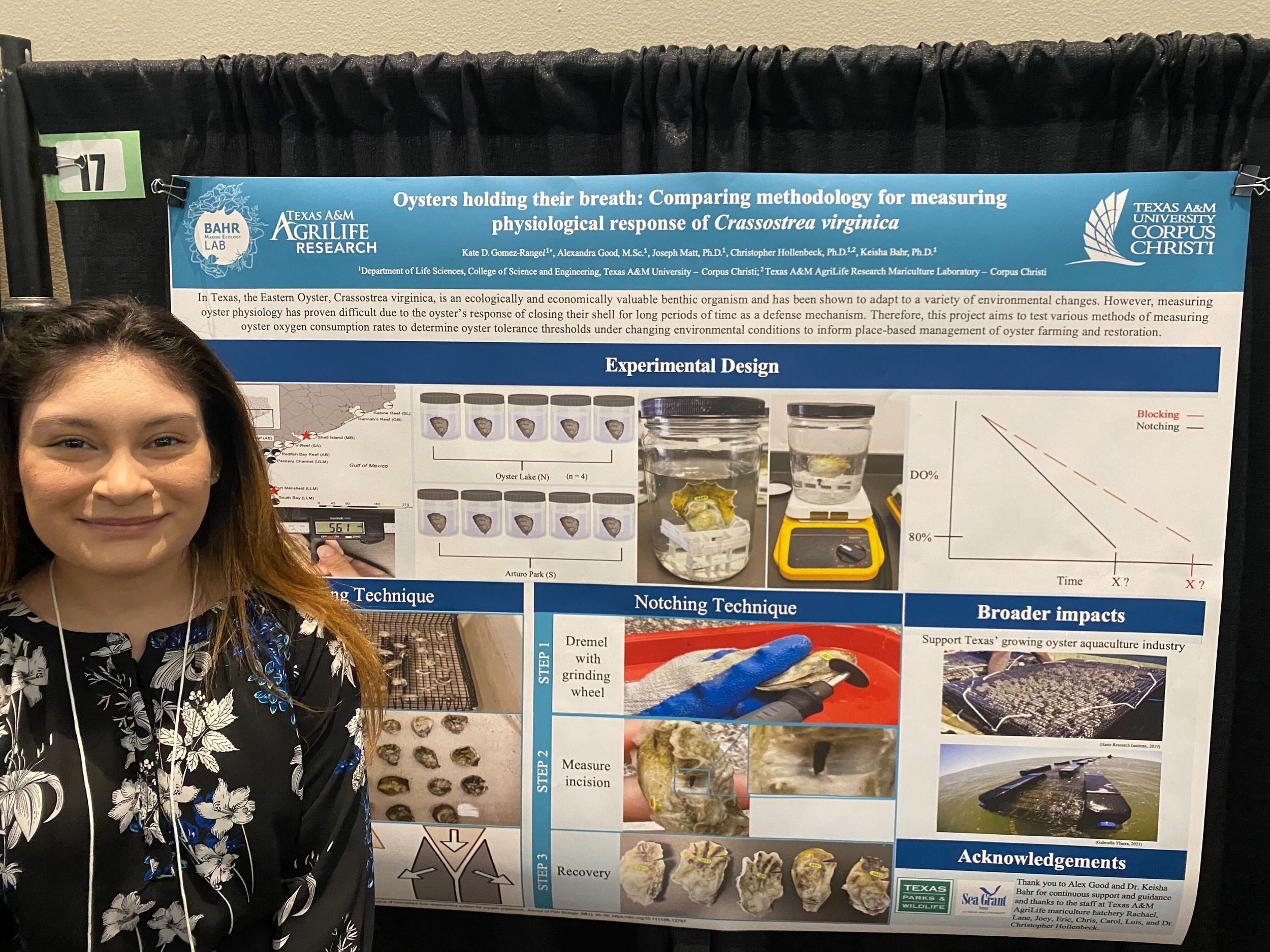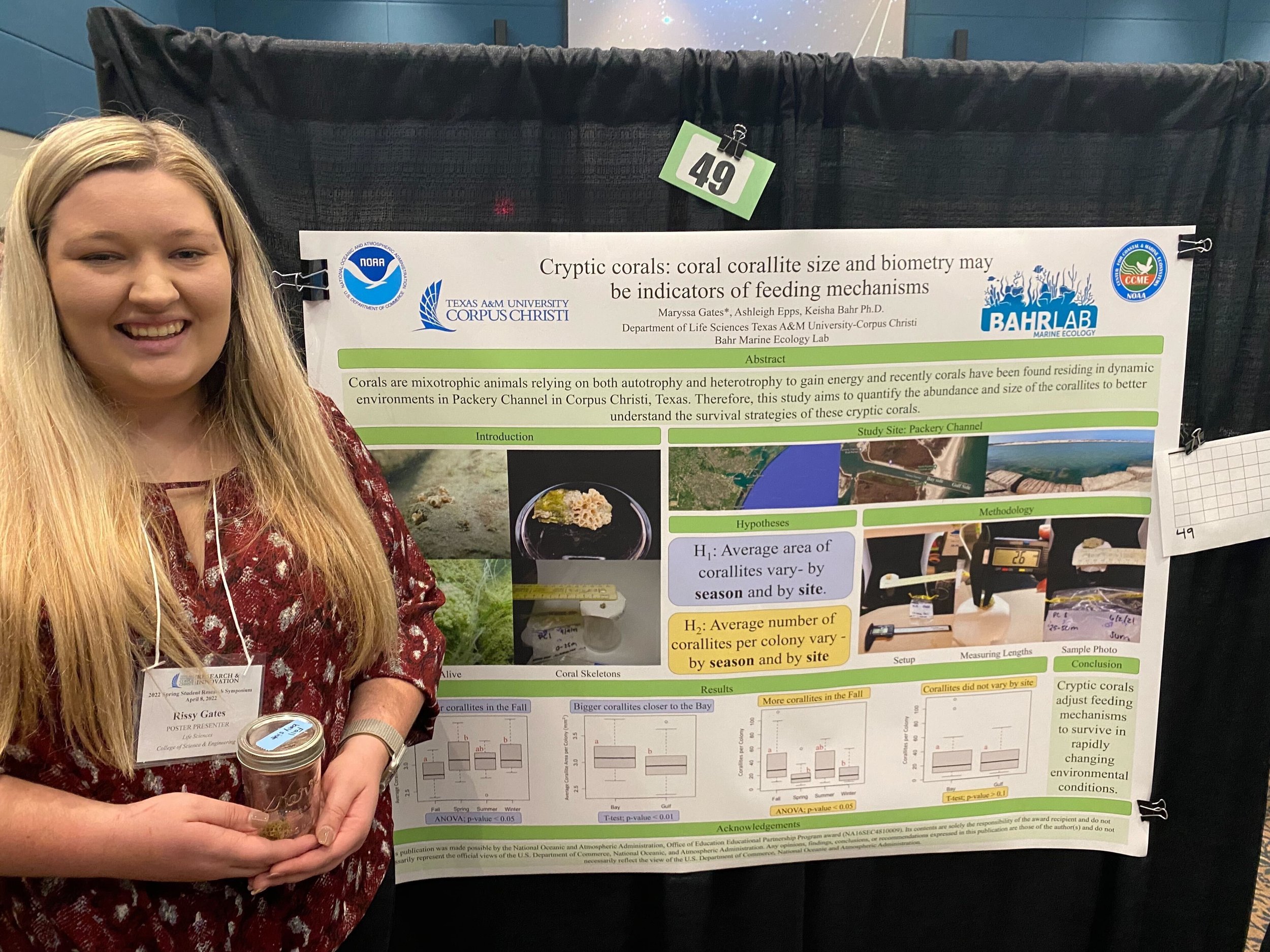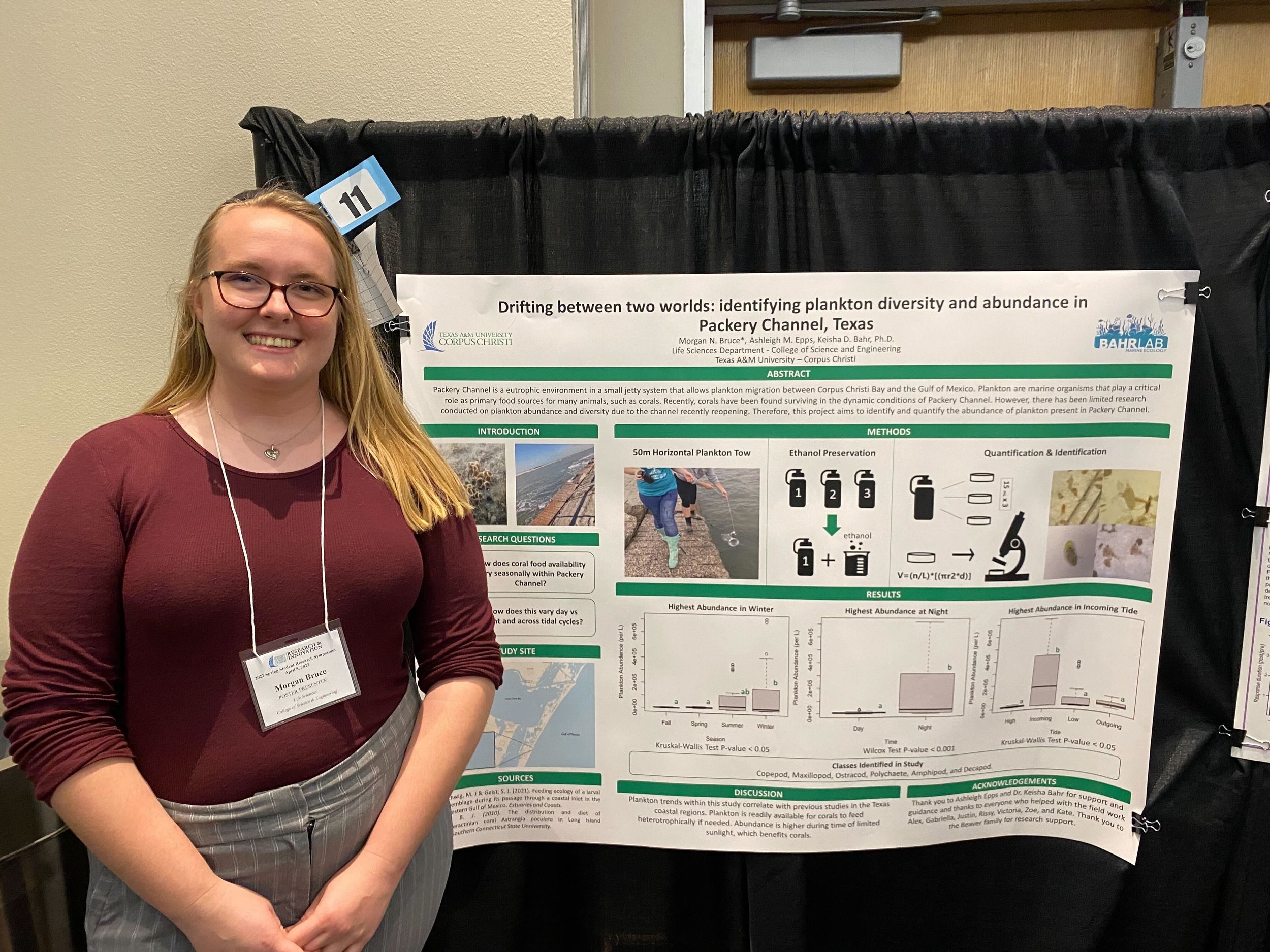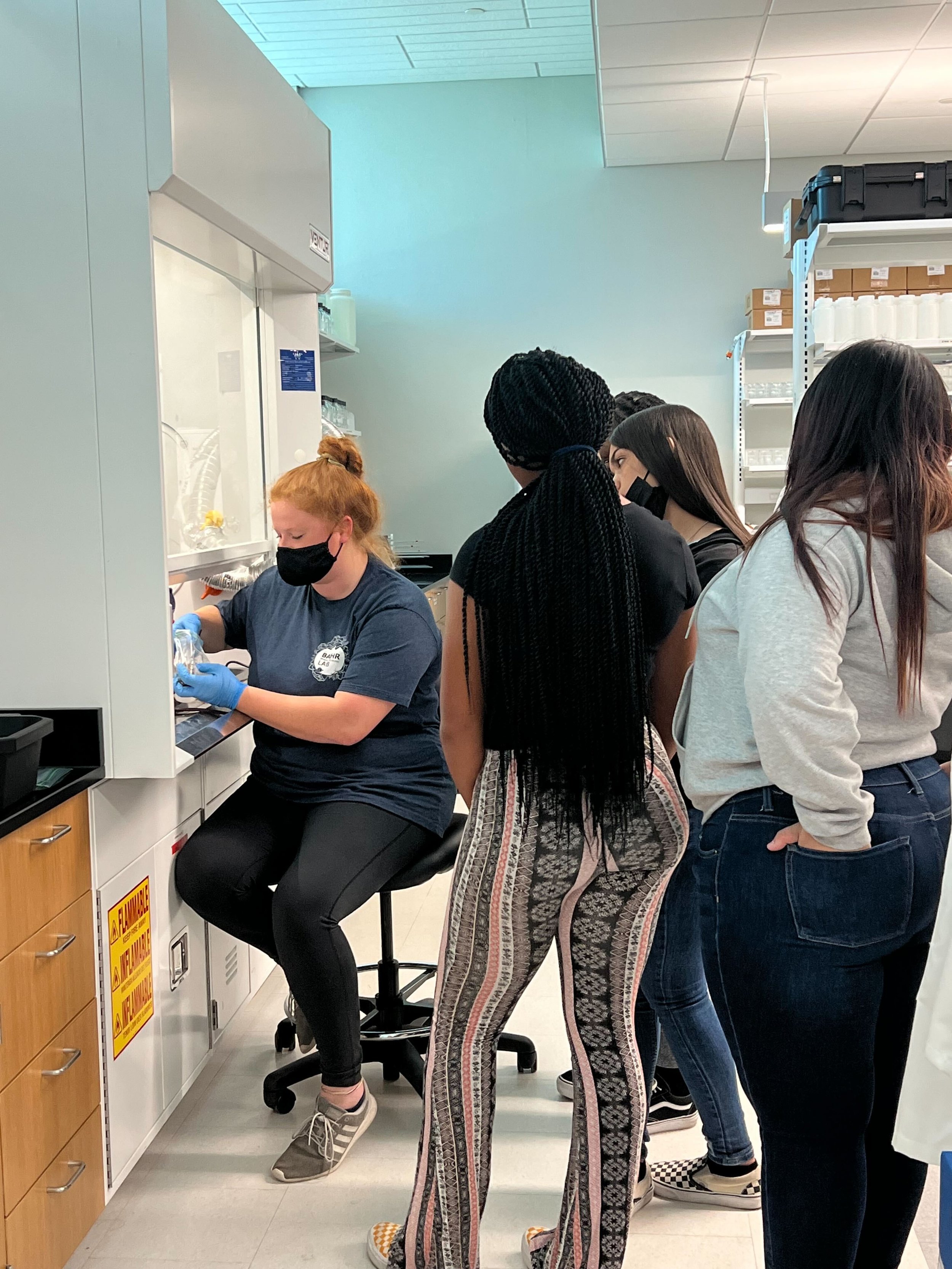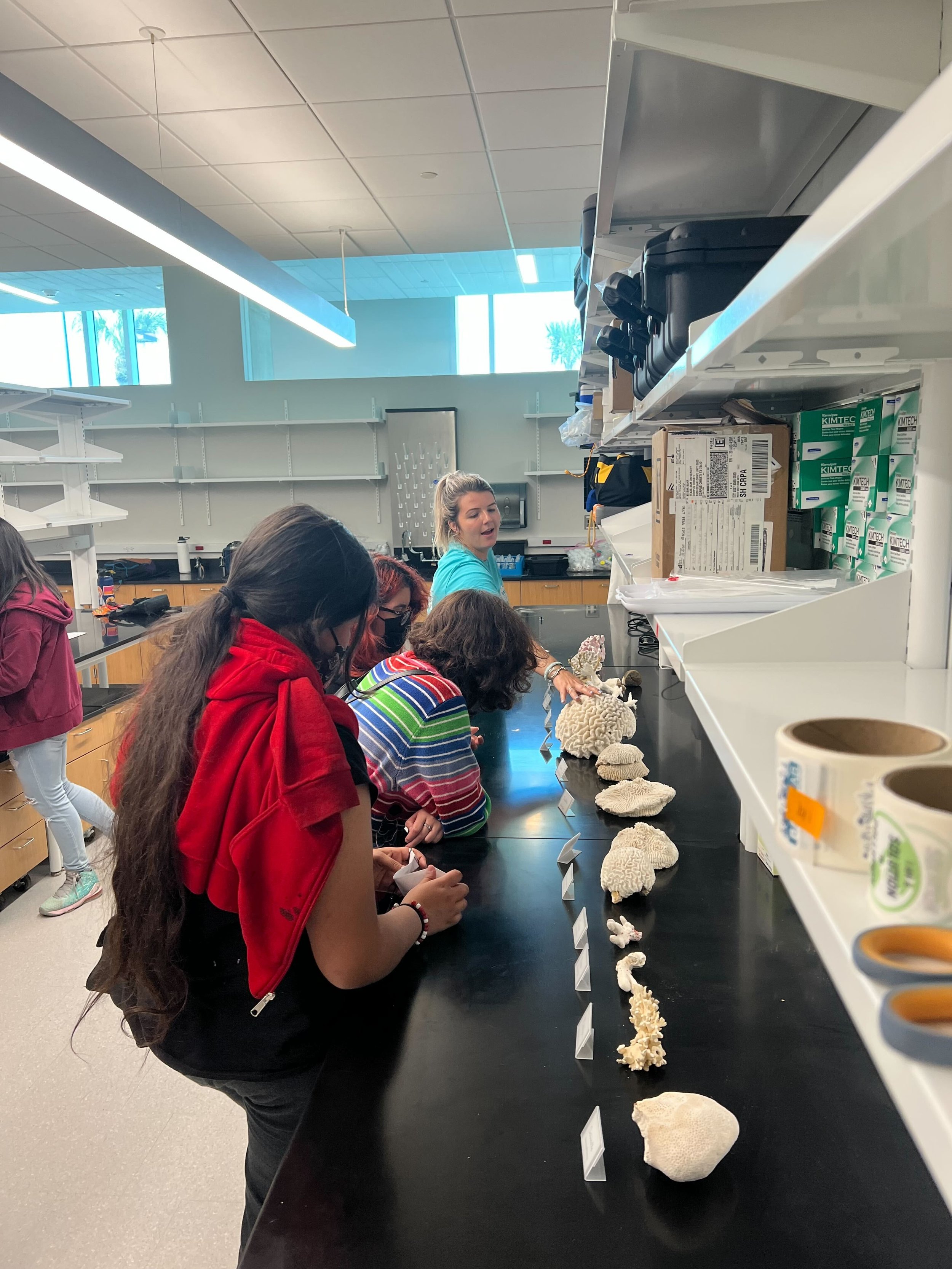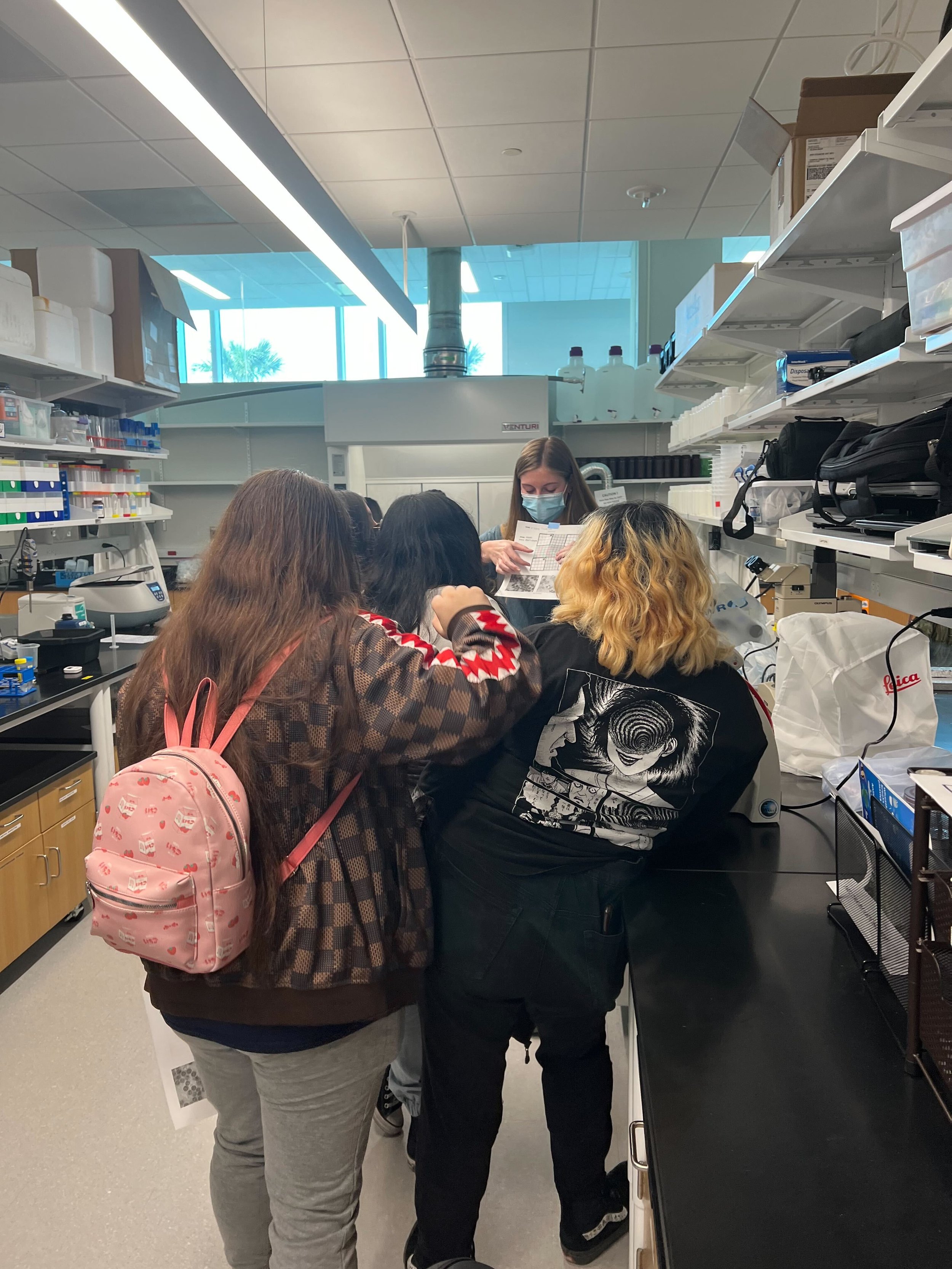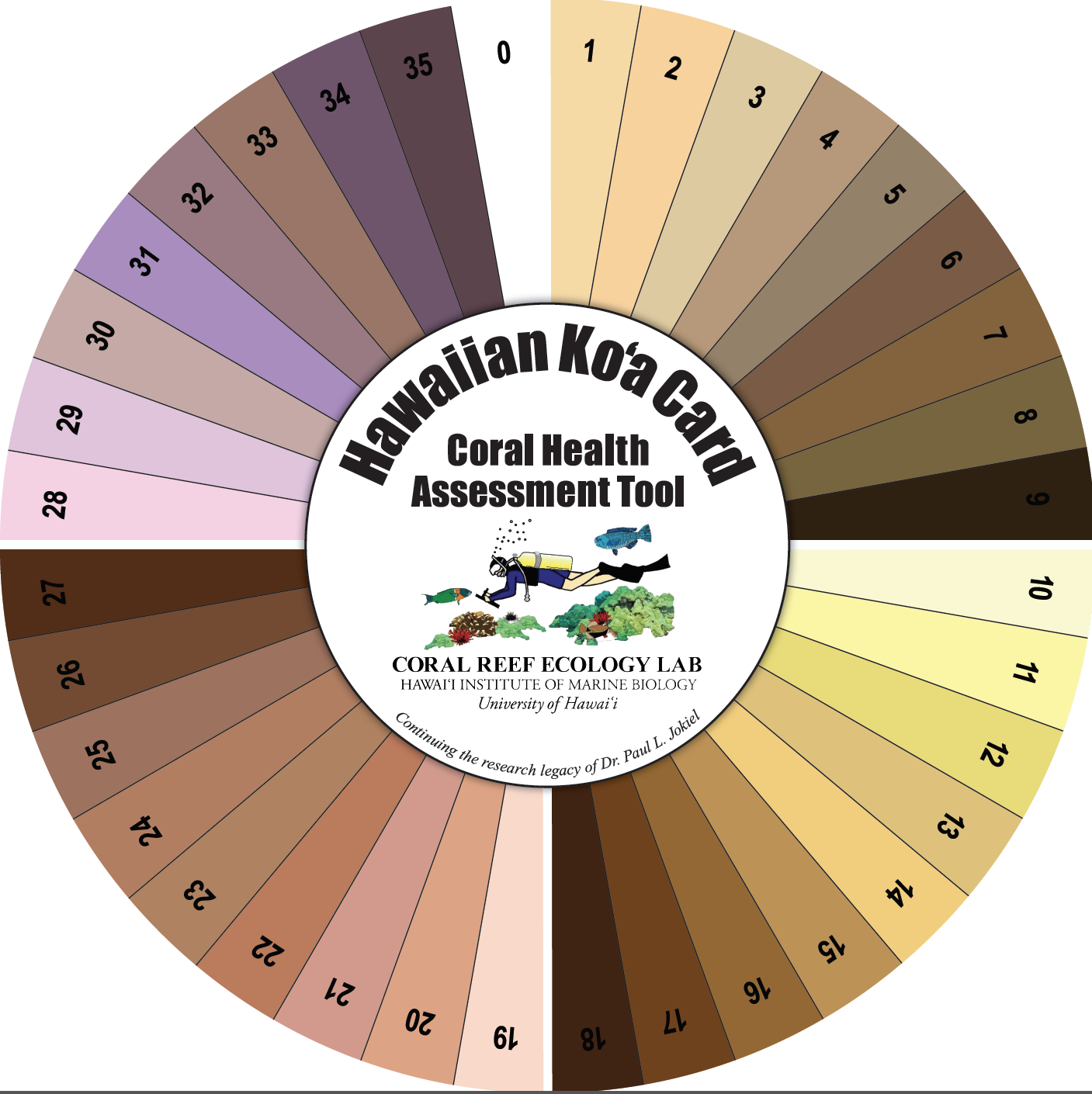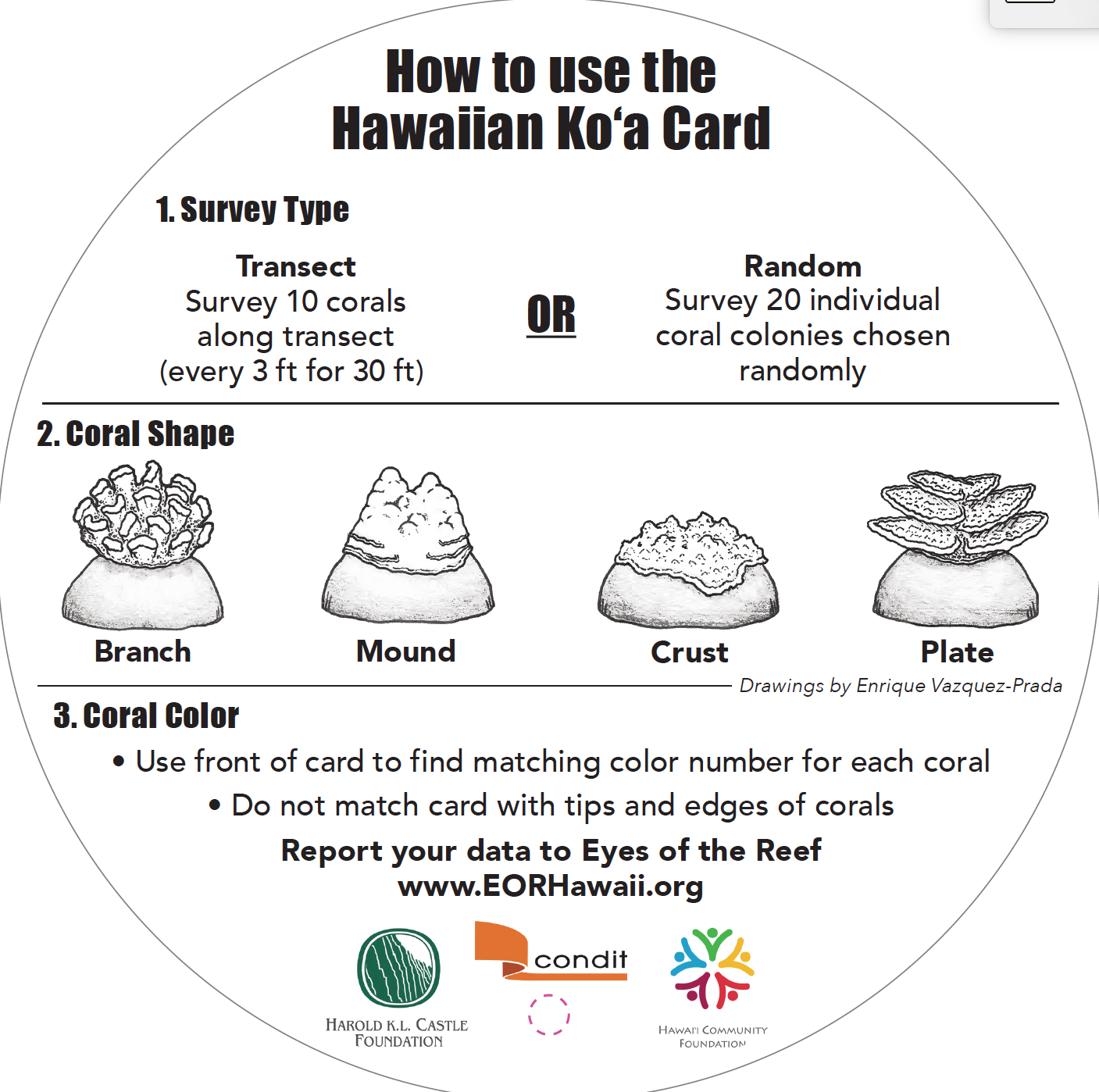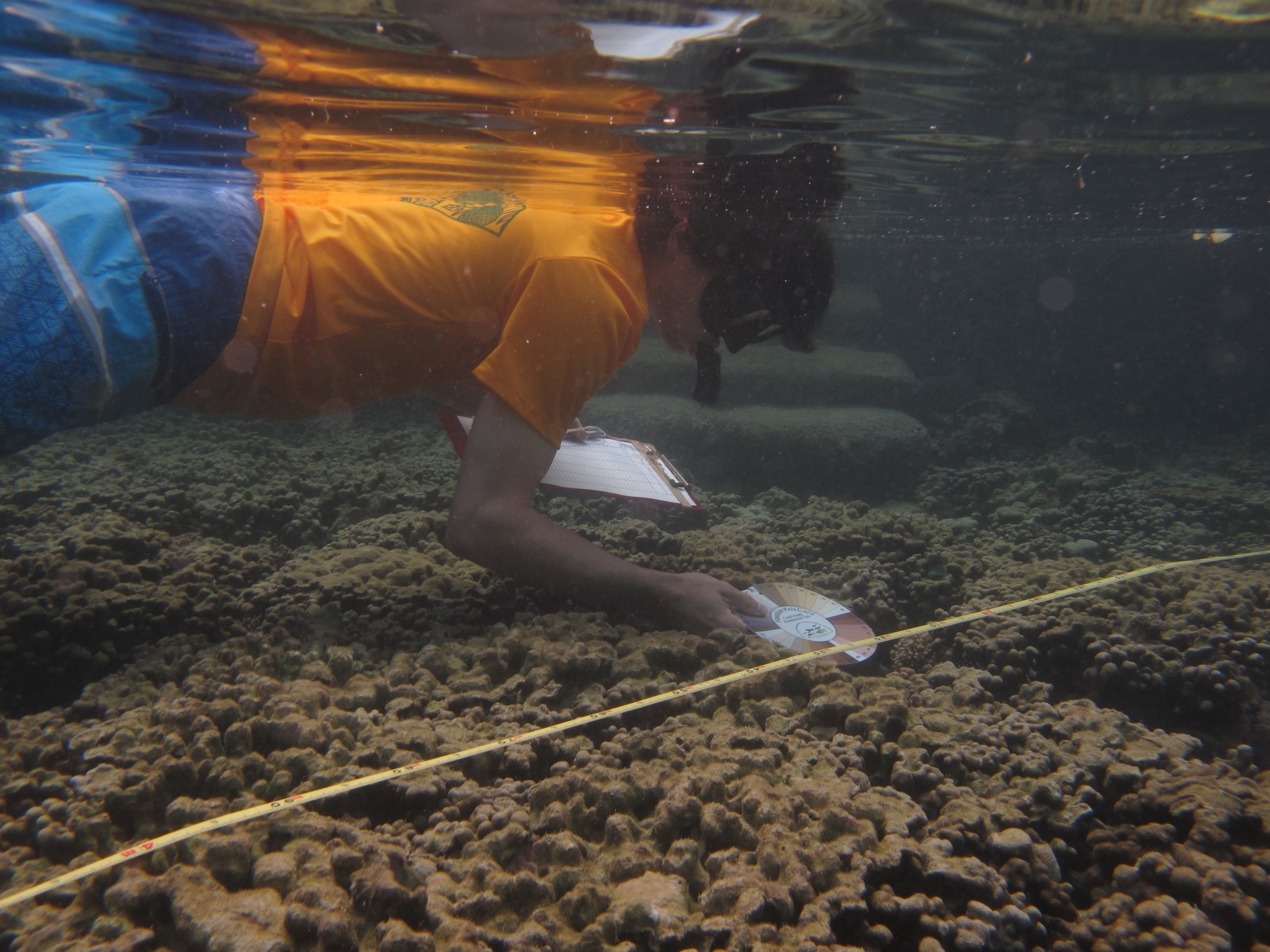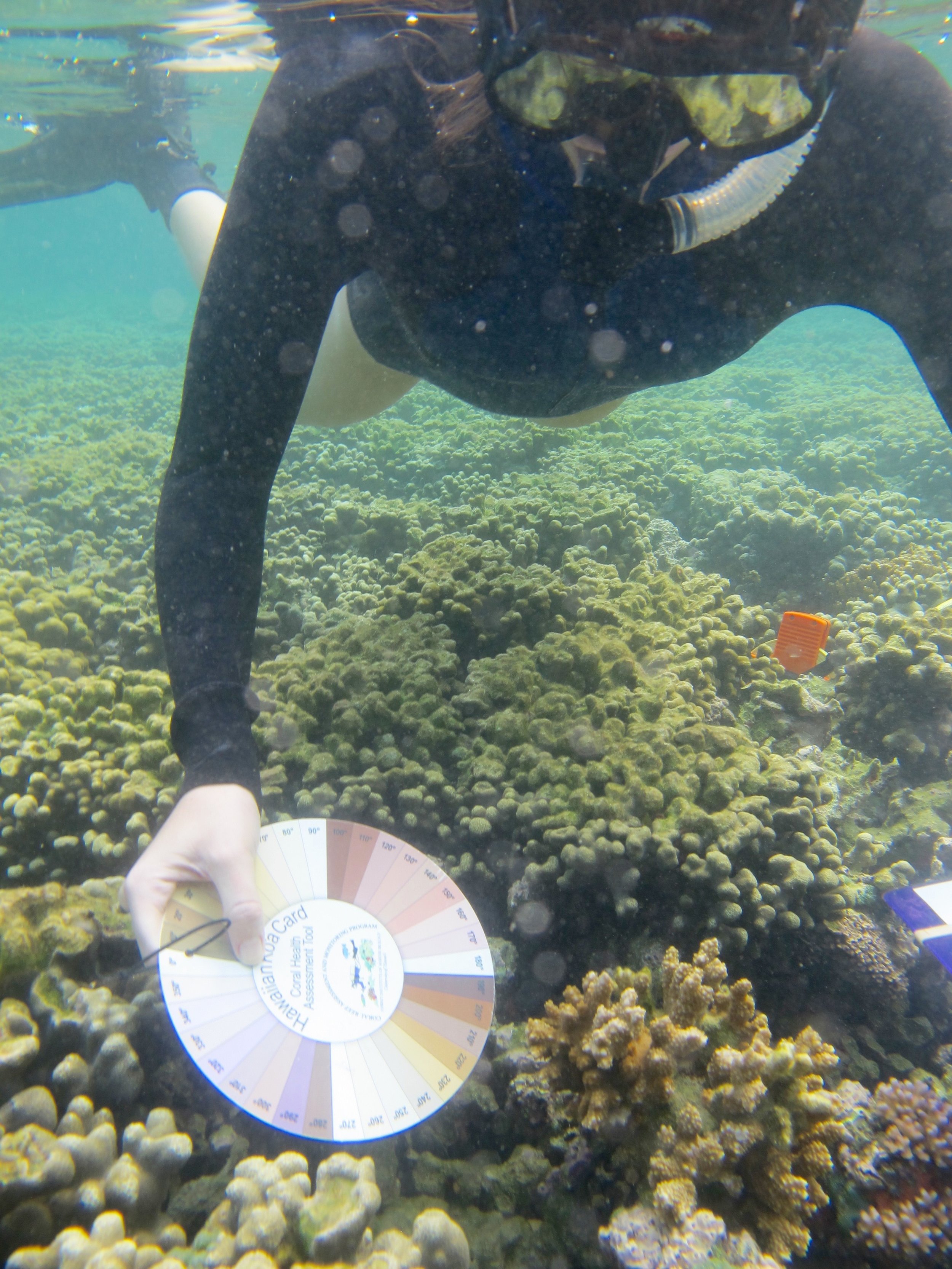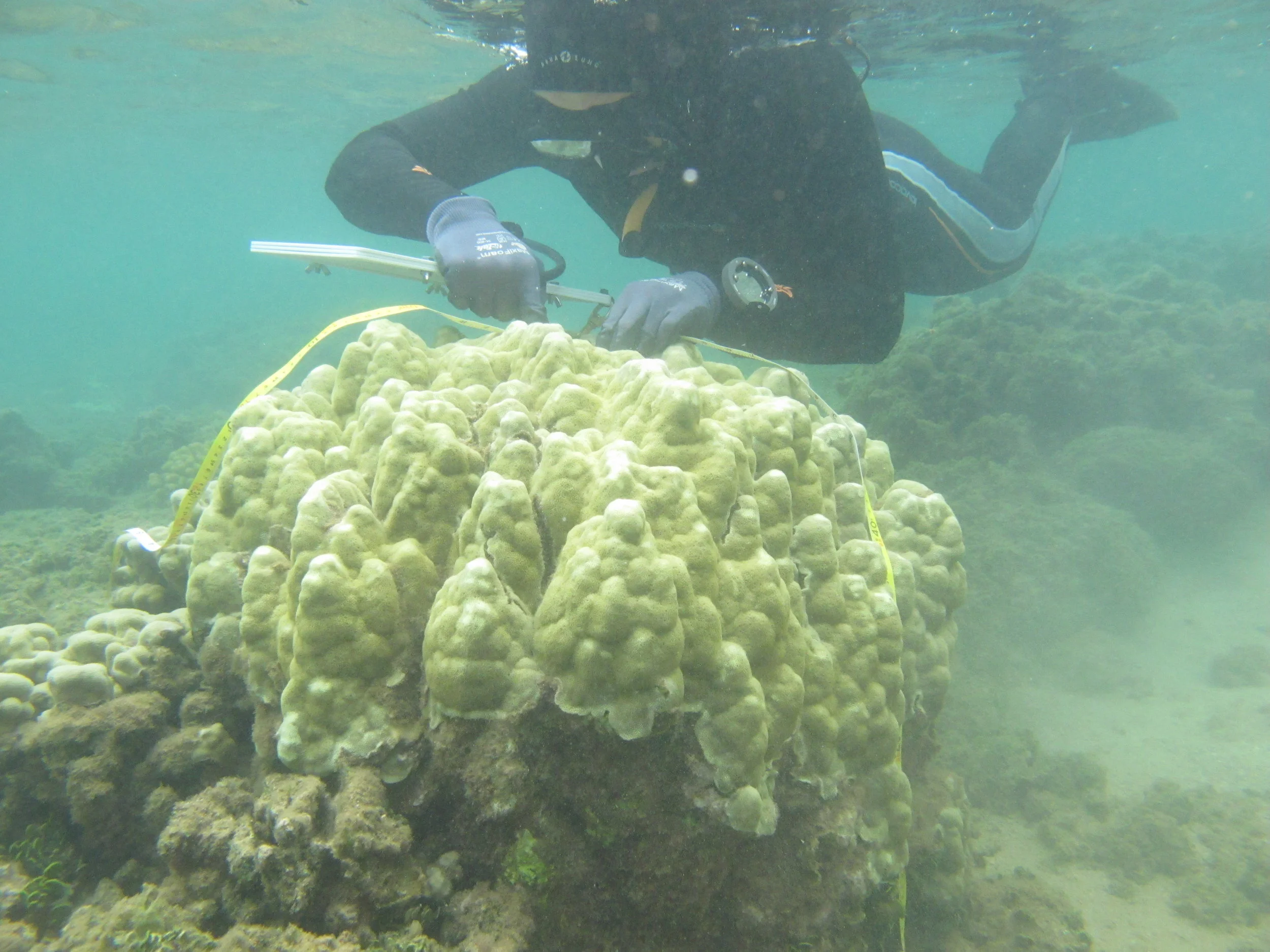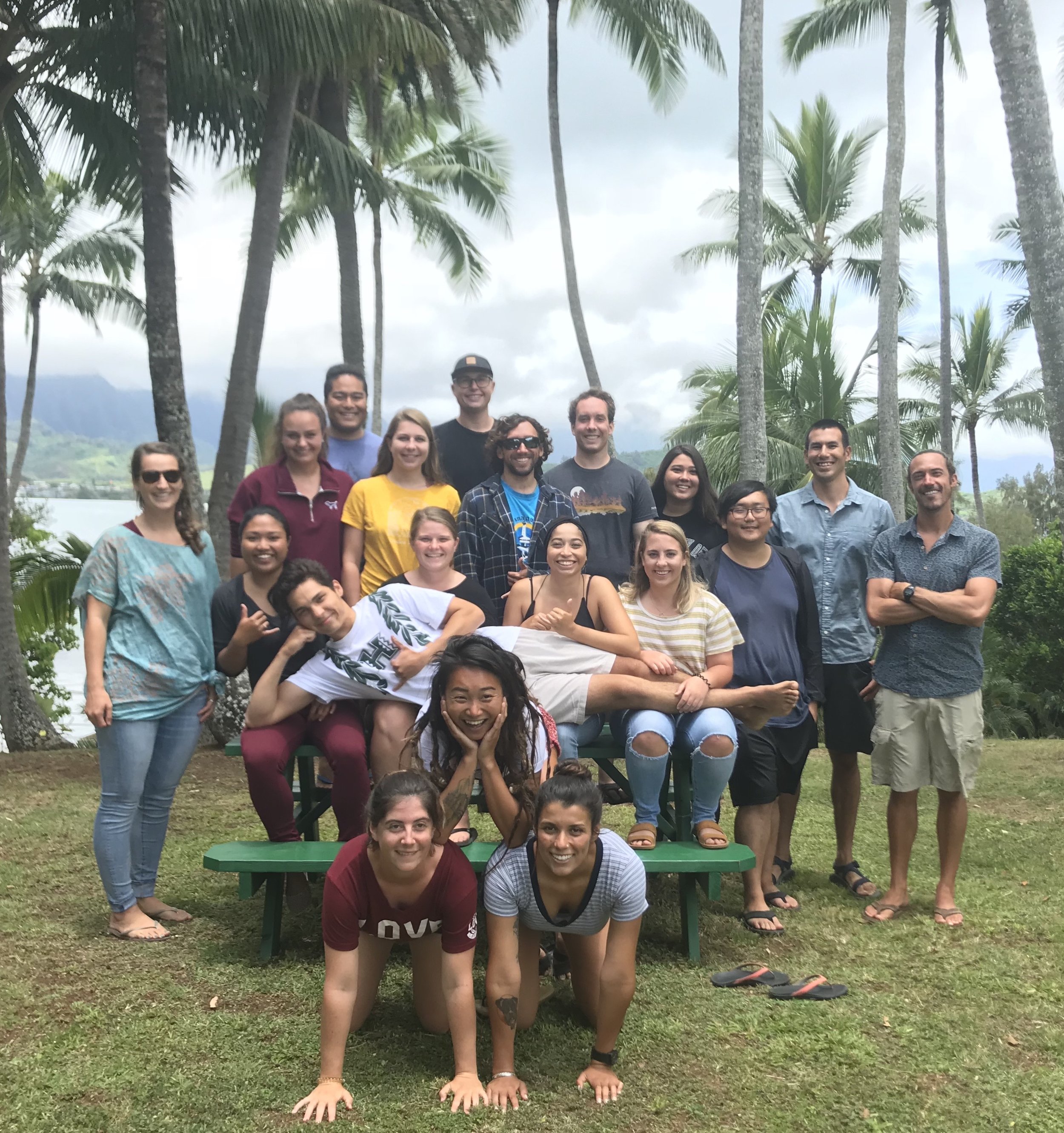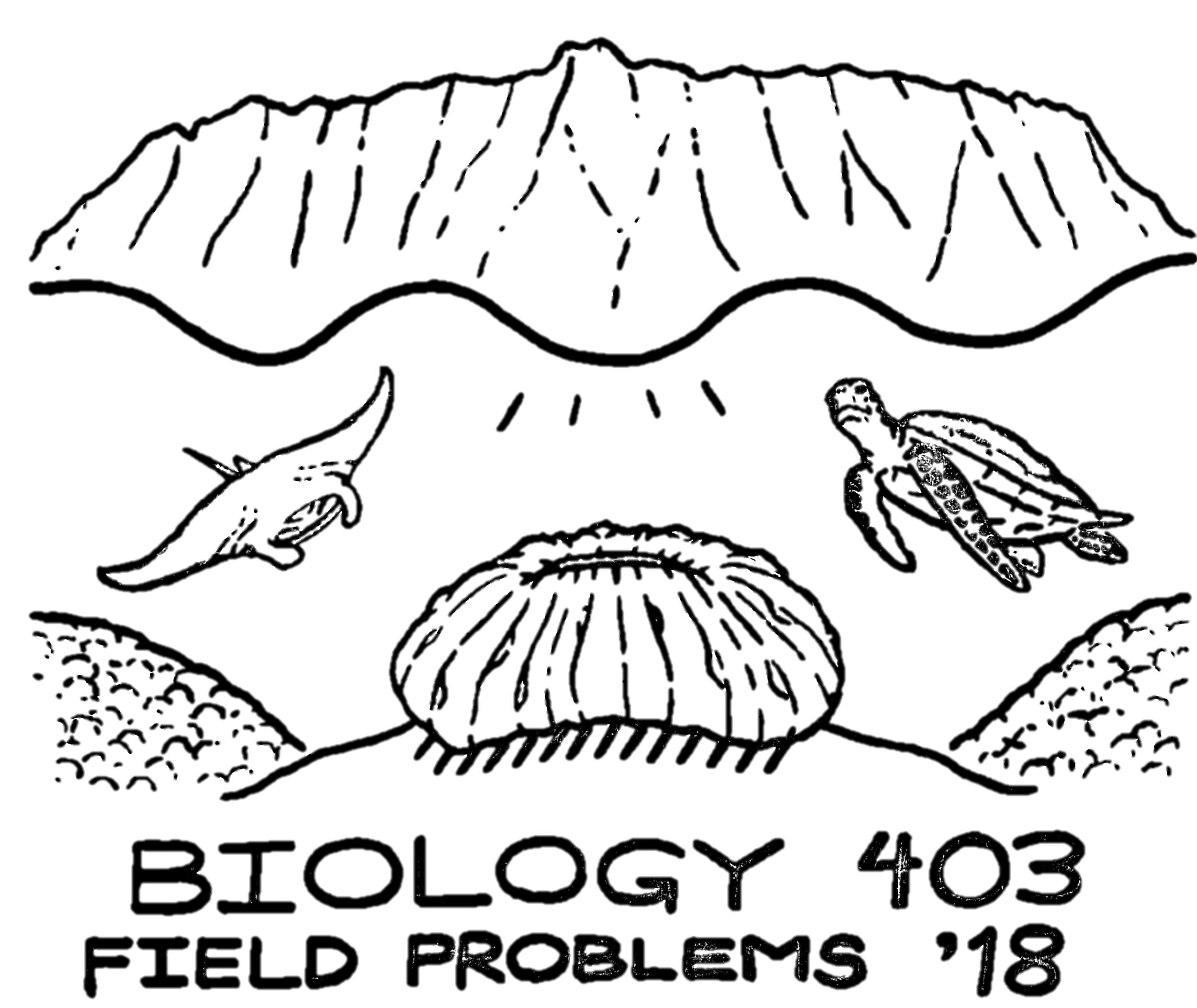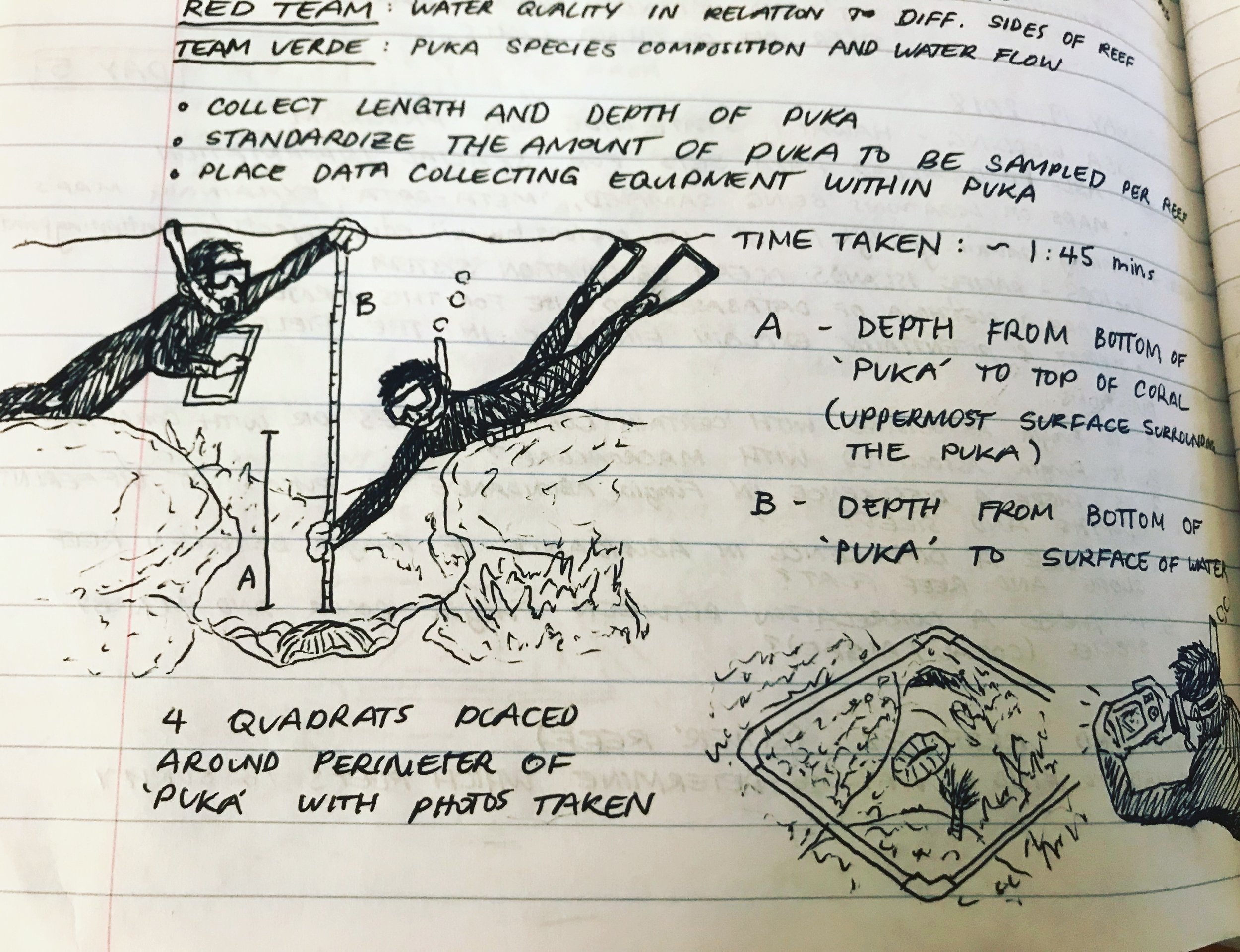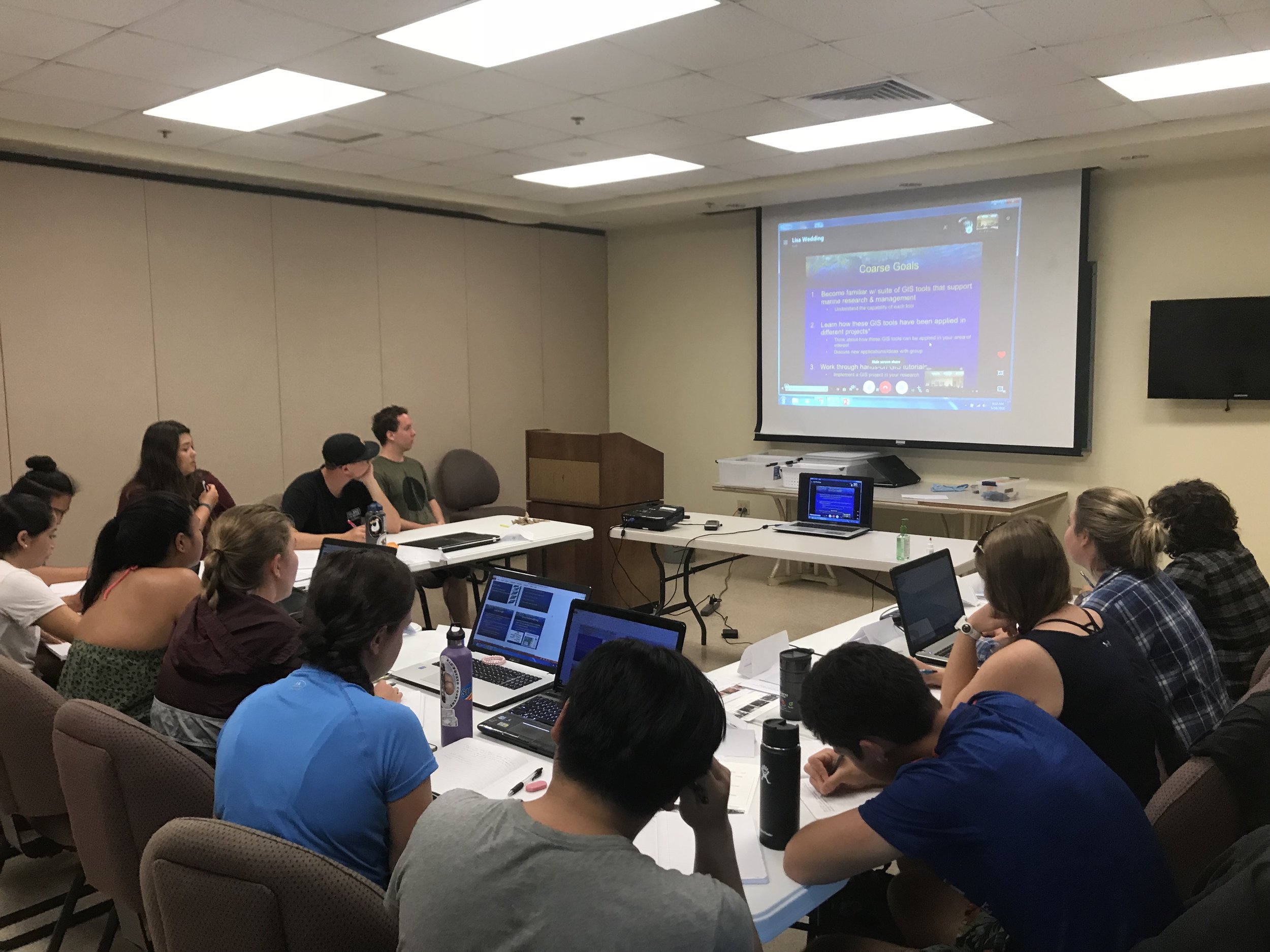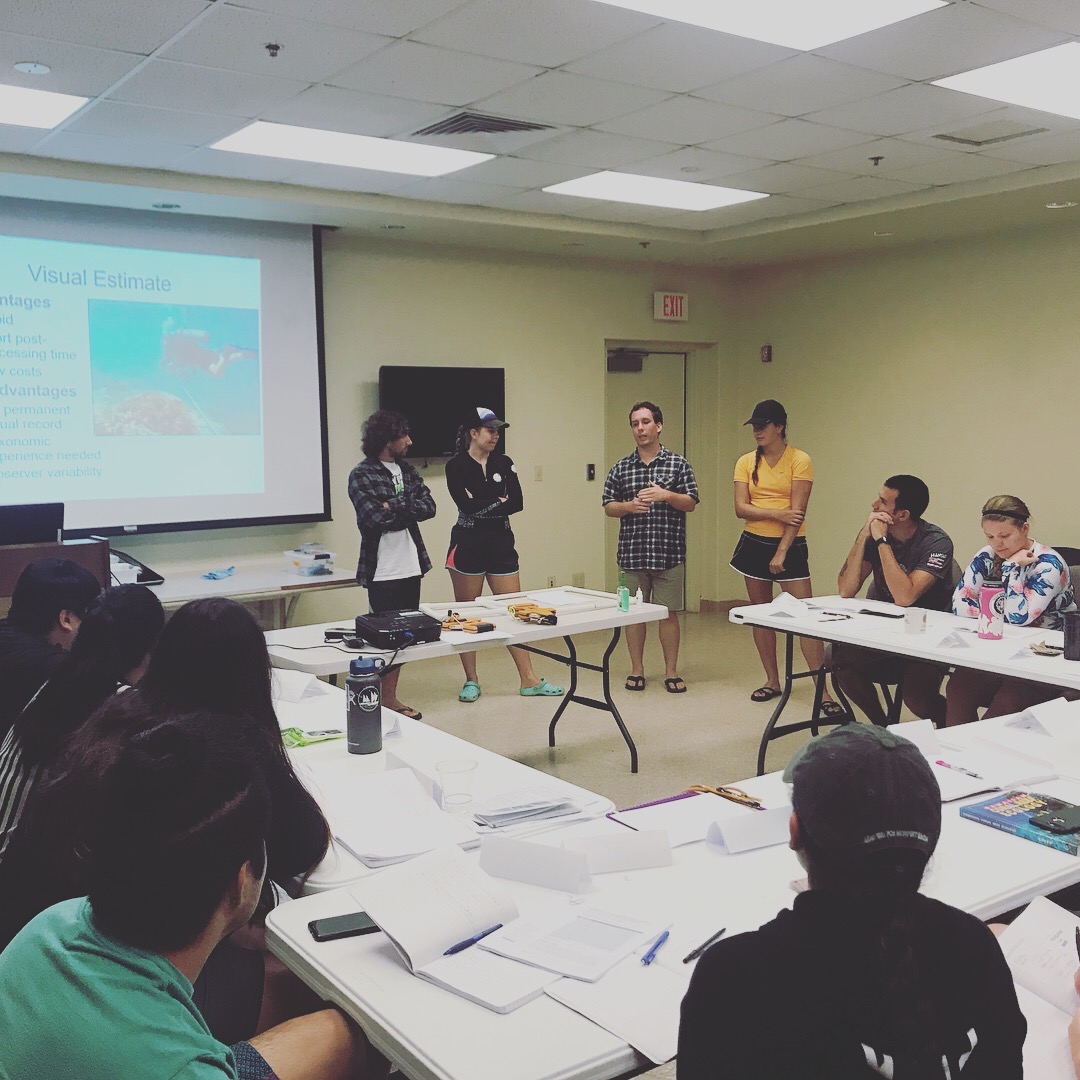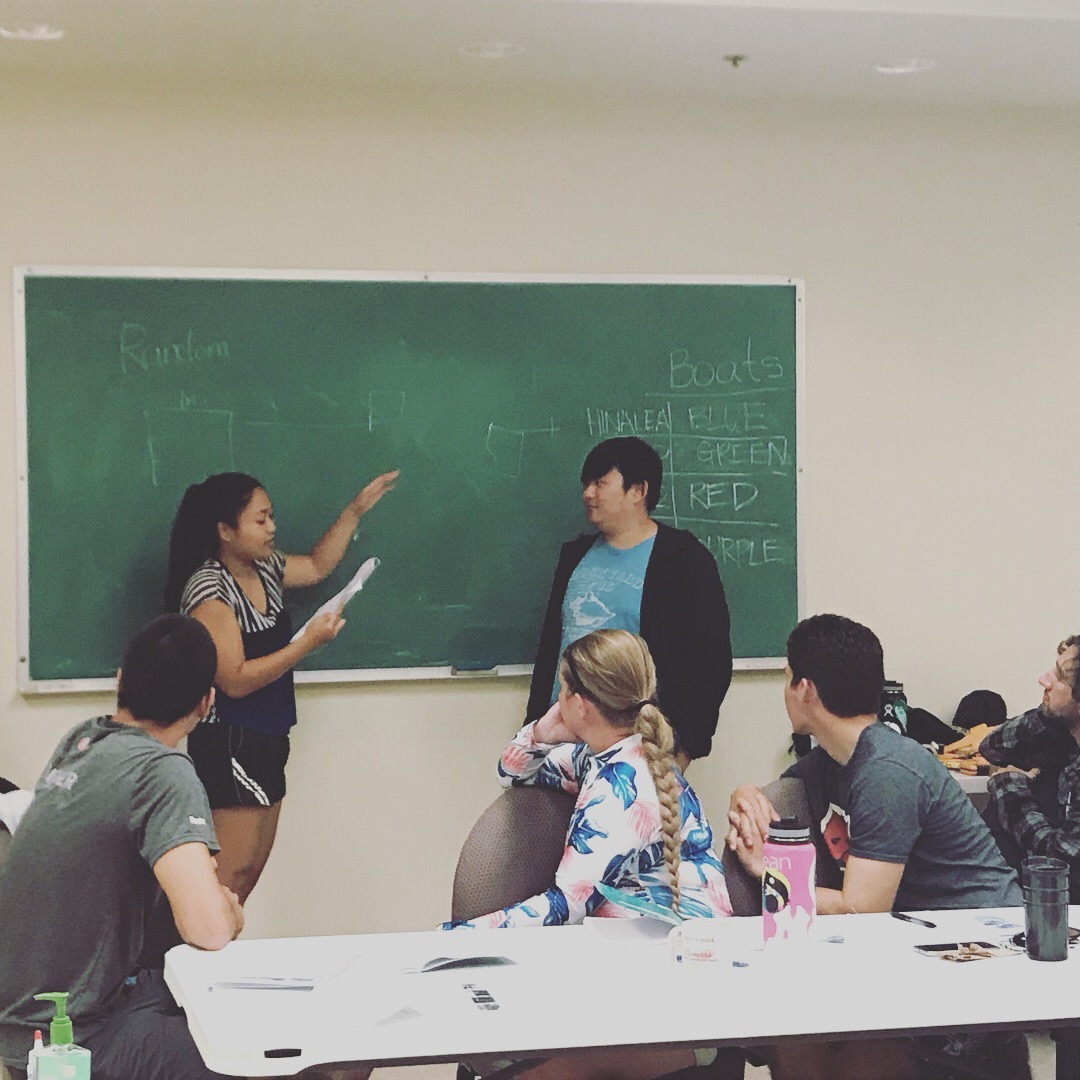Follow us on Instagram for the most up to date happenings
@thebahrlab
14 - 16 February 2024
Bahr Lab pi and Ph.D. Candidate Collaborate with stem educators
PI Dr. Bahr and Ph.D. candidate Alexandra Good attended the annual Informal Science Education Association Conference (ISEA) hosted at the Texas State Aquarium where Alexandra Good presented a poster on the 3rd chapter of her dissertation titled “Engage, Empower, Educate: A Coral Reef Curriculum Integrating Virtual and Hands-On Learning”, and where Dr. Bahr was introduced as a keynote speaker with her talk titled “Beyond the classroom: How informal education can catalyze STEM training”.
14 - 16 February 2024
ISEA KEYNOTE SPEAKER
Dr. Keisha Bahr was named a keynote speaker for the 2024 annual Informal Science Education Association conference hosted at the Texas State Aquarium this year. This three-day meeting consists of presentations and activities aimed to inspire and train professionals in the world of informal science education.
17 January 2024
bahr lab interns accepted into tamucc lsamp program
The Louis Stokes Alliance for Minority Participation is a nationally funded program through NSF that aims to increase minority participation in STEM. The Bahr Lab shares the same values, and aims to support an increase of underrespresnted groups in STEM by providing training in research, education, and science communication.
Autumn Hampton was accepted into LSAMP in the Spring 2024 semester under the research question “What are the interspecific effects of elevated CO2 on the biology and physiology of two Hawaiian coral species?”. Autumn will be working with graduate mentor David Armstrong to identify gaps in our knowledge about how elevated CO2 affects the health of Montiporra capitata and Pocillopora acuta.
Danielle Lisiecki was accepted into LSAMP in the Spring 2024 semester under the research question “How does ocean alkalinity enhancement (OAE) affect the biology and physiology of two Hawaiian coral species and crustose coralline algae (CCA)?”. Danielle with be working with Post-doc mentor Abigail Cannon to dive into the uncertainties and knowledge gaps surrounding how alkalinity enhancement affects coastal coral reef ecosystems.
8 January 2024
Taking it back to basics
Dr. Abigail Cannon joins the Bahr Lab to lead a portion of the Ocean Alkalinity Enhancement project to assess the effects of different forms of alkalinity enhancement on the health of coastal coral reef species. This collaborative project aims to inform management agencies about the antagonistic, and/or synergistic effects of increasing the alkalinity of coastal habitats in an effort to decrease the negative effects of Ocean Acidification on coral reefs.
6 December 2023
Casey Gallagher awarded $3,200 from the Center for coastal studies
Master’s student Casey Gallagher receives $3,200 from the Karen Koester Dodson Memorial Endowment through the Center for Coastal Studies. Funds will be allocated toward research equipment and supplies for the Capturing Caribbean Colors project.
5 December 2023
Grad student defends his dissertation proposal
Congratulations to Ph.D. Student, David Armstrong, for successfully defending his dissertation proposal titled “ Corals in a Changing Ocean” on December 5th, 2023!
13 November 2023
Bahr lab member is featured in tamucc newsletter
Ph.D candidate, Alexandra Good, was featured in the November 2023 issue of Graduate & Professional Student E-Newsletter. The spotlight was on Alex this week as she explains her current research project and delves into her passion and motive for studying marine biology. For more details, view the link below.
2-3 November 2023
The Bahr lab attends the 2023 gulf of mexico coral reef symposium
The 2023 Gulf of Mexico Coral Reef Symposium was a huge success, pulling in an extensive and diverse group of people who are all passionate about preserving and restoring coral reefs. The goal of this meeting was assist Flower Garden Bank National Marine Sanctuary (FGBNMS) determine their future and immediate research needs. Their research priorities include: Water Quality, Biodiversity and Connectivity, Climate Change Impacts, Contaminates, Coral and Sponge Disease, Habitat Characterization, and Resource Management and Threats. Members from the Bahr Lab were able to participate by presenting at and contributing to the topical breakout discussions. Through meaningful collaboration with many experts in the field with years of experience and dedicated students with fresh ideas, FGBNMS was able to gain valuable information and support to help them plan their next course of action.
27 October 2023
Casey Gallagher Receives an $800 award for the R&I student competion
Graduate student Casey Gallagher is awarded an $800 scholarship for her project proposal application to the Research and Innovation (R&I) Student Research Competition. This award will go toward the Capturing Caribbean Colors project that aims to improve coral reef conservation strategies.
26 October 2023
Surveys at Kāneʻohe Bay
Recent coral reef surveys in Kāneʻohe Bay show healthy corals despite warming over the past few weeks.
20 October 2023
Bahr Lab students present at the 9th annual MSGSO symposium
Graduate and undergraduate students from the Bahr Marine Ecology Lab at TAMU-CC presented at the 2023 MSGSO symposium. Graduate students participated in the oral competition, while undergraduate students competed in the poster portion. We are excited to announce that Ph.D. student David Armstrong won first prize for the 12-minute oral presentation (left).
25 September 2023
Casey Gallagher Achieves Scientific Diver Status
Master's Student Casey Gallagher completes TAMUCC’s Dive Safety Operations course and achieves her Scientific Diver certification in just 2 months! TAMUCC dive instructors reckon it may be a record for fastest completion of the dive program. This fantastic achievement will allow her to conduct research in the field as a TAMUCC scientific diver opening up many opportunities for current and future marine research.
17 September 2023
Dr. Bahr joins the National Coral Reef Monitoring Program (NCRMP)
Dr. Bahr embarked on a week-long expedition with NOAA's NCRMP team to explore the stunning coral reefs of the Flower Garden Banks National Marine Sanctuary. During this research voyage, a collaborative effort involving partners from various agencies including EPA, NOAA, NPS, FGBNMS, and more, the team utilized standardized methods to assess fish abundance and biomass. Together, these dedicated groups will conduct long-term monitoring surveys to help track the health of the Flower Garden Banks.
3 October 2023
Bahr lab alumna, zoe ruben m.sc., is awarded prestigious fellowship
Our very own Zoe Ruben has been selected with one other TAMUCC member for the highly prestigious and competitive National Academy of Sciences (NAS) Gulf Research Program Science Policy Fellowship. This program entails a year-long mentorship on the staff of federal, state, or local natural resource or public health agencies within the Gulf of Mexico region.
For more information on the program details and to view the full image gallery, click the “Learn more” button below.
8 September 2023
Water Has Layers: A Micro-environmental Study
M.Sc. student Bryanna Herrera is studying how corals change their surrounding environment under various seawater conditions based on their shape. After defending her research proposal and doing some fieldwork in the summer, she is ready to analyze her data and prepare for her thesis defense in the upcoming spring semester!
7 September 2023
Ocean Alkalinity Enhancement
Ocean acidification is a significant threat to corals throughout the world and a large threat ocean acidification poses to coral reef survival is the reduction of calcium carbonate availability, but this large 4-year, $2 million dollar project funded by the Department of Energy aims to provide necessary information on how corals and coralline algae will respond to alkalinity enhancement efforts to combat rising ocean acidification. The Bahr lab is collaborating with several research groups and will run in-lab experimental trials to track real-time changes in coral and coralline algae physiology, functionality, calcification, and mineralogy as a response to acute increases in alkalinity. This project will provide valuable insights into the effects of ocean alkalinity enhancement on coastal ecosystems and guide the development of strategies that combine coral restoration and ocean alkalinity enhancement activities as well as support a cohort of undergraduate research interns from primary underrepresented groups.
30 August 2023
TAMU-CC's Underwater Coral Reef Classroom
Dr. Bahr and Dive Safety Operations at Texas A&M University-Corpus Christi have transformed their pool into an immersive educational experience. They've created a lifelike coral reef experience with 7 by 11-foot vinyl panels on the pool floor, allowing students to explore marine science hands-on. More information about TAMU-CC’s Underwater Coral Reef Classroom experience is linked below.
16 July 2023
Coral Collaboration: UHM and TAMU-CC Students Dive into Interdisciplinary Research
In a dynamic cross-institutional partnership between the University of Hawaiʻi at Mānoa (UHM) and Texas A&M University-Corpus Christi (TAMU-CC), a group of diverse students has converged at the Hawaiʻi Institute of Marine Biology (HIMB) for an immersive four-week research venture. Guided by Dr. Bahr, these students span various academic disciplines, including Biology, Environmental Science, International Business, and Mechanical Engineering. With generous funding from the National Science Foundation (NSF), their research focuses on the intricate relationship between oceanic conditions and coral reef calcification patterns. This collaborative endeavor not only advances our understanding of coral ecosystems but also fosters interdisciplinary learning and cultural exchange among the participants, creating a rich tapestry of knowledge and experience.
9 June 2023
Bahr Lab visits SeaCampers at the Texas State Aquarium
Members of the Bahr Marine Ecology Lab visited with SeaCampers at the Texas State Aquarium, where they had the opportunity to educate and inspire young minds about the diversity, function, and adaptations of corals. Through interactive sessions and hands-on activities, SeaCampers learned about coral ecosystems, various coral species, and their unique adaptations. They also had the opportunity to construct their own corals, gaining a deeper understanding of their structures and their role in the health of reef ecosystems. To emphasize the importance of diversity in both reefs and our lives, the SeaCampers collaborated to build a reef using their handmade corals, symbolizing the interdependence of different species. This experience, facilitated by the Bahr Marine Ecology Lab, cultivates a love for marine life, environmental stewardship, and a desire to protect these vital ecosystems.
22 May 2023
a Tri-National Training Effort with NOAA, HRI, and UNAM
Dr. Bahr joins a Tri-National Training Effort with NOAA, Harte Research Institute and the National Autonomous University of Mexico (UNAM)
From 22 to 25 May 2023, the trinational training workshop following protocols established by the National Coral Reef Monitoring Program was conducted in the Arrecife Alacranes National Park. This workshop aimed to significantly enhance the technical capabilities of the staff involved in monitoring our valuable reef systems. The event saw the participation of 21 individuals representing 14 different agencies, including esteemed organizations such as the National Oceanic and Atmospheric Administration (NOAA), Harte Research Institute for Gulf of Mexico Studies, UNAM Universidad Nacional Autónoma de México, BioDiversidad Marina Yucatán, Laboratorio Nacional de Resiliencia Costera, Kalanbio A.C. investigación para la conservación, Kalanbio, Parque Nacional Arrecife Alacranes, Secretaría de Pesca y Acuacultura Sustentables de Yucatán, and UMDI-Facultad de Ciencias Sisal. This collaborative effort ensured a diverse range of expertise and knowledge in attendance, contributing to the overall goal of strengthening the monitoring efforts for our vital reef ecosystems.
20 May 2023
Graduating lab members attend commencement
Congratulations to our graduates Zoe Ruben, Eleanor TenBrink, Ignacio Rueda, Victoria Blesa, and Kristen Love for their amazing accomplishments !
19 May 2023
Undergraduate and graduate students recieve research cords
Zoe Ruben
Zoe Ruben graduated with her master's degree in marine biology with a focus in coral reef ecology and genetics. Zoe will conclude her work as a research technician in The Center for Water Supply Studies before relocating in August for her position as a science policy fellow with the National Academies of Science Gulf Research Program.
Ignacio Rueda
Ignacia Rueda graduated with a B.Sc. in Biology with a concentration in Marine Science. Ignacio graduated with his B.Sc in Biology with a concentration in Marine Science. He will be starting graduate school this fall in the Biogeochemistry & Ecology Research Group with Dr. Travis Courtney in Puerto Rico.
victoria Blesa
Victoria Blesa graduated with her B.Sc. in Biology with a concentration in Marine Science and a minor in Environmental Science. She will be moving to Alaska to become a NOAA fisheries observer gathering data on fishing effort, sampling for species composition, and collecting biological data from both prohibited and target species.
eleanor tenbrink
Eleanor TenBrink graduated manga cum laude with a Bachelor of science. She is currently working as a Research Technician for a year before going to graduate school to get a Ph.D. in Marine Biology.
May 1, 2023
Onward and Upwards For Zoe Ruben
Congratulations to Zoe Ruben who recently received a Science Policy Fellowship with the National Academies of Science Gulf Research Program for the years 2023-2024!
22 April 2023
Earth day bay day: educational outreach
Bahr Lab students had a table at Earth Day Bay Day discussing marine plastic pollution. Our goal is to spread awareness of the harmful impact plastic pollution has on marine ecosystems and emphasize the importance of reducing plastic waste generation.
Estimated visitors to the event: 5,000-10,000.
21 April 2023
Students present at tamucc 2023
Members of the Bahr lab participated in the TAMUCC 2023 - Symposium for Student Innovation, Research, and Creative Activities, where they shared their research findings. Eleanor Tenbrink, an undergraduate student, delivered an oral presentation titled "Impact of Ocean Acidification on the Structural Integrity of Montipora capitata." Casey Gallagher, a graduate student working with the Department of Physical & Environmental Sciences, presented her research on the prevalence of plastic pollutants in the Matagorda Bay Systems. Her work was showcased as a poster titled "Towards Long-term Monitoring of Plastic Pollution: Quantitative Analysis and FTIR Characterization of Macroplastics."
14 April 2023
Graduate student defends her thesis
Zoe Ruben successfully defended her master’s thesis titled “Corals in crisis: How temperature and nutrient fluctuations affect physiological responses of corals and their microbiome in Kāne‘ohe Bay, Hawai‘i” on April 14, 2023.
4 April 2023
Dr. Bahr receives the outstanding doctoral mentor award
Established in 2013, the Outstanding Graduate Awards program aims to reward and celebrate the hard work, dedication, and impacts of TAMU-CC graduate students, faculty, and alumni by publicly recognizing these individuals for their exceptional achievements and contributions both academically and professionally. Dr. Bahr is honored with the Outstanding Doctoral Mentor from the College of Graduate Studies at TAMU-CC.
1 April 2023
EARTH MONTH KICK OFF WITH COASTLINE CLEAN UP
Bahr Marine Ecology Lab members team up with Surfrider Foundation Coastal Bend and TAMU-CC Islander Green Team to clean up 300 lbs of trash at a storm drainage outfall that feeds directly into Corpus Christi Bay. After collecting the trash, we sorted and weighed it to determine the major sources of pollution into our waters. We hope the data collected from the clean up can be used to inform local legislature and push for the installation of trash catchers in storm drains around Corpus Christi.
2 March 2023
students attend and receive awards at TAMU Pathways Symposium
The Texas A&M University System (TAMUS) Pathways Student Research Symposium is a student research showcase. Open to undergraduate and graduate students from all TAMUS institutions, the Pathways Student Research Symposium gives system students an opportunity to present their research to – and network with – faculty members, judges, and other students across the system.
Ph.D. Student, Alexandra Good, received 3rd place for best oral presentation in the Life Sciences category. Ignacio presented his research from his Research Experience for Undergraduates (REU) at the Hawaiʻi Institute of Marine Biology. Both students received glowing remarks regarding their research. Congratulations Alex and Ignacio!
24 February 2023
Dr. Bahr featured on the Gulf Stream
In this episode of The Gulf Stream, guest host Megan Radke, HRI’s Communications Coordinator and co-producer of The Gulf Stream, talks with Dr. Keisha Bahr, an Assistant Professor of Marine Biology at Texas A&M University-Corpus Christi and coral reef ecologist. During the episode, they discuss why coral, a.k.a. snotty rocks, are important for a healthy ecosystem, what it’s like diving at the Flower Garden Banks National Marine Sanctuary, Dr. Bahr’s book, “The Narrative Gym”, and much more.
9 December 2022
Undergraduate students graduate and receive research cords
Undergraduate students, Kate Gomez-Rangel, Gabriella Herrera, Daphne White, and received their B.Sc. in Biology and earned a research cord for their significant contributions to the lab.
Here is a little blurb about our amazing undergraduate scholars:
Kate Gomez-Rangel
Kate is a Corpus Christi native who conducted two research projects that involved a collaboration between Texas A&M AgriLife Extension with Dr. Chris Hollenbeck and at TAMU-CC Dr. Keisha Bahr over the last two years. Her first project focused on understanding the survivability of oyster larvae to temperature and salinity. Her second project investigated different methodologies for measuring oyster physiology.
Post-graduation Plan: Following graduation, Kate will continue to work with oysters at the Texas A&M AgriLife oyster hatchery, and she will continue her education and enter graduate school in the Fall of 2023 at TAMU-CC.
Gabriella Herrera
Gabriella conducted work at the Texas State Aquarium, where she developed a color health card for common Caribbean coral species. She presented her research outcomes as a poster and oral presentation at 6 local and national conferences. The research received one grant and is supported by LSAMP. She is currently writing a manuscript for publication.
Post-graduation Plan: Gabriella will be moving to Maine to work at The Jackson Laboratory.
Daphne White
Daphne conducted a research project with the Environmental Protection Agency on the impacts of sediment on Caribbean reef-building corals. In the Fall 2022 semester, results were presented at the Gulf Estuarine Research Society Conference as a poster and then as a final presentation for the Texas A&M University- Corpus Christi Honors Symposium.
Post-graduation Plan: Daphne plans to continue research work on coastal and estuarine ecology at Harte Research Institute until planning to start graduate school in the Fall of 2023 at TAMU-CC.
3 December 2022
Bahr lab members host teen stem cafe
Graduate student, Alexandra Good, and undergraduate student, Kate Gomez-Rangel, participated in the Teen STEM Café with the Gulf Reach non-profit organization. Alex and Kate shared a day in the life of a marine biologist with these 35 middle school and high school students. These activities included conducting coral reef surveys, measuring oyster biometrics, and building a diverse model reef to celebrate the importance of diversity in science and on our reefs.
7 November 2022
New book on communicating science
Dr. Bahr, alongside her co-authors, Drs. Marlis Douglas and Randy Olson, released the “Narrative Gym for Science Graduate Students and Postdocs”. This short, simple, practical book provides an introduction to the And But Therefore (ABT) framework with an explanation of how to apply it to everything from proposals, papers and presentations to your life in general.
What to hear more? Check out these podcasts about this new, exciting book:
27 October 2022
Undergraduate researcher presents at national conference
Undergraduate student, Daphne White, presents her honors research at the annual Gulf Estuarine Research Society Conference at the University of Southern Mississippi's Gulf Coast Research Laboratory in Ocean Springs, Mississippi. This research was a collaborative project with the EPA to understand the Impacts of Dredging Sediment Derived on Caribbean corals Montastrea cavernosa and Stephanocoenia intersepta.
19 October 2022
Dr. Bahr named harte Research Institute of Gulf of Mexico Studies Fellow
As an HRI Fellow, Bahr will work with HRI Director of International Programs and Assistant Research Scientist, Dr. Mark Besonen, and HRI International Chairs for Cuba (Dr. Patricia González Díaz) and Mexico (Dr. Nuno Simões) to co-develop and support standardized monitoring methods for corals reefs throughout the Gulf of Mexico. Therefore, the results of this project will equip, assist, and empower communities to manage and monitor their natural resources, strengthening the long-term sustainability of coral reefs in the Gulf of Mexico.
28 September 2022
dr. bahr travels to mexican and pan-american coral reef congress
Dr. Bahr attended the XI Mexican Coral Reef Congress and II Pan-American Coral Reef Congress in Veracruz, Mexico. During this meeting, Dr. Bahr attended, facilitated, and learn more about developing Coral Reef Report Cards for the Gulf of Mexico with our collaborators at Harte Research Institute.
21 August 2022
Expedition to the flower garden banks national marine sanctuary
Dr. Bahr joins NOAA's National Coral Reef Monitoring Program to assist with long-term monitoring in the Flower Garden Banks National Marine Sanctuary. Photo Credits: Rob Waara, National Parks Service
July 2022
Inaugural Multi-Institute REsearch experience for Undergrads
In the summer of 2022, undergraduate students from the University of Hawaiʻi and Texas A&M University - Corpus Christi lived and conducted research at the Hawaiʻi Institute of Marine Biology for four weeks.
July 2022
Immersive training for the next generation of marine scientists
Dr. Bahr and Ashleigh Epps assist with University of Hawaiʻi field course “Field Problems in Marine Biology”.
June - August 2022
Fieldwork expedition in Hawaiʻi
The Bahr Lab bunch had a very productive field season in Hawaiʻi. Graduate and undergraduate students from TAMU-CC teamed up with our collaborators at the Hawaiʻi Institute of Marine Biology Coral Reef Ecology Lab to conduct multiple projects.
June 2022
Dr. Bahr teaches in belize
Dr. Bahr took TAMU-CC students to Belize for an in-depth field course called “From Ridges to Reefs: Research Studies in Coral Reef Ecosystems and Coastal Watersheds". Students used a variety of equipment and scientific methods to assess the condition of the headwaters and forests of the Mountain Pine Ridge and coral reefs of Tobacco Caye. With the intent of collecting data to preliminarily determine the health and connectivity of these two environments all while immersed in Belizean culture.
15 April 2022
ashleigh epps successfully defends her m.sc. thesis work
A huge congratulations and job well done!
09 April 2022
earth day bay day
Bahr Marine Ecology Lab attend and educated the Corpus Christi community on impacts of marine pollution at 23rd Annual Earth Day Bay Day.
08 April 2022
Annual Student Research Spring Symposium
Bahr Marine Ecology Lab students present at Texas A&M University-Corpus Christi Annual Student Research Symposium. We had our three graduate students and one undergraduate student present an oral presentation and five undergraduates present their research using a poster format. Great job ladies!
Congratulations to our M.Sc. Student, Ashleigh Epps, for receiving 2nd Best Long Oral Presentation by the Marine Graduate Student Organization!
01 April 2022
Stem mentorship with local schools
Over 20 young women fromWest Oso Junior High visited our lab to learn more about STEM careers and see women succeeding in STEM. This young women are from the school’s Girls in STEM club.
11 Feb 2022
International women and girls in science day
We are thankful for all the strong, supportive, creative, and relentless women that make up our lab! We would also like to thank everyone that support women in science and we are excited to continue our work together in creating an inclusive and equitable future for all.
01 Jan 2022
Texas State Aquarium Conservation Series
Have you ever wondered how the changes that are occurring in the oceans are impacting coral reefs? The Texas State Aquarium is partnering with Dr. Keisha Bahr, Assistant Professor, of Marine Biology at Texas A&M University-Corpus Christi, and will be joining Dr. Bahr in her research to understand how these changes are affecting corals and how corals grow under different environments.
18 Nov 2021
UPCOMING VIRTUAL WEBINAR:
Thursday, November 18th at 6PM CST
With the increase in frequency and severity of coral bleaching events, Dr. Bahr and her team have developed a coral health assessment card to help quantify coral bleaching, assess coral resilience, and educate the community about its impacts in Hawai‘i. Results of this work have been integrated into the management strategies of the local state agency and have increased capacity for coral reef management through applied research.
10 Nov 2021
NEW BEHIND THE PAPER: THE CORAL REEF CONSERVATION CRISIS
Written by M.Sc. Student zoe ruben
Coral reefs are highly valuable and effective management can protect these resources, but they are declining because we lack science-based solutions that consider both global and local stressors. Therefore, this review suggests implementing reef-specific solutions to enhance resiliency.
15 July 2021
A huge CONGRATULATIONS to M.Sc. student, Ashleigh Epps, and Ph.D. student, Alexandra Good, on receiving research awards from the Texas Sea Grant Grants-In-Aid of Graduate Research Program.
The students are funded through Texas Sea Grant’s Grants-In-Aid of Graduate Research Program, which provides small two-year grants to students enrolled at Texas A&M University, Texas A&M University at Galveston or Texas A&M University-Corpus Christi. Funded projects must be marine- or coastal-related research and relevant to Texas, though not necessarily based in Texas. The grants are awarded after a competitive proposal review process and are designed to promote scientific excellence and achievement.
15 May 2021
M.Sc. student, Ashleigh Epps, received third place in the Bring It Home Scholarship competition for her dedication to promoting sustainability during the pandemic with her company Corals to Morals. Congratulations!
13 May 2021
M.Sc. Student, Zoe Ruben, published a science article “Hawaiʻi’s Coral Reef Warriors” in Environmental, Coastal, and Offshore Magazine as part of the UN Ocean Decade special edition. Congratulations!
30 April 2021
MSGSO Research Forum
Undergraduate and Graduate students shared their research projects at the annual Marine Science Graduate Student Organization Research Symposium.
A HUGE congratulations to Ph.D. student Alexandra Good for the best oral presentation and to undergraduate researcher Caleb Ramos for the best poster presentation.
01 March 2021
A huge CONGRATULATIONS to M.Sc. Student, Ashleigh Epps, on receiving the Bob Hood Scholarship!
The Bob Hood Scholarship is awarded annually to one student currently enrolled at an accredited Texas college or university who is preparing for a career related to the outdoors, environmental conservation, or wildlife management and conservation.
30 February 2021
Upcoming Webinar:
The Hawaiian Koʻa Card: coral health and bleaching assessment color reference card for Hawaiian corals
Free webinar hosted by SN Applied Science featuring Dr. Keisha Bahr on the Hawaiian Koʻa card! Join us!
01 February 2021
New Publication Alert!
Congratulations to Ph.D. Student, Alexandra Good, on her first publication! Check out her review article focusing on the coral reef conservation crisis.
01 October 2020
Public can help monitor coral health with new tool
Dr. Bahr and her team has finished their 4 year project on the development of a new tool called the Hawaiian Koʻa (coral) Card to help monitor coral health and coral bleaching in Hawaiʻi. The card is free to the public and available for pick-up at the Division of Aquatic Resources Offices on Oʻahu, Maui, Kauaʻi, Hawaiʻi Island and other select sites, allowing ocean users to develop a sense of kuleana (responsibility) and mālama (stewardship) for Hawaiʻi’s reefs.
09 November 2019
Podcast Interview with Dr. Keisha Bahr
featured on Conservation Conversations, by Last Chance Endeavors
“To kick off Season 2 of Conservation Connection, we're starting with our first ever husband and wife team, Keisha Bahr and Danny Coffey! Keisha is a coral researcher who has been examining the causes and effects of the global phenomenon called coral bleaching, and Danny investigates the movement patterns of large pelagic fish and sharks with advanced wildlife tagging technology. We caught up with this duo at Sitka WhaleFest 2019 in Sitka, Alaska, where Keisha was presenting her research to ocean-loving members of the public. Listen in to hear about their journeys from high-schooler to researcher, their current work, and their favorite moments from the field!”
Corals as Indicators of Change
Dr. Keisha Bahr to speak at WhaleFest in Sitka, Alaska!
Sitka WhaleFest is a unique science festival to celebrate marine life! The core of the festival, is a unique science symposium blending local knowledge and scientific inquiry of the rich marine environment of our oceans. Surrounded by community and cultural activities, the weekend events include lectures, marine wildlife cruises in beautiful Sitka Sound, a marine-themed artisan market, music, local foods, art show, interactive student sessions, and a fun run/walk. Come to Sitka WhaleFest and celebrate with this unique tradition with our community!
The Hawaiian Koʻa Card: A coral health assessment tool for coral reef resilience, bleaching occurrence, and socioeconomic impacts of climate change in the Hawaiian Islands
Coral reefs are one of the most ecologically and economically important ecosystems on Earth. An estimated 85% of the United States’ reef area is located within the Hawaiian Archipelago, which was recently valued at $33.6 billion dollars annually. Reefs are the foundation to our social, cultural, and economic life in Hawai‘i. Our major industry is tourism which is dependent on the nearshore reefs. Hawaiian reefs are currently being threatened by many local and global impacts including increasing temperatures. The recent severity and extent of bleaching events pose a significant threat to the integrity of this unique ecosystem. Therefore, we propose to develop a coral health reference card to assess and quantify coral bleaching and educate the community about its impacts to Hawai‘i. To accurately quantify the change in color during bleaching, controlled laboratory studies followed by field validations and surveys will be applied. Products of this work will be used to update supporting materials for resource managers which will aid in assessment of reef resilience, bleaching occurrence and socioeconomic impact of climate change. This research will include and support community groups, students, and management agencies responsible for the State’s marine resources.
Final testing and verification has been completed! Off to the printers!
SymbioSEAS: Connecting Science, Education, Art, and Society through Coral Reefs is a locally-based art exhibit that will be on display from March 1st to 30th, 2019 at the ARTS at Marks Garage in Chinatown.
Honu on the move for food!
Green sea turtles are grazing their way into new areas to help control the growth of invasive seaweed in Hawaiʻi. Check our our newest paper describing the decline in Gorilla ogo (Gracilaria salicornia) in less than 30 days in the lagoonal waters around Moku o Loʻe, Hawaiʻi Institute of Marine Biology.
When Science and Art Collide: Sci-Art Communication
Check out her work amazing work.
Exhibit coming soon March 2019.
I am currently working with a brilliant innovative artist, Jocelyn Ng, who has transformed me into one of my experiments to help communicate impacts we have on our reefs.
Corals are adapting to survive warmer waters
First evidence of acclimatization or adaptation in corals to warmer waters!
As our planet and oceans warm, researchers question whether corals can adjust. To attempt to answer this question, we replicated the landmark study conducted in the 1970s to determine if there has been any change to coral temperature tolerances in the last half century. In the summer of 2017, we replicated the original experiment using the identical experimental system, methodology, location, species of coral, and even one of the original researchers, Dr. Steve Coles. This provided a very unique opportunity to evaluate whether coral bleaching thresholds have changed over the past 50 years.
Differences between the two experiments were dramatic. Results show a substantial increase in coral temperature tolerance. In the three species of Hawaiian corals retested, bleaching occurred later, with higher survivorship and growth rates than corals in 1970.
The Hawaiian Koʻa Card
Monitoring coral health through color - Coming soon 2019
We are currently conducting our last set of experiments to validate the Hawaiian Koʻa Color Card. The goal of this project was to provide a tool for resource managers, scientists, students, and the community to monitor the changes that are occurring on our reefs. Each color is linked to the physiological state and health of the coral. We hope to have a final product out by summer 2019.
Investigating changes in coral reef biodiversity
Watch the episode of Voice of the Sea with Dr. Kanesa Seraphin where I speak with her about understanding ocean warming and acidification impacts of coral reef biodiversity using Autonomous Reef Monitoring Structures (ARMS).
Another great year of Field problems in Marine Biology!
The BIOL 403 class (Field Problems in Marine Biology Presented their work to the Hawai’i Institute of Marine Biology community!
Great job team!
Field Problems in Marine Biology is an intensive 4-week field course where students live and work at the Hawai’i Institute of Marine Biology. I help equip them with the skills they need to become the future resource managers.
The 2018 cohort investigated changes in the abundance and distribution of Fungia scutaria (mushroom coral) over the past 18 years and what natural and anthropogenic factors have driven those changes.
Listen to my talk on how humans shape coral reefs on iTunes
I was very fortunate to speak with the faculty and students at Santa Monica College about the impacts we have on our reefs!
Warmer seawater temperatures are negatively affecting coral reefs in Hawaiʻi—and across the globe - and are tied to the drastic increases in global carbon emissions over the past several decades. During the recent global bleaching event, surveys were conducted inside Hanauma Bay Nature Preserve, to assess the impact of these warmer waters on this protected coral reef ecosystem. Approximately half of the corals bleached and despite the lack of local influences (e.g., sedimentation, fishing and harvesting pressure), some coral mortality (~10%) occurred. Continued exposure to thermal stress can lead to reduced reef complexity, coral cover, and biodiversity. Global climate change poses a direct threat to the biological sustainability of the protected reefs of Hanauma Bay Nature Preserve and a clear economic threat for the state of Hawaiʻi.






















